Ultimate Foliage Road Trip
RESTORING THE MAYFLOWER II
WILL BOSTON EVER GET TIRED OF WINNING? A MOHAWK TRAIL HIDDEN GEM

RESTORING THE MAYFLOWER II
WILL BOSTON EVER GET TIRED OF WINNING? A MOHAWK TRAIL HIDDEN GEM
Cider recipes, fairs and festivals, family day-trips, and more!

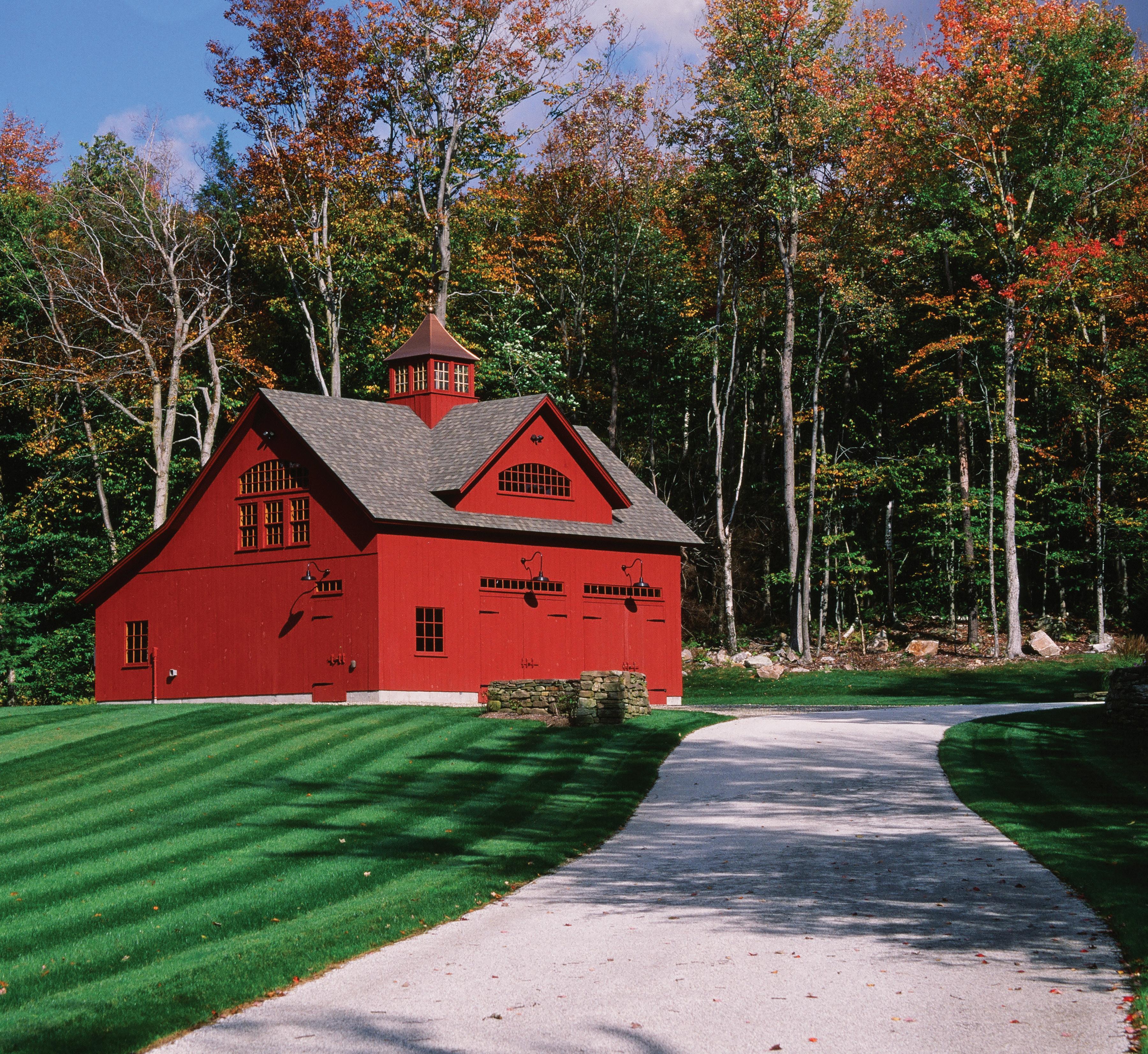



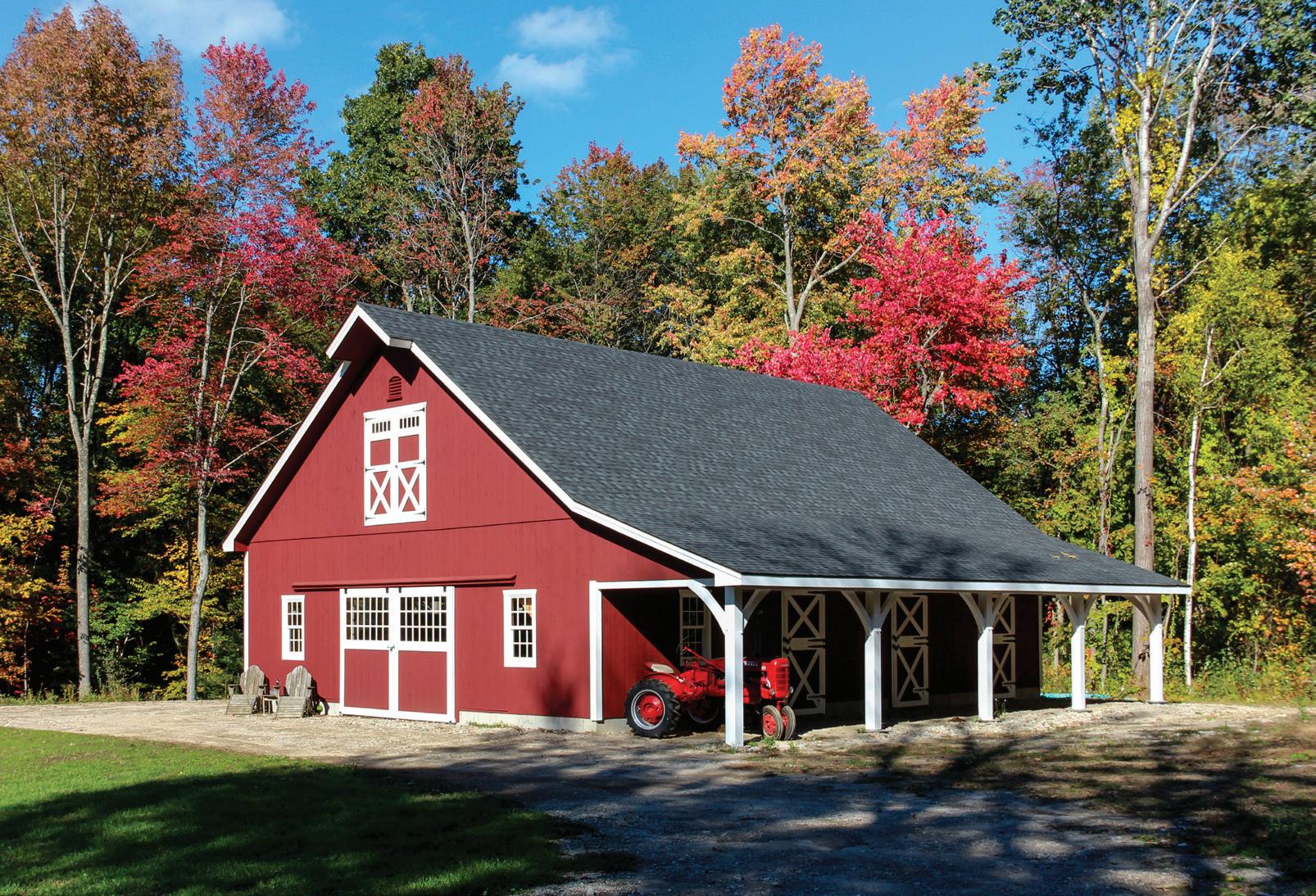
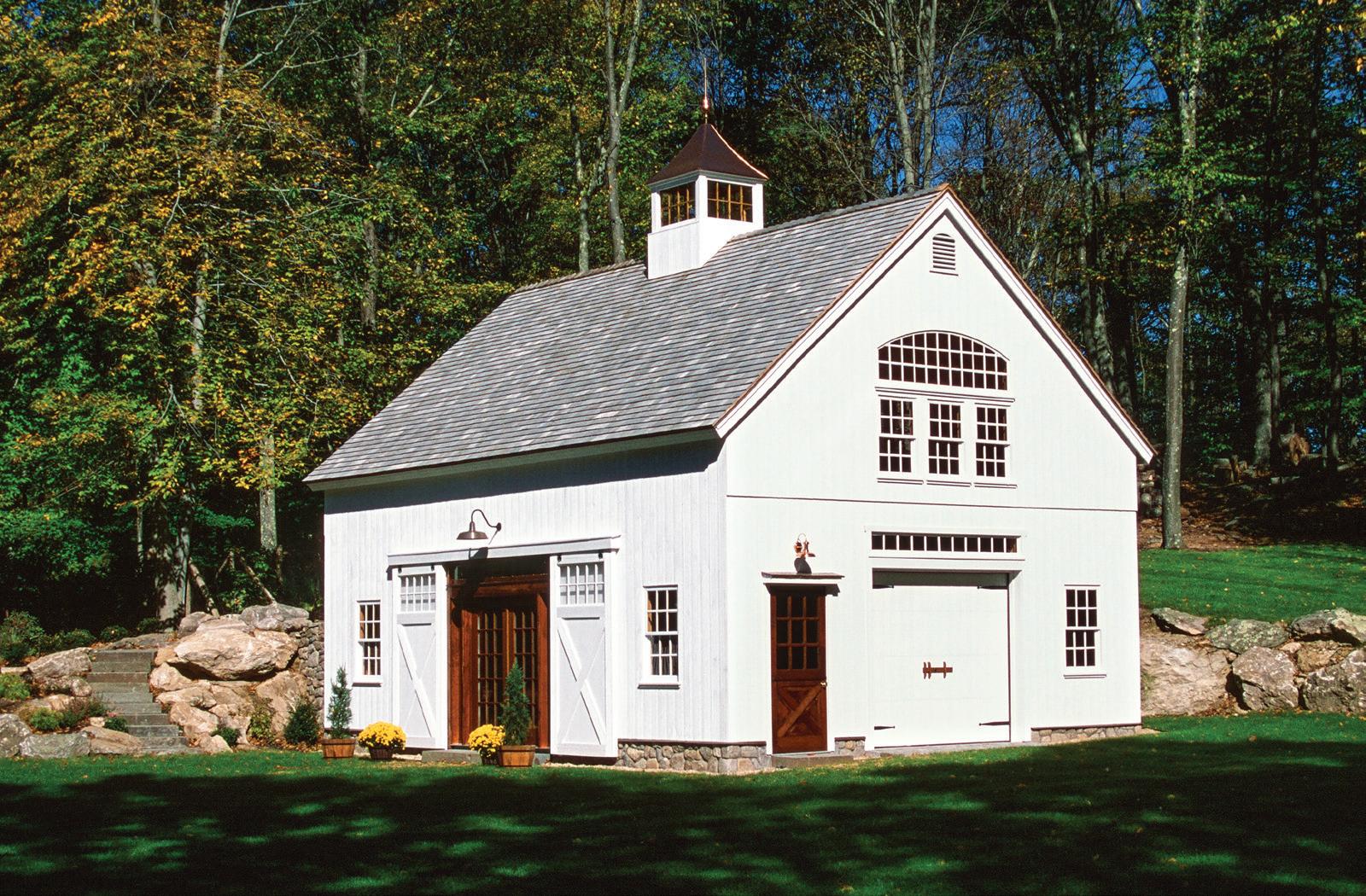
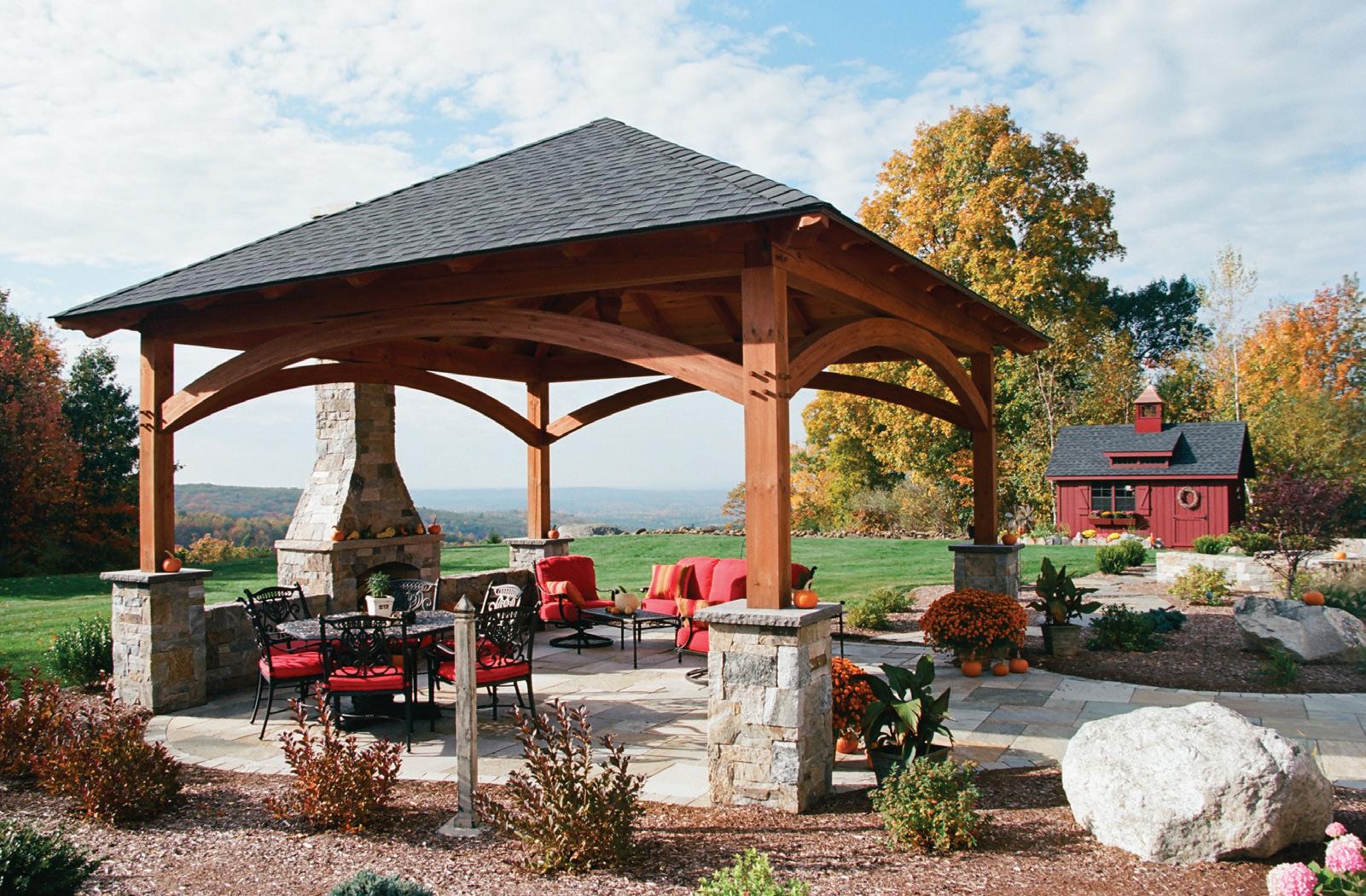





We know you want to make your retirement savings last, so it’s important to have an income plan you can feel confident about. Together, we can:
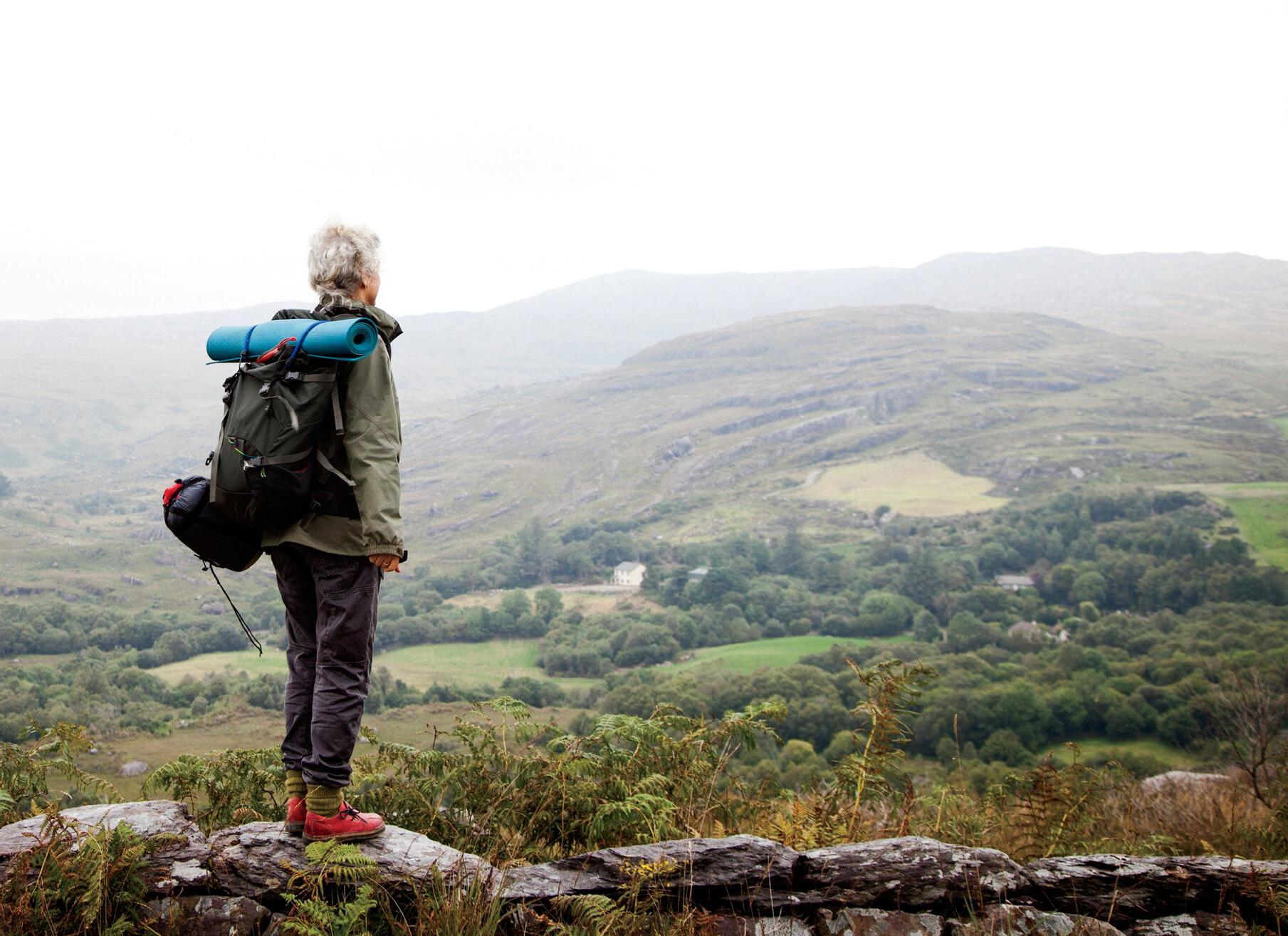
• Navigate the transition from saving to generating income
• Determine if a guaranteed* income annuity is right for you
• Create an income stream that lasts
Set up an appointment with your Fidelity financial professional, or call 866.466.0635 to talk about your retirement income needs today.
To learn more, visit: Fidelity.com/diversifiedplan
Keep in mind that investing involves risk. The value of your investment will fluctuate over time, and you may gain or lose money.
*Guarantees are subject to the claims-paying ability of the issuing insurance company. Certain products available through Fidelity Investments are issued by third-party companies, which are una liated with any Fidelity Investments company. Insurance products are distributed by Fidelity Insurance Agency, Inc., and, for certain products, by Fidelity’s a liated broker-dealer, Fidelity Brokerage Services LLC, member NYSE, SIPC, 900 Salem Street, Smithfield, RI 02917. The Fidelity Investments and pyramid design logo is a registered service mark of FMR LLC. © 2018 FMR LLC. All rights reserved. 853704.2.0
30 /// The Collector
In the antiques-filled home of a globe-trotting Massachusetts teacher, even the upholstery has a tale to tell. By Marni
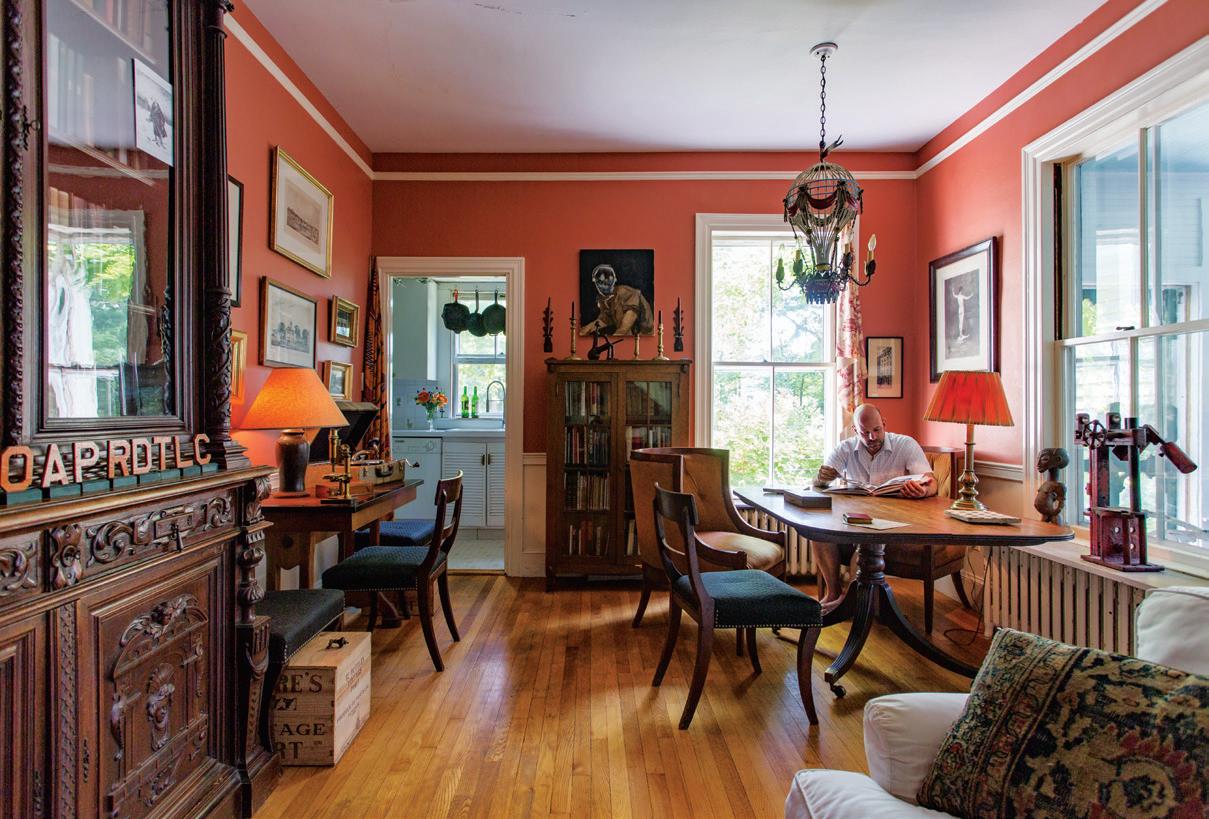 Elyse Katz
Elyse Katz
40 /// Open Studio
Childhood memories inspire Nicole Aquillano’s architectural pottery. By Annie Graves
44 /// House for Sale
On Maine’s rugged Isle au Haut, we discovered a one-of-a-kind property that’s guaranteed to light up your life. By Joe Bills
50 /// Apples of Their Eye
A family-run orchard in western Massachusetts is making hard cider that can turn any harvest meal into a party of new flavors. By Amy Traverso

61 /// Weekends with Yankee
Warm up a fall evening with the Woodstock Inn’s herbed winter squash tart. By Amy Traverso
68 /// Could You Live Here?
Rural beauty and suburban polish come together seamlessly in a classic but under-the-radar New England town. By Kim Knox Beckius
76 /// The Best 5
These day-trip destinations let families make the most of foliage season. By Kim Knox Beckius
78 /// Out & About
From pumpkin festivals to Halloween hauntings, we round up events that are worth the drive.
8
DEAR YANKEE, CONTRIBUTORS & POETRY BY D.A.W.
14
INSIDE YANKEE
Passion projects show us what happens when work entwines with joy.
16
FIRST PERSON
The act of carving a wooden spoon can yield much more than a humble utensil.
By Nina MacLaughlin18
To lay a foundation for the future, the Hewitt family embarks on a new kind of building project.
By Ben Hewitt24
FIRST LIGHT
How a former trolley bridge over the Deerfield River became a garden in the sky.
 By Suzanne Strempek Shea
By Suzanne Strempek Shea
28
KNOWLEDGE & WISDOM
Learning to talk like a cider expert, and getting a science lesson from Family Guy creator Seth MacFarlane.
152
UP CLOSE
In Bennington, Vermont, the venerable Hemmings Motor News motors on. By Joe Bills

 Photo: Dave Sarazen, taken at Coast Guard House Restaurant
Photo: Dave Sarazen, taken at Coast Guard House Restaurant
EDITORIAL
Editor Mel Allen
Deputy Editor Ian Aldrich
Managing Editor Jenn Johnson
Senior Editor/Food Amy Traverso
Home & Garden Editor Annie Graves
Associate Editor Joe Bills
Senior Digital Editor Aimee Tucker
Digital Assistant Editor Katherine Keenan
Contributing Editors Kim Knox Beckius, Ben Hewitt, Rowan Jacobsen, Krissy O’Shea, Julia Shipley

ART
Art Director Lori Pedrick
Photo Editor Heather Marcus
Contributing Photographers Adam DeTour, Megan Haley, Corey Hendrickson, Little Outdoor Giants, Michael Piazza, Greta Rybus
PRODUCTION
Director of Production & Distribution David Ziarnowski
Production Manager Brian Johnson
Senior Production Artists Jennifer Freeman, Susan Shute
DIGITAL
VP New Media & Production Paul Belliveau Jr.
New Media Designer Amy O’Brien
CORPORATE STAFF
Mailroom/Maintenance Supervisor Mike Caron
Receptionist Linda Clukay
Staff Accountant Nancy Pfuntner
Credit Manager/IT Coordinator Bill Price
Accounting Coordinator Sabrina Salvage
Executive Assistant Christine Tourgee
YANKEE PUBLISHING INC.
ESTABLISHED 1935
President Jamie Trowbridge
Editor-in-Chief Judson D. Hale Sr.
Vice Presidents Paul Belliveau Jr., Jody Bugbee, Judson D. Hale Jr., Brook Holmberg, Sandra Lepple, Sherin Pierce
BOARD OF DIRECTORS
Chairman Judson D. Hale Sr.
Vice Chairman Tom Putnam
Directors Andrew Clurman, H. Hansell Germond, Daniel Hale, Judson D. Hale Jr., Joel Toner, Cor Trowbridge, Jamie Trowbridge
FOUNDERS
Robb and Beatrix Sagendorph
Publisher Brook Holmberg
ADVERTISING
Vice President Judson D. Hale Jr.
Media Account Managers Kelly Moores, Dean DeLuca , Steven Hall
Canada Account Manager Françoise Chalifour
Senior Production Coordinator Janet Selle
For advertising rates and information, call 800-736-1100, ext. 204, or email NewEngland.com/adinfo.
MARKETING
ADVERTISING
Director Kate Hathaway Weeks
Manager Valerie Lithgow
Associate Holly Sloane
PUBLIC RELATIONS
Roslan & Campion, 212-966-4600
NEWSSTAND
Vice President Sherin Pierce
NEWSSTAND CONSULTING
Linda Ruth, PSCS Consulting, 603-924-4407
SUBSCRIPTION SERVICES
To subscribe, give a gift, or change your mailing address, or for any other questions, please contact our customer service department:
Yankee Magazine Customer Service
P.O. Box 422446
Palm Coast, FL 32142-2446
Online NewEngland.com/contact
Email customerservice@yankeemagazine.com
Toll-free 800-288-4284
To order additional copies, contact Stacey Korpi at 800-895-9265, ext. 160.
Yankee occasionally shares its mailing list with approved advertisers to promote products or services we think our readers will enjoy. If you do not wish to receive these offers, please contact us.
Yankee Publishing Inc., 1121 Main St., P.O. Box 520, Dublin, NH 03444 603-563-8111; editor@yankeemagazine.com





























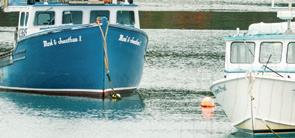

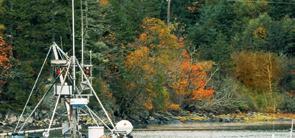
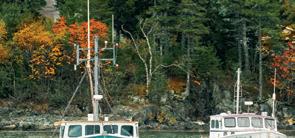
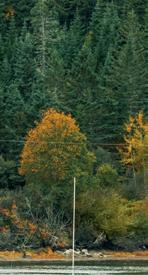











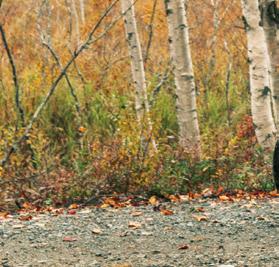



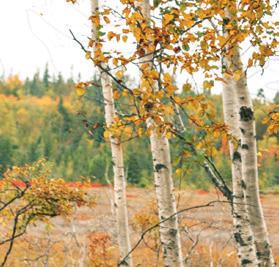










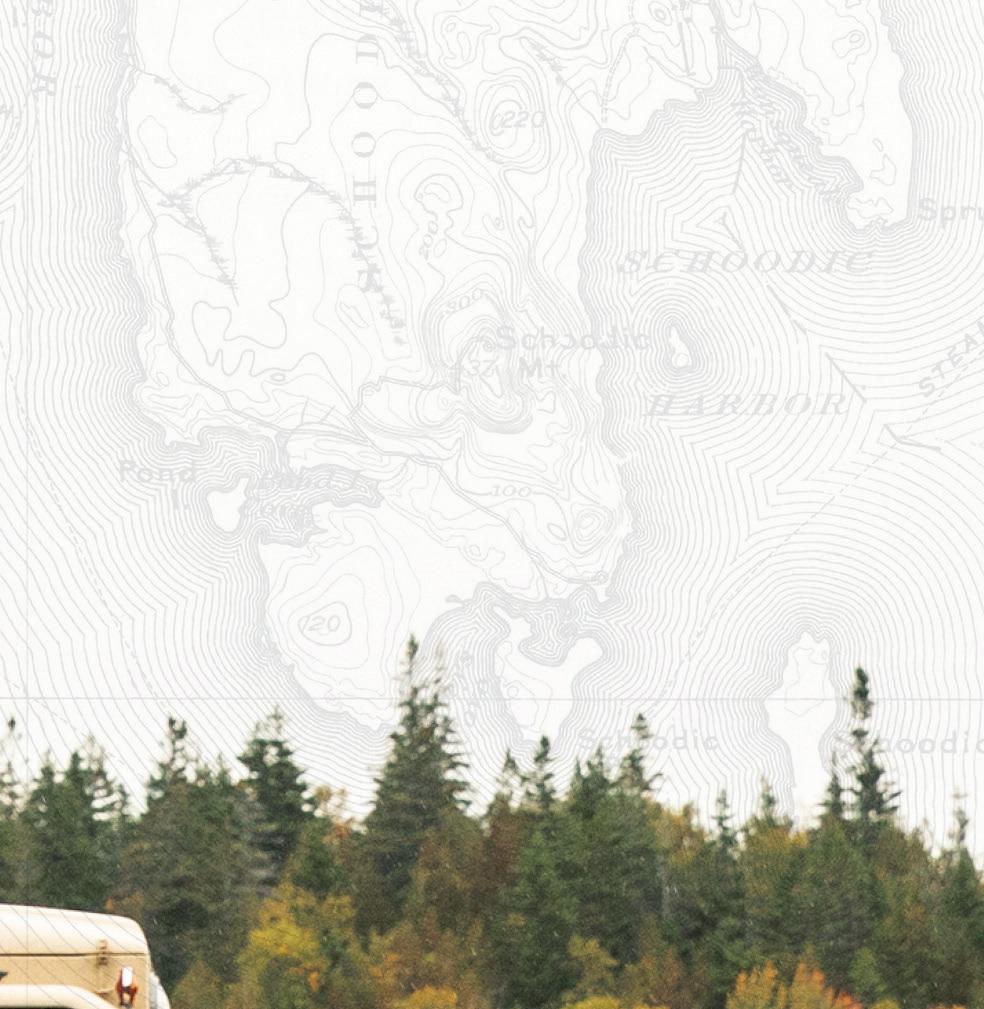









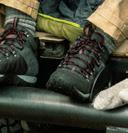




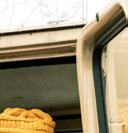
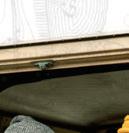









The miles flew by. We didn’t really know where we were headed, but it didn’t matter. Because the longer we drove, the more breathtaking the view became. At one point, we thought we were lost, then we were sure of it. But it’s exactly where we wanted to be. Away from it all and right in the middle of everything. We tried to capture it, but the pictures just don’t do it justice. Nothing beats being there in person, in the right place, at the right time. When nature’s most brilliant exhibition is on full display. This is me.














































 BE ORIGINAL. BE INSPIRED AT VISITMAINE.COM
14:25 CUTLER 44.6576° N, 67.2039° W
BE ORIGINAL. BE INSPIRED AT VISITMAINE.COM
14:25 CUTLER 44.6576° N, 67.2039° W
A New Hampshire native whose photos have been published in The New York Times, Nature, Boston , and many others, DeTour says he was “in my happy place” while on assignment at Carr’s Ciderhouse for this issue’s food feature [“Apples of Their Eye,” p. 50]. “There’s something uniquely peaceful about being by yourself in an apple orchard on a crisp day waiting for the light to change.”
NINA MACLAUGHLIN
In her 2015 book, Hammer Head , MacLaughlin tells how she left her journalism job to learn the carpentry trade. But a quieter, simpler pursuit—wood carving —has helped her “understand the wordless language of wood,” she says [“Carving Spoons,” p. 16]. MacLaughlin, who lives in Massachusetts, still does plenty of writing, including a weekly column on New England literary news for The Boston Globe
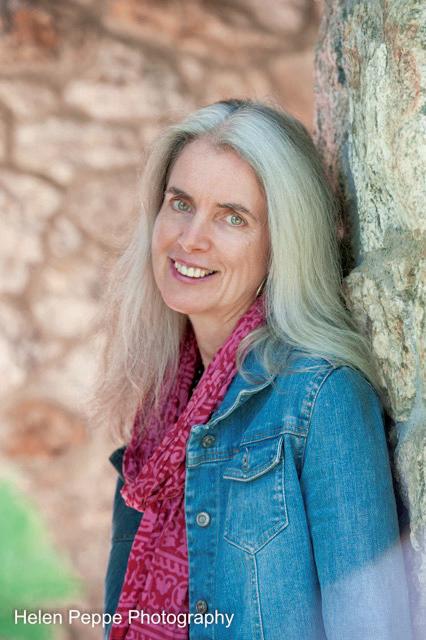
LEIGH MONTVILLE
As a UConn freshman, Montville signed up for the school newspaper in his very first week—and the die was cast. A longtime Globe sports columnist and Sports Illustrated senior writer, this 2009 inductee into the National Sportscasters and Sportswriters Hall of Fame shares with Yankee his take on how Boston teams, for better or worse, have come to rule the 21st century [“When Winning Never Stops,” p. 100].
SUZANNE STREMPEK SHEA

The Bridge of Flowers in Shelburne Falls, Massachusetts, has special meaning for Shea [“A Bridge for Dreamers,” p. 24]. A former newspaper journalist who has written for the likes of The Boston Globe and ESPN the Magazine, she often visits the bridge with her husband on their anniversary, including this year, their 35th. “And we’ll use the bridge as inspiration to celebrate our 90th there too,” she says.
NEIL JAMIESON
The vibrant artwork for the story of Boston’s sports juggernaut [“When Winning Never Stops,” p. 100] comes from this U.K.-born graphic designer, who has worked for Sports Illustrated and People, among others, and now runs his own agency, the Sporting Press. He and his family moved from New York to Connecticut a few years ago, which is when he learned it’s not wise to wear Yankees colors even to Little League games.

BILL SCHELLER



A veteran freelance journalist and author of 30-plus books, Scheller became intrigued by freight trains a few years ago after he moved to Randolph, Vermont, and began hearing them rumble in the night. “What, I wondered, must it be like to be riding through the dark in those locomotive cabs?” recalls Scheller, who decided to find out—and to bring Yankee readers along for the ride [“Back Tracks,” p. 118].
Judging by the slew of online comments for Howard Mansfield’s article “The Death of Brown Furniture” [July/August], a lot of NewEngland.com readers aren’t ready to give up their antique bureaus and vintage sofas just yet. Here’s a sampling of their views (edited to fit this space):
“‘Brown’ furniture is out of vogue and no one wants it—antiques, history, eek! ugh! We want clean lines and modern, no-fuss living. Understandable, but lamentable. I love my brown furniture with all my heart and the sentiments that make it infinitely more valuable than some glass-and-chrome coffee table.” —Melissa Houston
“As we look to downsize, my wife and I are struggling with what to do with family ‘stuff’ handed down through the generations. Every piece of furniture and glassware has its own story, yet it’s only known by my late parents. They’d be so disappointed knowing their grandchildren and great-grandchildren have no interest in their ‘treasures’ painstakingly collected and cared for over their lifetime. So sad....” —Rob
Cline“The younger generation actually does love antiques. They just don’t know it yet. Their favorite stores—Ikea, Pottery Barn, Williams Sonoma Home— are full of factory-made knockoffs of trestle tables, back stools, blanket chests, and every modern reinvention of ginger jars, Chinese export, and creamware imaginable.... With a few more years under their belts, and a little more of the education and money they’ll accumulate along the
Contrary to the roundup of Rhode Island geography trivia in our July/August issue (“Rhode Signs”), it would take a miracle for the Vatican, at 108 acres, to fit inside any Newport mansion.
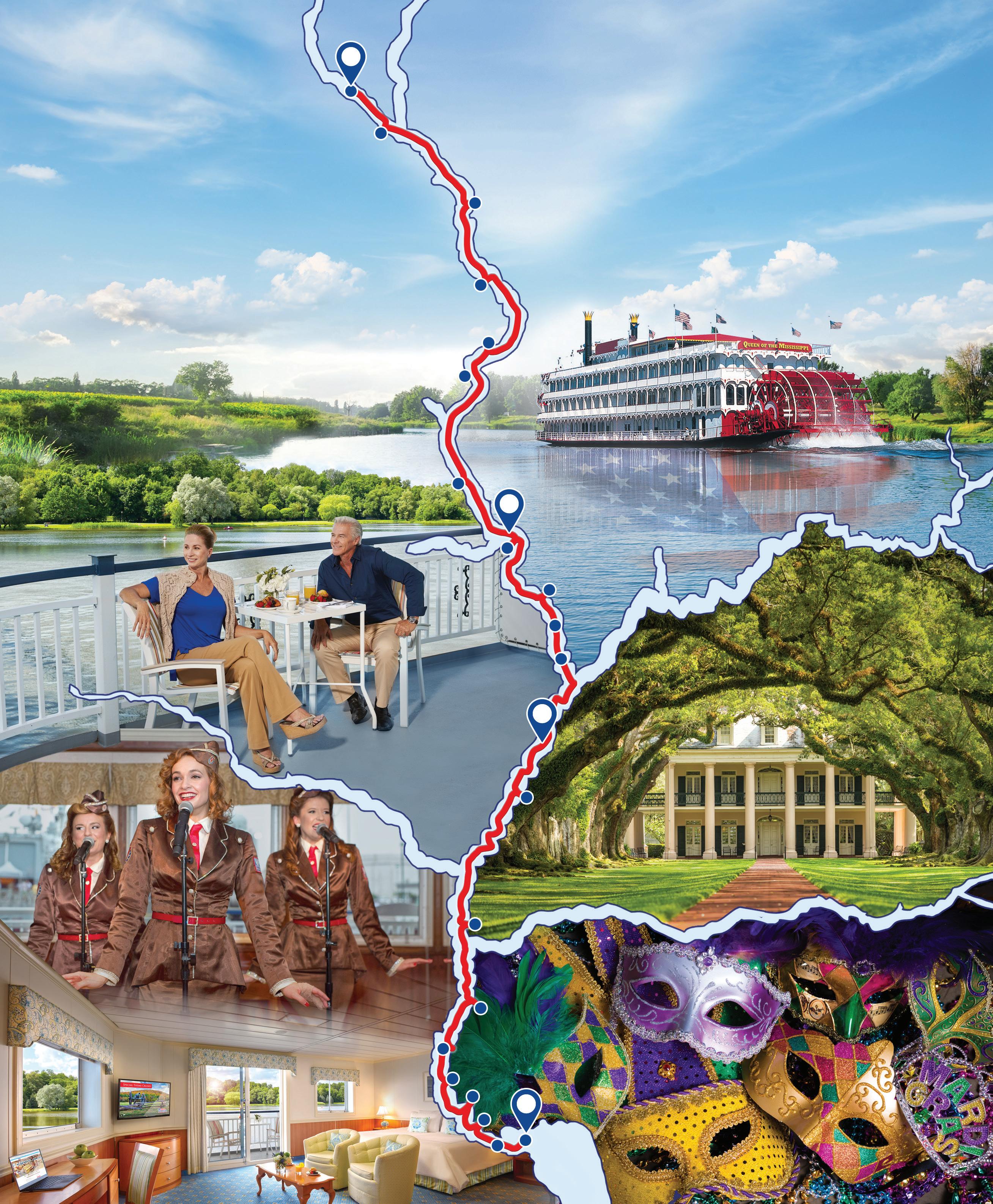









way, they’ll want the real thing someday, just the way the rest of us did.”
Mary Kay Felton“When I moved into my first house, my in-laws gave us their dining room set: brown wood painted ‘antique blue.’ I promptly had the entire set stripped and refinished walnut. Now my 30-something children want me to chalk-paint it blue! Everything is cyclical.” —Audrey Mento
I was thrilled to read the article about Maine’s Swedish Colony in your May/ June issue [“Välkommen to Midsommar”]. My great-great-grandparents A.P. and Maria Peterson immigrated to New Sweden in 1871, and when I saw the article’s photograph of the
the poem reads:
THEPOEMREADS:
The drawing you see above is called The Promise. It is completely composed of dots of ink. After writing the poem, I worked with a quill pen and placed thousands of these dots, one at a time, to create this gift in honor of my youngest brother and his wife.
Dear Reader,
Now, I have decided to offer The Promise to those who share and value its sentiment. Each litho is numbered and signed by hand and precisely captures the detail of the drawing. As a wedding, anniversary or Valentine’s gift or simply as a standard for your own home, I believe you will find it most appropriate.
The drawing you see above is called “The Promise.” It is completely composed of dots of ink. After writing the poem, I worked with a quill pen and placed thousands of these dots, one at a time, to create this gift in honor of my youngest brother and his wife.
Measuring 14" by 16", it is available either fully-framed in a subtle copper tone with hand-cut double mats of pewter and rust at $145*, or in the mats alone at $105*. Please add $18.95 for insured shipping. Returns/exchanges within 30 days.
My best wishes are with you.
Now, I have decided to offer “The Promise” to those who share and value its sentiment. Each litho is numbered and signed by hand and precisely captures the detail of the drawing. As a wedding, anniversary or Valentine’s gift or simply as a standard for your own home, I believe you will find it most appropriate.
Sextonart Inc. • P.O. Box 581 • Rutherford, CA 94573 (415) 989-1630
Measuring 14" by 16", it is available either fully framed in a subtle copper tone with hand-cut mats of pewter and rust at $110, or in the mats alone at $95. Please add $14.50 for insured shipping and packaging. Your satisfaction is completely guaranteed.

All major credit cards are welcomed. Please call between 10 a.m.-5 p.m. Pacific Standard Time, 7 days a week.
My best wishes are with you.
Checks are also accepted. Please include a phone number.
Apple cider, cold and sweet, Sweeps September off her feet.
Muffins, cobblers, pies, and more
*California residents please include 8.0% tax
The Art of Robert Sexton, 491 Greenwich St. (at Grant), San Francisco, CA 94133
Charm her to the apple core.
Please visit our website at www.robertsexton.com
MASTERCARD and VISA orders welcome. Please send card name, card number, address and expiration date, or phone (415) 989-1630 between noon-8 P.M.EST. Checks are also accepted. Please allow 3 weeks for delivery.
“The Promise” is featured with many other recent works in my book, “Journeys of the Human Heart.” It, too, is available from the address above at $12.95 per copy postpaid. Please visit my Web site at www.robertsexton.com
—D.A.W.

“Across the years I will walk with you— in deep, green forests; on shores of sand: and when our time on earth is through, in heaven, too, you will have my hand.”
“Across the years I will walk with you— in deep, green forests; on shores of sand: and when our time on earth is through, in heaven, too, you will have my hand,”
f abulous j ew elry & g re at p ric es f or mor e than 65 ye ar s
Our gemstone necklace adds a dash of color and fun
This 17.50ct. t.w. multi-gem necklace is at once chic and graceful. The rainbow mix of gemstones shimmers on a 14kt gold chain. The modern way to refine your style with color.

$395
Plus Free Shipping
17.50ct. t.w. Multi-Gem Station Necklace in 14kt Gold 18" length. Bezel-set amethyst, garnet, citrine, peridot and blue topaz. 14kt gold cable chain, springring clasp. Also available in 20" $435; 36" $495
Ross-Simons Item #789469
To receive this special offer, use offer code: STATION48
1.800.556.7376 or visit ross-simons.com/station
Travel: New England’s Best Apple Orchards

We reveal the top spots for picking a peck of autumn’s signature fruit.
NEWENGLAND.COM/ APPLE-ORCHARDS



Recipe: Pumpkin Streusel Bars
Creamy pumpkin pie meets easy-as-can-be cookie bar in this sweet, spicy seasonal treat.
NEWENGLAND.COM/ PUMPKIN-BARS
Events: 12 Country Fairs Not to Miss This Fall
Discover the New England fairs that should be on your autumn adventures list.
NEWENGLAND.COM/ FALL-FAIRS






















Travel: 2019 Foliage Forecast
Ready to start planning your leaf peeping? Get the scoop on this year’s color with our expert predictions.
NEWENGLAND.COM/ FOLIAGE-2019










two young Peterson girls dressed in Swedish attire, I thought they could be related to me.
I’ve summered in southern Maine for years, and decided to make the five-hour trek north to meet with genealogist Lynn Johnson at the New Sweden Historical Society and Museum. She was as passionate about tracing my ancestry as if it was her own, and was able to tell me about their journey from Gothenburg, Sweden, to Hull, England, then finally to Houlton, Maine, on May 22, 1871. She also traced my great-grandfather Hans Swenson, who homesteaded on 100 acres in New Sweden; I learned he had immigrated to Maine in 1893 and had four brothers and a sister. She even led me to the Petersons’ family headstone, which lies in the cemetery next to the museum.
I intend to go back to New Sweden next year for Midsommar and look up a few of my long-lost relatives!
Carol S. Harvat Lusby, Maryland

Well, did Rye decide to strike out on his own? Did Ben and Penny add new piglets this spring? Does Fin also hunt with a bow? As you can tell, this faithful follower in Connecticut who cannot imagine taking jars of sauerkraut on a camping trip, and marvels at living in a partially finished house, really was disappointed to not find a new “Life in the Kingdom” in your May/June issue.
Barb Francese Madison, ConnecticutEditor’s note: For all those who might be fretting about missing a news fix from the Northeast Kingdom, rest easy. Ben Hewitt’s dispatches resumed in July/August; in this issue, he and Penny embark on new adventures in home building. You can catch up on all of Ben’s columns and features at newengland.com/author/ben-hewitt.
n the summer of 1975, I mailed a story to the Maine Sunday Telegram about my time as a teacher at a Maine treatment center for troubled youths. The center had recently been front-page news because several teenagers had run away, risking the forest over the often-harsh “treatments” I had observed. A few days later, the paper’s features editor called me. His name was Eddie Fitzpatrick, and he wanted to meet. Soon, he was sending me on assignments everywhere in the state, then coaxing me through rewrites, and every few weeks a 3,000-word story with my byline would lead his Sunday features section.
He was the son of an English coal miner, and his infectious excitement about Maine became my own. He loved wilderness adventure, writers, artists, and cooking. In his pages and his life, he brought them all together. So many Portland artists owe him a debt for bringing their work to light. As I do.
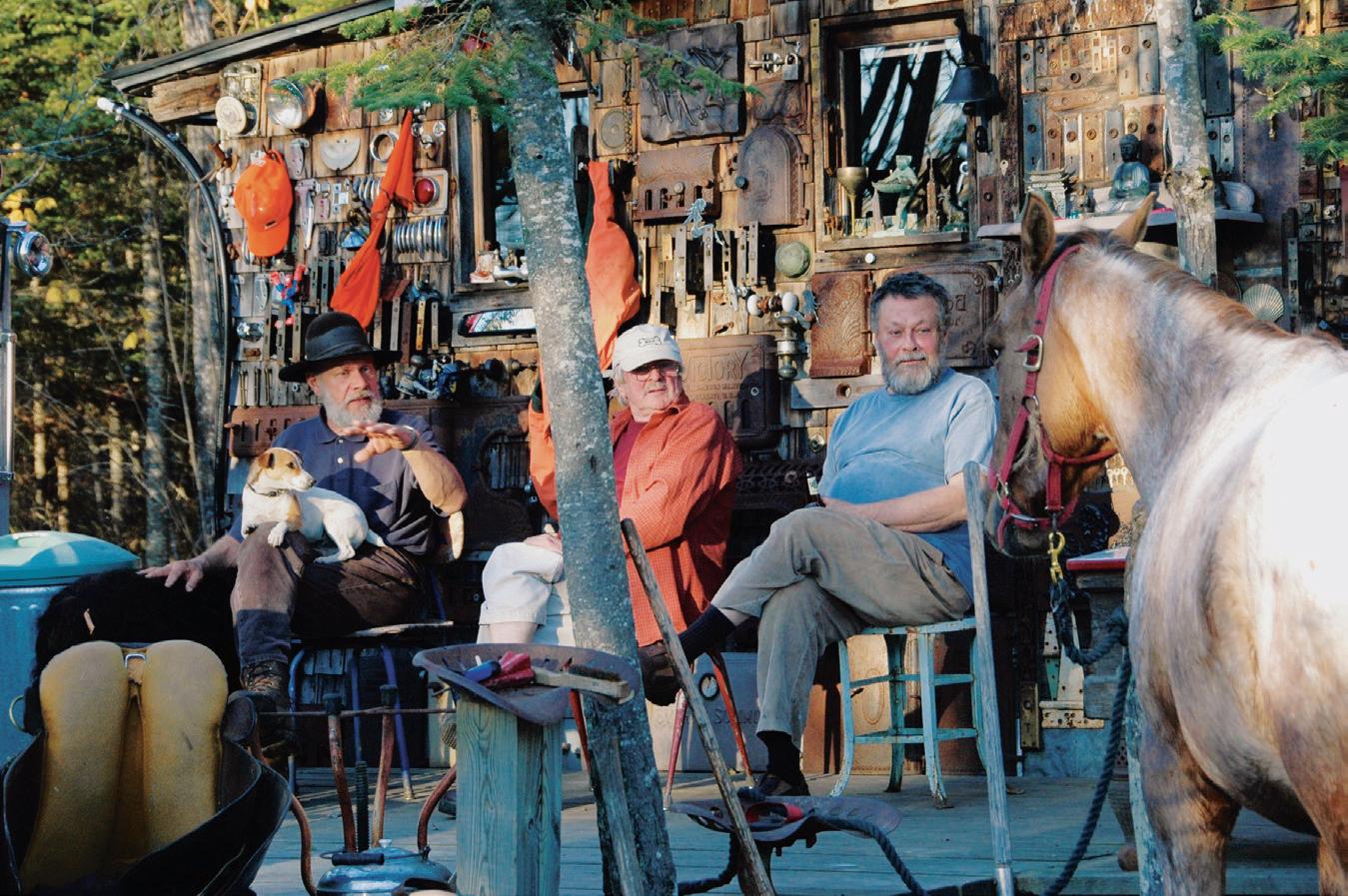
Were it not for Eddie Fitzpatrick, gone now two years, I would not be writing this editor’s letter today. Because when I met with Yankee ’s new managing editor, John Pierce, in the fall of 1977, I came with a stack of my newspaper stories—from the tragedy of a child lost at a remote campground to a profile of a young Maine writer whose horror novels were catching fire.
I tell you this because recently I saw a remarkable photo exhibit called “Everyday Maine.” My eyes followed along the procession of 120 photos through several rooms of the University of New England Art Gallery in Portland. Suddenly, I stopped. In a photo titled “Porch Talk,” there was Eddie Fitzpatrick, sitting between two friends at a North Woods cabin, happy, no doubt telling or hearing a story. He had often told his longtime partner, photographer Diane Hudson, “We are the luckiest people in the world.” His passion for Maine and its people now seemed to infuse the gallery. And the more I learned about how the show had come together, the more I wanted to bring even a small part of it to Yankee ’s readers [“Everyday Maine,” p. 104].
Elsewhere in the magazine, you will meet others who have followed their passion. Whether they are tending to flowers that bring thousands to walk among them [“A Bridge for Dreamers,” p. 24], or restoring an orchard to create acclaimed hard ciders [“Apples of Their Eye,” p. 50], or preserving the most famous replica ship in the world [“The Big Question,” p. 116], this issue is an exhibit in itself of what happens when your work entwines with joy. You become one of the “luckiest people.” I know I am, and Eddie Fitzpatrick helped me make that happen.
Mel Allen editor@yankeemagazine.com



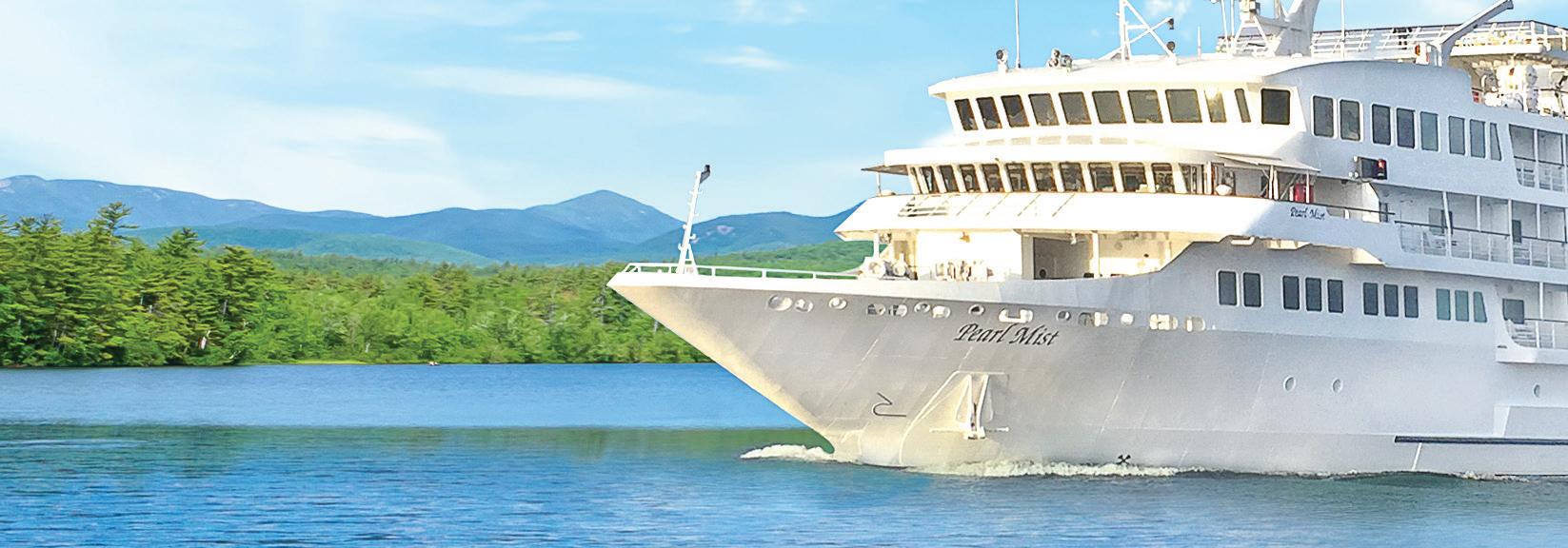
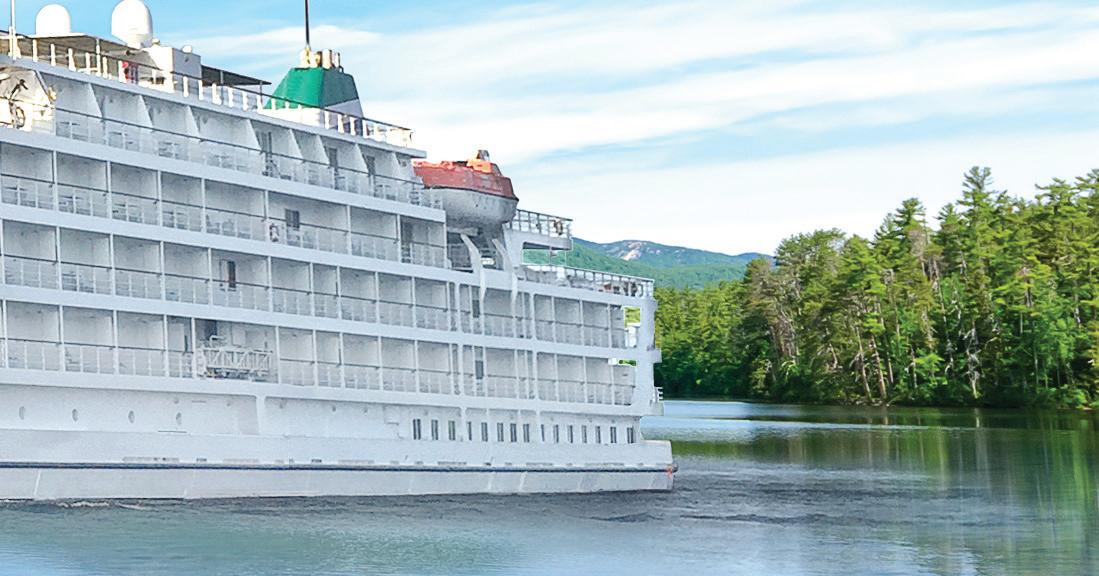




























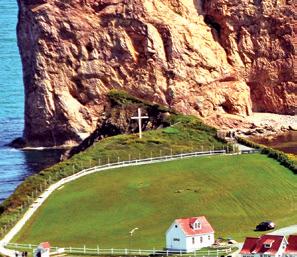


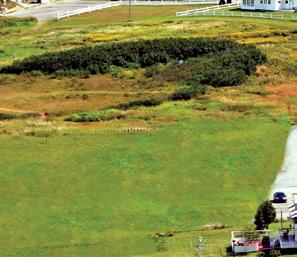
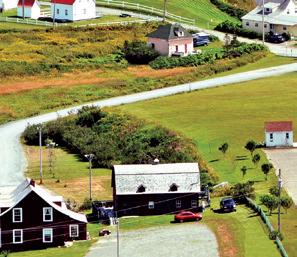

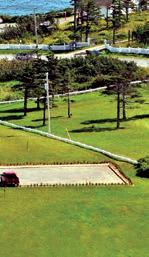





Paring away wood can reveal more than a humble utensil.
he birch came down in my dad’s yard, 300 yards from the river. I took some of it home and sat on a stool in my apartment and carved a spoon with a small sharp blade and a small curved blade. Pale wood curls collected on the floor, on my lap. I swept when I was done. Half a dozen more birch blanks—the crude pre-spoon shapes—live now in my freezer, where the cold holds in the moisture. I sanded the spoon smooth and rubbed it with beeswax and flaxseed oil, which smells like soil and honey, which the wood drinks in and raises its grain in thanks. I smoothed my thumb against the soft curves of its bowl, and thought of the pleasure of precision without exactitude. I was astonished, as I always am, at the transformation.
A seed in the soil not far from the banks of a river on the southern coast of Massachusetts … three decades of growth, give or take … sunlight, rain, wind, frost and freeze, thaw and warmth … papery white bark with black gashes like hieroglyphs of blinking eyes … branches that gave perch to cardinals, robins, chickadees … a death, a falling, a lopping … and the rest of the tree decomposes where it fell, returns itself to the soil. Ferns will grow there; mushrooms, maybe. An oak seed might decide to become a sapling. And now a new spoon exists in my kitchen.
“All things change but no thing dies,” writes Ovid in his Metamorphoses , and in holding the section of wood in my hands, running a blade along its length, it felt good to take part in that one tree’s transformation. I was not resurrecting it, not breathing life back into the dead, but involved instead in its changing state. The vibration of its aliveness registers in my hand when I stir the soups and stews, when I raise the spoon to my lips and blow before tasting the tomato sauce.
Taste, touch, sight, smell—what an opportunity spoon-making offers up to the senses. Some months ago, I sat on the floor of my apartment and showed an 11-year-old girl how to carve. She held the blade in her hand and I trusted her, and reminded myself that the hospital is a five-minute walk away, should we need to buy some stitches. But she carved well, a natural. We sat and talked as she carved, blade in her small strong hand, and she paused and asked a good question, a wise one: “At this point, can you tell more with your eyes or more with your hands?” We closed our eyes and felt. We opened them and looked. How do we come to know? What’s the best way to find the truth of things? How do we best sense when something’s right?
She continued to carve and in one fast swipe, plunged the blade deep in, pressed hard, and a tiny pyramid of wood flew and hit the wall. She looked at me with horror on her face, with fear she’d wrecked the spoon, killed it dead. She set the blade on the floor and put the spoon in my hands, as though she couldn’t stand to hold it. I ran my thumb over the divot. “I do this all the time,” I said. “You do?” “I think I’ve gone too deep, but then I find that you can actually go a lot deeper than you think before anything is unfixable.” We could smooth out all the edges, I told her. She picked up the blade again. “Can I keep going?”
The wood forgives. We look and feel and try to get it right. And if, in the end, there is an indentation where once we pressed too deep, so what? Such is how we know we’ve taken part. That is her mark there, the sign that tells that her hands were on this, too.






SEPTEMBER 19-22.....







ST. MARY’S COUNTY FAIR
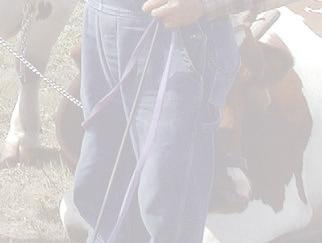
Celebrate St. Mary’s heritage at this traditional county fair, located at the St. Mary’s County Fairgrounds. www.smcfait.somd.com
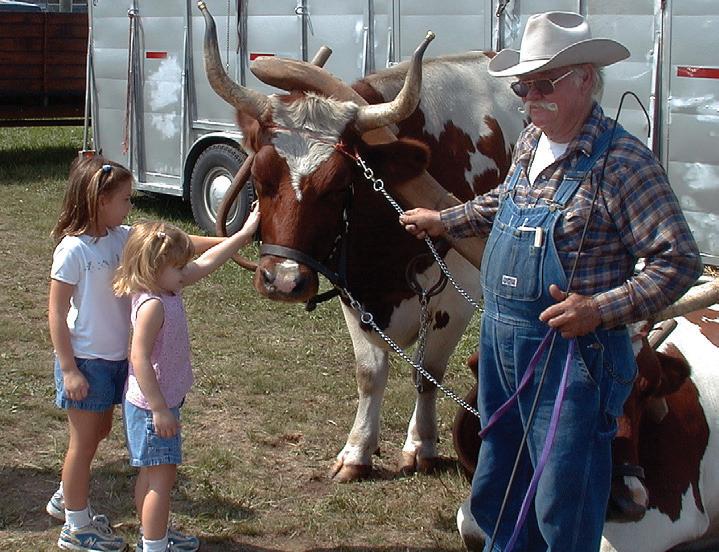
OCTOBER 5-6............
RIVERSIDE WINEFEST AT HISTORIC SOTTERLEY



Celebrate the best of Maryland! Tastings from Maryland wineries, live music, local food & craft beer, artisans, and more. www.sotterley.org
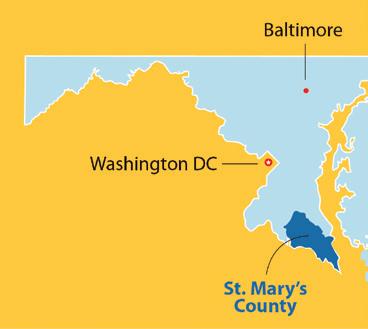
OCTOBER 5-6............







BLESSING OF THE FLEET
This family-friendly festival features live music, family entertainment, activities, and much more, with free boat excursions and tours of St. Clement’s Island, Blackstone Lighthouse, and the museum. www.blessingofthefleetsomd.net

OCTOBER 19-20........


53 RD ANNUAL U.S. OYSTER FESTIVAL
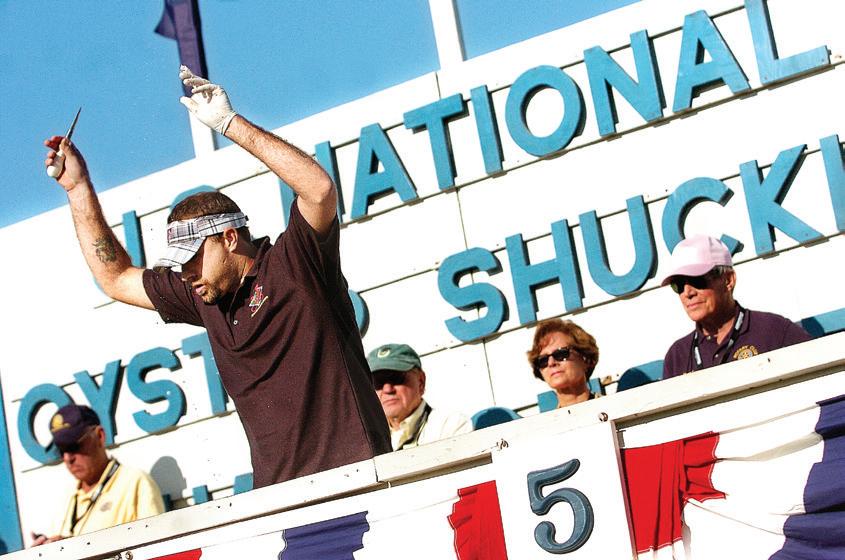
Celebrate the opening of oyster season on the Chesapeake Bay and take part in one of the oldest and most popular festivals in the country. www.usoysterfest.com

Outdoor adventure, history, food, culture, and everything in between await you. Find inspiration, adventure, and excitement where the Potomac and the Chesapeake meet. Follow us on Instagram @VisitStMarysMD

Plan your next trip at www.visitstmarysmd.com

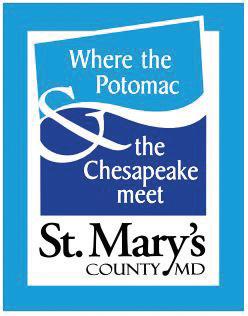

t has been a dry summer, and although northern Vermont has been spared the worst of the rainless days gripping the region, we’ve been living for months on the cusp of drought. By early August, even my body feels dry, as if it were a garden in need of frequent watering, or even the occasional relief of a passing shower. So I dive into our pond over and over and over again, grateful that the springs feeding it are prolific and cold; even under the relentless sun, the water level has dropped only a handful of inches, and although the top few feet of water are warm, the depths remain breathtakingly cold.
We have decided, perhaps more impulsively than might be prudent, to build a second house on this property. This, despite the fact that the first house we built—the one we currently inhabit—remains unfinished: The kitchen is but a crude assemblage of makeshift counters, the northwesterly-facing exterior walls remain unsided, and the bathroom patiently awaits a sink of its very own. It seems reasonable to think we might finish this house before starting another, an assumption that is not lost on our friends. “Has anyone ever told you you’re crazy?” a friend says to me when I tell her of our plans. She’s smiling when she says it, but it’s not entirely clear that she’s joking.
There are a number of reasons we’re embarking on this project, all of which are informed by the awakening understanding that at some point in the not-so-distant future, we might do well to have an income stream that is not dependent on our bodies,





nor on the fickle nature of the market for written words. To be sure, both of these have kept us afloat over the years, aided and abetted by our penchant for thrift and (I suppose) a certain prideful recalcitrance: We’ll do it our way. But time marches on, and new aches and pains settle in, and maybe one begins to consider ways in which the burdens of life might be eased by steady income, even something as modest as a monthly rent check. Besides, if there’s one thing we know how to do, it’s building on the cheap, leveraging used materials, lumber sawn from logs harvested on this land, and our still-capable bodies.




So it begins. We hire our neighbor Matt to dig a cellar hole. Matt lives a few miles down the road, and spends his days either working in the woods or running the excavator. It’s not an easy way to make a living, but Matt
is perennially cheerful, in that way of people who seem to have figured out their place in the world. We hire Levi to come with his portable mill and saw the piles of spruce and fir logs I’ve harvested over the winter and spring into 2-by-6s for wall framing. And we hire our friend Mark to help with the framing. We hire Perry and Sons to pour the foundation; they come and are gone so quickly it seems almost like a mirage, except that what remains is literally as solid as concrete.
Meanwhile, Penny and I scour Craigslist and we take a trip to the North Shore of Massachusetts, where we purchase 18 used Marvin windows, a set of French doors, a gas range, a large built-in cabinet, two light fixtures, and probably a few other things I’m forgetting, all for $2,500 cash. The materials are out of a huge waterfront mansion that was
purchased by investors to be gutted and flipped at a substantial profit. “It was perfectly fine the way it was,” the crew foreman tells us, shaking his head in disbelief. “But a house like this, people want everything new, and they’re willing to pay for it.” He helps us load, then offers us three interior doors and a wood stove for free. The stove looks as if it’s never been used.
We drive back through Boston at the height of rush hour, towing our unregistered (but don’t worry, Mom, still perfectly safe!) trailer behind our rusty Ford pickup, me at the wheel, anxious as a long-tailed cat in a roomful of rockers, since it’s one thing to be towing an 18-foot trailer piled high with a menagerie of building materials, and it’s entirely another thing to be towing the same through the late-afternoon melee of Interstate 93 on a workday, sweat beading on my brow, one eye on the truck’s northward-creeping temperature gauge, one eye glued to the brake lights of the car in front of us, and both eyes casting frequent glances at the rearview mirror, where, no matter how often or vividly I imagine it splayed across the road, our load remains secure.
Penny, meanwhile, is cucumbercool. “We’ll either make it or we won’t” is how she replies to my frequent (incessant?) comments pertaining to the truck’s engine temperature, or the risk inherent in the heavy traffic, or even the (moderately) illegal nature of our unregistered (but still perfectly safe!) trailer. Naturally, her composure serves only to agitate me further, and I believe it is no exaggeration to suggest that the five-hour trip shaves at least some period of time from my life. On the other hand, compared with buying new windows, doors, light fixtures, cabinets, and stoves, we’ve saved somewhere in the neighborhood of $15,000. All in all, it is a deal I can live with, particularly










after determining that whatever days/ weeks/month/years the stress has cleaved from my personal allotment, they would have come at the end, when my quality of life would likely be diminished anyway.





In August, a few days after the foundation is poured, Mark and I begin framing the floor system. We’ve designed a modest structure, barely 1,000 square feet, and a roof before winter seems an entirely reasonable goal, even for two men who are committed to working barely 40 hours a week between them. This is to be the third house I’ve built, or at least had a significant hand in building, but only the first that I am not destined to live in, and also the first with no specific move-in date, and thus no pressing deadline. I am enjoying our relaxed approach.
Slowly, the house takes shape: The floor is framed and decked, the first
wall goes up, then the second and third. We set the rafters, then sheathe the roof. The near-drought persists, and thanks to the perpetually sunny skies, we make quick progress despite our short days. For me, the short days are a necessity, in deference to the paying work that is making this project possible in the first place, plus the innumerable homestead tasks that loom in the final approach to winter. For Mark, the short days acknowledge there is firewood to cut and stack, gardens to tend, cars to repair, and his own house to finish. Like me and Penny, Mark and his wife have built their house around them; it’s been 25 years since they broke ground, and he jokes that it might be finished in another 25.
Toward the end of September, the rain comes again. The house is not yet closed in, and our progress slows. I’m still optimistic that we’ll have



it dried in before winter, but that’s only because I have no way of knowing that the first snowstorm will arrive in early November, and that we won’t see bare ground again until the end of April. The snow will bury the pile of roofing I’ve thoughtfully purchased in advance; it will cover the roof deck and make access to the job site challenging. Mostly, though, it will fracture our resolve with its promise of frigid toes and half-frozen fingers, and of hours spent sweeping and shoveling.
But in September, with the leaves on the trees just beginning their annual turn, we know nothing of this, and in our ignorance of what the future holds, Mark and I keep plodding away, joking and laughing through a handful of six-hour workdays each week. As if winter will never come. As if we have all the time in the world.





Apartment and cottage living at Piper Shores offers residents fully updated and affordable homes, with all the benefits of Maine’s first and only nonprofit lifecare retirement community. Located along the Southern Maine coastline, our active, engaged community combines worry-free independent living with priority access to higher levels of on-site care—all for a predictable monthly fee.

“Herreshoff S” moored in Woods Hole.
It’s late afternoon and our “S Class” sloop sits peacefully in the harbor in Woods Hole, Cape Cod. Designed in 1919 by Nat Herreshoff, this yacht is 27½ feet long and is one of only 103 built between 1919 and 1941. Six of these classic boats are now moored in Woods Hole. Today…about half of these famous wooden boats are still sailing and many are still actively racing. 2019 celebrates the hundredth anniversary of these unique boats. This beautiful limited edition print of an original oil painting, individually numbered and signed by the artist, Forrest Pirovano, captures the majestic appearance of a world famous sailing yacht and gives the subject a sense of time and place.
This exquisite print is bordered by a museum-quality white-on-white double mat, measuring 11x14 inches. Framed in either a black or white 1½ inch deep wood frame, this limited edition print measures 12¼ X 15¼ inches and is priced at only $149. Matted but unframed the price for this print is $109. Prices include shipping and packaging.
Forrest Pirovano is a Cape Cod artist. His paintings capture the picturesque landscape and seascapes of the Cape which have a universal appeal. His paintings often include the many antique wooden sailboats and picturesque lighthouses that are home to Cape Cod.

FORREST PIROVANO, artist
P.O. Box 1011
• Mashpee, MA 02649
Visit our studio in Mashpee Commons, Cape Cod
All major credit cards are welcome. Please send card name, card number, expiration date, code number & billing ZIP code. Checks are also accepted.…Or you can call Forrest at 781-858-3691 …Or you can pay through our website
www.forrestcapecodpaintings.com
 Lush foliage on the Bridge of Flowers frames
2½ -year-old Leia, daughter of Carrie Keefe of Turners Falls. Keefe, who is a custom bonnet maker, grew up in western Massachusetts and says the bridge has long been a favorite place to bring friends and family.
Lush foliage on the Bridge of Flowers frames
2½ -year-old Leia, daughter of Carrie Keefe of Turners Falls. Keefe, who is a custom bonnet maker, grew up in western Massachusetts and says the bridge has long been a favorite place to bring friends and family.

If you’re driving Route 2, Massachusetts’s famed Mohawk Trail, keep an eye out for the sign pointing to the village of Shelburne Falls, about 10 miles west of Greenfield. Make the turn, and soon you’ll forget why you were in a hurry to go anywhere else. From the moment you step onto the 400-foot-long Bridge of Flowers connecting the towns of Shelburne and Buckland, the world will seem to slow.
Black-eyed Susans wink, turtleheads nod. Clematis tendrils reach for the next fence link. Hibiscuses wave frilly skirts against hearty circles of sedum. Flowering kale’s maze of folds look good enough to eat—at least that’s the buzz from the bees zipping past, and the swallows alighting on a nearby bench. Hundreds of flowers, vines, shrubs, and trees edge the path. From early spring to late autumn, some 30,000 garden lovers stroll this former trolley bridge, their senses alive, while the Deerfield River flows past below.
Gardening atop a river wasn’t the goal when the Shelburne Falls & Colrain Street Railway constructed the 18-foot-wide all-concrete bridge in 1908 as a stronger option than the existing 1890 iron truss bridge. The company went bankrupt in 1927, and soon weeds overtook the concrete bridge. But a local homemaker, Antoinette Burnham, saw what others did not. She imagined a gorgeous reuse for a structure deemed too expensive to demolish and, with its water main, too complicated to destroy. The Shelburne Falls Fire District purchased the bridge in 1928 for $1,250 (a steal, given that the $20,000 construction price tag today equals nearly $300,000), and in 1929 the nonprofit Shelburne Falls Area Women’s Club created the Bridge of Flowers Committee to realize Burnham’s dream.

It began with 80 loads of loam that was spread just upriver from Shelburne Falls’ famed glacial potholes and has been nurtured ever since, thanks to local hands and

hearts. The current force is made up of Carol DeLorenzo, head gardener for nearly two decades; Elliston Bingham, assistant gardener for six years; and more than two dozen Bridge of Flowers Committee volunteers (the “blossom brigadiers”).
DeLorenzo was working on an eastern Massachusetts farm when she first noticed a “strong connection” between people and flowers—a bond that now is part of her daily life, and just a six-block bike ride from home.
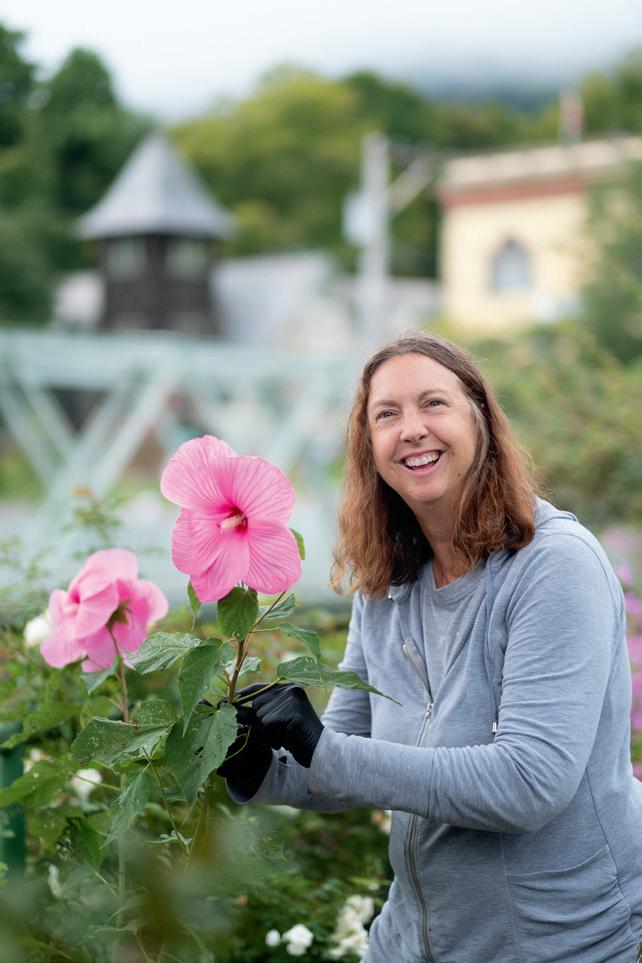
“The job suits me,” she says as she strides onto the bridge in typical work attire: tank, capris, and sneakers. She puts in 17 hours a week on what she calls “my canvas, my palette,” constantly studying the hundreds of plants, celebrating successes, pondering fixes. “As we go through, we’re looking at the trouble. From our point of view, it’s averting disaster.”
She shops for stock at local retailers and farms and has learned to impulsebuy, grabbing varieties new to the bridge or to herself. Each plant is given a few years to grow and show in soil that ranges from 2½ feet at the top of each of the bridge’s five arches to 8 feet at each pillar, and the sluggish are earmarked for the May plant sale—“like this hydrangea,” DeLorenzo says, bending to touch a leaf. “I can’t wait years to figure it out.”
Adding structure to the flowering plants are vines, shrubs, and trees, including a winding Wisteria floribunda planted in the ’80s that Bingham has pruned into an umbrella shape, and a star-flowered Leonard Messel magnolia that DeLorenzo planted years ago. There’s also a tanand-gray-barked seven-son flower, which is actually a tree and like all the bridge’s trees is monitored for its growth’s effect on the span.
The bridge’s age and its exposure to weather are constant challenges. When the span underwent repairs in 1983, every plant was fostered by volunteers. In August 2011, Tropi-
cal Storm Irene raised the river nearly to garden level, leaving three to four inches of sediment that had to be removed and necessitating reconstruction of the crushed-stone path.
On this September day, beside the bridge’s centerpiece bench and flagpole memorializing the Shelburne and Buckland residents who fought in the two world wars, Vermonters Susan Rosano and Lynn Green are planning a return trip. “It’s like being in the middle of an Impressionist painting,” says Green, while Rosano, a mosaic artist, studies the color combinations. At the Shelburne end of the bridge, Jackie and Dick Maciel rest on a shaded bench before their twohour drive home to Franklin, Massachusetts, where they tend foundation
plantings and a vegetable garden. A nearby box holds donations that, added to Friends of the Bridge memberships and proceeds from the plant sale and other events, fund the two employees’ salaries, plus stock, equipment, and other operating costs.
Lynda Leitner, a Shelburne resident and “blossom brigadier,” doesn’t consider her contributions to be work. “It’s an honor to do this,” she says.
The efforts are appreciated both by the far-flung (just two pages of the guestbook lists visitors from New York, Munich, New Mexico, Turkey, Costa Rica, and Ohio) and by locals, including a man who saw that one plant had been moved and asked DeLorenzo, “What did you do with my garden?”
Donna Gates feels a similar connection. As director and curator at the Salmon Falls Gallery, located up the hill on the Buckland side of the river, she admires the bridge during her 15-minute walk to work. “Who gets a better commute than I do?” she asks. Though she is an artist, Gates says the bridge negates any desire to be creative in soil. “Much better,” she notes, “to enjoy the beautiful garden on the bridge.”
DeLorenzo, whose home garden is a courtyard plot, agrees, her free time going to hiking, playing music, practicing massage, and, inevitably, seeing what the bridge means to others as it heads toward the century mark.
“When I come through town later in the day and see people out here, it just melts my heart to see them looking at everything,” she says, pausing at a mass of pink turtleheads that seem to nod along. “Everybody finds something to love in a garden.”
For more information, go to bridgeofflowersmass.org.
Standing on the bridge, says one visitor, is “like being in the middle of an Impressionist painting.”

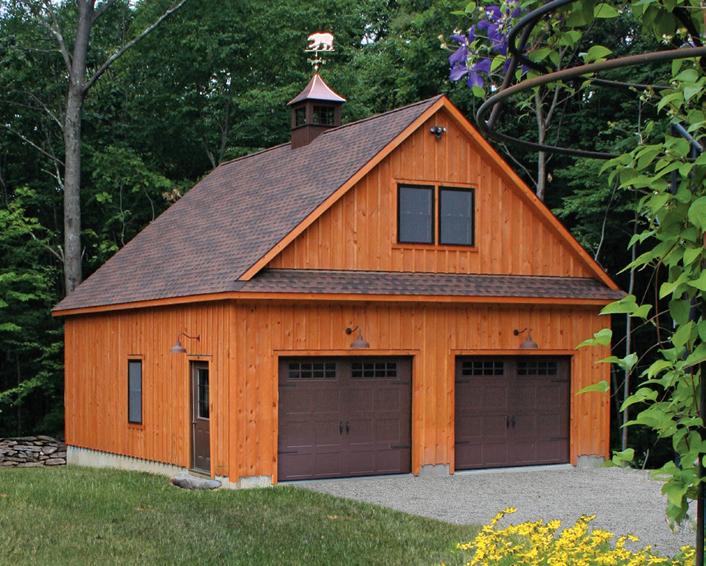






From colonial times up to the early 20th century, if you asked for “apple cider” you meant “hard cider,” the alcoholic version, which for decades was the most common beverage in New England. “Cheap and easy to produce … the fermented, sometimes fizzy, juice was more popular than ale, kept longer than milk, and in many places was safer to drink than water,” Yankee once noted.
Thanks to the temperance movement and advances in refrigeration technology, the roles were eventually reversed: Sweet cider became the popular version in the U.S., while hard cider became a specialty item. But craft cideries such as New Hampshire’s Farnum Hill and Shacksbury in Vermont are increasingly reviving this traditional tipple—so why not brush up on a few terms from cider’s heyday?
Apple brandy: Distilled apple cider, with the French Calvados being the best-known example; often used interchangeably with the term applejack .
Applejack: Also called cider oil; often used interchangeably with apple brandy. Originally, applejack referred to the strong drink now known as frozen heart or hollow heart , made by freezing hard cider so that the water is gradually removed and an apple-flavored alcohol remains (the chemical process is called fractional crystallization).
Cider: Originally used to mean a hard, alcoholic drink made from fermenting the juice pressed from apples; in England, hard cider is redundant. Sweet cider refers to unfermented cider.
New England–style cider: A strong hard cider made with a variety of sugars, spices, and raisins.
Scrumpy: A slang term for particularly powerful hard cider; also refers to hard cider to which beefsteak or other meats have been added for flavor.
Stone wall: Hard cider or applejack mixed with rum and spices, and sometimes brown sugar; prescribed for dispelling chills and restoring energy.
—Adapted from “In Search of the Perfect Cider” by Kathy Neustadt with Steven Latorre, October 1996
Seth MacFarlane (born October 26, 1973, in Kent, Connecticut). As the creator of , this Rhode Island School of Design alum may be best known for slapstick and satire. But he’s also into science, helping to briefly revive the classic Carl Sagan show in 2014 and putting his own spin on Star Trek with The Orville , which begins its third season on Fox later this year.

“Evolution doesn’t care whether you believe in it or not, no more than gravity does.”




EVEN THE UPHOLSTERY HAS TALES TO TELL AT THIS GLOBE-TROTTING TEACHER’S MASSACHUSETTS HOME.
 BY MARNI ELYSE KATZ
BY MARNI ELYSE KATZ
Specifically, a 17th-century Italian Baroque armchair spotted at an antiques shop in Cambridge, Massachusetts, where Caldarella was attending Harvard. One might think a college student in Cambridge by way of Queens might have better things to spend time, money, and energy on than a dusty piece of furniture, yet Caldarella was fixated. “I was on financial aid with three jobs, but Heidi made it happen,” he says.
He is referring to Cambridge-based interior designer Heidi Pribell, who Caldarella still credits 30 years later for the fearlessness of his collections. And boy, does Caldarella collect. That Italian Baroque chair, which he had upholstered in vintage Fortuny fabric procured from a curator at the Boston Athenaeum, sits in a house chock-full of antiques and vintage finds.
Jagged stone stairs punctuated by vintage pillars lead to the screen door of Caldarella’s Concord, Massachusetts, home: a 1,200-square-foot condo tucked into a clapboard house built in 1872 that was once a manse for the Trinitarian Congregational Church. Transitioning from the lush outdoor gardens is a bit of jolt, since the porch has a Spartan feel, with rickety wooden furniture, a butterfly cage made from found sycamore branches, and casual rows of no fewer than two dozen pairs of shoes.
Step fully inside and the place warms up, revealing itself as a collector’s haven. Caldarella has spent more than 20 years restoring and filling his home—once a hodgepodge of shag carpeting and other 1970s-era remnants—with furnishings collected during his travels, imbuing it with a sense of history and personal meaning. A learning specialist and tutor by profession, he is a self-described teacher, traveler, collector, and recycler to the core, and his home reflects every aspect of this persona.

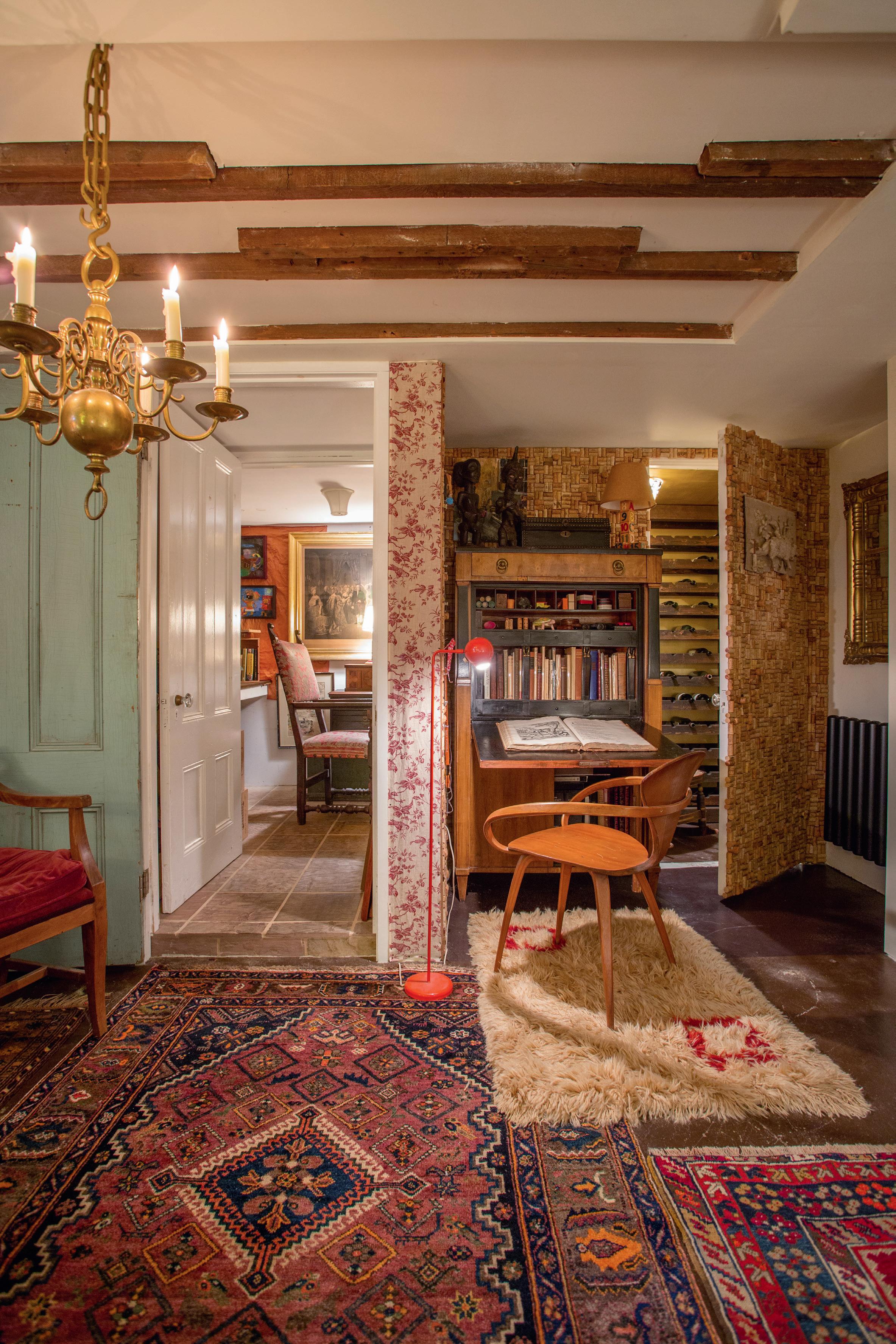
Heidi Pribell met Louis Caldarella some 30 years ago when she was running her own antiques gallery in Cambridge, Massachusetts. Today she’s an award-winning interior designer who is known for her ability to mix styles and periods to create beautiful but livable homes. Here, she singles out three highlights of Caldarella’s home—and shares a few tips anyone can put to use.
“Each doorknob, window closure, door hinge, and pull has been a vintage purchase that fits timelessly into Louis’s home. An Eastlake sofa, a Biedermeier secretary, an Italian neoclassical bed, and an American Arts and Crafts bookcase—all blend eclectically, like old friends, united by a theme: Boston 19th-century material culture.”
DO: Create a narrative out of objects.
DON’T: Feel obliged to stick to one time period—it’s a home, not a museum.
“We opted for vibrant palettes throughout the home…. In the bedroom we used celery-green trim with peacock-green walls and mostly oxygen-blue ceilings throughout the home. I enjoy using apricot on the ceilings of windowless rooms, like hallways, and lavender ceilings are my favorite.”
DO: Experiment using a bold wall color with contrasting trim to highlight a collection, and always use tinted contrasting color on your ceilings.

DON’T: Wait to change interior finishes until you find the right piece of furniture. Often you’ll spot it later, and it will fit in seamlessly.
“Louis uses early scientific tools and equipment to engage his students’ curiosity. All these items are easily reachable: displayed on the wall, or handy on the dining table. A Victrola phonograph with boxed vintage 78 rpm records sits nearby, always ready to play. What was once ordinary is now fresh and novel to today’s children. Everything is happily used, and things break all the time!”
DO: Use the things you collect.
DON’T: Keep objects stored in boxes or tucked away in the basement.
clockwise from top left : A 19thcentury brass microscope and specimen slides, including “Stinger of a Bee” and “Wing of a Lace Fly”; the very first treasure Caldarella collected, a 17th-century Italian armchair; a painting by Portland, Maine, artist Timothy Wilson amid artifacts including a Makonde water pipe from Africa; vintage brass letters as objets d’art.
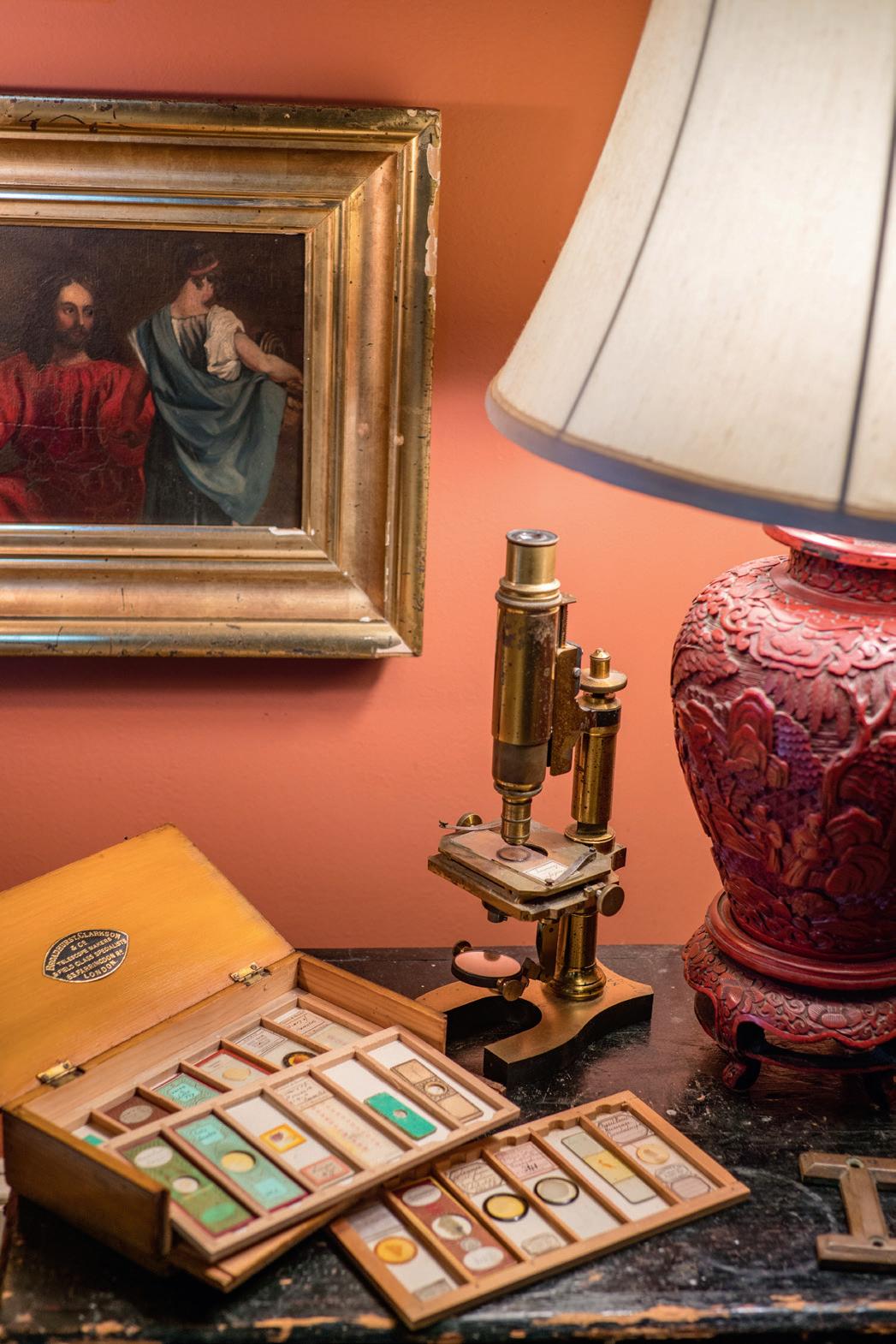


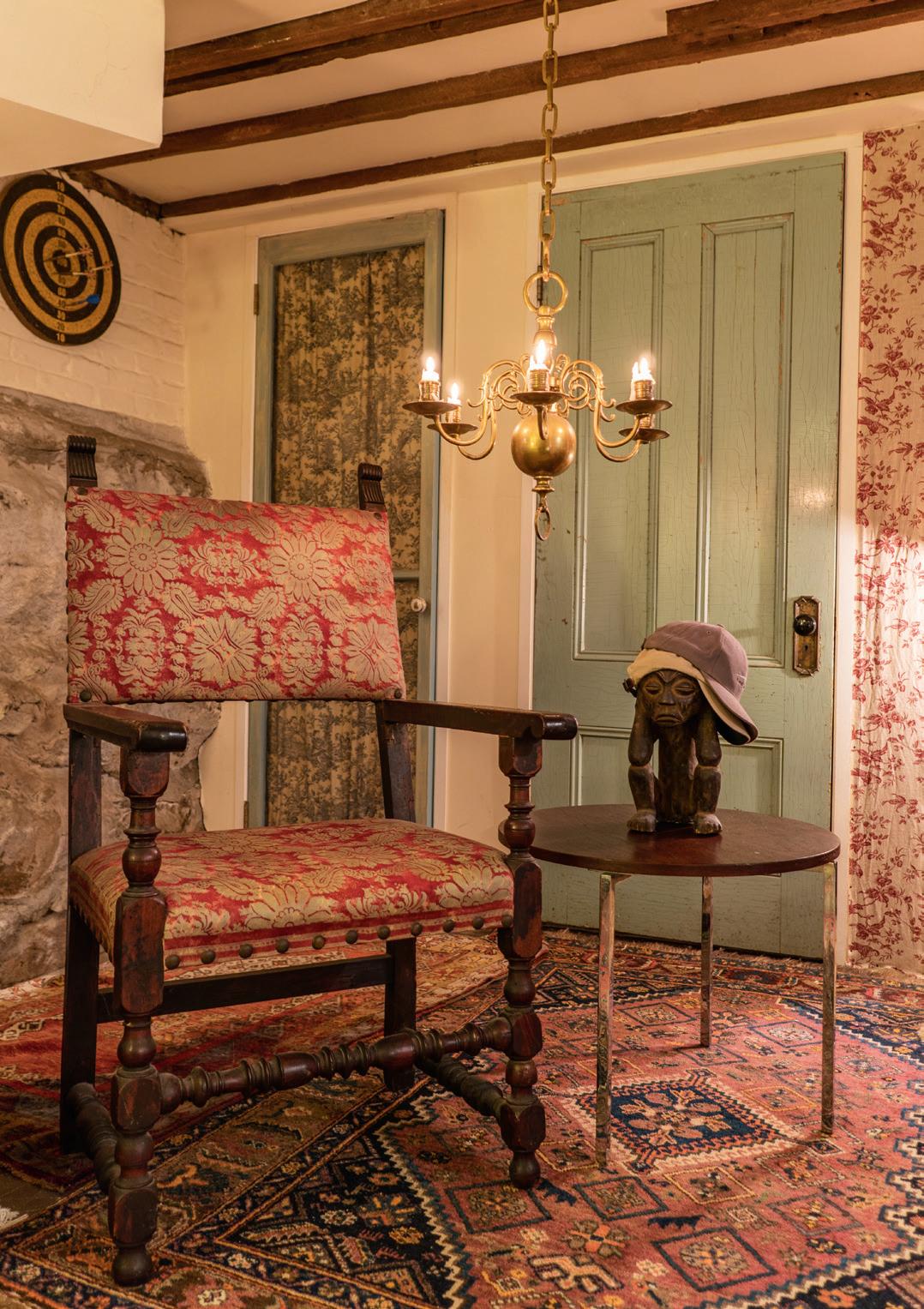
In addition to working for a nearby independent school, Caldarella tutors private clients in his living room, where the tools of his trade abound. He says his students learn best with original specimens and primary sources, and that vintage materials can help relieve anxiety around learning. The relics, many picked up at flea markets in Paris (he has a recurring Parisian cat-sitting gig), are as beautiful as they are useful, such as a 19thcentury brass microscope complete with slides (marine algae, eel scales, and an earwig’s head are just a few).
Every step begs a story. Neoclassical dining chairs with horsehair upholstery came from Goodspeed’s Book Shop in Boston, where Caldarella worked as the head of Americana for six years before the store was shuttered in 1995. Also acquired there was a bookcase now built into the basement staircase. The mini library includes an illuminated version of A Christmas Carol, from when he was a rare-book dealer in London, and an 18th-century illustrated folio of Aesop’s Fables
Caldarella’s unyielding attitude toward waste (he believes it is a sin) is evident throughout the house, from the wine closet door covered in more than 7,000 corks sent by friends all over the world, to the Adirondack chairs his father, a carpenter, made with scraps of mahogany left over from a deck they built. And rather than replace the worn floorboards in the upstairs sitting room, Caldarella pulled them up, flipped them over, and refinished them.

Pribell’s influence is also on display. The pairing of a Biedermeier secretary and a midcentury-modern Cherner armchair on the lower level is indicative of her unorthodox-yetsimpatico aesthetic. “These pieces were made almost 150 years apart, but they’re both everyman’s furniture and have complementary curves,” Caldarella says.

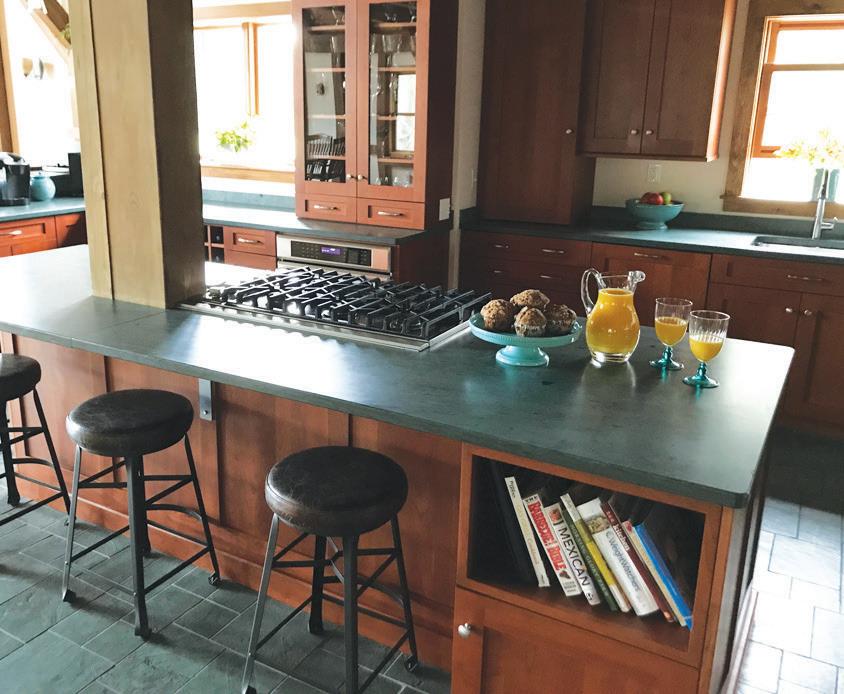
In his bedroom, aka the Boar Room (a bit more on that later), the




peacock-green walls were inspired by endpapers of an early 19th-century French book and glazed by Pribell herself, who worked for a time as a decorative painter. “Heidi knew just how to concoct the color using a yellow undercoat, blue glaze, and brown varnish,” he says. “It’s the perfect shade of green, but contains no actual green paint!”

Even the upholstery is woven with tales. Caldarella covered the scrolledarm neoclassical chair, found legless in Maine, with hand-dyed indigo fabric from a textile designer in Amsterdam. “I stumbled upon a house, doors wide open, fabric hanging everywhere,” he says, as though it’s a commonplace occurrence.
The bedroom showcases Caldarella’s largest collection: 50-plus images of wild boars, the symbol of the secret society he belonged to at Harvard. The first one came from a local shop, and then, he says, “the collection took



on a life of its own.” He’s brought boars home from all over the world, from the stalls along the Seine, markets in Rome, and Portobello Road in London, though his favorites were gifts from and made by kids.

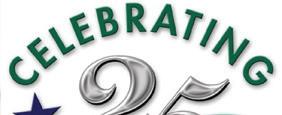


Caldarella’s biggest collection may also be his most surprising: He has amassed more than 50 pieces of art and decor that feature boars.

Caldarella keeps smaller collections in the bedroom, too, such as enamel key chains from the 1950s and a pile of Saint Christopher medals. The collections and travels, which are wholly intertwined, seem endless. Last year’s trips, which included Paris, London, New Zealand, Hong Kong, and Rwanda, have yielded antique linens, three Honoré Daumier prints bought for five euros each at the Marché d’Aligre in Paris, and some 19th-century hand-blown, acid-etched wine glasses.
Not everything, however, finds an immediate place. “I have an Ernest Roth engraving of Venice, but as I haven’t been there yet, I don’t feel I have a right to hang it,” he says. “In this case, the art comes before the travel.”
“ We didn’t come to RiverMead to ‘retire’, we came to live full and active lives, secure in the knowledge that we have good choices, good friends, trusted care, and a home for a lifetime.”
I love to watch the surge of water that returns to flood the land twice a day. Water as it flows in and particularly around the edges of docks, creates flow lines. I see the flow lines in this ring, which we call the Returning Tide.
Mountain Laurel
Honest blue. Not pretentious. Rich character and detail. Touring New England this fall … Maine, New Hampshire, Vermont, Massachusetts, Rhode Island, and Connecticut.
Sitting on the dock of the bay, you start in Boston, with a road trip to New York and Chicago. Grand tour of art museums, then across the country arriving in San Francisco and the great Pacific.
A little piece of summer, autumn blue sky, and ocean too, you get to carry the magic of blue with you every day, wherever you go.
Over two-hundred pieces of blue sapphire jewelry on-line, ready to ship, anywhere U.S.A. Free shipping, as always on all your Cross purchases.

It is never too late or too early to build a collection of treasured objects that your family can enjoy today and for years to come. These could include an amazing auction find, jewelry, a piece of furniture, a serving piece, or even a Christmas ornament. Yankee has partnered with a few New England companies that share our belief that beautifully made objects should be preserved and cared for today so that they can be a part of our lives for generations.
Skinner Auctioneers & Appraisers have helped families in New England and across the country build collections of art, antiques, and objects of value. Skinner knows markets are dynamic and that needs and tastes change. The constant


compelling factor remains the story behind the objects: where and when it was made, who made it and why, and who owned it.
Objects are a window into the history of where we have come from and who we are. Our objects have the power to bind generations together in story and deed; whether you cherish the delicate gold Art Nouveau necklace your grandmother passed down to you or the gay liberation buttons you collected one by one in the 1970s, every object has meaning and holds importance, and together they make visual the story our lives.
Skinner offers a complete range of appraisal and auction services designed to assist you in making decisions to fit your needs, whether you have a question about your collection, are looking to build a new one, or realize that the time is right to deacquisition.
SkinnerInc.com
1. Cape Cod Metal Polishing Cloths
Cape Cod Metal Polishing Cloths are moist, re-usable cloths that clean, polish, and protect all fi ne metals. Easy to use: simply wipe on and bu o with a soft cloth. Also has a pleasant vanilla fragrance! CapeCodPolish.com
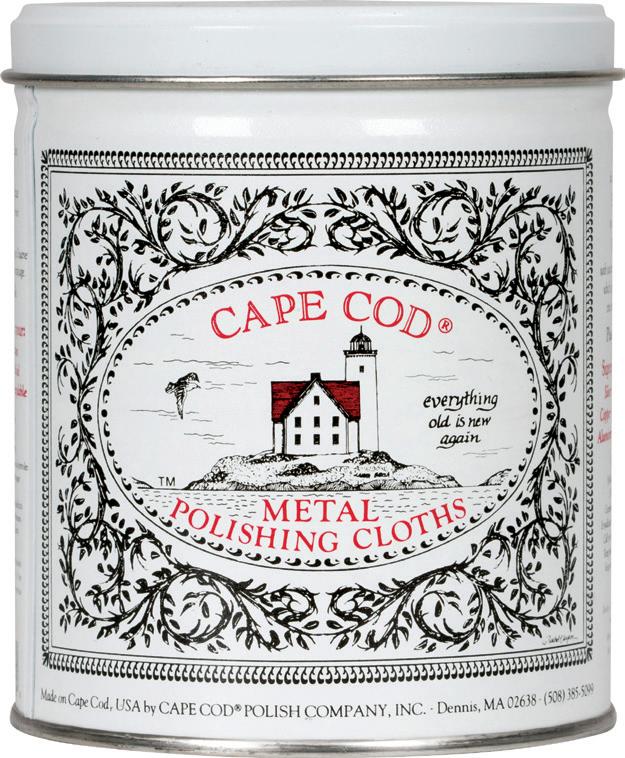
2. Wonderland 2019 Annual Ornament
Handcrafted in Vermont, the Danforth Pewter 2019 Annual Ornament is a scene of wintery friends in the woods framed by two white birch trees. A Swarovski blue crystal hangs above the snowy tree like a shimmering star. DanforthPewter.com

3. Walnut BBQ Carving Board

JK Adams has been making quality wood products in Dorset, Vermont since, 1944. The Walnut BBQ Board is an American classic. Personalization is available on many of JK Adams’ products. Lifetime Guarantee. JKAdams.com

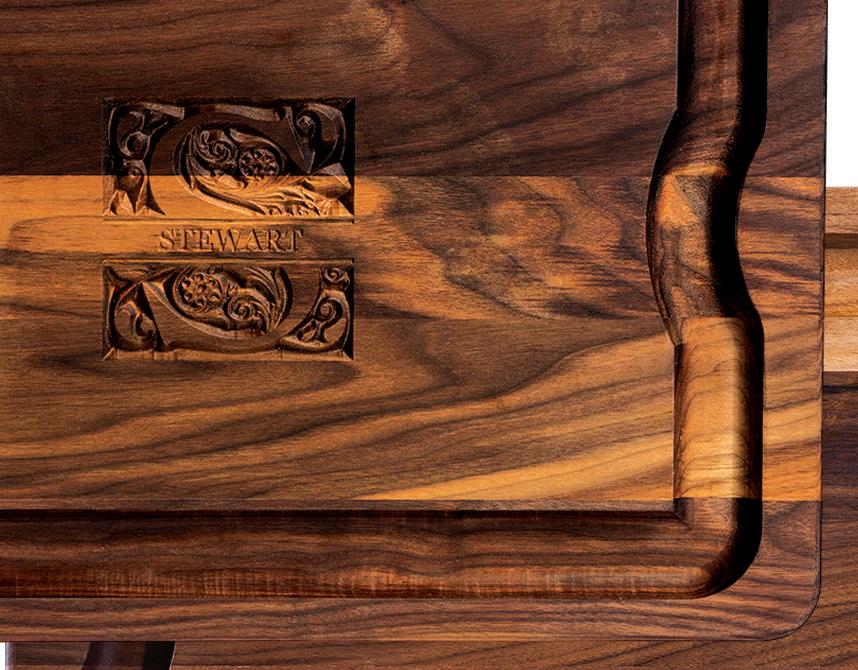
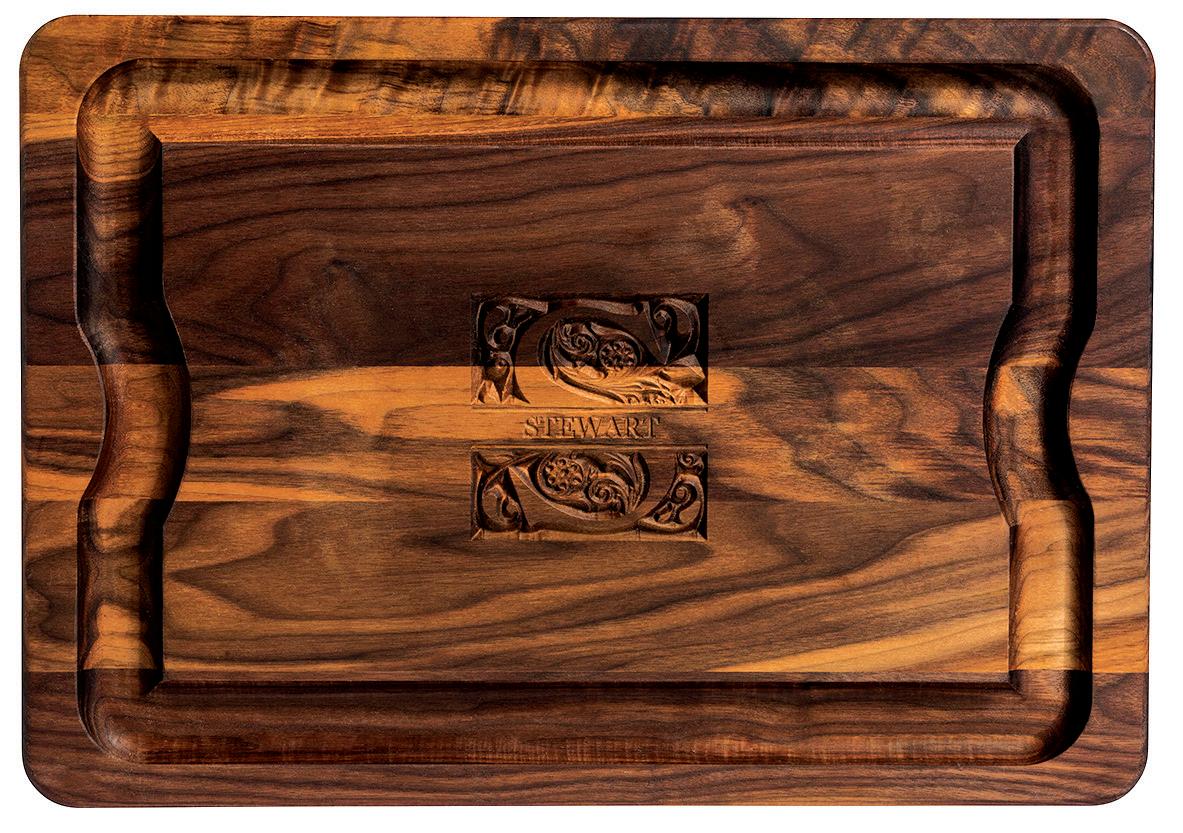
4. Oyster Cove Diamonds Grey Blanket

The Oyster Cove Diamonds ChappyWrap (a MA company) is the perfect addition to your home!
O ering comfortable warmth and breathability, it features a reversible, jacquard-woven design and will never pill or fuzz, ensuring that it will last a lifetime. ChappyWrap.com







 BY ANNIE GRAVES
BY ANNIE GRAVES
can get homesick pretty easily,” confesses Nicole Aquillano. We are standing in a converted studio/garage in Acton, Massachusetts, as she continues, “I think it’s crazy, for how long I’ve been gone. But it meant a lot to me.” She turns the ceramic mug she’s holding, and I see the drawing of an angular house. The image is hand-drawn onto the clay, tinted blue, and slightly blurred. It is her childhood home in Pittsburgh, and it often appears, like a flash of memory, on the pottery she has been producing since 2012.

Bridges appear, too, alongside brownstones, storefronts, stairways. All rendered in simple graphic lines that say a lot, with a minimum of fuss. Architecture reduced to essence. Images lean and tilt across stacks of platters, tall vases, plenty of mugs, ornaments, even thimbles. They’ve caught my eye for years, populating major craft fairs, galleries, and museums.
When you see this work, it’s not surprising to learn that Nicole was once an








OPPOSITE , CLOCKWISE FROM TOP LEFT : Nicole Aquillano in her studio in Acton, Massachusetts; a selection of her favorite tools for etching designs and applying glaze onto her pottery; Aquillano at work, casting forms; shelves filled with finished pieces, many of which reflect the artist’s flair for architectural drawing.
engineer, with a degree from Carnegie Mellon (though in fact she ended up working for the EPA for eight years, writing industrial wastewater permits, she says ruefully). Yet here we are, in this airy studio off the home she shares with her husband, Sam; their little girl, Rafaela; and, soon, a brand-new baby boy. We’re edged in by the plaster molds she’s created to cast her pots, a potter’s wheel parked beside a small kiln, and every inch occupied by pottery in progress.
Clay was always a passion, from her first class in high school. Even when she worked for the EPA, she was taking classes that allowed 24-hour studio access. “I’d go to work, then to the studio every night—it was like a second job,” Nicole says. “My plan was always to retire and then do clay, because I loved it. But then I realized life goes
by too fast. Now was the time.” She applied to the Rhode Island School of Design and finished the two-year graduate program in 2012, after which she began honing the atmospheric images she’s known for.
“I was looking at architecture, but I didn’t ever really think I could draw,” she says. “But I started to draw my childhood home. That’s the first thing I drew. I drew it over and over and over….”
Then, as now, Nicole etches each drawing, freehand, onto the clay, with a slender knife. It is her main tool, and it has the look of a treasured utensil. Its mate is the small natural sponge used to sop up the blue/black underglaze she applies to the surface of the pottery. As she wipes the color away, it remains in the etched lines. After the bisque firing, she applies a clear glaze
that will blur the drawing, before firing it yet again.
“It took a lot of experimenting to get it to run,” she says. “I wasn’t even necessarily looking for that effect. I pulled out work that I’d fired and wasn’t happy with, so I refired it, and it ran a little bit. And I thought, Oh my gosh, this is what I’ve been trying to say! It gave it that runny look, which I always think makes it look like a memory.”
Which is what it’s all about, to “create a story you can hold in your hand forever.” Most of her custom work, she says, is for people who want a portrait
of their childhood home, although she also does a lot of work for museums.

“People are really connected to place,” she says, as we walk from the studio to the kitchen. Here, she picks up another mug—one of the few that has a second color, glowing yellow. “My childhood home does really well,” she says with a smile. “This is an old, old one of my room. I always put the light on because at the very beginning, my mom asked me to.”
Rafaela is still napping, so we never get to meet, but apparently, according to her mother, she plays with Play-Doh all the time. When her daughter is sleeping, Nicole can pour out a table’s worth of molds. “I’m really happy it’s working out, because I had the most amazing childhood in the world,” she tells me. “My mom raised us, me and my two sisters, and we had a blast, and I want to give that to my kids.” There is a long pause. “So far, so good.”
For more information, go to nicoleaquillano.com.
This work is meant to “create a story you can hold in your hand forever.”


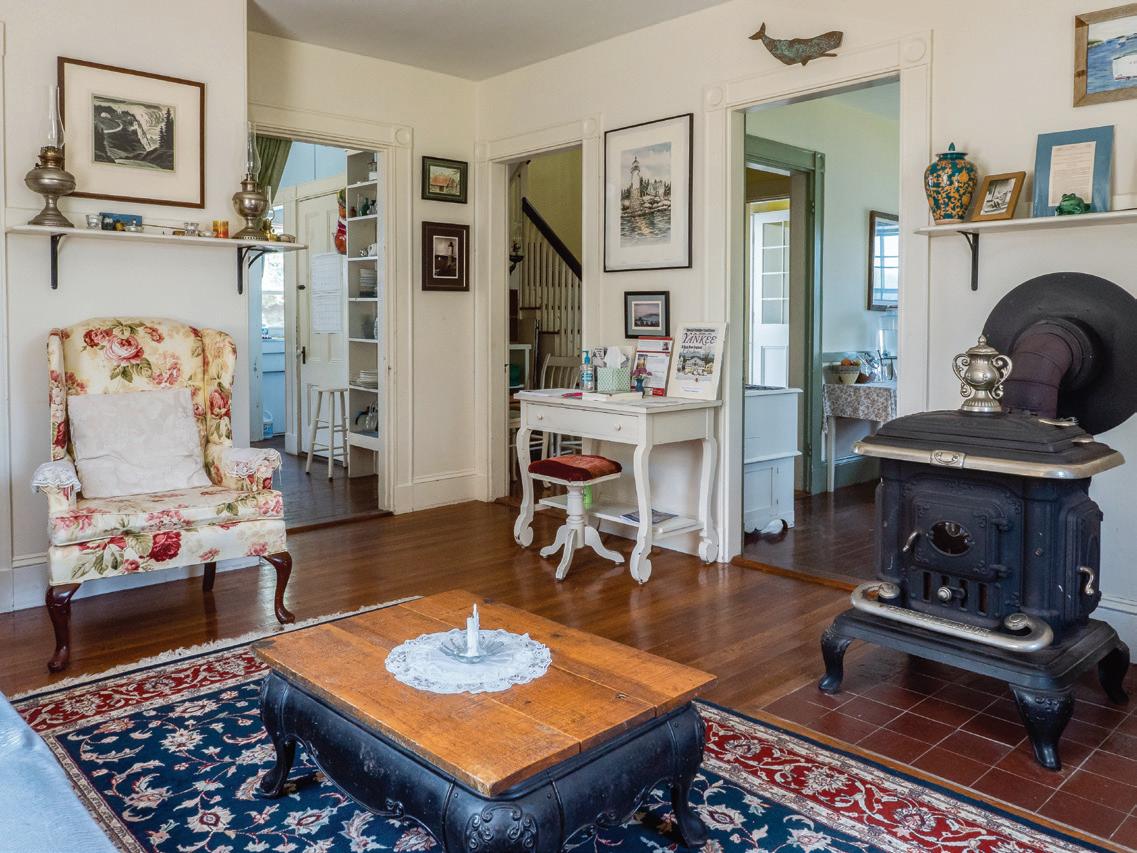
tay awhile on Isle au Haut, and your relationship with time will change. There is something that feels essential, eternal, about this island in Maine’s Penobscot Bay. As I stand on the steps of the keeper’s house at Robinson Point Light, looking toward the rocky shore, the white brick lighthouse, and the blue water of the Atlantic beyond, it’s hard to remember that I have bills to pay or stories to write.
Time passes slowly here, but somehow all history seems recent. The view I’m gazing on is little changed since 1604, when the island’s trio of small mountains led French explorer Samuel Champlain to dub this Isle au Haut (“High Island”). The graceful keeper’s house that I’ve come to see feels like a new arrival, having witnessed only the most recent 112 years of the island’s history.
The lighthouse station on Robinson Point was constructed by the Army Corps of Engineers in the summer of 1907. Comprising the keeper’s house, the lighthouse tower, a small post-andbeam barn, and a boathouse, it was the last full lighthouse station to be built in Maine.
“The person who moves here isn’t just buying an amazing and unique property,” Realtor Jamie O’Keefe had told me as we were motoring toward the island on the twice-daily mail boat. “Island life is its own thing. It isn’t for everyone, and I don’t think you can compare it to anything else.”
In 1934, at the height of the Great Depression, belt-tightening led to the shuttering of Isle au Haut’s lighthouse station. The keeper and his family moved back to the mainland, and the lighthouse was fitted with a batterypowered beacon.
In the years that followed, much of the property was sold back to the heirs of the Robinson family, the original landowners. The federal government owned the lighthouse itself until 1998, when the town of Isle au Haut took stewardship of it.

In 1985, Jeff and Judi Burke saw the keeper’s house for the first time. As the proprietors of the Little River Inn in Pemaquid, Maine, they recognized its potential—or at least Jeff did. He recounts the moment in his 2017 book, The Lighthouse & Me :
I simply couldn’t figure out why all these normally sane people (including my usually rational wife) couldn’t see the guaranteed success of my
Yankee likes to mosey around and see, out of editorial curiosity, what you can turn up when you go house hunting. We have no stake in the sale whatsoever and would decline it if offered.

scheme to create an inn at the old Isle au Haut lighthouse station. Sure, it was an isolated place, devoid of electricity and running water (hence, no bathrooms, not even a place to wash your feet), without a road to access the place nor a safe spot to land a boat. And it had only three rooms. And the islanders detested the tourism threat. And, yes, it would be an outrageously expensive undertaking— and we hardly had a cent.…
In 1986, the Burkes moved in with their youngest son and their dog. When they arrived, water for the kitchen was hand-pumped from a rainwater cistern that filled half the basement. The sewage system was even more basic, consisting of a bucket in an outhouse behind the woodshed. This was just part of what promised to be a daunting challenge, Jeff recalls:












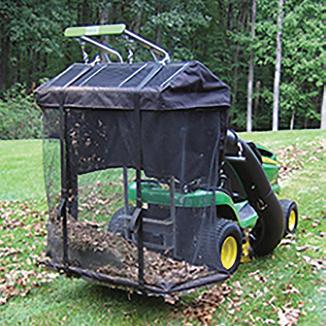
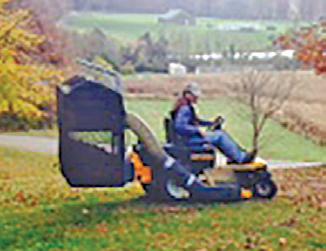



[We’d have to] build a half-mile road and a boat landing, create a sewage disposal system, bring in electricity and plumbing, renovate all the old buildings, and install a commercial kitchen. And then we needed to develop a marketing plan and train a cadre of hospitality professionals, an overwhelming project requiring years to launch. Two months later we opened.


Initially, the Keeper’s House Inn offered an aggressively rustic experience. Guests would hike in, usually with backpacks. There was a makeshift shower in the woods. Water was hauled from the well at a nearby farm. The outhouse remained the only bathroom.



The Burkes improved the property over the next 27 years, helping it gain a reputation as one of the most unusual and beautiful small inns in New England. Today the main house has four bedrooms—all with spectacular ocean views—as well as two bathrooms and an updated kitchen outfitted with a pair of stoves and an industrial refrigerator. The woodshed has been converted into a two-bedroom guesthouse; two other outbuildings are now sleeping cottages.
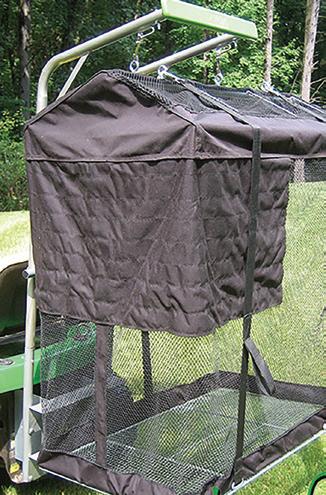
Although the property remains off the grid, there is electricity, courtesy of solar panels and a generator. The cistern has given way to a reverse-osmosis filtering system that makes seawater drinkable. The indoor plumbing drains to a sewage disposal system that utilizes beds of peat moss and other natural systems to process waste.
When the Burkes eventually decided to retire, Marshall Chapman stepped up to continue what they had started. A geology professor at Morehead State University in Kentucky, he had been a graduate student when he first came to Isle au Haut to study the island’s geology. It was love at first sight. “The island will slow you down and teach you patience,” he says. “It is geologically interesting—and the sunsets are amazing.”
After buying the inn in 2013, Chapman would return to the island
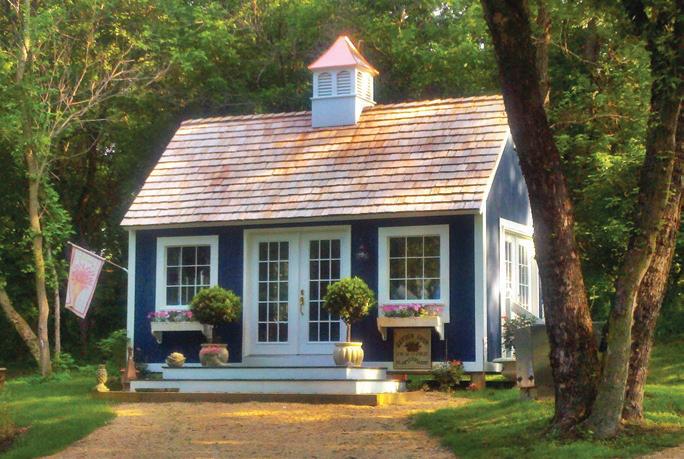

every year in mid-May and stay until August. “Being an innkeeper and a college professor was a lot to juggle, but I had a wonderful chef and a












go of Isle au Haut, but I have to let the keeper’s house go.”

Although he isn’t placing restrictions on how buyers must use the keeper’s house, Chapman would love to see it reopen as an inn. In any case, the new owners should be prepared for visitors.
“This is probably the prettiest two acres on the island, and this property has always been open [to the public],” says Chapman. “The lighthouse is iconic, and people love to see it. I hope the new owners will feel the same dedication to sharing it that past owners have.” —Joe Bills
general manager who made it all possible,” he says.
Chapman’s growing responsibilities at the college, though, forced a tough decision. “I’ve loved having this in my life, but I can’t give it the time it deserves,” he says. “I’m not letting
Including the main house, the guesthouse, two sleeping cabins, a boathouse, and a deepwater dock, this property is listed at $1,975,000. For more information, contact Jamie O’Keefe at the Knowles Company at 207-276-3322 or go to knowlesco.com.
For three generations, the builders, blacksmiths and craftsmen at Country Carpenters have put their hands and hearts into designing and building the finest New England Style buildings available, using hand-selected materials, hand-forged hardware, hand-built and hand-finished by real people. You can feel the difference in your heart.
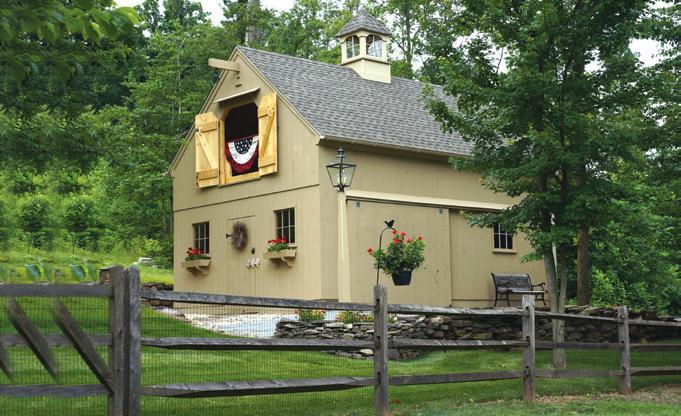
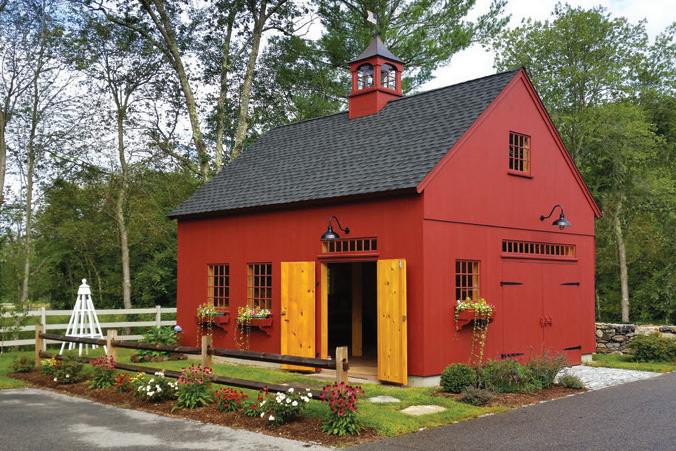

“The island will slow you down and teach you patience ... and the sunsets are amazing,” Chapman says.
America is growing older, there’s no denying it. The median age in America continues to rise—nearly 10,000 people a day are turning 65. By 2030, one in every five Americans will be of retirement age—more than at any other time in U.S. history.
Thanks to improved medical care, this group has a longer life expectancy than any prior generation. They also have greater expectations of their retirement. After all, Baby Boomers, as this demographic is frequently called, have redefined every other social institution they’ve experienced: marrying or having children later in life, moving more often, women more likely to work outside the home, etc. They are also more active than any previous generation—physically and mentally. They are still eager to travel, start new projects, and often looking for new purpose in life.
Boomers aren’t interested in hearing about the “problems of aging”–everyone is aging! Today’s 60and 70-year-olds may be growing older, but they are far from being “old.” In fact, they’re out running marathons, starting second careers, and generally turning the traditional idea of “aging” on its ear.
Unlike their grandparents, this group can’t count on their children living around the corner. Most adult children are more far-flung than ever—no longer is there the reliable son or daughter living just across town. The traditional 1950s family support model that served the previous generation is no longer applicable.
Given that people are living longer, seeking more from their retirement years, and given that social dynamics have changed, how can someone stay independent and still ensure their future health care needs are covered?
There is one solution that has been quietly operating for the past 100 years in the U.S., and whose structure and practices are uniquely positioned for this generation. Continuing Care Retirement Communities (CCRCs) could be described as “retirement communities with benefits.” With over 1,900 across the country, but just a handful in New England, they are often misunderstood.
CCRCs, also called Life Plan Communities, provide three levels of care: independent, assisted living, and nursing. The critical difference is that people enter the community when they are independent and active, able to live safely on their own. They continue to enjoy their independence, free from the worries and timeconsuming work of home maintenance.

With the addition of housekeeping services, inside and outside maintenance, transportation, dining options, and fitness activities, residents of a CCRC have more time to enjoy life, meet friends, and pursue new interests. They create fast friendships and enjoy the benefits of community living. Meanwhile, they have the assurance that if and when their health needs change, they can transition to assisted living or nursing care without leaving their community.
Although CCRCs look like beautiful retirement communities, complete with gyms, pools, libraries and arts rooms, moving there is not a real estate decision. CCRCs are an insurance product, and they are governed by each state’s regulatory body. Therefore, a percentage of a resident’s entrance fee and monthly service fee is considered a tax deduction as a prepaid medical expense—a real advantage for many.

Most CCRCs in New England are not-for-profit, allowing them to focus on improving the quality of life for older adults rather than shareholder value. Not-forprofit CCRCs are more mission driven, with a longterm view towards the future, serving more, and are dedicated to ensuring long-term sustainability. Their goal is to be around in perpetuity, serving in a broader way rather than chasing a market trend.
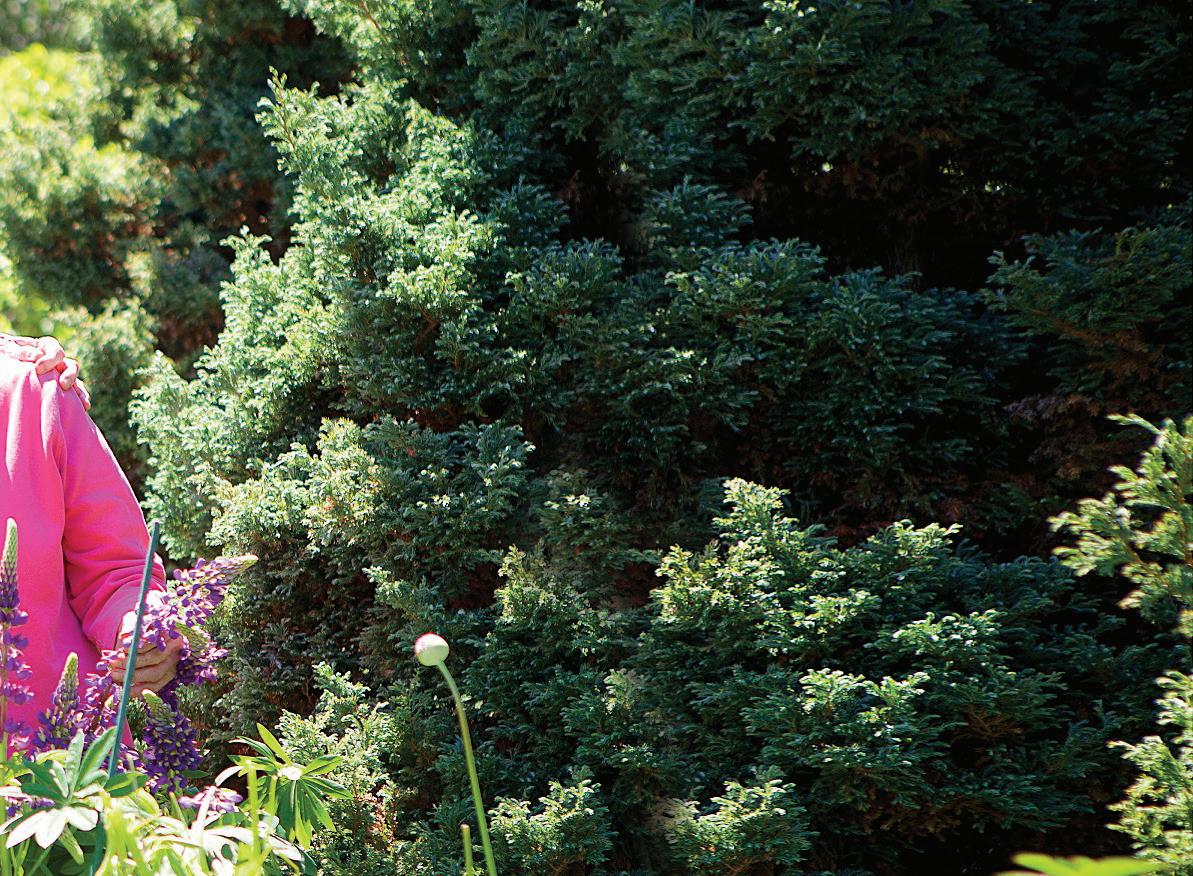
Additionally, non-profit CCRCs typically offer a Benevolence Clause, which provides an opportunity for a resident who might have outlived their assets (and has not intentionally impoverished themselves) to apply to the community for benevolence.


Within CCRCs there are contract differences. Some are Type A, which are all-inclusive plans—as you move from one level of care to the next, your monthly fee does not increase (except for two additional meals per day). Type B, or modified contracts, offer targeted insurance, typically providing a portion of your health care fee at a discount from market price, when you need health care. Type C contracts provide independent living at a lower rate, and then offer health care at full market rate.
The solution that CCRCs offer to the next generation of retirees is clear—the independence of living an active, maintenance-free lifestyle, a community full of life-expanding opportunities and friends, and the peace of mind knowing that if anything changes in your health down the road, you have already chosen where you will receive your care.



To learn more about CCRCs, start by investigating these communities.
Concord, NH www.HHHinfo.com 800-457-6833
Keene,

Hanover,
Exeter, NH www.RiverWoodsExeter.org
800-688-9663
Laconia & Wolfeboro, NH www.TaylorCommunity.org

844-210-1400
Nashua,
Shelburne,
802-264-5100
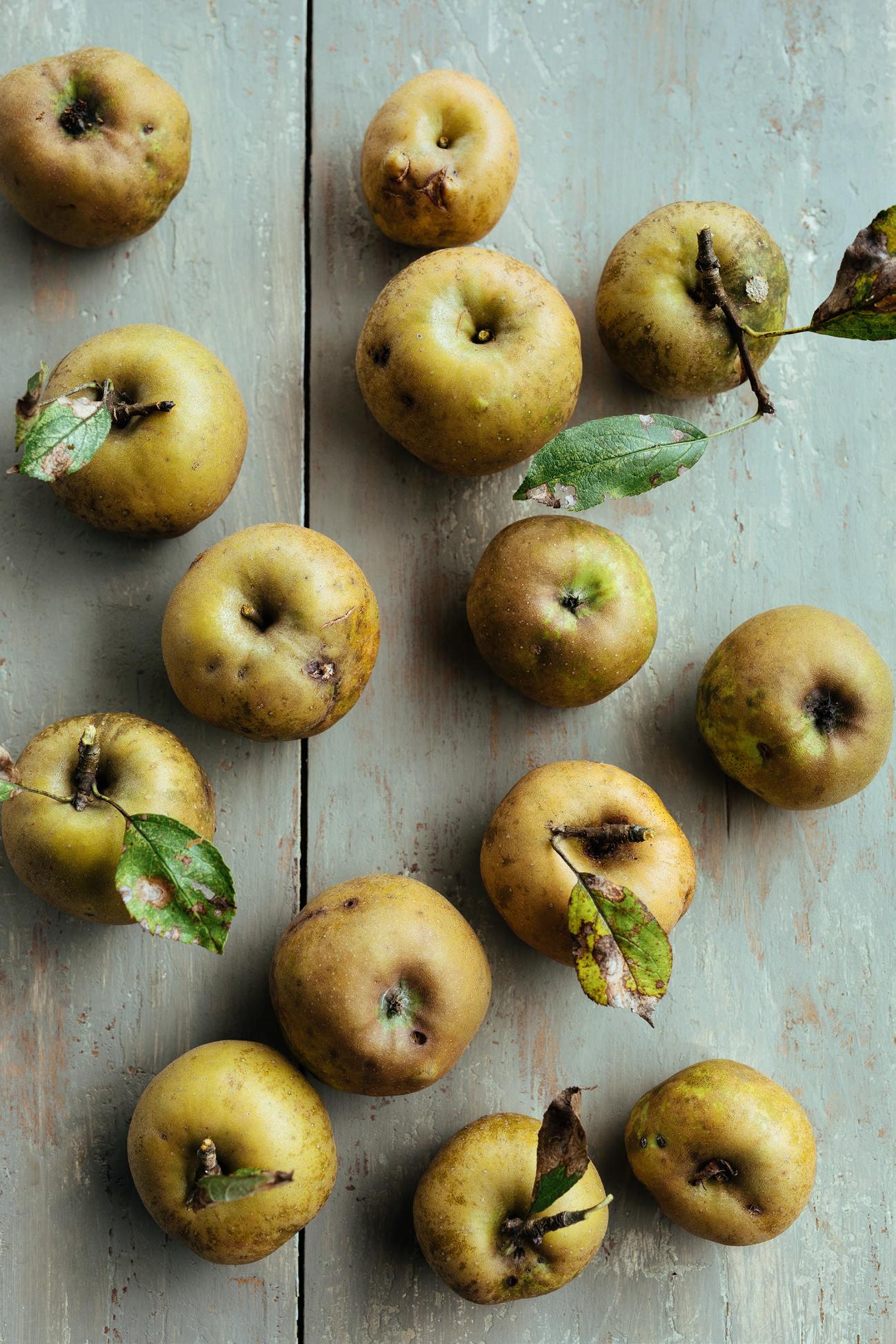 ADAM DETOUR
BY AMY TRAVERSO
ADAM DETOUR
BY AMY TRAVERSO
A family-run orchard in western Massachusetts is making
hard cider that can turn any harvest meal into a party of new flavors.
 Carr’s Ciderhouse owners Nicole Blum and Jonathan Carr.
Carr’s Ciderhouse owners Nicole Blum and Jonathan Carr.
The barn at Carr’s Ciderhouse wasn’t built for show. When Jonathan Carr and Nicole Blum took the title to their farm in Hadley, Massachusetts, the chestnut-sided structure was a centenarian in decline, about as old as the gleaming red Mount Gilead cider press that it now houses.
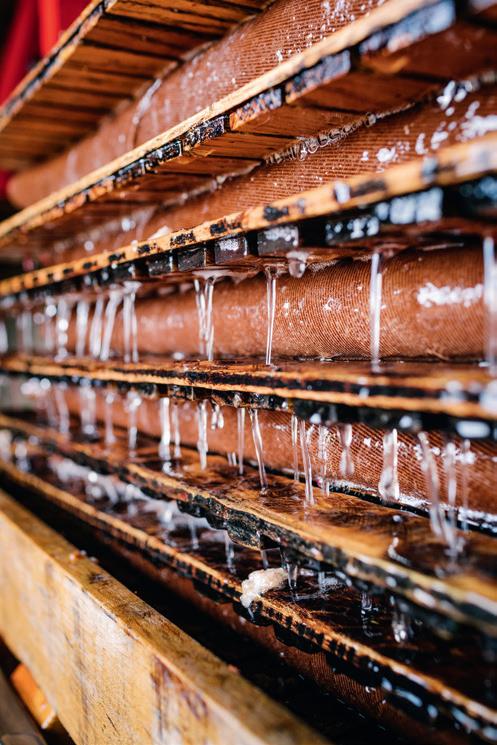
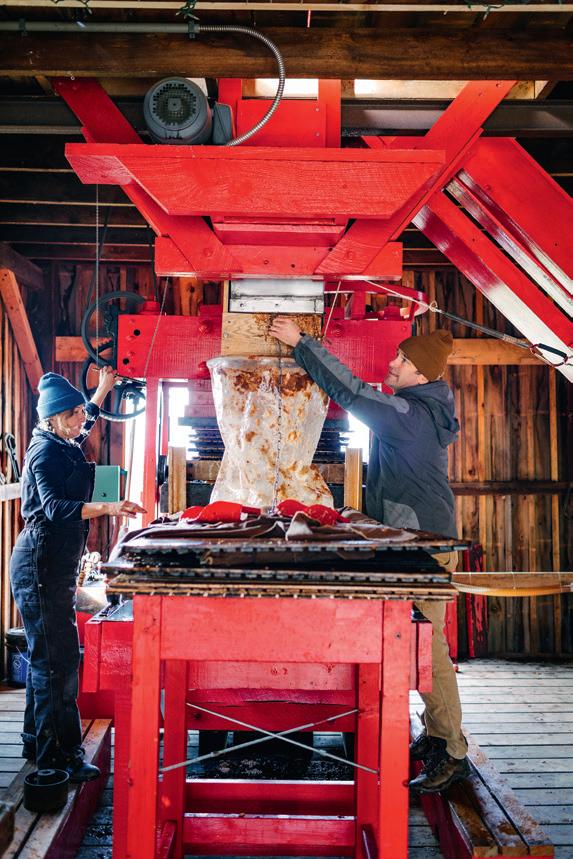
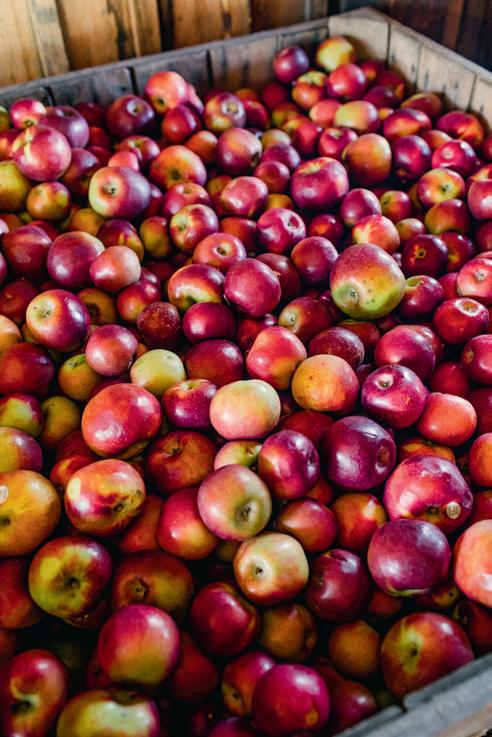
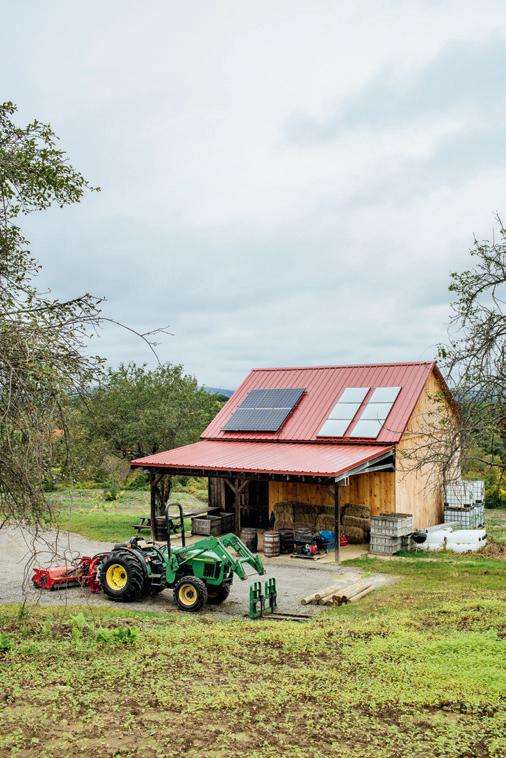

Back when the barn and the press were built, around the turn of the 20th century, cider was already past its heyday as a fizzy, low-proof beverage more popular than beer. When Jonathan found the press for sale in a 2008 classified ad, most people thought of cider only as fresh juice sold in gallon jugs. So when the barn and the press were brought together, the former being rebuilt to accommodate the latter, it was an act of true optimism. Jonathan called it “a hopeful gamble.”
American cider was then in the early days of its current renaissance, dominated by a few syrupy-sweet brands that evoked wine coolers more than apple wine. But the couple stepped into the breach with a clear vision: to grow apples sustainably, to be good stewards of the land, and to make exceptional ciders.
“When we bought the orchard, it was basically going into abandonment,” Jonathan says. “It was unnavigable in a tractor and, frankly, kind of scary, because some of the slopes are pretty severe.” The previous owner had planted the standard New England mix—Cortland, Red Delicious, McIntosh—but most of the trees were weakened by neglect and age.
So the couple began clearing land at the top of the hill, with its sweeping views of the Connecticut River Valley, and planted 1,500 trees in varieties they thought they could grow without pesticides: Golden Russet, Goldrush, and traditional cider apples such as Yarlington Mill and Dabinett.
“The goal was always cider,” Jonathan says. “The table-fruit market is tough, and we wanted to manage the

orchard ecologically. Cider was a great way to not have to worry about the appearance of the fruit.” Plus, having already operated a small market farm together, “we didn’t just want to grow and sell the raw materials,” Nicole says. “We wanted to make something.”
Fast-forward to a crisp day this past November, and the once-humble barn is strung with lights to welcome visitors making their way up the farm’s long, rutted drive, dodging puddles from the previous night’s rain. The sky is deep blue and nearly cloudless, and Carr’s is hosting a cider tasting as part of Franklin County Cider Days, an annual festival that brings thousands to this rural corner of western Massachusetts.
For Jonathan and Nicole, this day comes smack-dab in the middle of a harvest season that ran late, and bins of apples still need pressing. But the old press is quiet today, as Jonathan talks
visitors through the process of turning fresh fruit into the fermented finished product that they’ll be sampling in a moment: how wooden bins, each containing about 600 pounds of fruit, are tipped onto a sorting table and their contents are ferried up a narrow escalator to the third story of the barn, where a grinder breaks them down into the pulp from which their juices can freely flow. Above Jonathan’s head hang the oak and elm pressing racks, burnished with years of apple tannins. “At the end of the day we’re all covered in apple splatter,” he says. “Then we hose the whole thing down and start over.”
What he’s describing is standard cider-making procedure, whether for fresh juice or the hard stuff. But he lights up most when he talks about what they do once all that juice is gravity-fed into stainless steel fermentation tanks. And that is ... as little as possible.
“We don’t add commercial yeast,” he explains. “All fruit has many species of wild yeast that are naturally present on its skin. We found that if you ferment these wild yeasts at cool temperatures, you get good results. And that’s how they would’ve done it in the old days.”
That means letting the juice sit in this uninsulated barn for months at a time, the initial fermentation held in frozen suspense until the warm spring weather can restart the process. It’s a technique that the couple first observed in the cider-making regions of Ireland—where Jonathan was born and
where he and Nicole first tried their hand at farming—and in Normandy and England’s West Country. And it’s the key to producing the well-structured ciders that eschew sweetness but bring forth aromas such as orange, fennel, and rose petals.
“When people who’ve only had mass-produced cider ask what ‘wild fermented’ means, I’ll often use the analogy of sourdough bread,” Nicole says. “You have Wonder Bread, which is soft and squishy, but then you have bread from an artisan baker where there’s so much flavor and structure because they’ve added the element of time.”
Lately, they’ve also been working with their friend Matt Kaminsky, an apple expert, to bring wild apples from the surrounding fields and forests into the mix. “We’re grafting them out in the orchard to see how well they perform in that environment,” Jonathan says. “The idea is to produce a ‘native’ apple cider, rather than just using European varieties.”
And they keep tinkering. Some of the juice they press now gets boiled down, like maple sap, into cider syrup, a rich, caramel apple–flavored sweetener with a long New England history (the product won a Yankee Editors’ Choice Food Award in 2015). And after a trip to Canada during which they met a balsamic vinegar producer using apples rather than grapes, a line of vinegars was born. “We want to figure out ways to preserve everything that we love to do with apples,” Nicole says.
They’ve also been cooking with apples in every form, and that wisdom was recently funneled into Ciderhouse Cookbook: 127 Recipes That Celebrate the Sweet, Tart, Tangy Flavors of Apple Cider, which they cowrote with Nicole’s sister, chef and food writer Andrea Blum.

“There’s a lot of pressure in the business world to specialize and build your brand around one particular thing,” Jonathan says. “And certainly we felt that when we first started out with our cider. But we realize we want to be generalists.”
Just this year, they’ve added chestnut and Japanese walnut trees, persimmons, papaws, and elderflowers to their test garden. And they want to do more tastings at the barn. “All these new plantings are being done with the idea of keeping our community fed,” Nicole says. Like any farmer, she takes the long view, knowing it’ll be years before the new trees bear fruit and reveal whether they’re suited to their particular microclimate. “We want to be resilient,” she says. “The climate is changing. Hedging our bets, diversification is going to be our friend. And we’ll keep thinking
Gems found…First light… Minutes out of the ground, just 28 miles north of our store
Tourmaline, green tourmaline, a color, a shade of medium bluegreen-teal we call SparHawk.
We have over one-hundred pieces of SparHawk Maine tourmaline jewelry on display. Visit us to see these pieces and experience the thrill of Maine’s most recent gem discoveries. CrossJewelers.com/tour

about all the different things we can ferment or process in some way to preserve them.”
The following recipes are all adapted from Ciderhouse Cookbook , used with permission from Storey Publishing.
Perfect for a casual Sunday brunch, these light and fluffy pancakes are elevated by some extra-special ingredients: rich ricotta, sprightly sugared apples, and cider syrup (you can always substitute maple syrup).
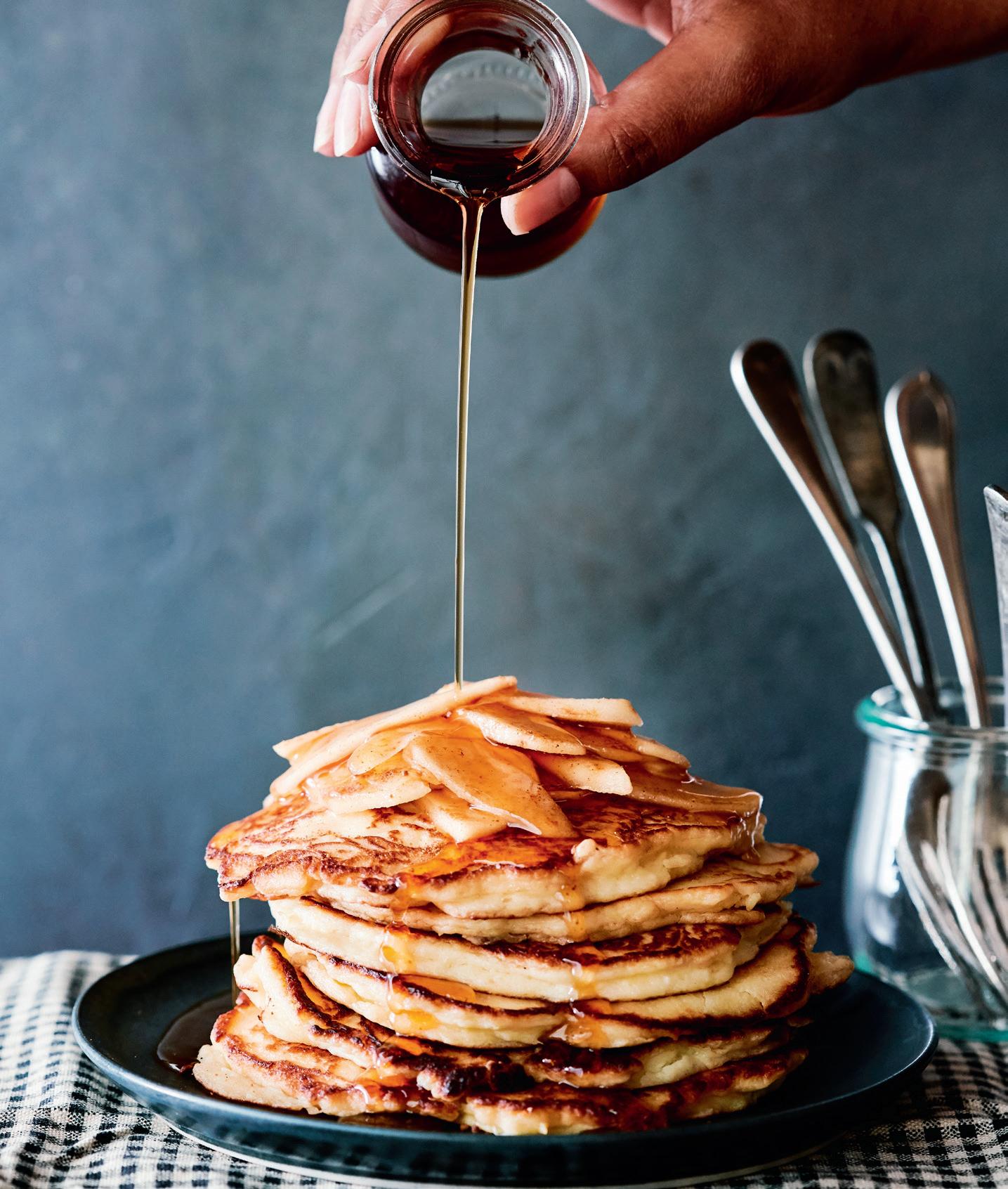
Zest and juice of 2 lemons
3 apples, peeled, cored, and thinly sliced
1 teaspoon ground cinnamon
1 tablespoon plus 2 tablespoons granulated sugar
2½ cups whole-milk ricotta
5 eggs, whites and yolks separated
1½ teaspoons vanilla extract
½ cup (1 stick) butter, melted
1 1⁄ 3 cups all-purpose flour
Butter, for the griddle
Cider or maple syrup, for serving
Fill a bowl with water and add 2 tablespoons lemon juice. Submerge the
apple slices, then drain and transfer to a separate bowl. Add the cinnamon, 1 tablespoon sugar, and 1 teaspoon lemon juice, and toss.
Combine the ricotta, 2 tablespoons sugar, egg yolks, vanilla, lemon zest, and remaining 2 tablespoons lemon juice in a large bowl and mix. While stirring, add the butter and flour; mix until completely incorporated.
Pour the egg whites into a large bowl and beat until they form stiff peaks. Gently fold them into the batter.
Heat a bit of butter or oil on a griddle over medium heat. Ladle the batter onto the griddle, forming pancakes about 5 inches across. Fry the pancakes until golden brown on the bottom, 1 to 2 minutes. Flip and fry until golden on the other side, about 1 minute longer.
Drizzle with syrup, and serve with sliced sugared apples. Yields 6 servings.
“Normally, you’d think about red wine with a dish like this,” Nicole says. “But if you have a tannic cider, it’s acting in a similar way.” These slow-cooked short ribs are tender and falling off the bone. The hard cider serves to cut through and balance the richness of the ribs.
2 tablespoons plus 1 tablespoon kosher salt
4–5 pounds beef short ribs
3 tablespoons plus 1 tablespoon vegetable oil
2 large onions, thinly sliced
5 cloves garlic, minced
2 tablespoons chopped fresh thyme leaves
1 cup cider syrup
1 cup sweet cider
1 cup plus 1 cup dry hard cider
½ cup chopped dried figs
1 teaspoon cider vinegar
2 bay leaves
1 sprig fresh rosemary
Zest from 1 lemon, finely grated, for garnish
Handful of fresh parsley or cilantro leaves, for garnish
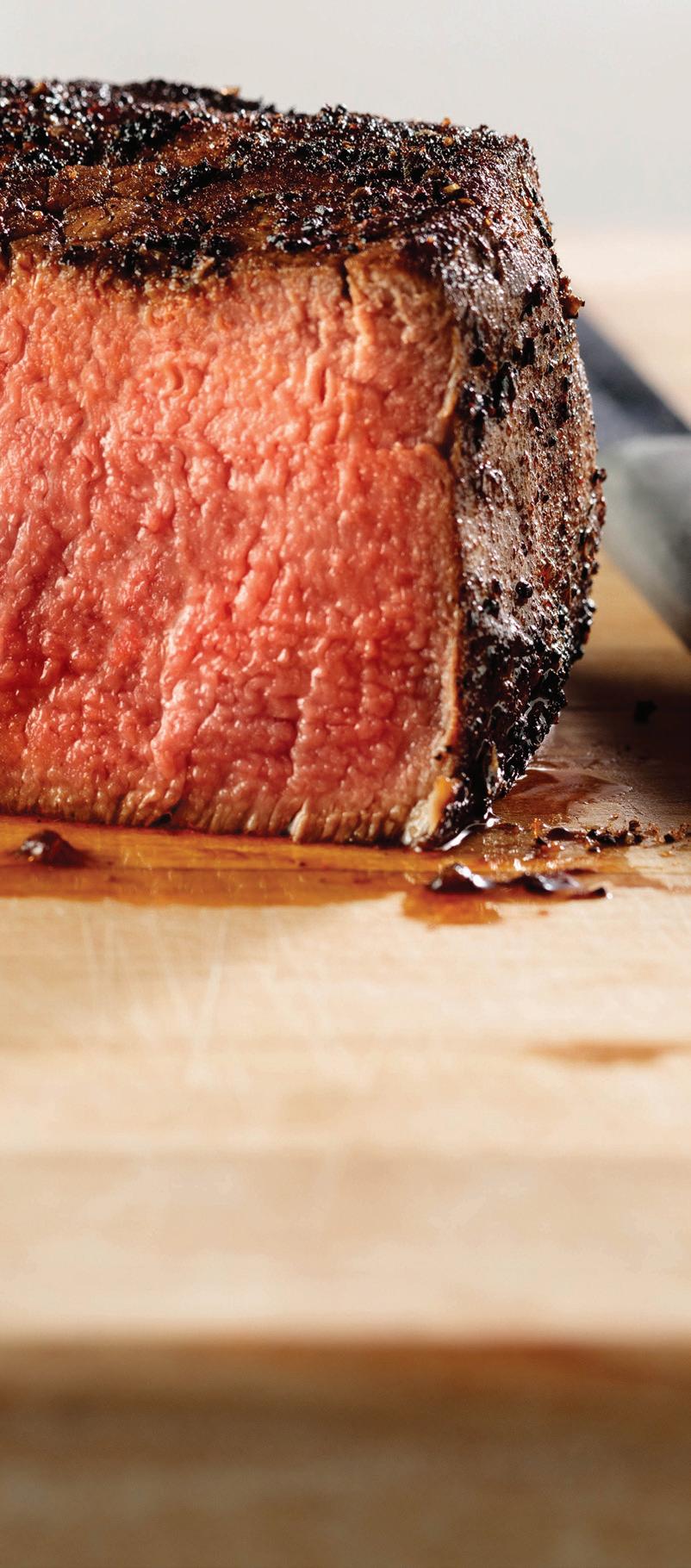

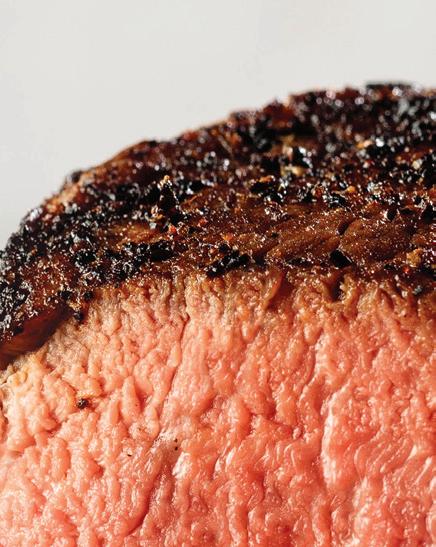


















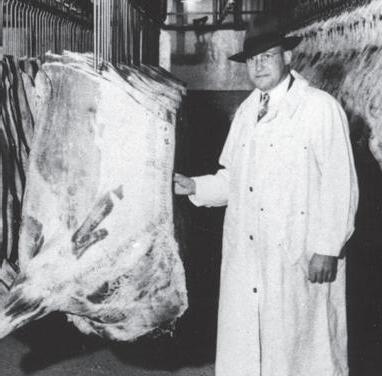

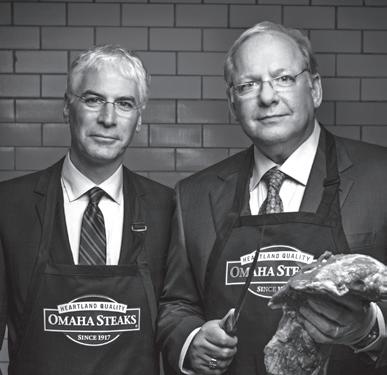











Rub 2 tablespoons salt into the ribs. If possible, do this a day before cooking and let the ribs rest, covered, in the refrigerator. If you don’t have time, salt the ribs 1 hour before cooking.
Preheat the oven to 300°. Heat 3 tablespoons oil in a skillet over medium-high heat, then sear short ribs in batches to brown, about 4 minutes per side.
Meanwhile, heat 1 tablespoon vegetable oil in a Dutch oven over medium heat. Add the onions and cook, stirring to brown slightly, 8 to 10 minutes.
Stir the garlic, thyme, and remaining salt into the onions, then add the ribs to
the pot. Pour in the cider syrup, sweet cider, and 1 cup hard cider (the liquid should not cover the ribs completely). Scatter in the dried figs. Cover and set in the oven. Cook until the meat is falling off the bone and is a rich, dark color, 2½ to 3 hours. Transfer to a heatproof dish suitable for serving.
Pour the pan juices through a strainer into a large glass measuring cup. Skim off the fat and discard. Combine the juices, 1 cup hard cider, and the vinegar, bay leaves, and rosemary in a small saucepan over high heat. Bring to a boil, then reduce heat and let simmer for 15 minutes. Pour
the sauce over the ribs. Sprinkle with lemon zest and parsley or cilantro. If you’re not going to serve it right away, cover the dish and keep it warm in the oven at 200°. Yields 6 servings.
This recipe is everything you’d want in a kale salad: lots of kale, the sweet caramelization of roasted squash, the brightness of quick-pickled onion, the tang and saltiness of feta, and the crunch of toasted pecans. It is beautiful to look at and potluck-worthy!
1 small red onion, thinly sliced crosswise
½ cup cider vinegar
½ cup water
2 teaspoons granulated sugar
½ teaspoon plus ½ teaspoon kosher salt
½ butternut squash, peeled and sliced crosswise into ¼-inch-thick half moons
2 tablespoons extra-virgin olive oil
2 bunches kale, stemmed and chopped
¾ cup toasted pecans

½ cup crumbled feta cheese
FOR
¼ cup sweet cider or cider syrup
¼ cup cider vinegar
¼ cup extra-virgin olive oil
½–¾ teaspoon kosher or sea salt
1 small clove garlic, crushed
First, pickle the onion: In a small saucepan over medium-high heat, simmer the onion with the cider vinegar, water, sugar, and ½ teaspoon salt for 3 minutes. Remove from heat and set aside.
Preheat the oven to 400°. Arrange the squash on a baking pan lined with parchment paper, making sure that the slices don’t overlap. Drizzle with olive oil, then sprinkle with remaining salt. Roast until the squash begins to brown, 20 to 30 minutes. Set aside to cool.
Make the dressing: While the squash roasts, combine all ingredients in a Mason jar, screw on the lid, and shake well to emulsify.
Make the salad: Put the kale in a large mixing bowl. Add ½ cup dressing and vigorously massage it into the kale for about 15 seconds, or until leaves are nicely coated. Strain the onion, add to salad, and toss well.
Transfer to a serving platter and scatter the squash, pecans, and feta over the top. Drizzle with more dressing, if desired. Yields 6 servings
APPLE POMMEAU CAKE
“In Ireland, these kinds of tea cakes often have brandy or some sort of liqueur in them,” Nicole says. “Pommeau is apple brandy mixed with cider, and it isn’t quite as strong, but you can always substitute straight apple brandy.” She recommends enjoying the cake with a perfectly steeped cup of Irish breakfast tea.
1½ cups granulated sugar
3 large eggs, at room temperature
1 cup extra-virgin olive oil
½ cup (1 stick) salted butter, melted, plus more for pan
¼ cup pommeau or apple brandy
1 teaspoon vanilla extract, or seeds from 1 vanilla bean pod
3¼ cups all-purpose flour
1 teaspoon baking powder
1 teaspoon ground cinnamon
Pinch ground cloves
Pinch sea salt
1½ cups coarsely chopped pecans
4 apples, peeled, cored, and coarsely chopped Confectioners’ sugar, for dusting
Preheat the oven to 350°. Butter a 9-inch springform pan and line the bottom with parchment paper.
Combine the sugar and eggs in a large bowl and beat well with an electric mixer. With the mixer running,
slowly pour in the olive oil and then the melted butter in a steady stream, beating until the batter is emulsified. Mix in the pommeau and vanilla.
In a separate bowl, whisk together the flour, baking powder, cinnamon, cloves, and salt. Add this mixture, cup by cup, to the wet ingredients and stir until combined. Stir in the pecans and fold in the apples.
Use a spatula to turn out the thick batter into the prepared pan and smooth the top. Bake until the center is firm to the touch and the crust is craggy and golden brown, 1 hour and 15 minutes.
Let it cool slightly, then remove from the pan and set on a rack to finish cooling. When completely cool, dust with confectioners’ sugar. Yields 8 servings.
Make a lasting impact for generations to come. Invest in New Hampshire PBS.
nhpbs.org/leadership


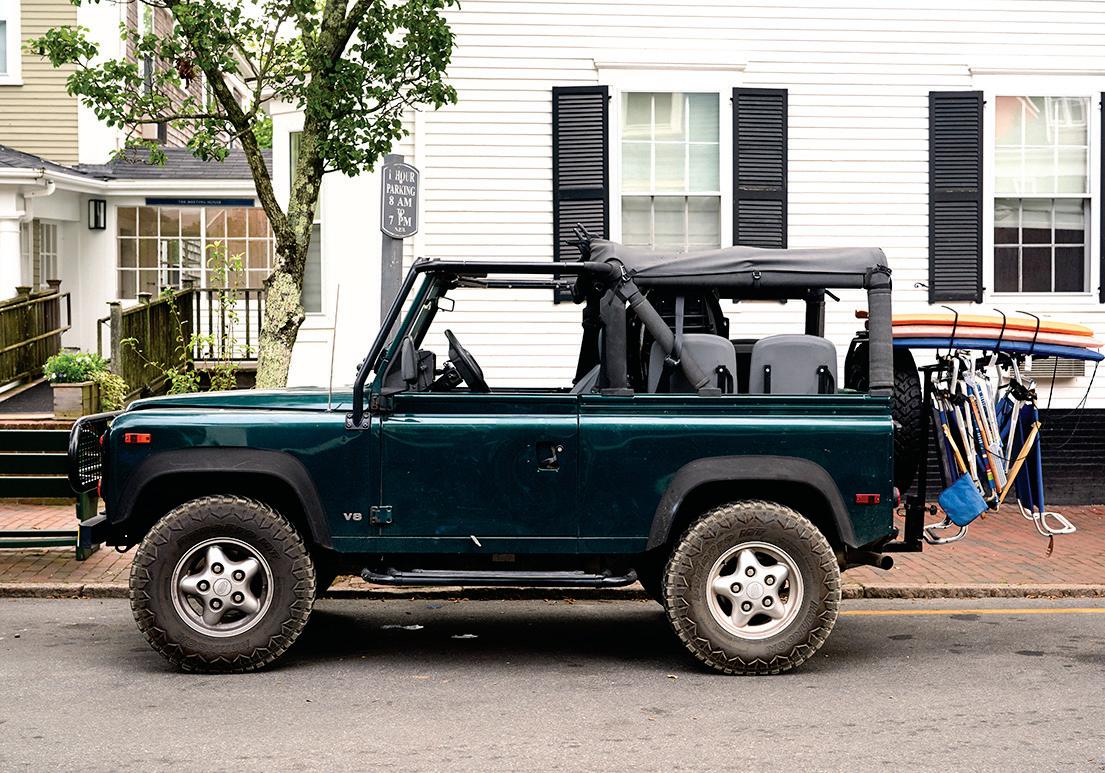



















ilming our TV series, Weekends with Yankee , is a weather-dependent exercise, since we do much of it outside. For the most part, we’ve been lucky, capturing more blue-sky days than any New Englander should rightly expect. But when we visited Kelly Way Gardens in Woodstock, Vermont, last fall, gray clouds capped the hills, sending a steady drizzle down into the valley.
We already knew we would be pushing our luck to shoot a farm in October, after the first frost. But we also knew this farm was the work of Benjamin Pauly, an architect and plant whisperer whose childhood on a Minnesota homestead trained him in the ways of cold-weather farming. And Pauly’s creation didn’t disappoint.
The highlight of our visit was a hoop tunnel over which Pauly had trained a menagerie of ornamental gourd vines, their exotic fruits hanging overhead like Seussian disco balls: dark green speckled swan gourds dangling alongside pale birdhouse gourds and mammoth five-foot-long Kikinda gourds that resembled mutant string beans. Just outside the hoop house, we picked up some less showy but more delicious red kuri squash for a recipe I’d be preparing later. Mercifully, the rain held back until just after we’d gotten the final shot.
The farm is a project of the Woodstock Inn & Resort, where Pauly came to work as a concierge after his Peace Corps stint in Togo, West Africa. He impressed his bosses at the inn, but he soon grew restless, eager to pivot
back to agriculture. So in 2013 they made him an offer: Their parent organization, the Rockefeller Foundation, owned a former dairy and horse farm nearby. Would he like to take it over?
Pauly set about carving this new farm out of several acres of rocky hillside soil and turning it into a mini Eden, with more than 200 varieties of vegetables, a mushroom glen, beehives, and beds of herbs and edible and ornamental flowers. Then the inn took two long-neglected barns and turned them into an event space and a demonstration kitchen, where Pauly and executive chef Rhys Lewis host classes and parties.
In those warm confines we took refuge as the rain intensified, and Lewis and I cooked up a rich squash tart with herbs from the garden and cheddar from Woodstock’s Billings Farm, just up the road. Meat-free and fancy enough for company, it’s the perfect meal for a cool fall day.
FOR THE CRUST
1¾ cups all-purpose flour, plus more for rolling the dough
¼ teaspoon table salt
12 tablespoons (1½ sticks) cold unsalted butter, diced

1–3 tablespoons ice water




FOR THE FILLING
1 pound winter squash, peeled, seeded, and diced
1 large onion, thinly sliced
2 cloves garlic, minced
2 sprigs each rosemary and basil, stemmed and chopped
4 sprigs thyme, stemmed and chopped
1 teaspoon kosher salt

¼ cup extra-virgin olive oil







1½ cups heavy cream
3 large eggs
1⁄ 8 teaspoon freshly grated nutmeg
6 ounces cheddar cheese, shredded
First, make the crust: In a medium bowl, whisk together the flour and salt. Sprinkle in the butter, then work it in with your fingertips until the dough looks like cornmeal with pea-size lumps of butter. Add 1 tablespoon cold water and stir with a fork just until the dough comes together. If the dough is very crumbly, add the remaining water. Gather the dough into a ball, press it into a disk, then wrap it in plastic wrap and chill for at least 45 minutes and up to 2 days.
Preheat your oven to 350° and set a rack to the lower third position.


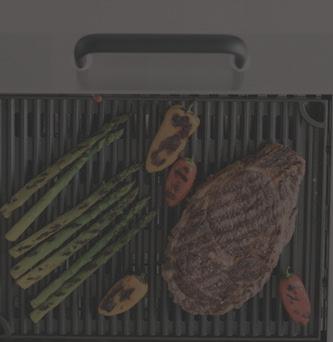





Prepare the filling: In a large bowl, toss together the squash, onion, garlic, herbs, and salt, then drizzle with the olive oil and toss again. Arrange mixture in a single layer on a baking sheet and roast until tender, 20 to 25 minutes. Remove and let cool to room temperature.
In a medium bowl, whisk together the cream, eggs, and nutmeg. Set this aside.
Remove the dough from the refrigerator, then roll out on a lightly floured surface to a circle about 14 inches wide and 1⁄8 inch thick. Transfer to a 12-inch tart pan with removable rim, press down into the edges, and trim away the excess crust. Set the tart pan on a baking sheet.


Sprinkle half the shredded cheese evenly over the crust. Top with the squash mixture and sprinkle with the remaining cheese. Pour the egg mixture over all. Bake until golden brown and cooked through, 30 to 40 minutes. Let cool, then remove from tart pan and serve. Yields 8 servings.
Follow Amy Traverso’s culinary adventures on our public television series, airing nationwide and online at weekendswithyankee.com
We grew up summers on the ocean here in Maine, sails and sailboats, wind and waves, islands and secret coves.
We still have our family cottage, we’re closing in on one hundred years. Summertime and the living is easy. Waves on the shore, sunlight on the water, lobsters in the cove. It doesn’t get any better than this.
Two showcases of Ocean Lover’s Jewelry. Want to see it all. Two hundred and forty-eight piece ocean lover’s collection. Everything is shown on our website. See full selection on-line. or visit us in Portland.

sugaring. In Spring, when the









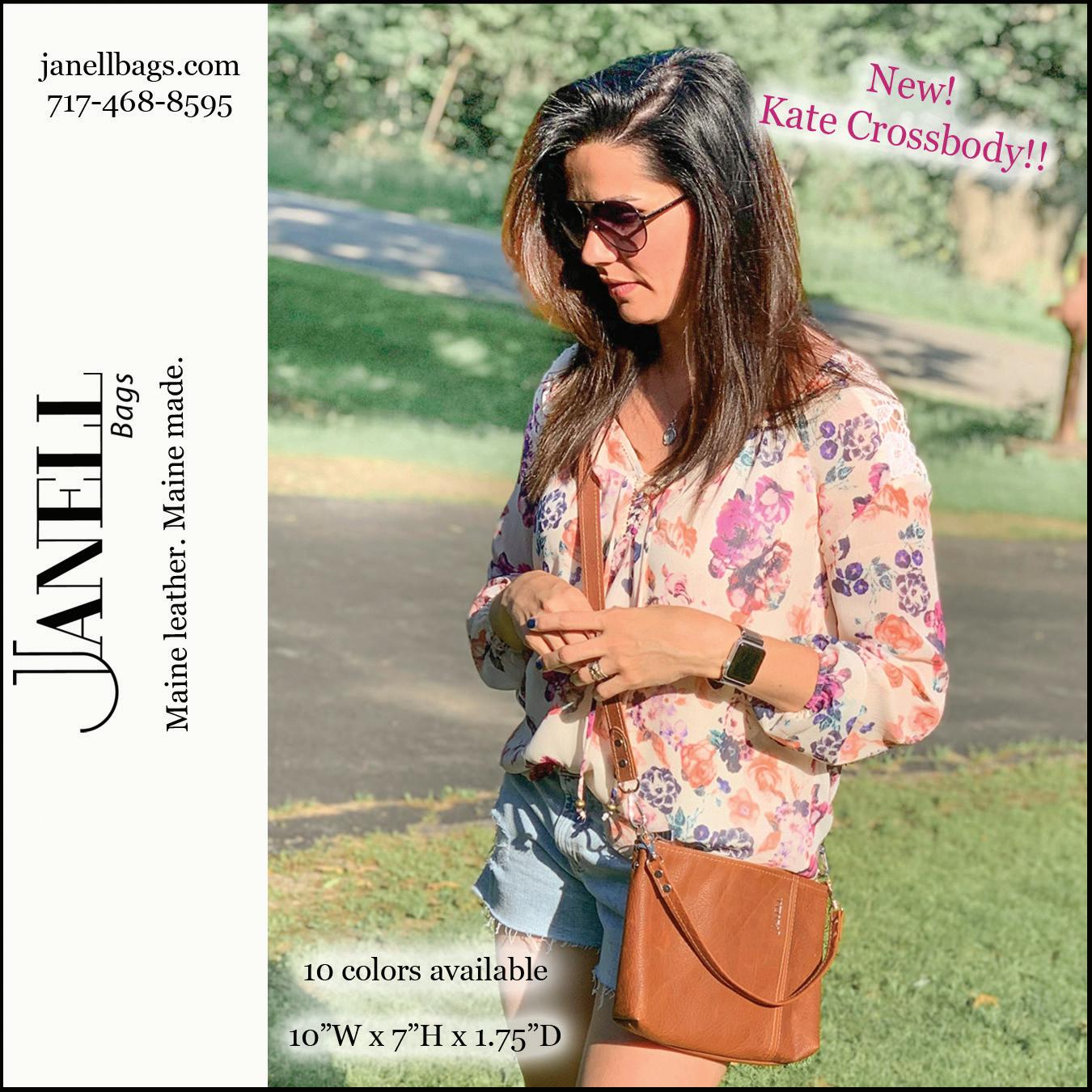
has been processed, each Tree Lessee will get at least 60 oz. of the finest 100% pure wood-fired MAPLE SYRUP in decorated jugs (30 oz. guaranteed to Branch Lessees) – even more if Mother Nature is bountiful. We do all the work, your friends get the delicious results, and you get the raves!

Tree Lease $69.95 + S/H Branch Lease $59.95 + S/H 100% satisfaction guaranteed since 1979. Please visit our new website: RentMotherNature.com Phone (800) 232-4048










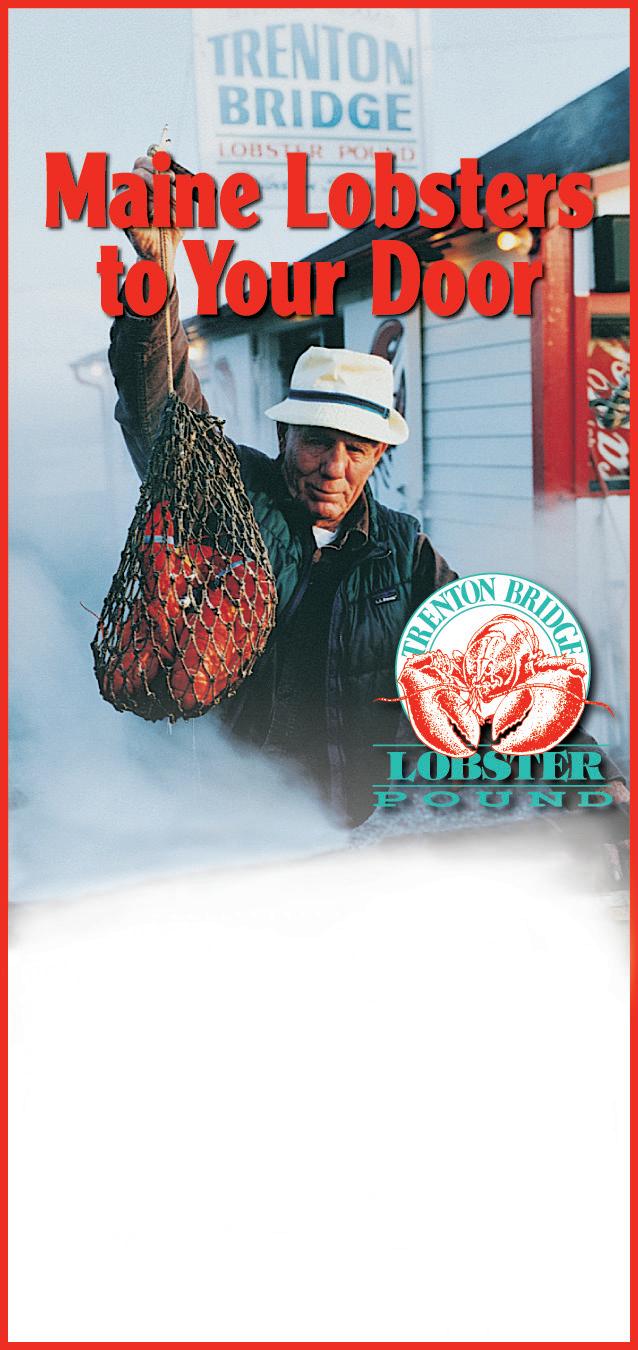

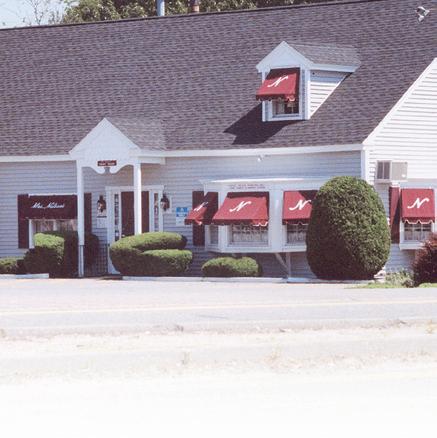
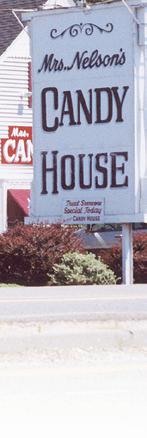







are HANDMADE using the finest quality ingredients, and are fully cooked before packaging. One dozen delicious pierogi are nestled in a tray, making a one pound package of pure enjoyment!
are handmade using the finest quality ingredients,and are fully cooked before packaging. One dozen delicious pierogi are nestled in a tray, making a one pound package of pure enjoyment!


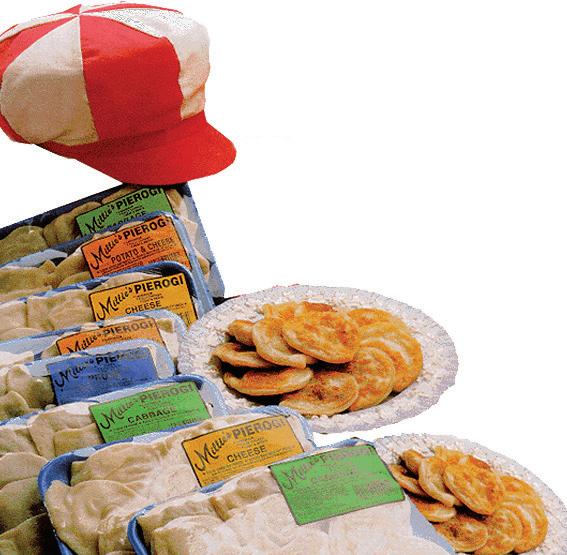

You can get Millie’s Pierogi with these popular fillings:• Cabbage • Potato & Cheese

• Farmer’s Cheese

• Blueberry • Prune

• Potato & Cheese with Kielbasa • Potato & Onion
Turns any day into an occasion – order today! Box of 6 trays-$42 • Box of 10 trays-$63


Box of 6 trays-$46 • Box of 10 trays-$69 Polish Picnic-$45 • Polish Party Pack-$69 Kapusta & 5 trays–$49
Polish Picnic-$43.50 • Polish Party Pack-$66 Kapusta & 5 trays–$45.50 • Plus Shipping






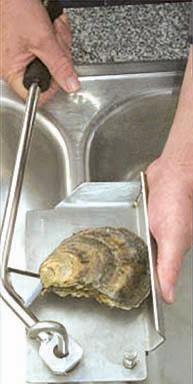
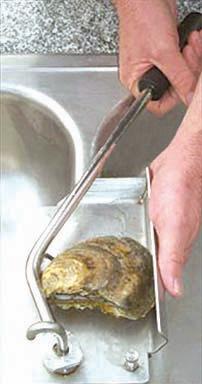




















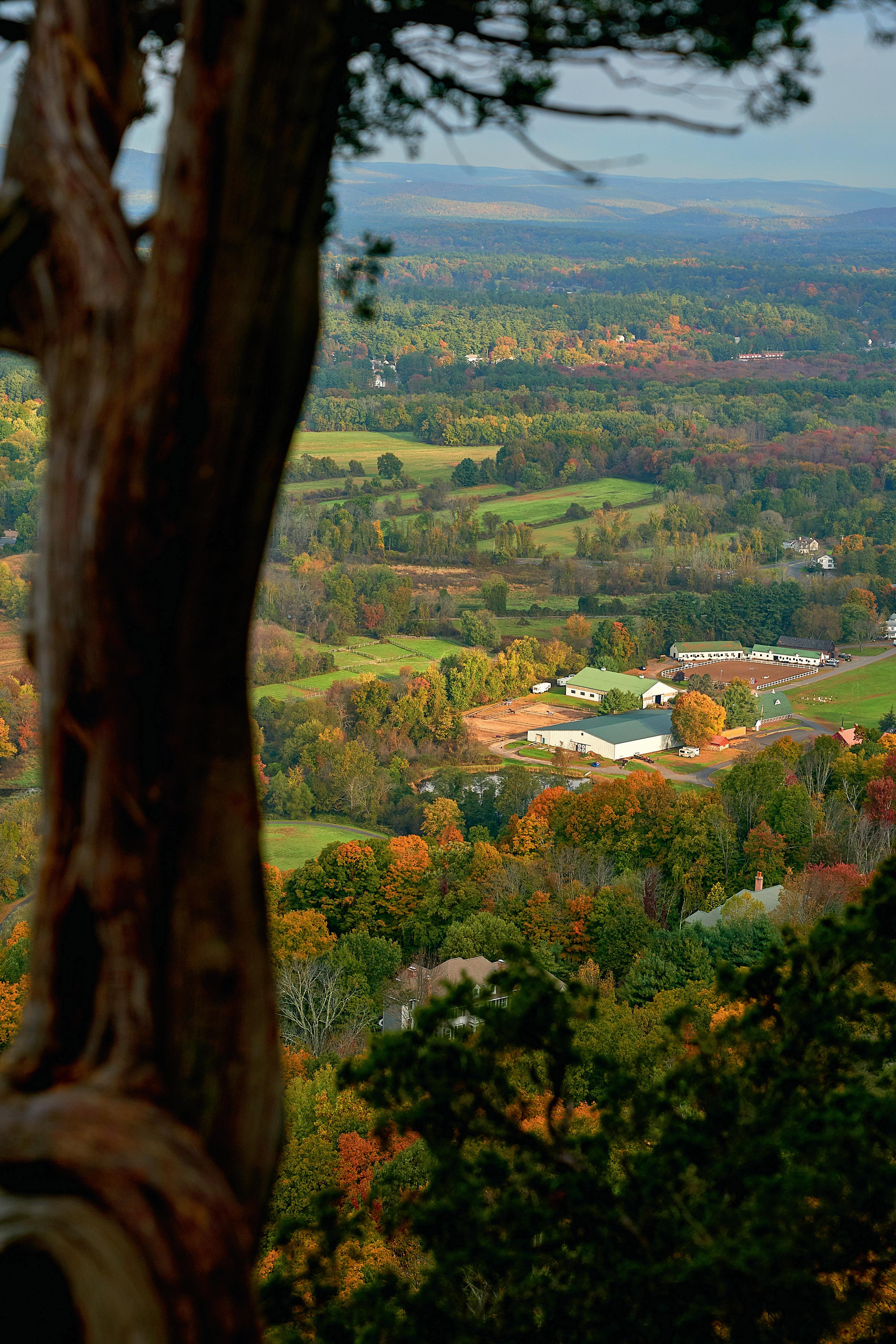 clockwise from left : Simsbury’s woodlands and fields as seen from a hiking path on Talcott Mountain; Heublein Tower, originally built by a Hartford businessman who had promised his wife “a castle on a mountain”; biking on the Farmington Canal Heritage Trail; local landmark Flamig Farm, with its backward “EGGS” sign.
SIMSBURY
clockwise from left : Simsbury’s woodlands and fields as seen from a hiking path on Talcott Mountain; Heublein Tower, originally built by a Hartford businessman who had promised his wife “a castle on a mountain”; biking on the Farmington Canal Heritage Trail; local landmark Flamig Farm, with its backward “EGGS” sign.
SIMSBURY
uilt in 1914, Heublein Tower stands jauntily atop Connecticut’s Talcott Mountain like a ruby-tipped white feather in the cap of a town with much to celebrate. But this 165-foot landmark straight out of fairy-tale Bavaria isn’t merely decorative—it’s a destination. When autumn colors start to pop, vista-seekers make the mile-and-a-quarter trek up the Tower Trail and climb a six-story staircase to reach the tower’s observation room. Face north, and you might make out New Hampshire’s Mount Monadnock. To the east, nearby Hartford appears surprisingly Emerald City–ish. And to the west is southern Vermont. No, wait, that’s Simsbury: a suburban town of 23,000 camouflaged by farms and wild spaces, whose supercharged civic spirit will fuel six months of 350th anniversary festivities next year.
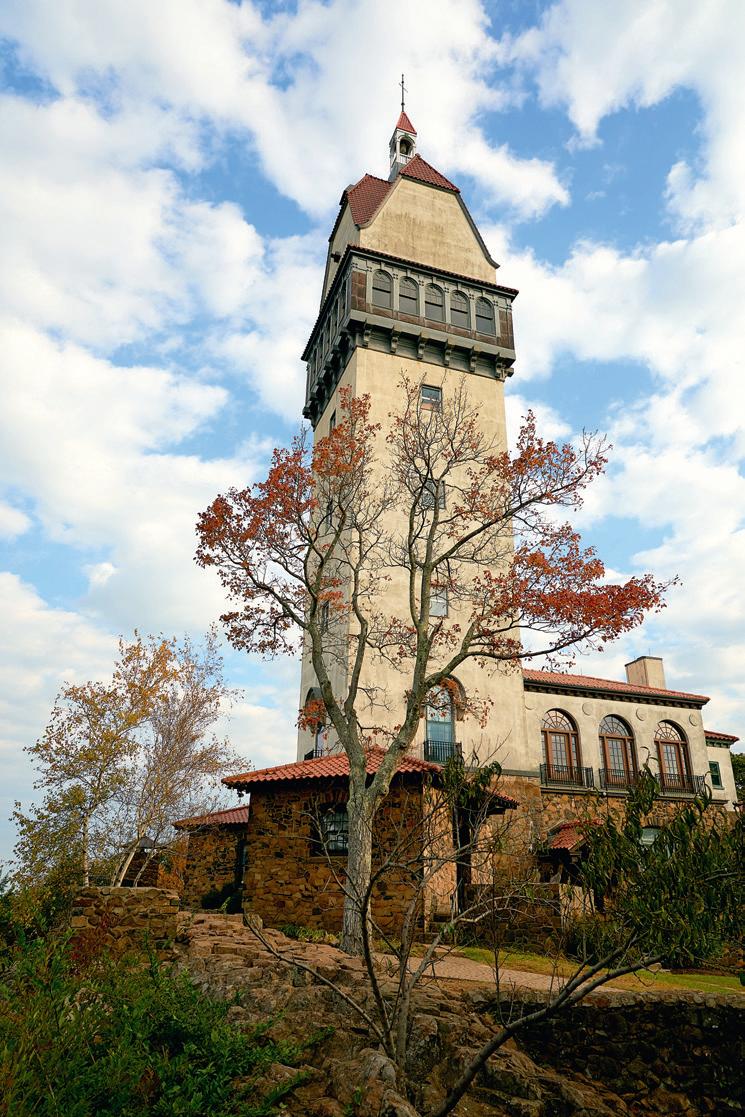
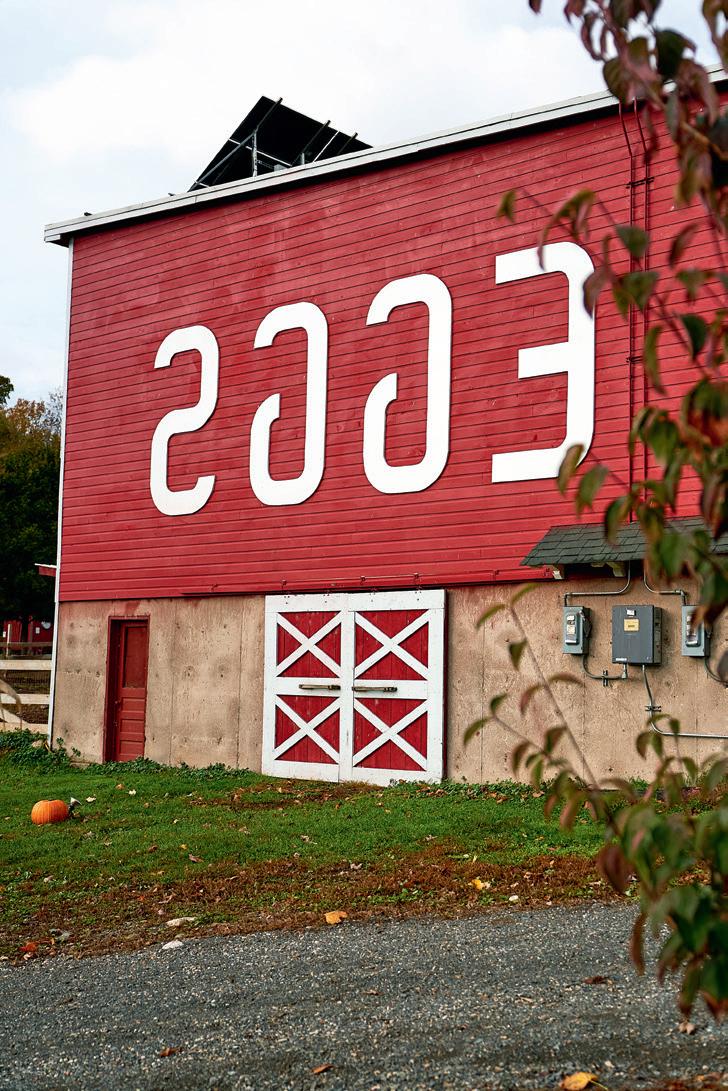
In your push to reach the top of the tower, you might have overlooked a certain blue leather chair that happens to be where Eisenhower was sitting in 1950 when he caved in to pressure to run for president. Places with hidden histories are par for the course in Simsbury, where residents are used to playing, dining, shopping, and even ordering a Starbucks soy latte inside such structures. They bike alongside Ensign-Bickford’s 19th-century fuse factories and drive past tobacco barns where Martin Luther King Jr. toiled for two formative teenage summers. The main drag, Hopmeadow Street, is a 3-D textbook of three-plus centuries of architecture, preserved yet utilized.
Here, in Connecticut’s first town to be nationally recognized as a “silver”level bicycle-friendly community, you’ll instantly notice cyclists on five completed miles of the East Coast Greenway multiuse trail. Bike racks are ubiquitous, and the nonprofit Simsbury Free Bike makes loaners available at convenient locations.


Rural beauty and suburban polish come together seamlessly in a classic but under-the-radar New England town.PHOTOGRAPHS
The big steel bicycle near the town’s southern entrance was welded by local artist Vicente Garcia, whose self-built studio in the woods is itself a masterpiece. Visit it by appointment, and you’ll see Garcia’s distinctive smoke-fired ceramic vessels, which gained fame through a viral video that has sparked commissions from as far away as California. For a creator whose inspiration springs from within, Simsbury is an ideal place to be visible and to “get lost,” Garcia says. “I love to fish. I can be in the river with my little boat in 15 minutes— I’ve timed myself.”
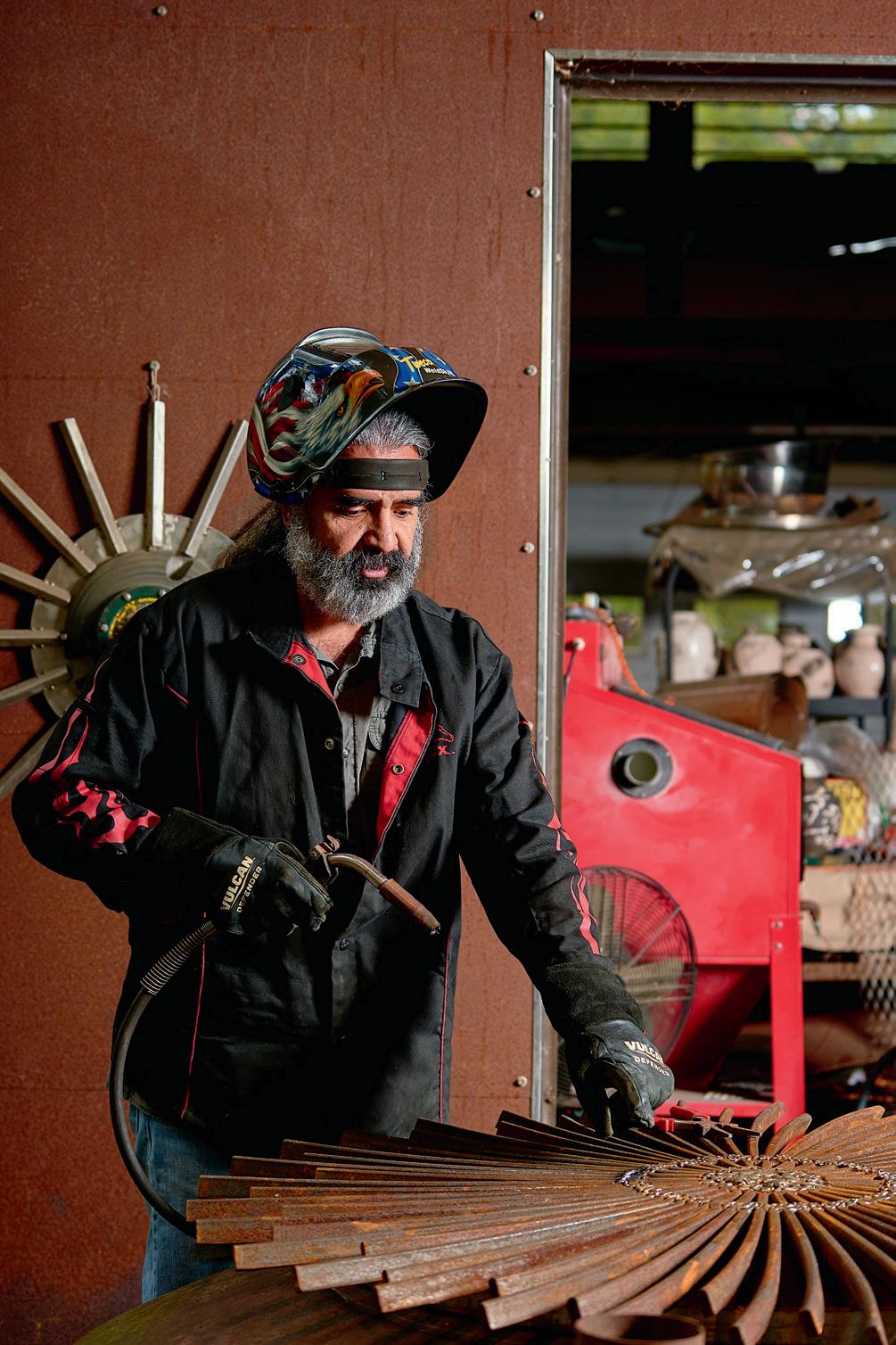
Surrounded by traprock ridges, with the Farmington River rippling through downtown, Simsbury exists in a not-really-on-the-way-to-anywhere bubble. No highway signs point visitors here from interstates, even though
Bradley International Airport lies only 10 miles away. There’s open space to roam, as nearly one-third of the land is protected from development. Simsbury Farms, a former apple orchard transformed into a recreational hub, has public golf, tennis, swimming, and ice-skating facilities. And while construction of a riverfront park has forced the temporary closure of the Old Drake Hill Flower Bridge, the park will debut and the cherished attraction will bloom anew in time for next spring’s 350th anniversary kickoff.
Mornings can be sinful at Harvest Café and Bakery, where waffles are crowned with mountains of whipped cream, and Benedicts swim in Hollandaise. Indulge more healthfully with Popover Bistro & Bakery’s vegan treats or ultra-light namesake pastries, which have only 110 calories (until you
add meat- or veggie-loaded scrambled eggs). Grabbing a maple-walnut scone at Ana’s Kitchen works, too.
Three chefs with the chops to cook anywhere helm restaurants in evocative old buildings here. Christopher Prosperi, who has elevated tastes in Connecticut through his classes and media appearances, recently moved his 20-year-old Metro Bis to the 1906 Ensign House, where his eclecticAmerican take on the fall harvest will tempt you right off the bike path. Meanwhile, Top Chef and frequent James Beard Award contender Tyler Anderson runs his “baby,”
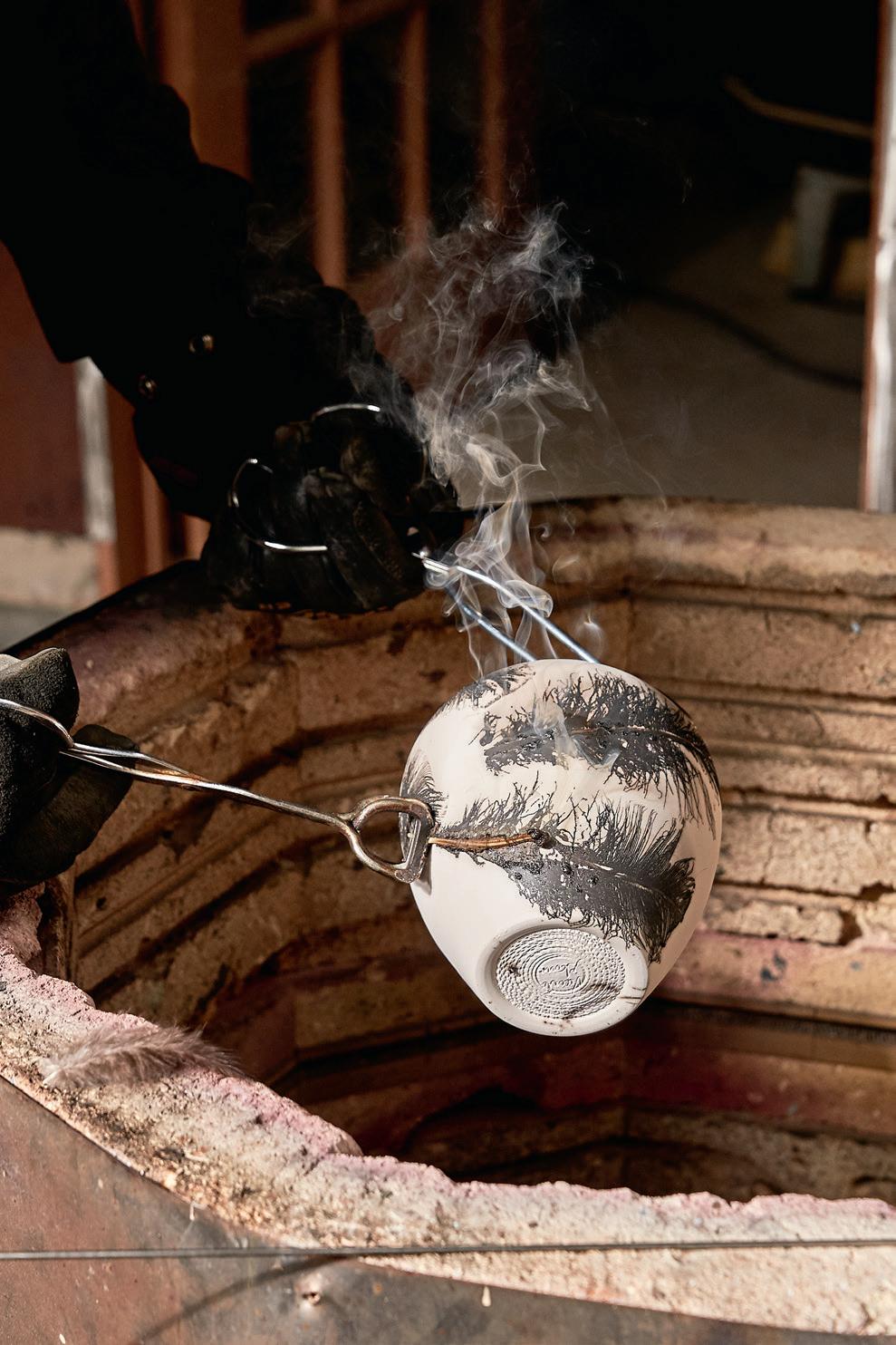
“A juried show of contemporary American crafts and fine art, but with a vibrant soul that many similar exhibitions reach for but never attain. At Paradise City, jazz melodies float in the air, while the food soars beyond expectations. Most remarkable are the art pieces themselves... a unique visual arts institution.”
“If you only get to one fair this season, make it the Paradise City Arts Festival in Northampton!
Saturday, Sunday & Monday
OCTOBER 12–14


NORTHAMPTON, MA
Indoors & Under Tents at The 3 County Fairgrounds
Handmade in America
Meet 240 of the nation’s finest artists and makers at New England’s leading arts fair.



“Eye-popping visual splendor!”
Millwright’s, in a 1680 sawmill, whose waterfall and foliage views pair with New England cuisine crafted to mimic nature’s artistry.
Finally, Simsbury native Jeffrey Lizotte offers pure culinary theater in his one-room Present Company, located in the stable of the 1868 Tariff ville Mill. As they savor foraged mushrooms, squash, shellfish, and other prime fall foods, diners can take in all the action in the open kitchen. Lizotte, whose talents first emerged in Simsbury High’s culinary program and led him to stints in New York City and France, says it’s “a dream come true” to create not just meals but also new memories in the town where he grew up.

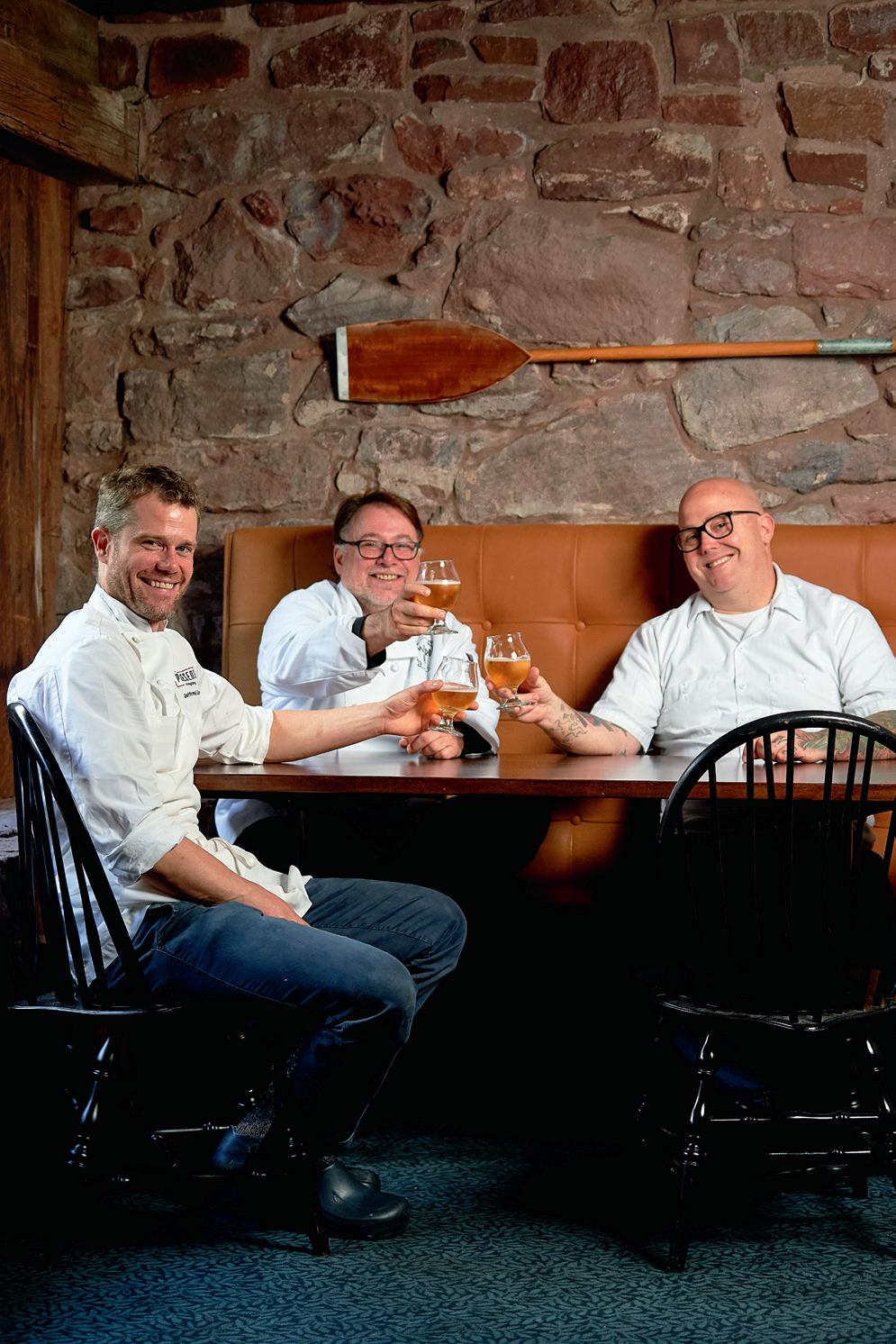
Hopmeadow Street’s prettiest showrooms are clustered in Simsbury Town Shops. Pop in on goldsmith Sarah
Byrnes and ask to see gold and silver pendants cast from her hand-carved homage to Simsbury’s Pinchot Sycamore, Connecticut’s largest tree. At the Silver Dahlia, discover decor and gifts in the forever-summer colors of brands like Vineyard Vines, as well as souvenirs that literally say Connecticut. At Ava Grace, a softer palette permeates the curated fashions, home accents, and keepsakes. Continue north to find Necker’s Toyland, a family-owned store founded in 1948 that survives on the quality and diversity of its newfangled and nostalgic playthings.
Written in letters eight feet high, the word EGGS appears on a barn at Flamig Farm, but it’s spelled backward—which makes it art, not advertising, and thus avoids running afoul of the zoning board. This is the kind of creative spirit that helps keep agri-
cultural enterprises thriving in Simsbury: Rosedale Farms has added wine tastings and a corn maze to its enticements; 250-year-old Tulmeadow Farm’s ice cream, in flavors like pumpkin and Indian pudding, can’t be beat.
Though Nevin Christensen’s family has owned Flamig Farm since 1907, “so many people think of this as their farm,” he says. Parents and kids love freeranging around the petting zoo, cups of feed in hand for befriending barnyard beasts. By day, the scariest encounter might be a sideways glance from a
beady-eyed emu, but on four October nights, hayrides through dark woods filled with live-action Halloween horrors call to brave souls ages 8 and up.

Even when it’s not a big birthday year, Simsbury celebrates incessantly. Fall traditions include the historic local airport’s Fly-In, Car Show & Food Truck Festival (September 22); Tower Toot, which coaxes hikers up Talcott Mountain with German tunes and the aroma of grilled bratwurst (October 19–20); and the Spooktacular Chili Challenge (October 20). The year’s most beloved event, always held the Saturday after Thanksgiving, is a hometown holiday fest known simply as Simsbury Celebrates. Be there for the lighted fire truck parade, fireworks, and merriment in the streets, and you’ll feel uplifted by a community that counts its blessings in spades.
Making this a town that’s walkable, bikeable, and fit for lovers of literature, the Storytellers’ Cottage is a one-of-akind enterprise situated in a mint-green Victorian mansion. It offers mystery rooms for solving, immersive events for fans of all literary genres, and open hours for reading or writing in themed spaces such as the steampunk library. A “writer in residence” is available to offer critiques of patrons’ work.
Two miles and more than 150 years may separate the Simsbury Inn and Simsbury 1820 House, but guests of these sister properties share equally in access to the inn’s conservatory-style indoor pool, four dining options, and complimentary breakfasts, bikes, and shuttle transportation. Whether you choose the inn for its Talcott Mountain views or the 1820 House for its
town-center convenience (or its ties to famous locals, including pioneering forester and Pennsylvania governor Gifford Pinchot), you’ll find a surprise on your pillow: a tiny historical-fiction storybook set in Simsbury.
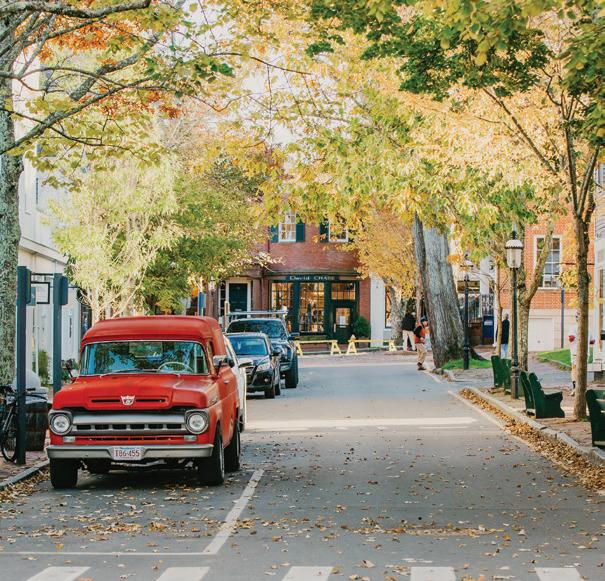
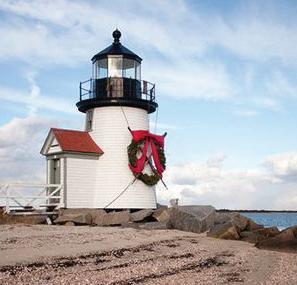



Most family homes in Simsbury— such as a walk-to-town, four-bedroom colonial—get snapped up when they’re priced under $300,000. Look to West Simsbury for custom-built properties like a window-walled, midcentury-modern stunner priced at $545,000. There’s new construction, too, for the first time in decades. Cambridge Crossing’s single-family homes appeal to first-time buyers and down sizers reluctant to retire elsewhere. Got $475,000 to invest? In time-forgotten Tariffville, a 1900 Catholic church begs for divinely inspired redevelopment.

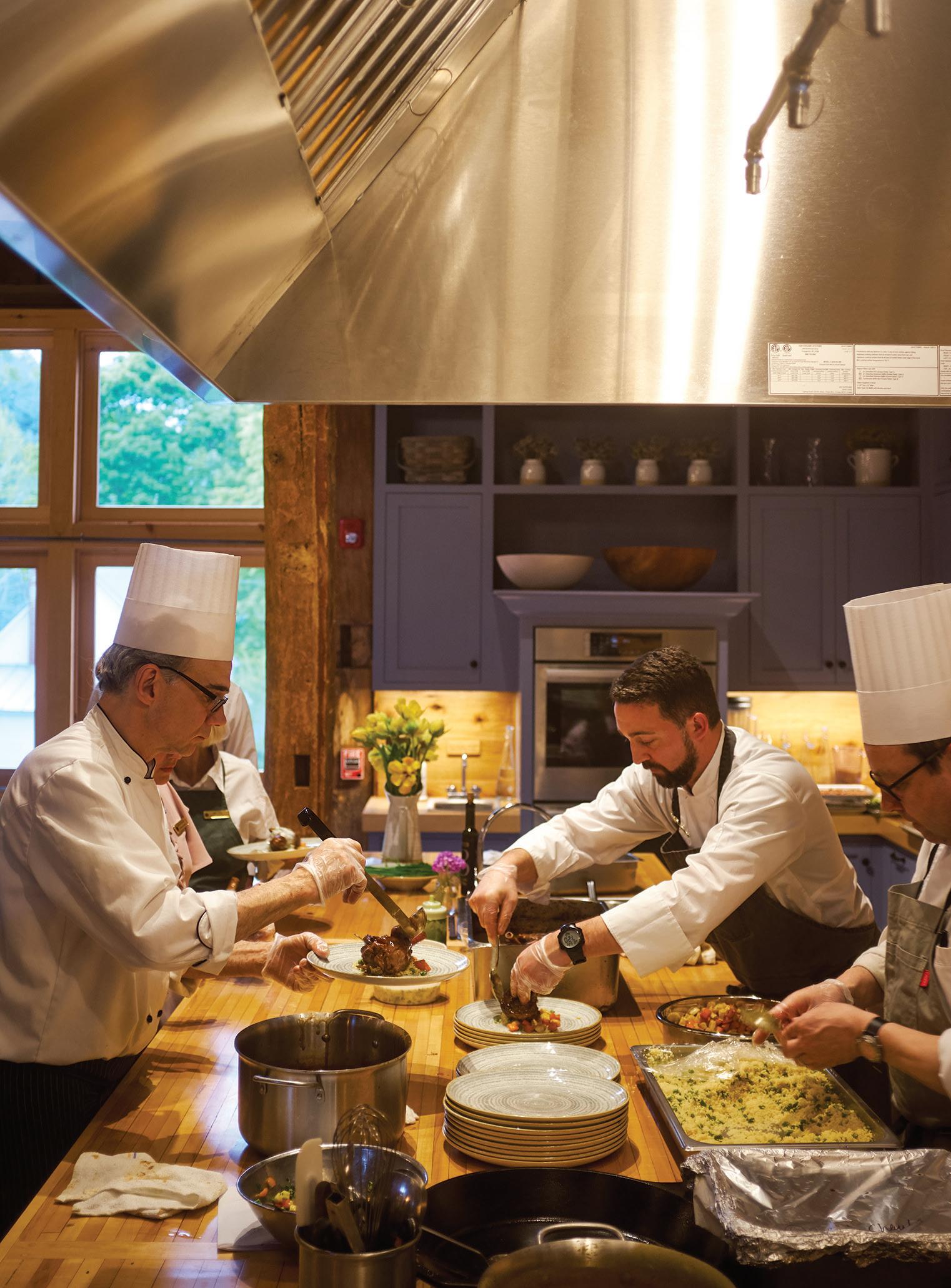

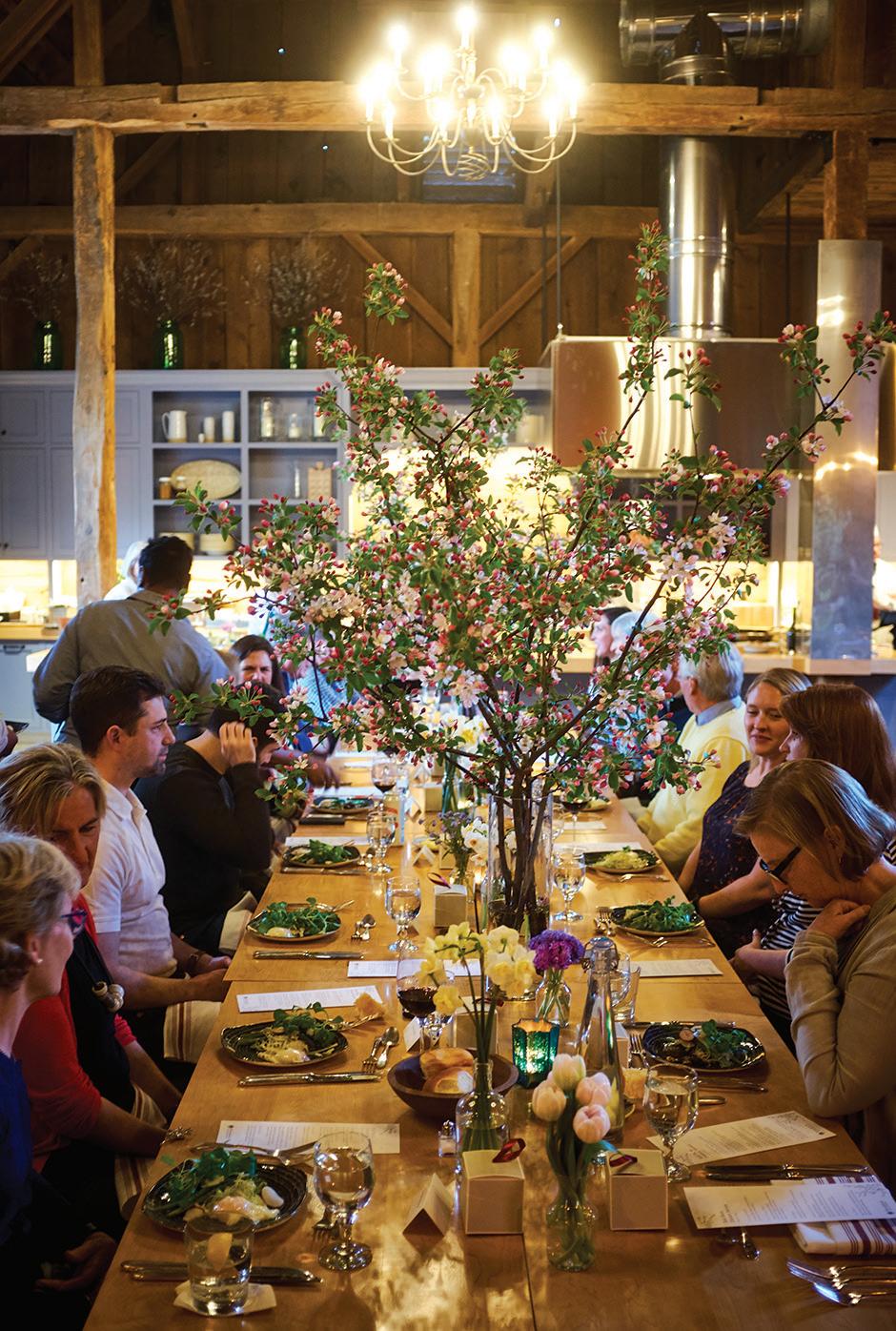
Yankee recently teamed up with the Woodstock Inn for a celebratory spring feast hosted by Yankee ’s senior food editor and the co-host of Weekends with Yankee , Amy Traverso, at the Inn’s Red Barn at Kelly Way Gardens. Over four courses, Amy and Executive Chef Rhys Lewis crafted a menu that incorporated their favorite seasonal and regional flavors through Vermont-made products ranging from cheeses and charcuterie to syrup and sweets. As they dined, guests learned about Amy’s experiences filming Weekends with Yankee and got her behind-the-scenes perspective of filming at Kelly Way Gardens, where she got a lesson on cooking with heirloom squash. Weekends with Yankee Season 3 is currently airing on public television stations nationwide. To find showtimes in your area, go to weekendswithyankee.com
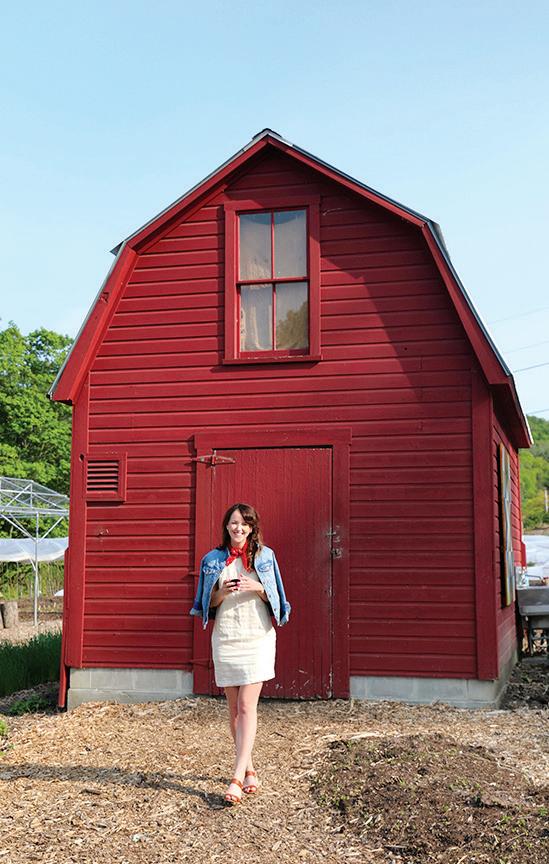
Celebrating the people, destinations, and experiences that make the region and Yankee Magazine so unique. Follow along @YANKEEMAGAZINE #MYNEWENGLAND
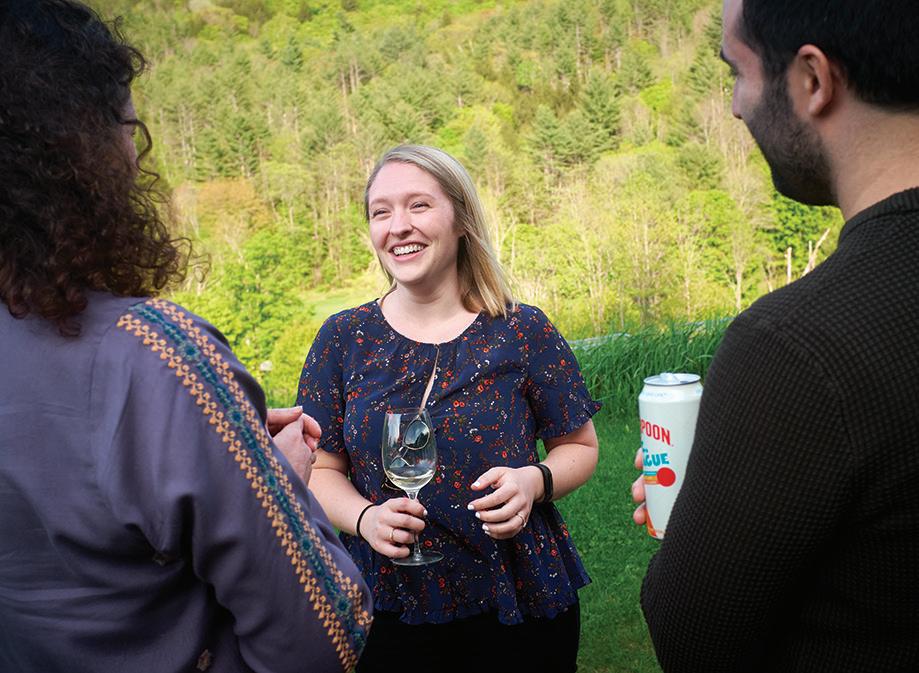
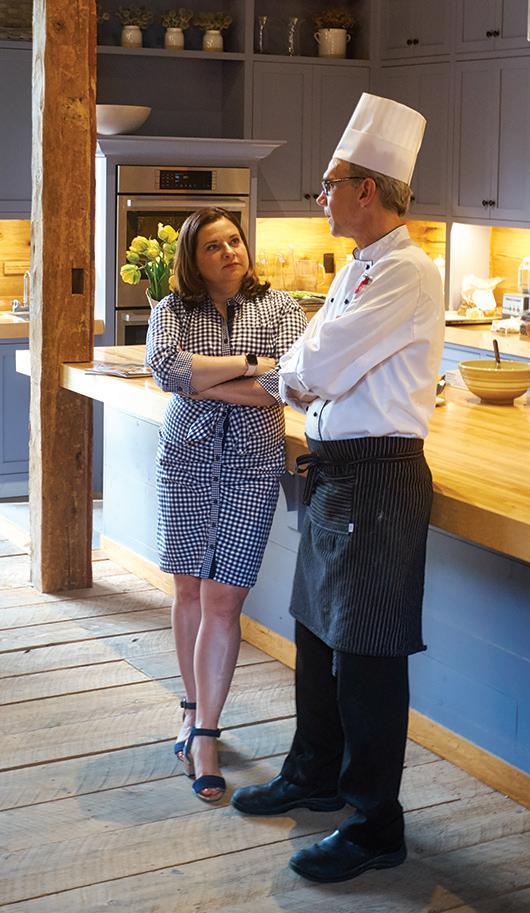

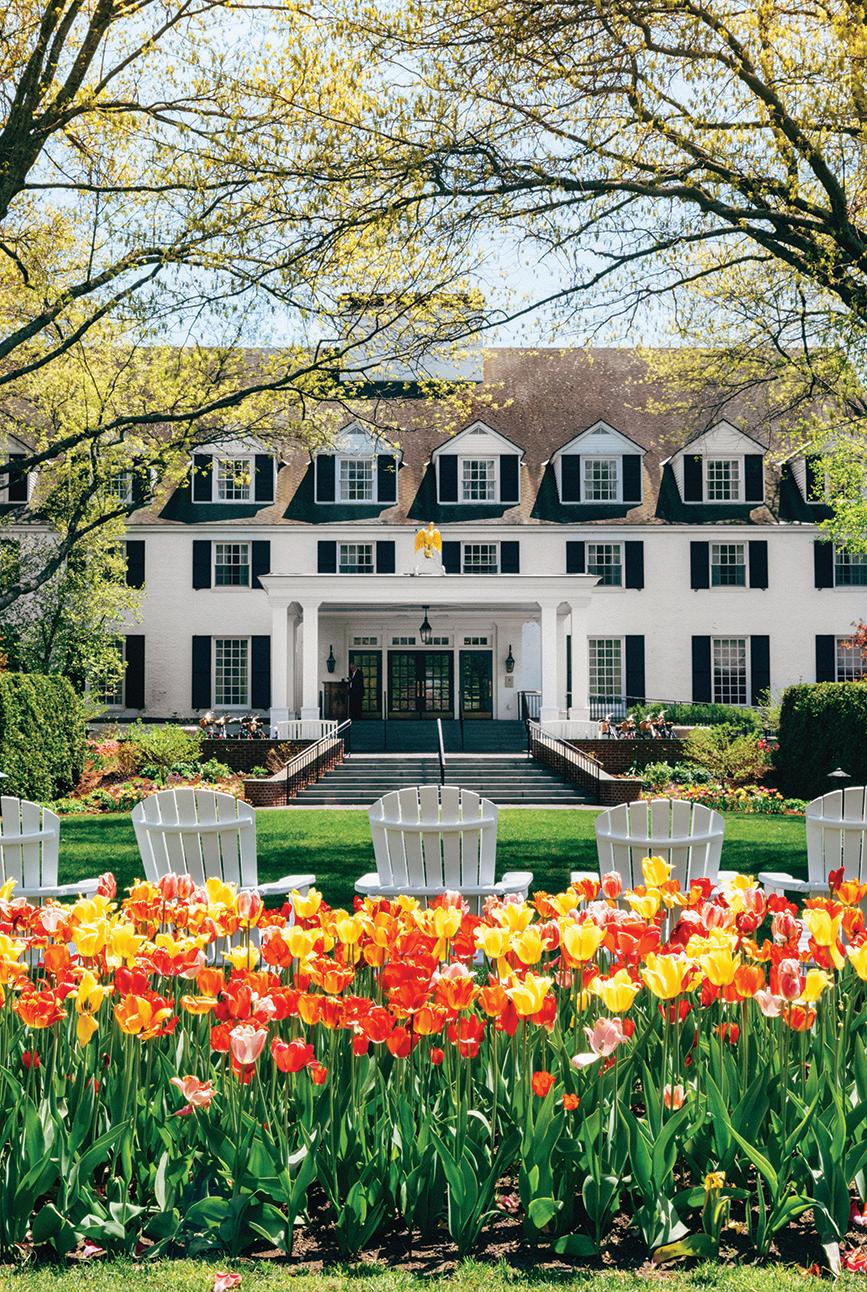
A SPECIAL THANKS TO:
Rhys Lewis, Resort Executive Chef • Benjamin Pauly, Master Gardener
Ryan Beaudoin, Chef of Kelly Way Gardens • Philippe Niez, Head Pastry Chef
Sydney Sturgeon, Event & Program Coordinator • Tonna Hussey, Banquet Captain THANK YOU TO OUR PARTNER
 Photographs by Corey Hendrickson, and Jackie Greaney & Paul
J. Havel
Photographs by Corey Hendrickson, and Jackie Greaney & Paul
J. Havel
Rail Explorers carts offer riders young and old the chance to take a hands-free, laid-back autumn pedal through woodlands and along the shore of Rhode Island’s Narragansett Bay.
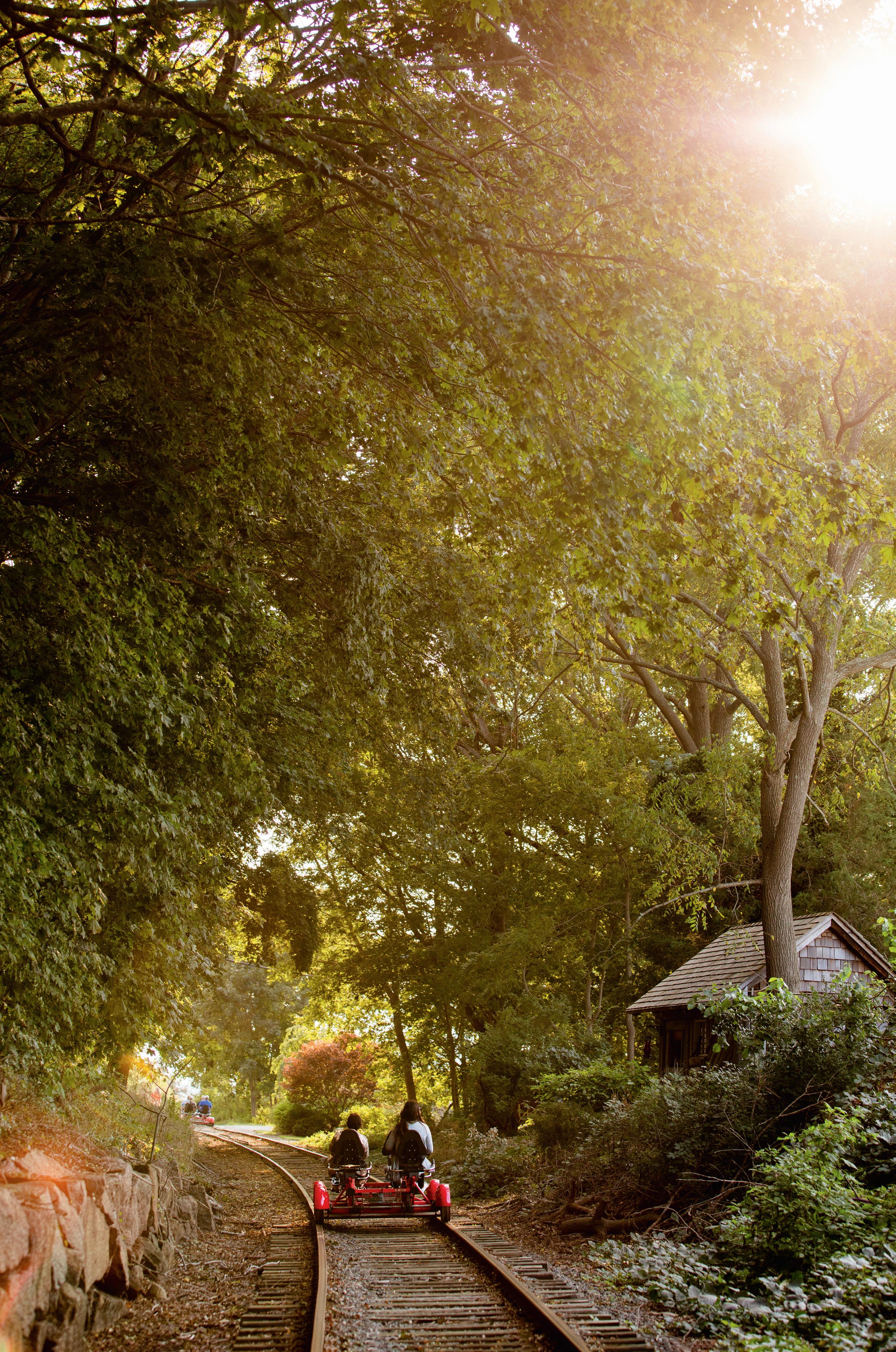
These New England destinations offer all-ages fun that’s worth the drive.
BY KIM KNOX BECKIUSack-to-school time reminds us just how fast children grow up—so why not plan a day-trip this fall with multigenerational appeal? Driving along foliage-tinted roads to one of these playful attractions is half the magic. Just park once, and make memories all day.
Outdoor adventures at this New Hampshire resort are the answer to “What now?” after you’ve leaf-peeped along the Kancamagus Highway. The best deal is an attractions park ticket, which covers unlimited rides on the Nor’easter Mountain Coaster, two alpine slides, and ski lifts here and at nearby Wildcat Mountain. Lift-serviced mountain biking is also included, with rental bikes available if needed. Attitash’s ZipTour is a worthy add-on: You’ll have eagle-eye views, and two ziplines means you can fly side by side (as long as your sidekick is 10 or older). Bartlett, NH. 800-2237669; attitash.com
Hours go by as you trivia-puzzle your way through an eight-acre corn maze— and you’ve still conquered only a fraction of the 50-plus activities included in your play-all-day ticket at this seasonal Massachusetts attraction. After visiting the petting zoo, taking aim in the paintball shooting gallery, and pedaling a quad cart around a scenic track, your kids might not be done, but you are. Kick back by a fire pit with a craft beer and Kansas City–style barbecue
and listen to live music while you watch your little ones bulldoze corn kernels or whoosh down the bouncy slide. Sterling, MA. 978-422-8888; davismegafarmfestival.com
While a six-mile bike ride might not be in the cards for every member of your family, a Rail Explorers expedition can be. Head to Rhode Island to experience these easy-to-pedal, steel-wheeled tandem and quad rail vehicles, which can be linked up so your whole clan can sightsee together (as long as a few people exert a bit of effort, that is). Riding on train tracks that were first laid in the 1860s, you’ll skirt Narragansett Bay and get the chance to watch sailboats glide, osprey soar, and leaves scatter like golden confetti. Portsmouth, RI. 877833-8588; railexplorers.net
When Retreat Farm was established in 1837 as a therapeutic facility for psychiatric patients, fostering wellbeing by connecting to nature was a pioneering notion. Happily, it’s widely embraced today—as you’ll appreciate on an autumn visit to this
500-acre Vermont property, now a nature and farm education nonprofit. Let your kids tug you into the refashioned barn to snuggle with bunnies and brush happy-to-be-pampered pigs, then head up the hill to feed Carlos, the one-ton ox. Purchase a food-truck lunch or nibble samples from Grafton Village Cheese next door before setting out to explore the farm’s nine miles of trails. The Harvest Festival on October 5 brings even more hubbub: music, pumpkin painting, and old-school fun like eating cider doughnuts from a string, no hands allowed. Brattleboro, VT. 802-490-2270; retreatfarm.org
When autumn comes, bears gobble berries, squirrels scavenge incessantly, and monarch butterflies pack up for Mexico. But if you visit this Connecticut family favorite on the Saturday before Halloween, you’ll meet a few creatures who’ve paused to hand out goodies and tell kids why they’re scurrying. The costumed critters who make “Track-and-Treat” a highlight of the annual Hobgoblin Fair (be sure to pre-register) are part of the team behind the super-creative programming at this facility, which also plays a big role in saving injured wildlife. View environmental exhibits, walk woodland trails, step inside a model Native American longhouse, and meet resident raptors. And if there’s an “animal hospital” patient, you might even get to observe its care. Canton, CT. 860-693-0263; roaringbrook.org
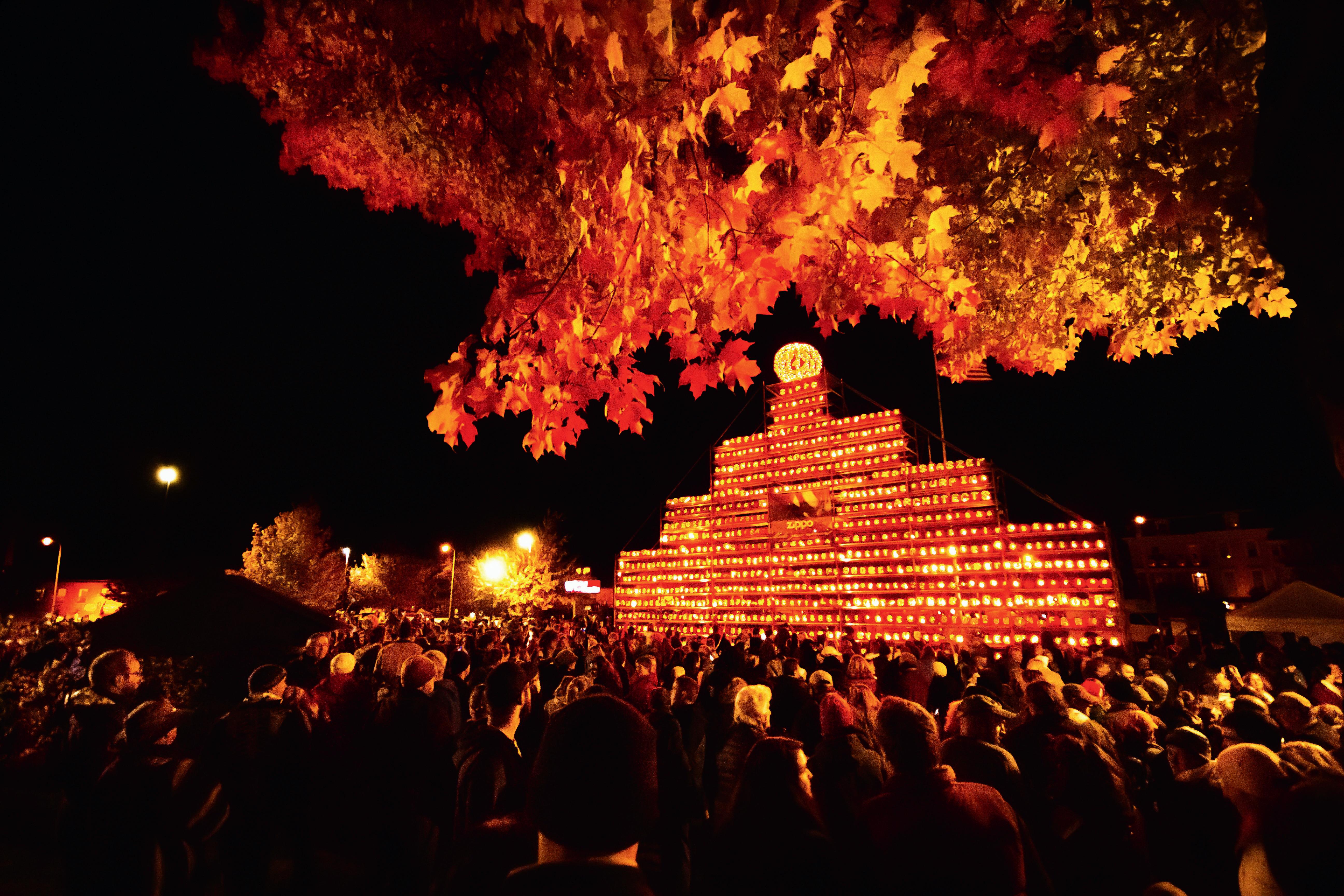 A glowing 34-foot-high wall of individually carved jack-o’lanterns is the showstopper of Laconia, New Hampshire’s Pumpkin Festival.
A glowing 34-foot-high wall of individually carved jack-o’lanterns is the showstopper of Laconia, New Hampshire’s Pumpkin Festival.
AUG. 31–SEP. 1
Get your garlic fix in the Camelot Village area of downtown Bennington, where nearly 200 vendors will be gathered. Chat with the growers and enjoy garlic jelly and other garlic-laced foods, along with live music, kids’ activities, and plenty of garlicky products for purchase. Bennington, VT. 802447-3311; lovegarlic.com
SEP. 20–22
Hosted by the Maine Organic Farmers and Gardeners Association, this get-together at the fairgrounds in Unity highlights Maine’s rural and agricultural traditions with animal exhibits, cooking demos, blacksmithing, farm and fiber marketplaces, tasty food, and kids’ programming. Unity, ME. 207-568-4142; mofga.org
OCT. 4–6 & 11–13
Head to Southington to join in seasonal family fun, including a parade, toe-tapping musical performances, an arts and crafts show, carnival rides, and fireworks. And come hungry: There will be apple crisp, apple pie, apple fritters, apple slushies, and fresh raw apples aplenty. Southington, CT. 860-2768461; southingtonahf.com
OCT. 10–13
Billed as the largest festival of its kind in New England, this extravaganza of flavors brings together top chefs, producers, wineries, and breweries at the WGBH studios in Boston’s Brighton neighborhood. Past celebrity chef demonstrations have included such PBS stars as Kevin Dundon and Mary Ann Esposito. Boston, MA. 617-300-5400; wgbh.org/food-and-wine-festival
RHODE ISLAND
SCITUATE ART FESTIVAL
OCT. 12–14
What began as a way to pay for restoring the handsome 1830s Congregational church on the North Scituate village green has evolved into a major event that draws 200-plus exhibitors from across North America. Proceeds go toward town nonprofits, as well as the maintenance effort to keep that old church sparkling. North Scituate, RI. scituateartfestival.org
NEW HAMPSHIRE
PUMPKIN FESTIVAL

OCT. 18–19
In addition to the obvious draw (20,000 carved pumpkins clustered around downtown Laconia, including those lined up on a 34-foot tower), offerings include fair foods and rides, live music, a pumpkin pancake breakfast, a pumpkin cook-off, and a zombie walk. Laconia, NH. nhpumpkinfestival.com
For more best bets around New England, see p. 80
AUG. 30–SEP. 2: SOUTH WOODSTOCK, Woodstock Fair. Animals and exhibitions, entertainment on multiple stages, amusement rides, contests and family fun, plus more than 100 food vendors offering everything from treats to rib-sticking meals. 860-928-3246; woodstockfair.com

AUG. 31–OCT. 14: LEBANON, Connecticut Renaissance Faire. At the Lebanon County Fairgrounds, be transported back in time to a 16th-century English harvest festival. Expect songs and dances from days of yore, jousting, and archery, plus a bustling medieval marketplace and hearty fare such as roast turkey legs. 860-478-5954; ctfaire.com
SEP. 6–8: NORWALK, Oyster Festival. Oysters may be the headliners, but the festivities go far beyond shucking and slurping. Veterans Memorial Park will rock with live music, international foods, kids’ activities, a lumberjack show, and a juried arts and crafts show. 203-838-9444; seaport.org

SEP. 7: MYSTIC, Launch of the Mayflower II. Come to Mystic Seaport Museum to witness the lowering of the newly restored Mayflower II into the Mystic River in preparation for its return voyage to Plimoth Plantation next year, which marks the 400th anniversary of the Pilgrims’ landing. 860572-0711; mysticseaport.org
SEP. 7–8: GLASTONBURY, “On the Green” Art and Craft Show. Glastonbury Arts hosts this traditional event on historic Hubbard Green, attracting more than 175 exhibitors of fine art and handmade crafts. 860-6591196; glastonburyarts.org
SEP. 12–15: NEW LONDON, Connecticut Maritime Heritage Festival. Among the highlights of four days of free, family-oriented fun on the waterfront are tours of Navy and Coast Guard ships, a chowder cook-off, a fishing tournament, and a celebration dubbed “The Burning of Benedict Arnold.” 860-4472519; ctmaritimefest.com
OCT. 5: WETHERSFIELD, Old Wethersfield Arts and Crafts Fair. Peruse the wares presented by 60-plus artisans and crafters—clothing, furniture, seasonal decorations, jewelry, and more—while soaking up the fall weather, live music, and tasty food at scenic Cove Park. 860-529-7656; wethersfieldhistory.org


OCT. 5–6: GREENWICH , Outdoor Arts Festival. The Bruce Museum steps outside its walls for this 38th annual juried show of contemporary paintings, prints and drawings, mixedmedia works, sculpture, and photography. Many of the 90 selected artists will be on hand, and all works are for sale. 203-8690376; brucemuseum.org






OCT. 6: WESTPORT, Chowdafest. With entrants from every New England state and beyond, Chowdafest has become one of the Northeast’s largest culinary competitions. Vote for your favorites at Sherwood Island State Park in the categories of classic New England clam chowder, traditional chowder, creative chowder, soups and bisques, and even vegetarian. 203-216-8452; chowdafest.org


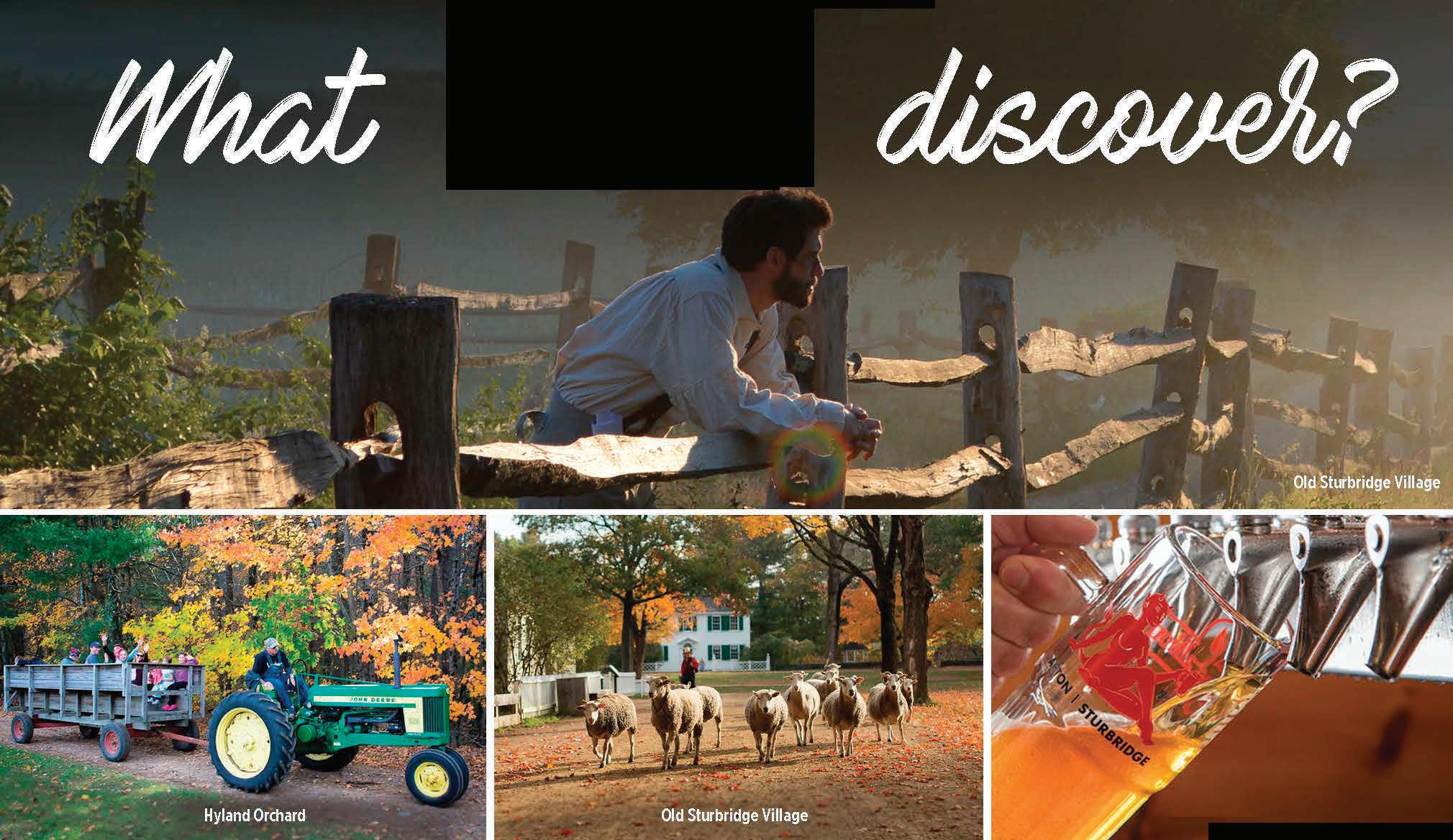









OCT. 12–13: BETHLEHEM, Garlic & Harvest Festival. At the Bethlehem Fairgrounds, garlic lovers will find goodies showcasing their favorite allium, from garlic dips and spreads to deep-fried garlic, garlic sausage, and even garlic ice cream. Also on tap: cooking demos, crafts, and rides and games. 203-266-7810; garlicfestct.com
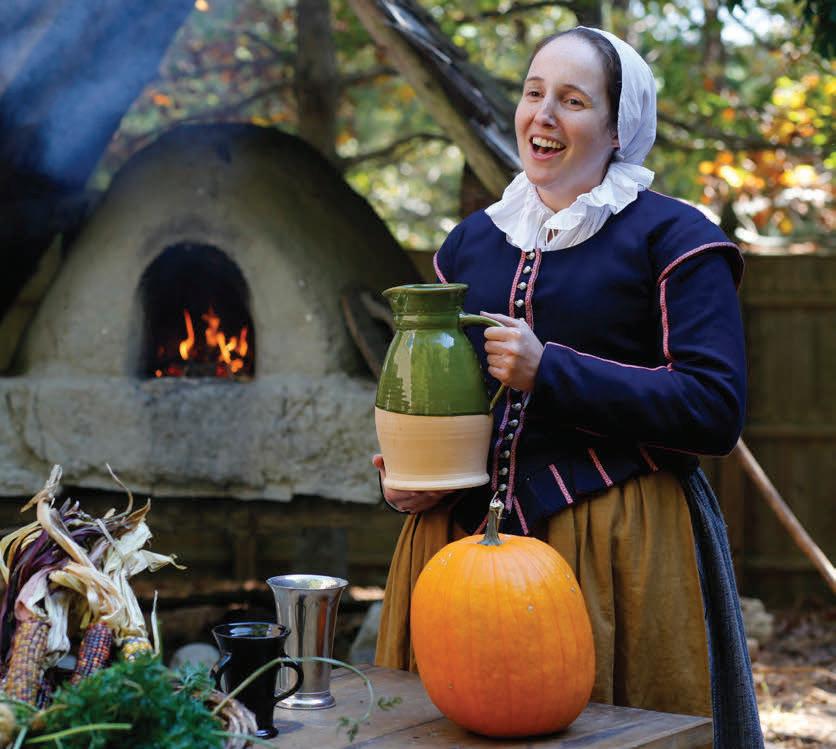
OCT. 13: SCOTLAND, Highland Games Festival. Immerse yourself in the sights, sounds, and flavors of Scotland as the Edward Waldo Homestead hosts a day filled with entertainment and education. There’s something happening everywhere you turn: live folk music, dancing, piping and drumming contests, sheepdog demonstrations, and, of course, the fabled Highland athletic competition. Cabers away! scotlandgames.org
OCT. 19: PUTNAM, Great Pumpkin Festival and Train Ride. While waiting for your train ride through the Last Green Valley (tickets must be purchased separately), you’ll find plenty of entertainment at this fall festival, as a crafts show, live music, great food, and some truly epic pumpkins take over the downtown. 860428-1278; discoverputnam.com
OCT. 19–20: WOODSTOCK, Roseland Cottage Fine Arts & Crafts Festival . More than 175 artisans participate in this juried show on the expansive grounds of lovely Roseland Cottage. Enjoy live music, a food court, and
first-floor tours of the historic home. 617994-5914; historicnewengland.org
OCT. 25: HARTFORD, Hallowed History Lantern Tour. Established in 1864, Cedar Hill Cemetery welcomes nighttime visitors to its graceful grounds just once each year. Starring in this evening of spooky fun are actors portraying some of the dearly departed (many with dark tales to tell). Space is limited, so reserve your spot well in advance. 860-9563311; cedarhillfoundation.org
AUG. 30–SEP. 8: BOOTHBAY HARBOR, Boothbay Region Harbor Fest. This lively mix of music, food, and activities includes a 5K run and a half-marathon, a fashion show inspired by the sea, a restaurant crawl, a vintage market, and live music all around the harbor. Major events take place on Labor Day weekend and Sep. 7 and 8. 207-671-7676; boothbayharborfest.com
SEP. 5–8: GREENVILLE, International Seaplane Fly-In . Moosehead Lake is the place to be for seaplane enthusiasts, with organized flybys, a craft fair, demonstrations, and more. seaplanefly-in.org
SEP. 6–8: EASTPORT, Eastport Pirate Festival. Travel back to a bygone age of seafaring when pirates were no strangers to the Maine coast. Come in costume—if you’d like to blend

in—and enjoy such wacky activities as bed races and pirate reenactments, along with live music, lobster boat races, and kids’ games. 207-853-0727; eastportpiratefestival.com
SEP. 14: STATEWIDE, Maine Open Lighthouse Day. Sponsored by the U.S. Coast Guard, the American Lighthouse Foundation, and the Maine Office of Tourism, this event draws upward of 15,000 visitors each year. The attraction? More than two dozen historic Maine lighthouses, all open to the public and ready to be explored. Check the website for full list and locations. lighthousefoundation.org
SEP. 22–28: CUMBERLAND, Cumberland County Fair. Now in its 148th iteration, this familyfriendly favorite includes two pro rodeo events, fireworks, a midway, a demolition derby, livestock shows, and the official Maine state pumpkin and squash weigh-off. 207829-5531; cumberlandfair.com
SEP. 25–29: BAR HARBOR, Acadia Night Sky Festival . Come see the Milky Way shining bright in the largest expanse of naturally dark sky east of the Mississippi, and learn from and with scientists, park rangers, photographers, artists, and fellow stargazers. 207-801-2566; acadianightskyfestival.com
SEP. 28: CASCO, Maine Lakes Brewfest. Hit the beach at Point Sebago for a day of live music, good food, and sampling nearly 100 creations by three dozen regional brewers. The
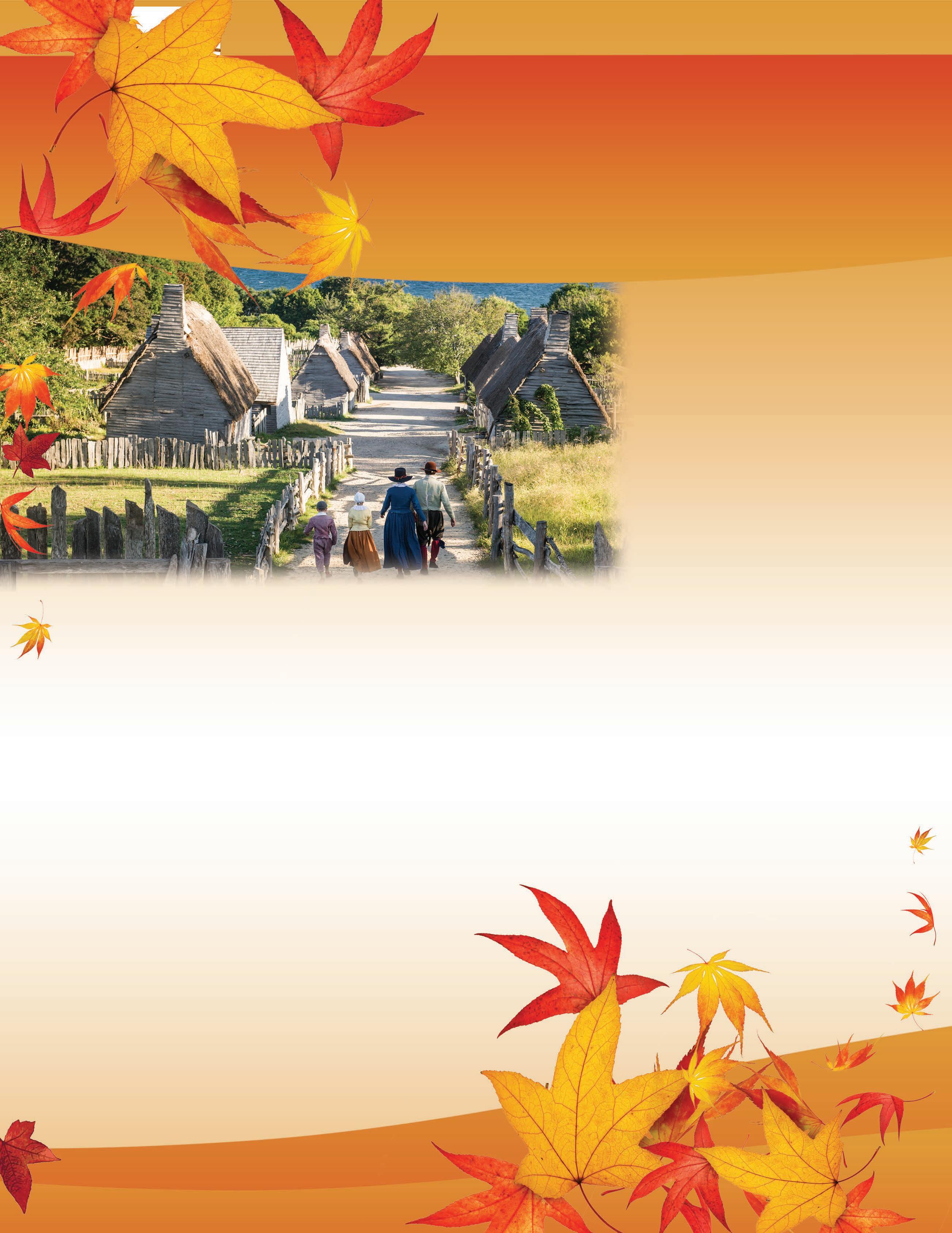





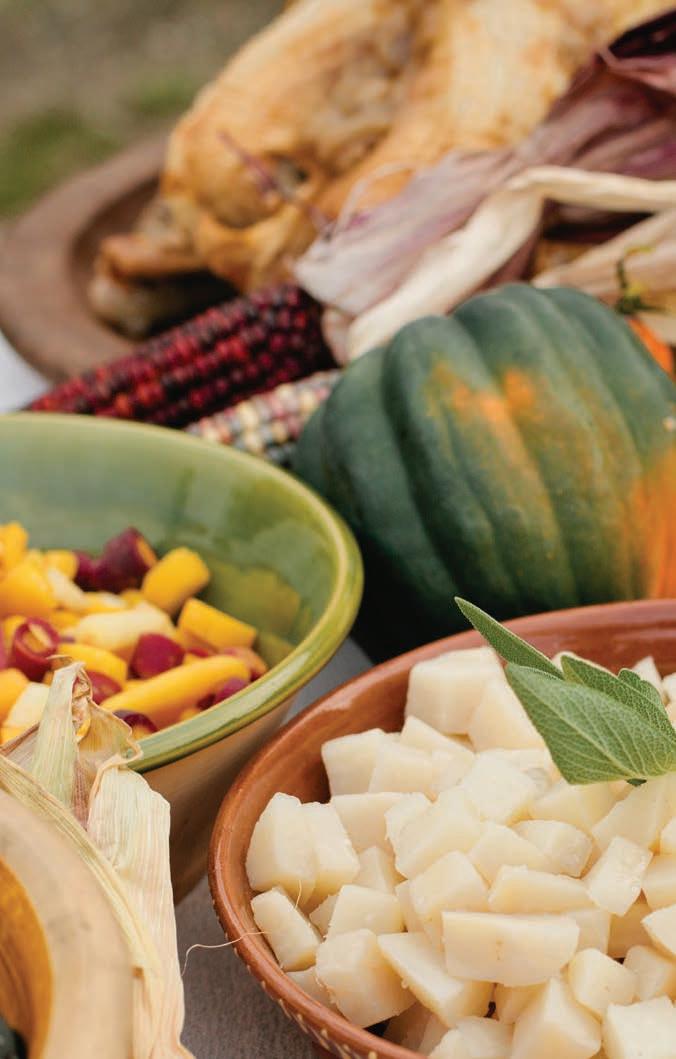







sampling is unlimited, and you’ll go home with your own souvenir sampling glass. mainelakesbrewfest.com
SEP. 29–OCT. 6: FRYEBURG, Fryeburg Fair. This venerable fair (c. 1851) fills its eight-day run with livestock shows, races and competitions, and an array of garden and craft exhibits, plus midway rides and entertainment across five stages, all at the Fryeburg Fairgrounds. Don’t miss the Woodsmen’s Field Day, which draws lumberjacks and lumberjills from across the U.S. to test their mettle. 207-935-3268; fryeburgfair.org
OCT. 4–6: FREEPORT, Fall Festival . With more than 150 artists exhibiting works of photography, oil painting, watercolor, mixed media, fine craft, and jewelry; live musical performances; and a wide range of Maine food specialties to keep you fueled (don’t miss the benefit Chowdah Challenge), this free family event at L.L. Bean Discovery Park and other downtown venues provides the perfect excuse for a visit to Freeport’s outletstore wonderland. freeportfallfestival.com
OCT. 11–14: DAMARISCOTTA, Pumpkinfest & Regatta. A giant-pumpkin contest, pumpkin catapult, pumpkin derby, pumpkin drop, pumpkin pie eating contest—perhaps you’re detecting a theme? Don’t miss the great pumpkin boat regatta finale. 207-677-3087; mainepumpkinfest.com
OCT. 17–20: PORTLAND, Harvest on the Harbor. Foodies converge on Portland as the city toasts its talented chefs. Stop by the waterfront for cooking contests and demonstrations, wine seminars, and live music. 207-772-4994; harvestontheharbor.com

OCT. 25–27: OGUNQUIT, OgunquitFest. Fallthemed attractions fill the downtown this weekend, including pumpkin and cookie decorating sessions, a costume parade, and a classic automobile show. Shop at the craft bazaar, thrill to the haunted house, compete in the high-heel race or bed race, and take a ghost tour or a wagon ride. 207-6462939; visitogunquit.org
AUG. 30–SEP. 2: GLOUCESTER, Schooner Festival . A downtown block party, a lighted boat parade, fireworks, more than 20 historic schooners—all this and more will pay homage to Gloucester’s working waterfront and seafaring and boatbuilding traditions. Don’t miss Sunday’s grand Parade of Sail before the schooners compete in the Mayor’s Race. 978-281-0470; gloucesterschoonerfestival.net

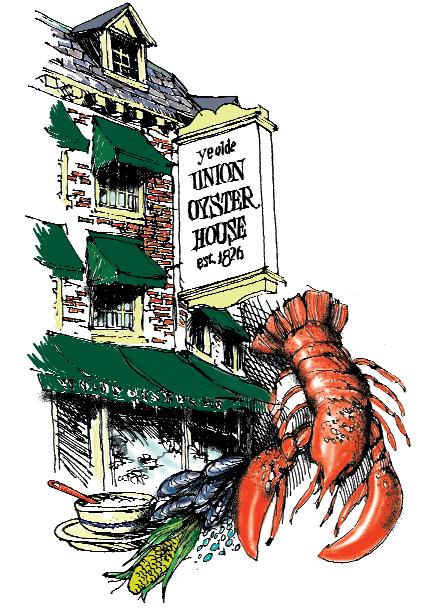
SEP. 5–8: GREENFIELD, Franklin County Fair From parades and clowns to talent shows and Frisbee dogs, from agricultural exhibits and competitions to truck pulls, pie eating contests, and pig races, there’s something for everyone at this storied county fair. 413774-4282; fcas.com

SEP. 13–29: WEST SPRINGFIELD, The Big E. When it comes to big fairs in New England,
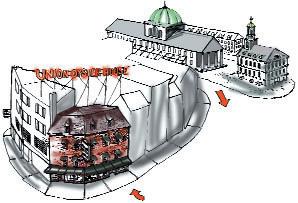

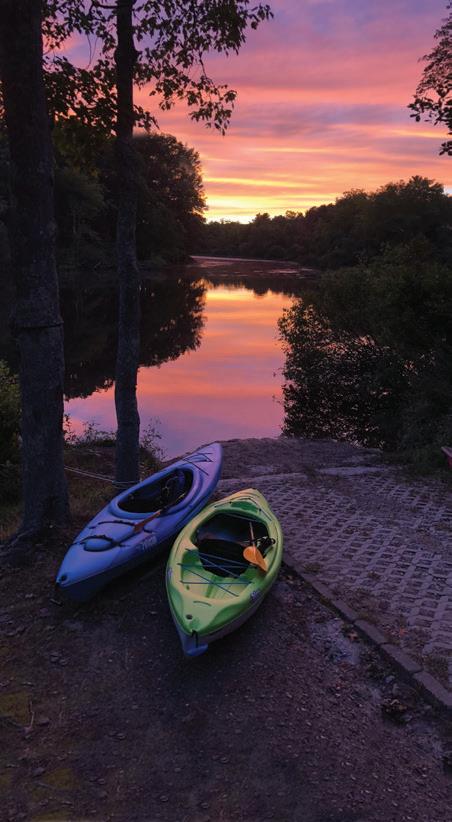



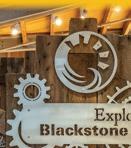
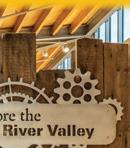
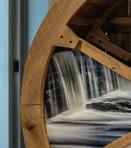
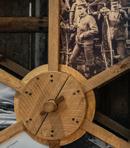
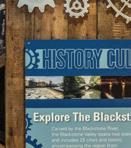


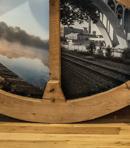






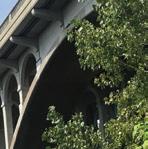
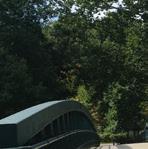

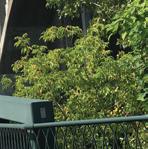


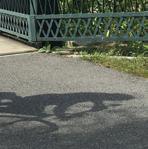

Vermont’s Smugglers’ Notch may have earned its name as a favored route for bringing in Canadian contraband, but today the spectacular fall color in this mountain pass makes it a magnet for foliage chasers.


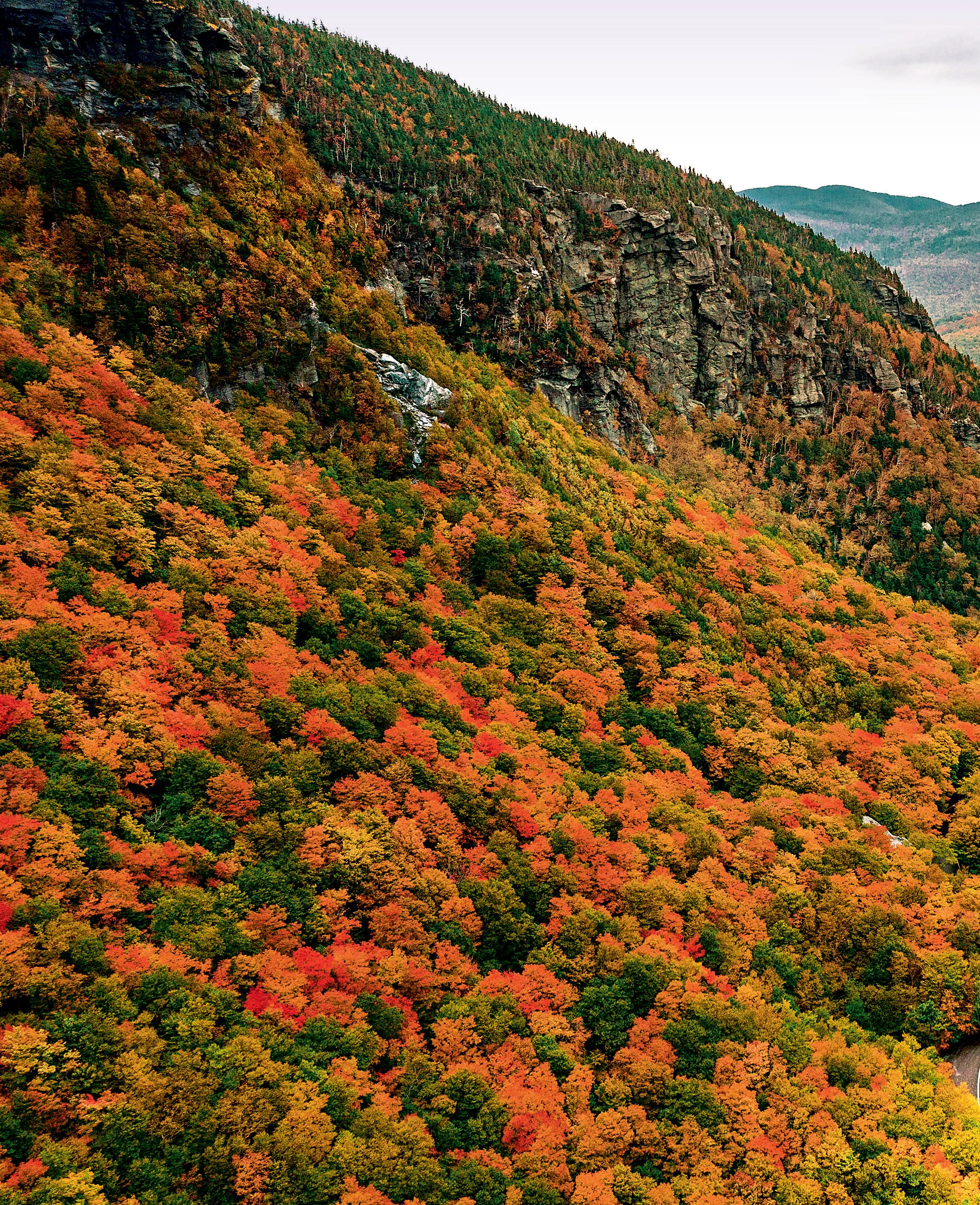
TWO NEW ENGLANDERS HIT THE ROAD TO SEE HOW MANY FOLIAGE-SEASON EXPERIENCES THEY CAN FIT INTO ONE WILD, WEIRD, COLORFUL WEEK.
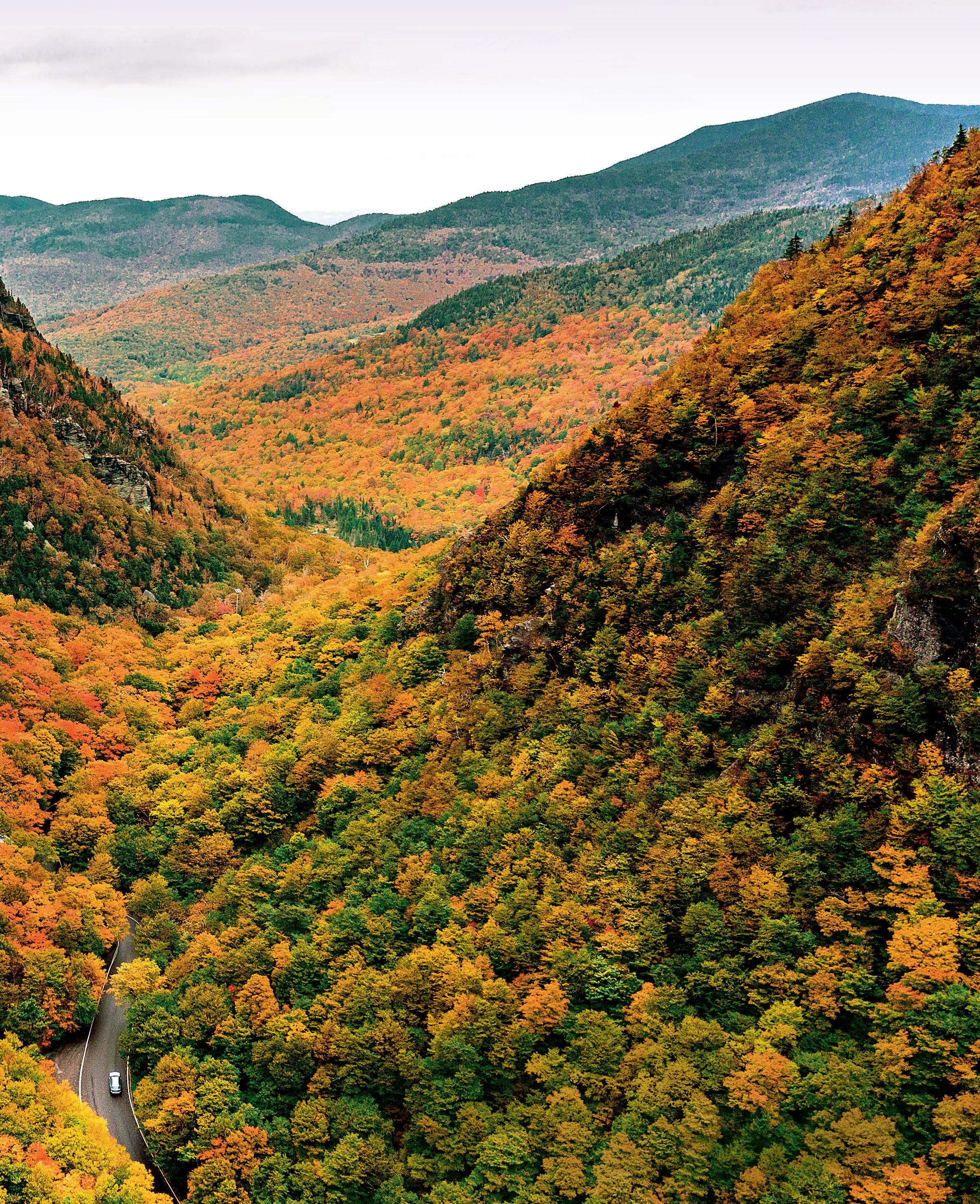 BY IAN ALDRICH
PHOTOGRAPHS BY MARK FLEMING
ILLUSTRATIONS BY ERIC HANSON
BY IAN ALDRICH
PHOTOGRAPHS BY MARK FLEMING
ILLUSTRATIONS BY ERIC HANSON
an annual event in which gourds are carved and weighed, a pumpkin queen is crowned, and several inventive folks paddle through the harbor in what may be the only pumpkin boat race in the world. Pumpkin fairies and pumpkin gocarts parade down Main Street. It’s silly and fun, and at any other time of year it would border on the ridiculous.
But this was fall in New England.




























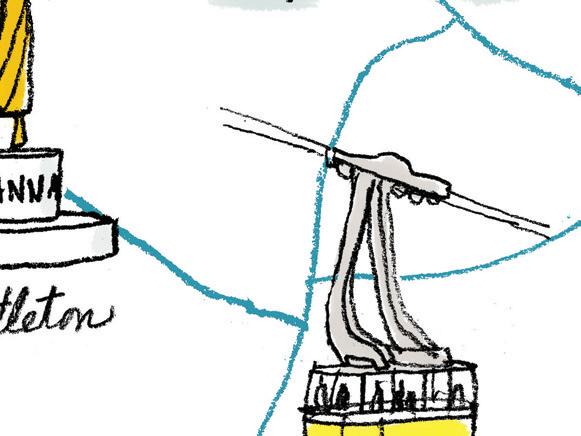

It was early October, one of those bluebird New England days that in the fall are posted on Instagram as feverishly as baby Archie sightings. I was in Maine for the Damariscotta Pumpkinfest and Regatta,



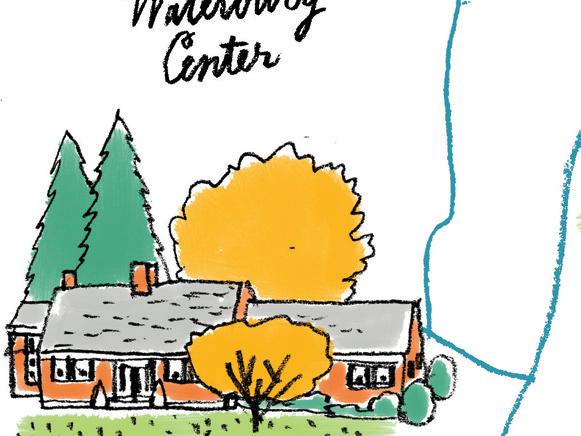



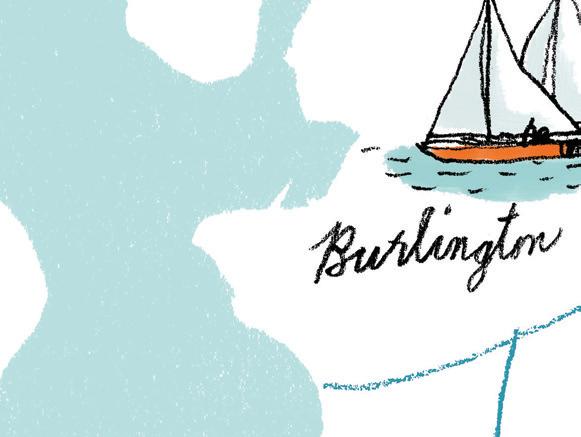

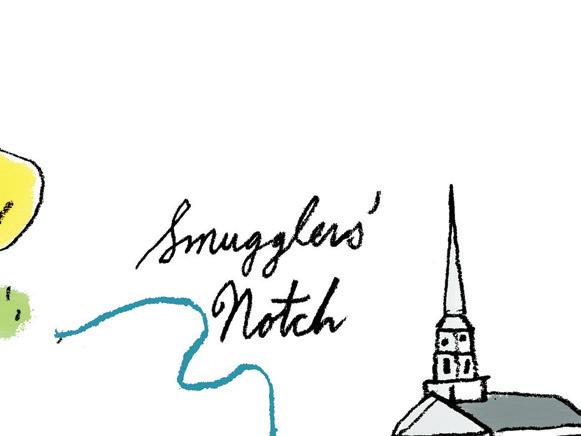

Which is why I ended up seated at a long table next to 10 others, all of us draped in black plastic trash bags, at the festival’s celebrated pie eating contest. In the kids’ event, two-time champion Zachary Reed had eaten his way to another title, raising his hands triumphantly just before he inhaled the last of his pie. Now it was the grown-ups’ turn to entertain (or disgust?) the few hundred spectators who’d assembled to watch each of us consume, without using our hands, a whole pumpkin pie in the shortest amount of time.
It was a fitting end to the six-day road trip I’d just taken with photographer Mark Fleming. Living out of an RV, we traversed through Maine, New Hampshire, and Vermont, looking to squeeze maximum autumn from each day. We joined the crowds at country fairs, hiked to mountaintop vistas, took the hairpin
turns of Vermont’s Smugglers’ Notch. We picked apples, caught sunrise at one of the most photogenic farms ever, and discovered just how terrifying a haunted corn maze could be. For two native New Englanders whose job it is to tell others how to enjoy fall, we wanted to rediscover the wonder that brings so many visitors to our region for these brief shining weeks.
And also to embrace the fact that in October, at least, it’s OK to stick your face into a whipped cream–slathered pie in public.
Elsewhere, there are more seemingly manageable games of chance and skill—the chin-up bar, for instance. For five bucks, you can take a shot at hanging on for two minutes. The prize: your choice of a stuffed toy.
“I’m gonna tell you, that ain’t no joke,” a guy in a thick flannel shirt informs me. “I lasted about a minute.” He shakes his head, laughs. “It’s harder than it looks.”


Undeterred, I pay up and grab the bar. I hit the minute mark … and then the bar starts to roll. I strain to hold on. I drop.
For my money, there’s no agricultural fair that quite matches the Fryeburg Fair, which sees more than 300,000 people descending on this western Maine town (population 3,449) during fair week in early October. All manner of farm life is front and center at the fair, which pays homage to rural living while simultaneously turning many of its traditional chores into seat-of-your-pants competitions.
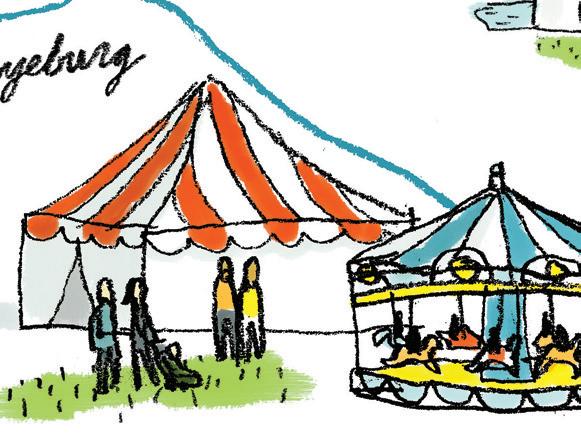
A soft rain falls as Mark and I make our way to the woodmen’s station, where beefy guys with handsaws slice through thick blocks of pine like butter, and show off their ax skills as they vie to chop wood the fastest. Beside me, a woman wearing a black hoodie that reads has her eyes locked on the competition, arms crossed, as participants in the tree felling contest attempt to bring standing logs down onto pumpkin targets a
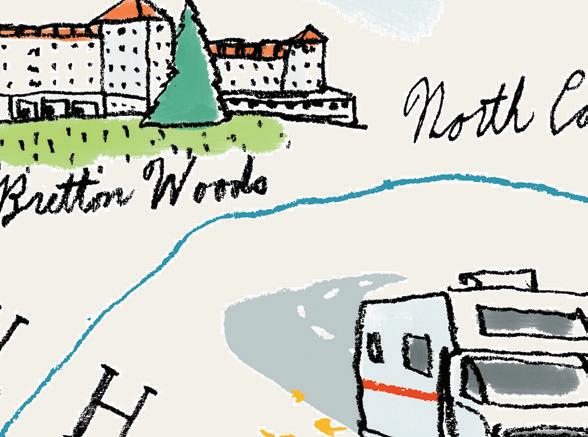
good 20 feet away.
Back among the onlookers, I find some are dissecting my failure. “I think if you close your thumbs around the bar you can prevent yourself from rolling,” one man says, between bites of fried dough.
“You’ve done it?” I ask him.
“Nah.” He finishes off his last




































































bite. “Just thinkin’ about it. Right now, I’m just studying the physics of the thing.”
There is more humbling to come. Under overcast skies and amid




the ever-present smell of fried everything (from dough to Oreos), I watch as a group of men take turns throwing an 18-pound anvil. A series of 20-somethings barely hit the 25-foot mark—and still I’m feeling confident when my name is called. I pick up the weight, get a small running start, and let it rip. Or, to be more accurate, let it kerplunk
“Seventeen feet,” the announcer calls. A few sympathy cheers go up from the crowd.









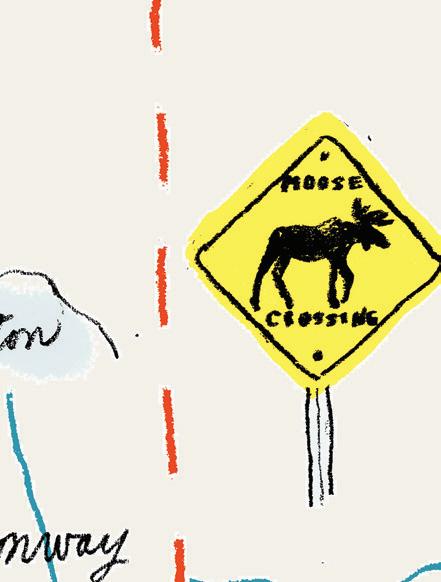
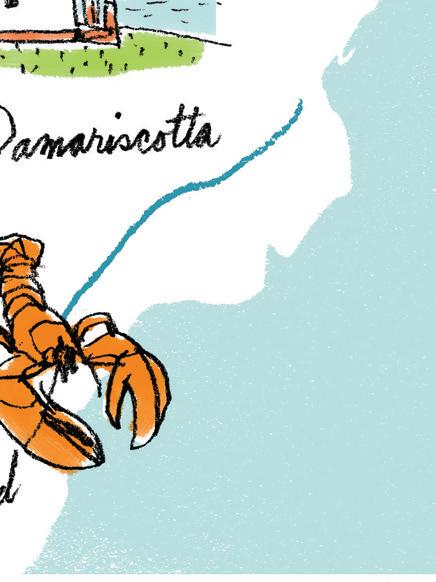
Our trip needed space for the unexpected: people we hadn’t planned on meeting, places we hadn’t planned on visiting.
I suffer the indignity of watching an older man, after pretending he couldn’t keep his balance when picking up the anvil, blow right past my mark. As does a man who looks several years older than him . The only reason I don’t finish last is because of the 81-year-old from Rhode Island who is a little tired from his drive to Maine.





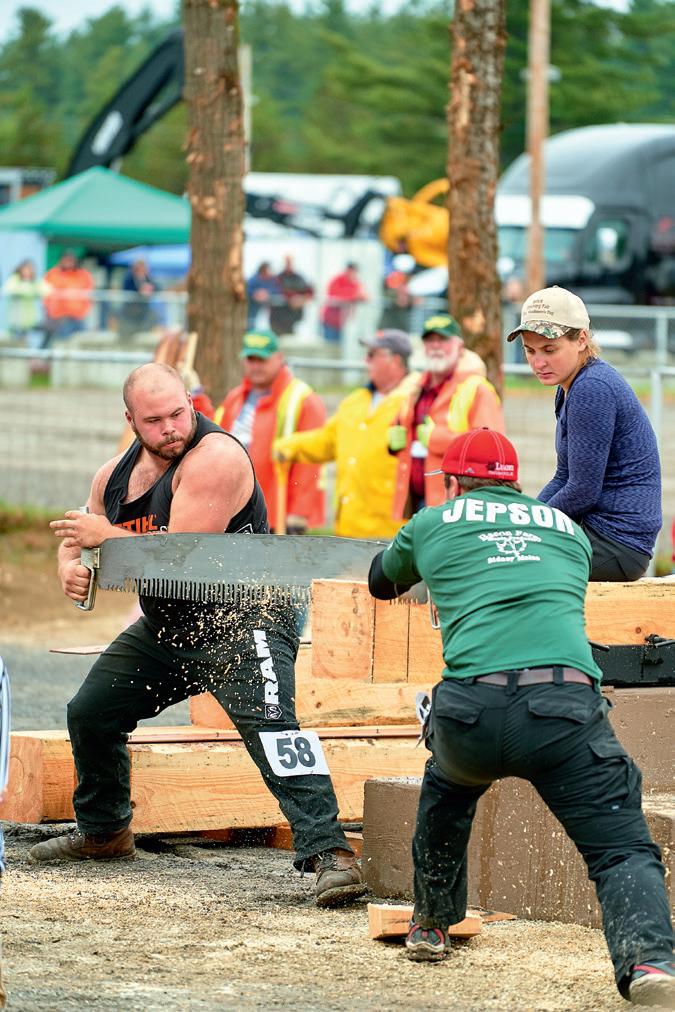

The day does improve. Mark and I eat a pile of hot fries, I win a stuffed turtle at a water gun competition, and we watch a blushing 14-year-old New Hampshire girl accept a blue ribbon for her beautiful 18-month-old bull, Burkie, in the cattle show. In the dairy barn, I listen as a farmer on a stool is holding court.
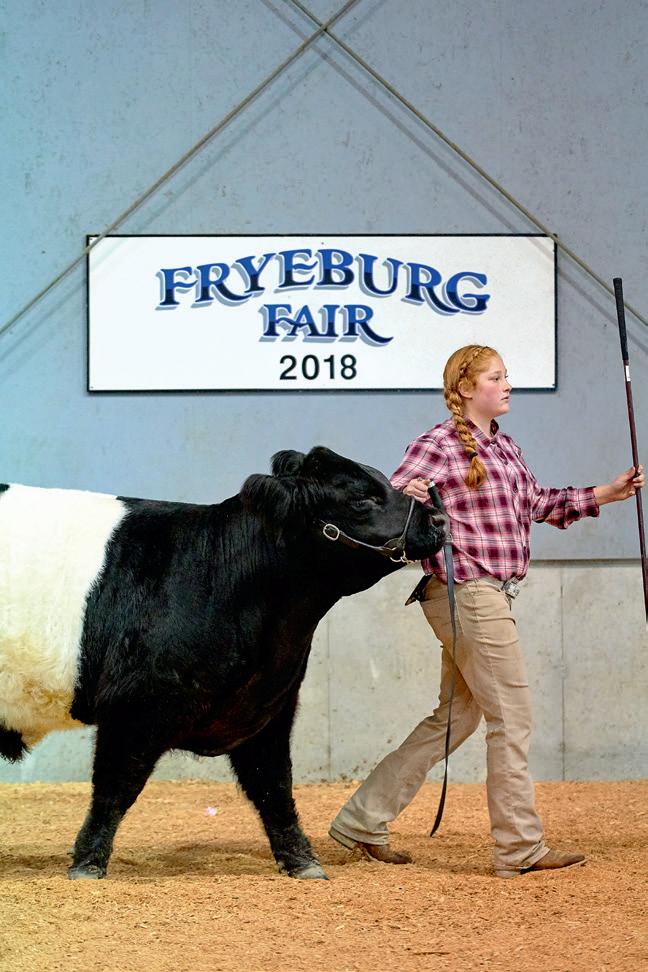
“Two people came in yesterday and went on about our bulls,” he says. “‘They aren’t bulls,’ I told them. ‘They’re cows.’ I mean, how can you not know that?”
It’s a fine start to our journey. But I do wish that anvil had sailed a little farther.
A soggy morning has given way to a soggy afternoon by the time we roll through Bethlehem, New Hampshire, a small town in the western White Mountains that’s known for its antiques shops. Mark and I are on our way to Littleton for pizza and some Belgians at Schilling Beer Company, but our dinner plans get postponed when we see Hundred Acre Wood, a self-described showcase of “antiques and fun junk” that spills out of two barns on Bethlehem’s Main Street.
“We gotta stop,” I tell Mark.
After all, this had already been a day for discovery. On an early-morning scamper up Mount Willard, I found the peak socked in by fog. It was much the same at the nearby Omni Mount Washington Resort, where guests milled about the grand foyer, clutching coffees and peering out the big windows as they waited for a shuttle to the Mount Washington Auto Road. Among them were an English couple on a trip that would take them to Philadelphia and Washington, D.C. “We’re going for the full American experience!” the husband declared cheerfully.
From the hotel, Mark and I meandered around North Conway before hitting the road that had now led us to Hundred Acre Wood.
“I named it after the place where I met my wife,” owner Dale Jette tells us. “It was a












right : A detour near Littleton, New Hampshire, leads to Hundred Acre Wood, a treasure trove of doodads, artifacts, and “fun junk.” left : Scenes from Maine’s Fryeburg Fair, which got its start back in 1851 and today draws hundreds of thousands of visitors to this rural town.
blustery day. Winnie-thePooh, you know?”
Jette, who opened his business 27 years ago, is tall with a deep, gravelly voice. In his right hand he pinches a cigarette, on which he takes the occasional drag as he navigates various topics of discussion: prices, favorite things he’s sold, a Rockwell Kent print he’s still hoping to get his hands on.
Of the items Jette already has in stock—well, there are many. Crystal, cabinets, porcelain fixtures, luggage, doorknobs, tin cans, street signs. Inside one case are glass tubes of oil samples that Gulf Oil salesmen carried around in the 1940s. In one of the barns, 50 or so chairs hang from the ceiling. An old tub sits near the driveway. Raindrops ping away at a collection of pots.
At one point, two visitors from Norway ask about old license plates.
“Over there,” Jette says, directing them to a pair of plastic crates. The Norwegians, one of whom is collecting the plates from all 50 states to hang in his garage, comb through these as if they’re flipping through vintage vinyl. “A lot of New Hampshire,” one man says after a few moments. “I already have it,” the other replies.
“Massachusetts!” his friend exclaims.
“Hold on,” the man says, pulling out his phone. “I need to check my list.” He shakes his head. “Already got it.” Then he sees a Minnesota plate hanging high on the outside of one of the barns. He checks his phone again. “No Minnesota,” he says.
“Could I get that one?” he asks Jette.
Jette looks up. “That’s gonna run you a bit more, but we can get it down for you.”
After the Norwegians leave, Jette scans the property. A story seems ready to surface for how he found every item in that sprawl of “fun junk.”
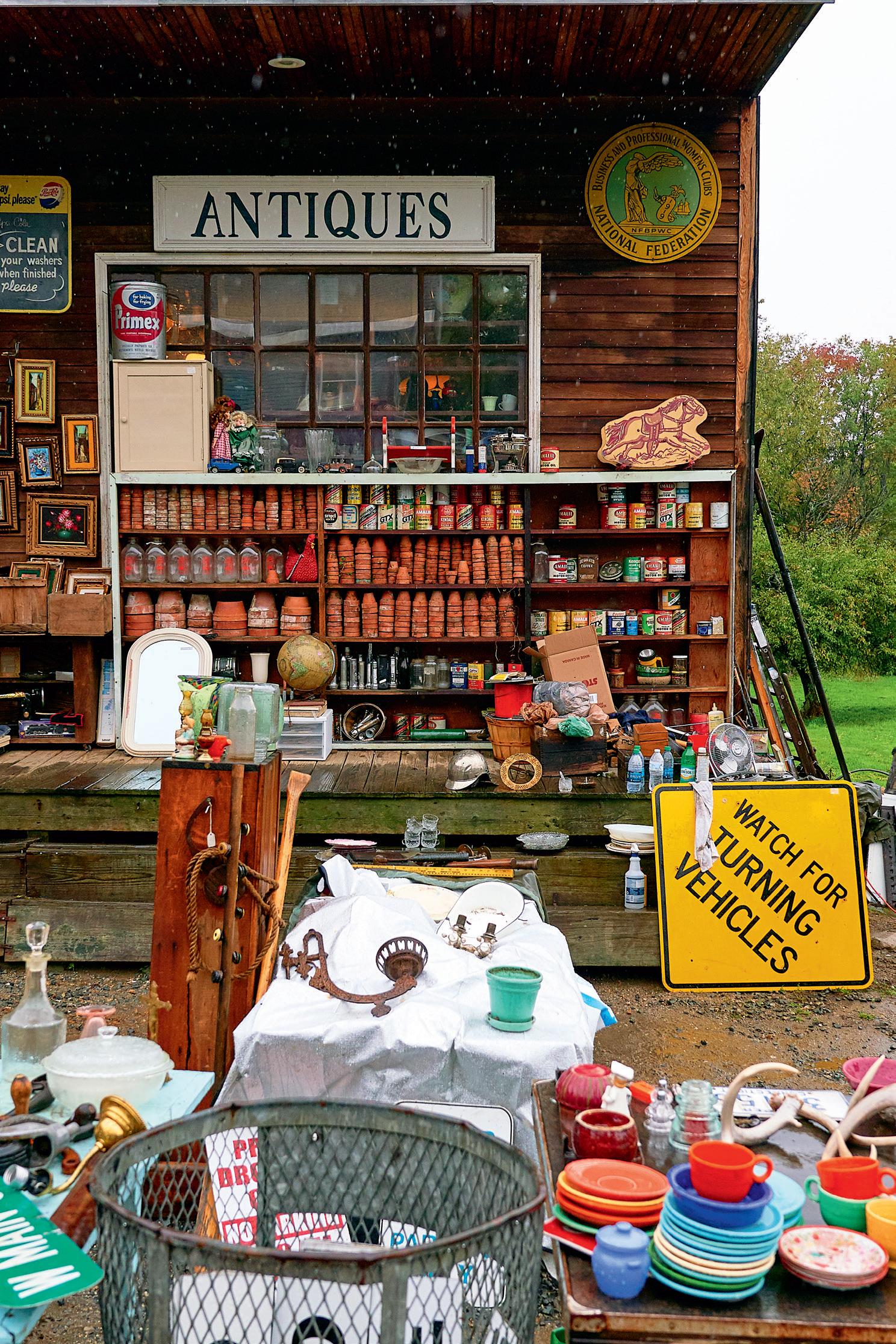
From corn mazes and cider doughnuts to photo ops and foliage hikes, discover our can’t-miss autumn experiences at newengland.com/ fall-bucket-list
When we planned our trip, we knew we needed space for the unexpected. To meet people we hadn’t planned on meeting. To discover places we hadn’t planned on visiting.
Like Dale Jette and his Hundred Acre Wood.
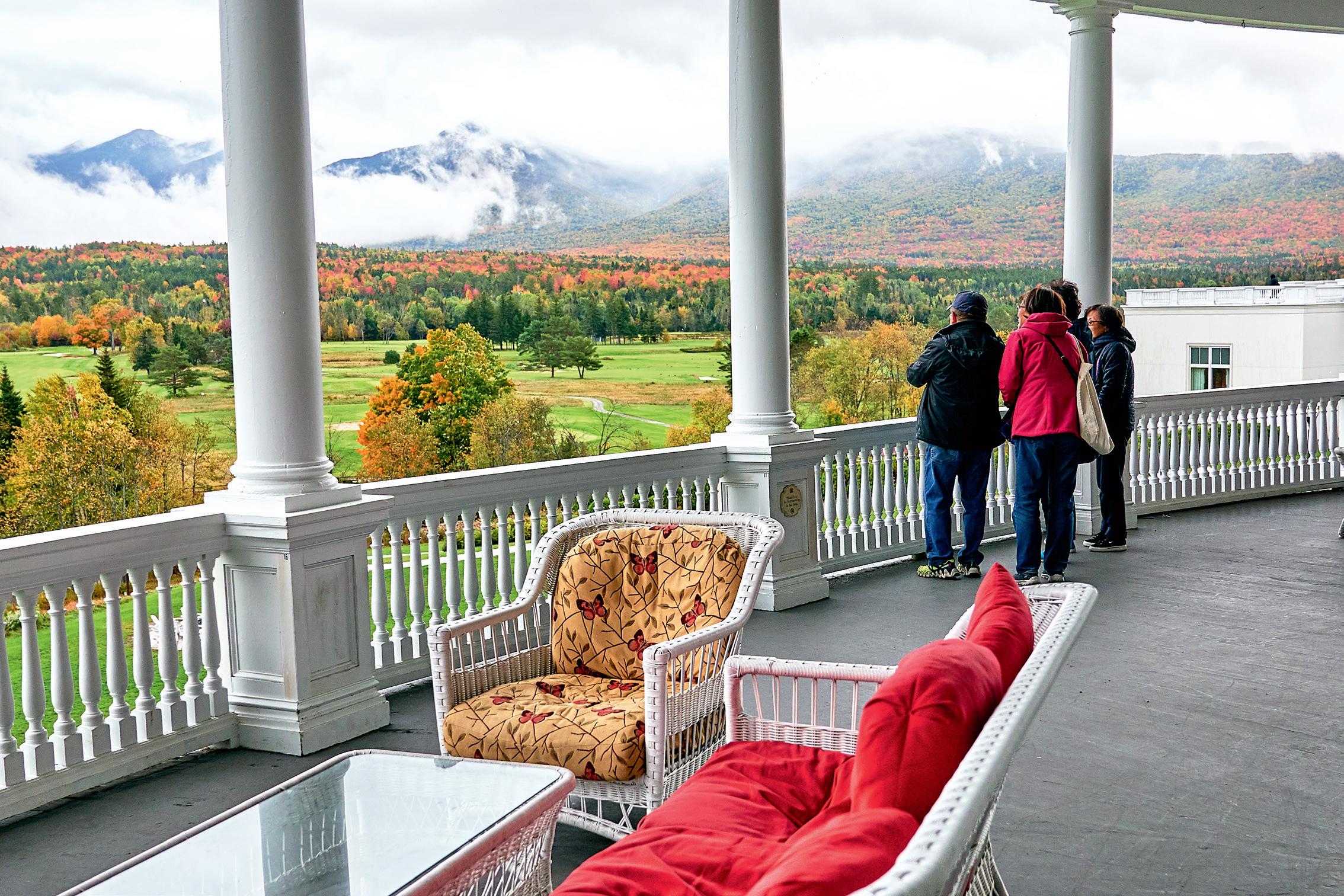
Next week, next month, or next year—whenever my mind drifts back to this trip—I’ll know that this was the day Mark and I became bona fide foliage tourists. The seeds were planted in the morning, when hopes for our first sunny day were dashed by clouds and drizzle. We scrapped our zipline excursion at Bretton Woods and pushed on to the Kancamagus Highway, the 34-mile east-west mountain pass between Conway and Lincoln that’s known as New England’s most scenic road.
The Kanc is blessed by what it doesn’t have. No restaurants. No shops. No gas stations. Instead, travelers drop into the middle of the White Mountain National Forest, where the scenery is the only focus. Each year, some 775,000 cars travel this highway—and if you time it wrong in autumn, it can feel as if every single one of them is sharing the road with you.
Fortunately, traffic is light as we begin climbing the Kanc. Scraps of blue sky appear only to be shrouded again by clouds, but we drive on,
following like-minded foliage seekers. We take our time, stopping at turnoffs for photos of leafy slopes and valleys. I meet travelers from Italy, China, England—all here to see what I, as a New Hampshire native, have seen my whole life.
“I was here many years ago,” says an older man from Israel, looking wistfully at the Sandwich Range. Then he smiles. “I drove up Mount Washington and got the sticker for my car.”
Farther north, we get a dramatic gain in elevation on the Cannon Aerial Tram, which has hauled tourists to the top of its namesake mountain since 1938. The seven-minute ride takes us to a cloud-soaked peak, and photographer Mark shakes his head with disappointment. There is color out there somewhere, but nothing that we would see today. “Tomorrow,” I tell him. “Maybe tomorrow.” And then I check the forecast. Seventy percent chance of rain.
Well, there’s the promise of Vermont. One of the things for which New England is celebrated is the sheer variety of landscapes that fit into this compact region. All week we see this. At lunch, we’re atop Cannon’s granite peak; two hours later we’re rolling past the sloping pastures, red barns, and white farmhouses that
line Vermont’s Route 2. Stretching into the distance are vast expanses of browning cornfields, retired for the year. No bursting reds and bright oranges, but beautiful just the same.
We stop first at Waterbury’s Cold Hollow Cider Mill, whose parking lot is jammed with cars from South Carolina, New York, Georgia, and Pennsylvania. “I hate apple cider,” Mark says as he hops out of the RV, “but I do love cider doughnuts.”
When you step onto the grounds of Cold Hollow, the Vermontiness blasts at you. REAL LIVE VERMONTERS , a sign promises. And:
VERMONT TO THE CORE . Housed in a former dairy barn, Cold Hollow is an apple lover’s Shangri-La. There’s a bakery turning out fresh pies and crisps, as well as the mill that makes fresh cider—from McIntoshes grown on the shores of Lake Champlain—every day on a vintage press. More apple goodies line the shelves: butters, honeys, vinaigrettes, salsas, jellies. There’s a film on cider-making to watch.
But on this cool October day, seemingly everyone is here for the cider doughnuts, which are made by four “doughnut robots” and which topple, fresh from the hot grease, onto a counter in front of everyone, impossible to resist.
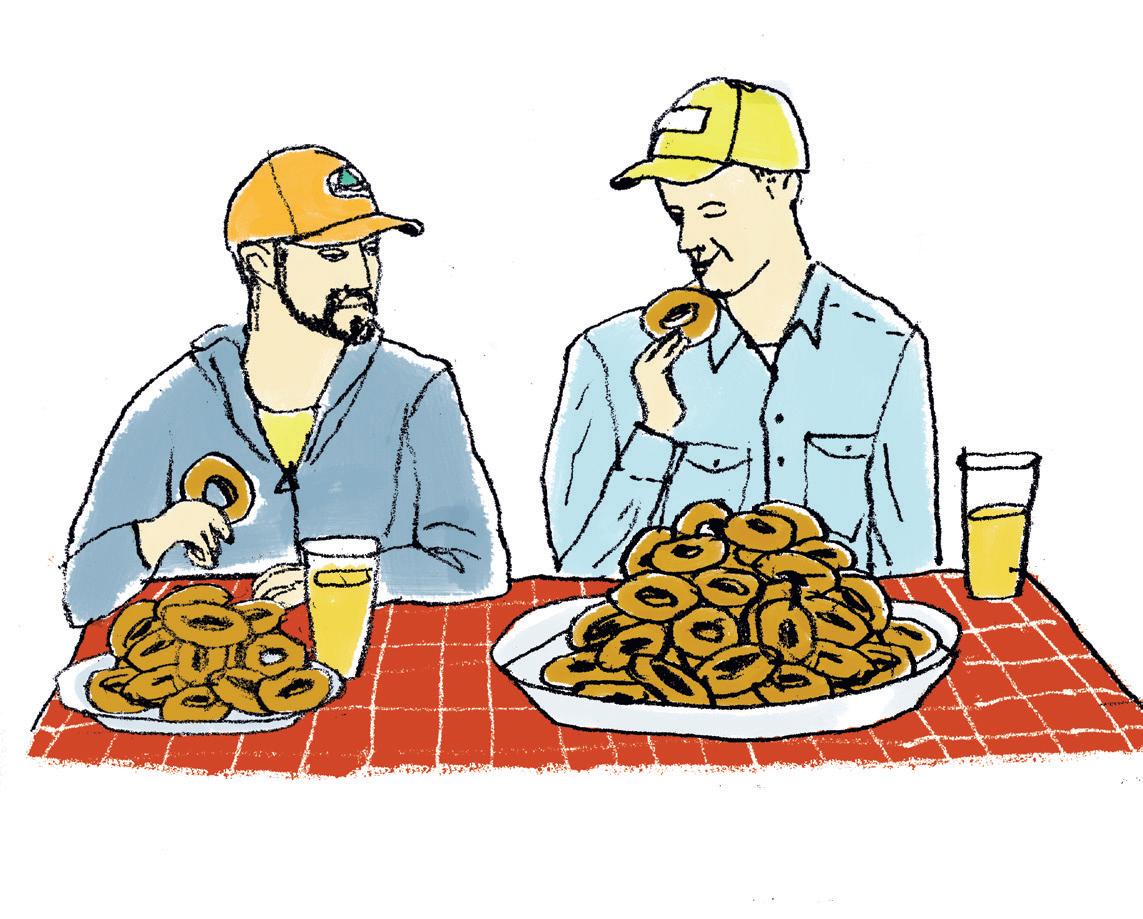
At the center of all the action is general manager Jamie Neuman, who takes the crush of visitors in stride. “We’ll make 40,000 doughnuts just for Columbus Day weekend,” he says. “What we have right now is pretty light compared to that.” Then, anticipating the question he gets asked all the time, he adds, “I still eat the doughnuts. Every day. But there’s a point where you have to limit yourself, so you don’t go home smelling like one.”
A counter server hurries past. “Another coach just came in,” she says frantically. Neuman peers out the window and shrugs his shoulders. A foliage pro.
Our day begins early, with a drive up Route 108 through Smugglers’ Notch State Park. Up and up we climb, along what feels like an evernarrowing road. At the top we meet one of the park’s nature interpreters, who is in the thick of dealing with foliage visitors.
“You can tell pretty quickly which folks have never been here,” he says. “They always honk when they’re going around the corners. That’s what it says you should do on the

Wikipedia page for this place, but nobody who’s from here does it.”
Another sign of newbies: stuck trucks and trailers. On the turn known as the Shark’s Tooth, which gets its name from the rock that juts into the road, larger vehicles have known to founder. “You can see a couple of spots where the rock has been chiseled away to free up somebody,” the interpreter says with a laugh.

Mark and I manage just fine, thank you. I handle the tight turns, he handles the lookingout-the-window part. It’s a team effort.
By early afternoon we arrive in the small town of Peacham. Here in the Northeast Kingdom, defined by villages surrounded by broad swaths of forest, is one of the country’s best fall celebrations. Over the course of a full week the Northeast Kingdom Fall Foliage Festival rolls through the region, with different communities hosting each day. Today is Peacham’s turn.
This town of 732 residents is one of the most photographed in the state, and it’s easy to see why: rolling farmland, crisp white houses, and a steepled church that looks as though it was airdropped from a Hollywood set. From the town center, a dirt road rises to a hilltop cemetery before dropping down again into lush farmland.

Autumn gives a small town like Peacham the chance to let go of its quiet remoteness and show off a little, to brag about what’s here and what life is like. In the town center, people from as far away as Texas and Kentucky roam and linger. On the patio of the Peacham Café. At



the elementary school, where fifth- and sixthgraders serve up lunch. At the craft fair and along the ghost walk. Many festivalgoers are veterans. “I’ve been coming here for 15 years.” “I started visiting in the ’80s.” And: “I can’t imagine fall without coming to Peacham.”
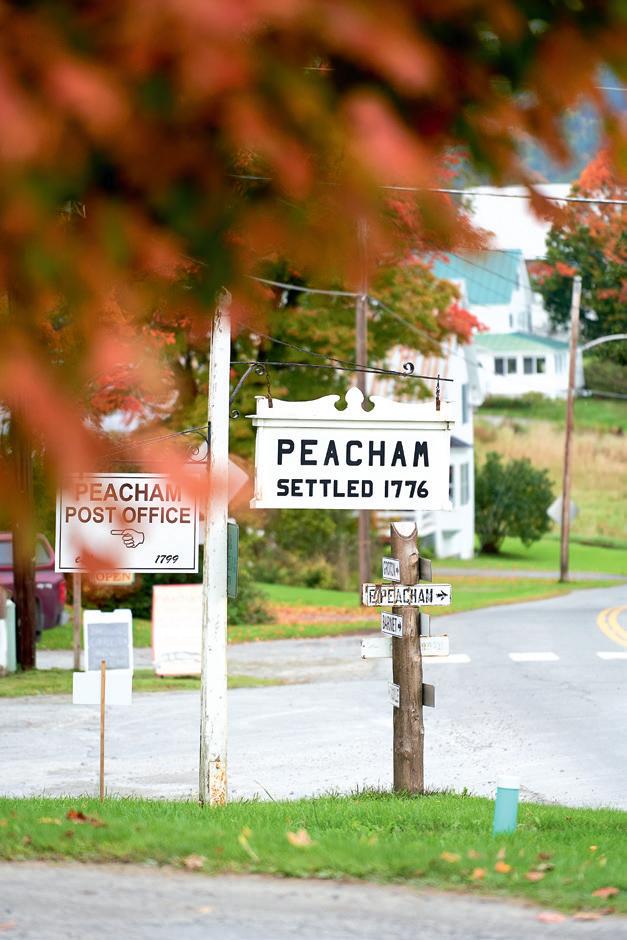
Marne Kies-Dietterich, a nurse from Pennsylvania, is one of the regulars. I find her sitting at the visitors table at what is possibly the world’s only snow roller museum, scribbling a note to museum founder Richard Hovey. “I just think this is the best thing in the world,” she says, pumping her fist. Kies-Dietterich had never heard of this part of Vermont until 30 years ago, when she read about it in a magazine. “They were looking for people to help the seniors get ready for winter, so I volunteered,” she recalls. “I started coming during the festival and just got hooked. I come this week every year and go to all the towns.” She laughs. “Most people don’t even know my name—they just
know me as the lady from Pennsylvania.”
At the end of the afternoon, Mark and I join Kies-Dietterich and others in the town church basement for the big festival dinner. Heaping pans of pasta keep coming out of the kitchen. “We’re going to cook probably 40 pounds of it tonight,” the supper’s head cook tells me. Bread, salad, and cake and cookies round out the menu.
At the tables, people talk about the season, the winter ahead, and how the rain had maybe held back some of the numbers for this year’s event.
And of course, they talk about next year.
It’s funny the effect that a fine fall day can have on normal human behavior.
In Taftsville, Vermont, I witness a nearpileup after a group of tourists pulled over to photograph a covered bridge. In Marshfield, people snap away at another covered bridge that is, truly, just a covered walking path. At Quechee Gorge, visitors spin like tops as they try to capture panoramics. In Woodstock, a local tells me it’s not uncommon to see grown women pick up leaves from the sidewalk and slip them into their handbags like rare jewelry stones.
But it’s our visit to Sleepy Hollow Farm in Pomfret that shows us just what the Vermont foliage scene means to many people. With its big barns, late-1700s farmhouse, and knack for catching the light just right, Sleepy Hollow is catnip for photographers. In the morning or early evening, the narrow dirt road to the farm may be lined with as many as 20 cars, as shutterbugs hunker down with their tripods.
Mark and I arrive shortly after 6 a.m. It’s still dark. We figured we’d be the first visitors, but we are wrong. Lin Go, a biologist from China who has been living in Boston, is already walking the road to study the setting, waiting for

Autumn is a season of beauty and bounty, but its true allure lies in its brevity. We have to make each day count.left and above : New England villages don’t get more classic than Peacham, a Vermont hamlet that joins several equally picturesque neighboring towns in hosting the weeklong Northeast Kingdom Fall Foliage Festival.
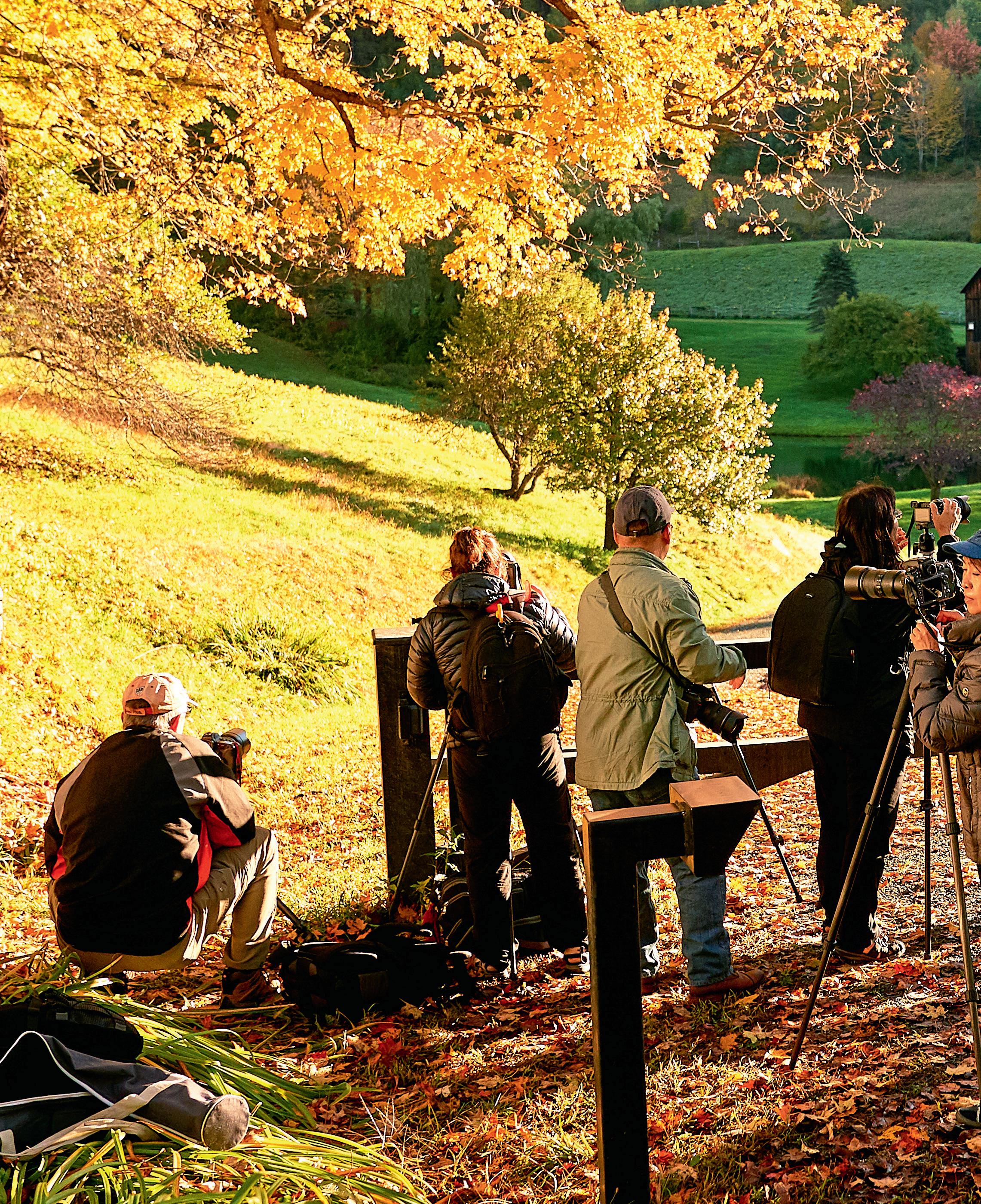
As morning sunlight begins to spill into the valley, photographers jockey for a shot of Sleepy Hollow Farm in South Pomfret, Vermont.
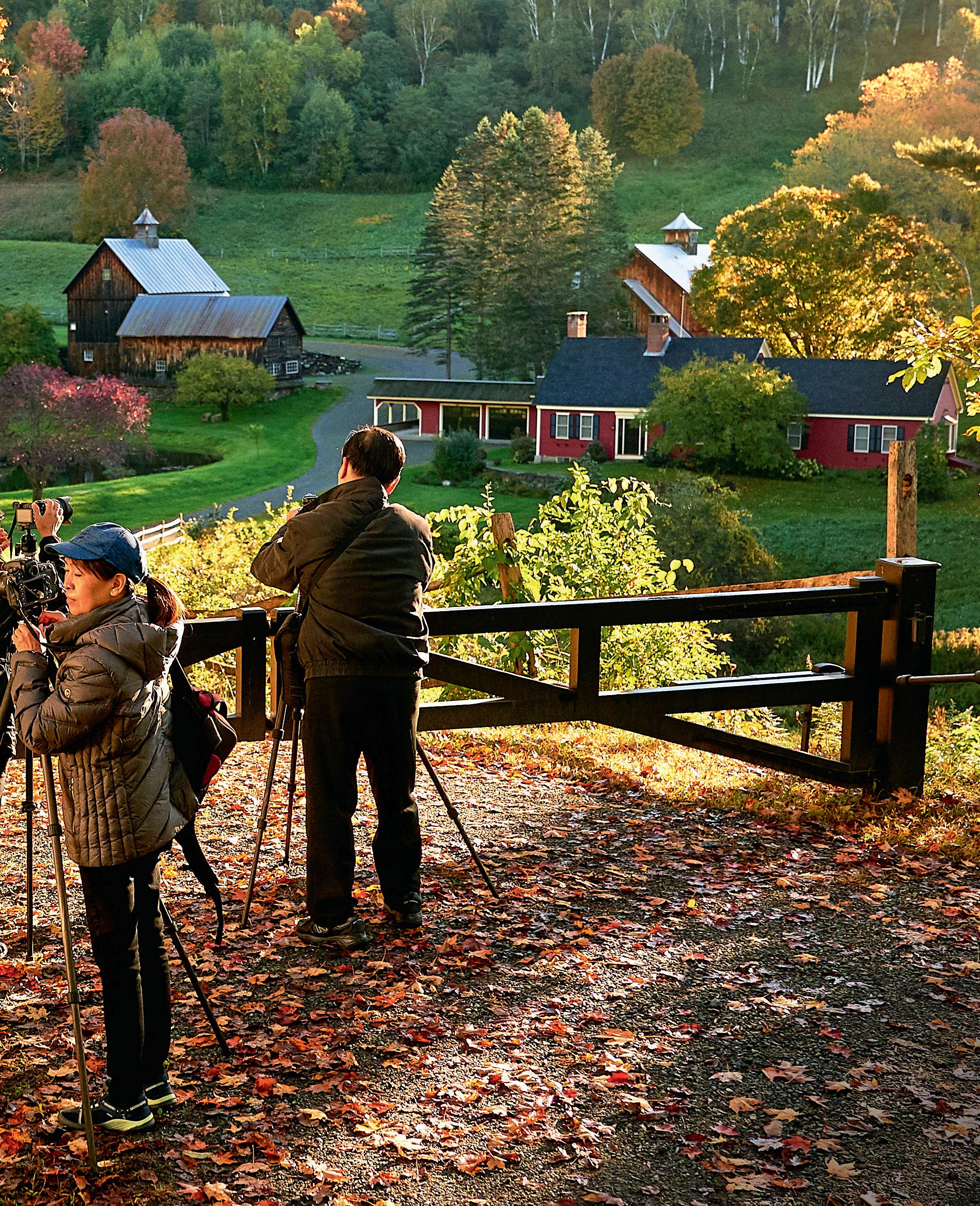
No
first light. He left Boston at 3 in the morning and planned to move on to Jenne Farm, the other most-photographed property in Vermont, in nearby Reading.
“There is nothing like this in China,” he says. “The colors. I had to get these pictures before I head home.”
Soon, others come: A man from Pennsylvania who gets ribbed for wearing an Orioles jacket in Red Sox country. A group of Vietnamese photographers from southern California. Perhaps most impressive, a young father named Aim who’s driven from Los Angeles with his wife and their three children, including a 3-month-old.
“We go on a long trip when my wife is on maternity leave,” Aim explains. “As soon as the doctor says we can travel, we get in our van and just start driving.”
Already they’ve been on the road for two solid months, living out of a red minivan. “I saw a photo of this farm while we were at Niagara Falls, and I told my wife I had to see it to photograph it,” Aim says, and laughs. “I get the morn-
ings and evenings to shoot, and then I have to put the camera away.”
Mark and I linger at Sleepy Hollow for two hours, and Aim doesn’t leave. Later that morning, I drive by the farm once more and find him packing up. It’s been nearly four hours, and only just now is his family waking up. The best morning light has passed. It’s time to get back on the road.
At times our trip teeters on the ridiculous, with an itinerary whose ambition we didn’t truly appreciate when drawing it up. Yesterday we were in the Northeast Kingdom. This morning we’re in Woodstock. Late tonight we’ll make the long drive through New Hampshire to midcoast Maine.
But before we do, we head all the way back to the Northeast Kingdom to Danville’s Patterson Farm, home of the Great Vermont Corn Maze, the largest in New England. It’s a 24-acre mindbender whose setup includes an underground tunnel and a 28-foot cabin cruiser parked amid the corn. On average, completing it takes nearly

three hours. Other mazes celebrate fall; this one dares you to sweat it out.
“You have to arrive before 1 p.m. to do it, because I’m not going to hold your hand to find your way out,” says owner Mike Boudreau.
Over the past several weeks, Boudreau has slept only a few hours a night, because he’s also the architect of one of the most remarkable Halloween destinations in New England. For four nights every October, the farm hosts Dead North, a haunted attraction that takes participants through the fields and into various buildings while costumed characters—some with deformed heads, some with no heads at all—leap out from the dark. All of this, to the sound of death metal raging in the background. Launched in 2001, the production quickly achieved legendary status, and its 2,000 tickets sell out quickly.
Boudreau sports a shaved head and a lean build, which on this day is wrapped in a trench coat stained with fake blood. “I spend the year making stuff I can’t find,” he says—for instance, equipment needed to make a character burst from a grave. After building a suitable contraption, he convinced a friend, a state cop, to play the body. “Each time, we shot him three or four feet in the air and six feet forward,” Boudreau says. “He was exhausted.”
Friends and volunteers build sets, play characters, and make the kinds of noises that, in the dead of night, on a farm at the end of a dirt road, can make a grown man scream. Many, many times, as I discover when Mark and I take the Dead North tour that night.
I keep running into the young woman in front of me. At some point I just give up apologizing; she gives up telling me it’s OK. At other times I try to play it cool and say hi to whoever is jumping out from the dark. But not a single part of me is relaxed. During most of the 40 minutes it takes us to navigate the course, my hands are tight fists, as if I’m ready to fight.
One man emerges from the corn with a revving chainsaw. Later, demented clowns spring to life; a room of spinning kaleidoscope colors makes me dizzy.


Someone creeps up behind Mark and whispers, “Run.”







“AHHHHHH!” he yells, hurtling into me. When it’s over, Mark and I are … what? Relieved? Excited? Even capable of operating a large vehicle? We have no option regarding the latter: We’re due in Maine for the pumpkin festival and my date with a pie eating contest. So, adrenaline pumping, we drive.
I know people are watching, and I start strong. On the advice of an insider, I use my teeth to flip the pie tin upside down. Then I remove the tin and crash my face into the crust. The first few moments, I eat almost by instinct. Mouth opens, mouth closes.
But soon my drive ebbs, vanishes. I think I may never want to eat pumpkin pie again. Ever. I look up at the sky, bend forward, look at my fellow contestants, then glance over at Mark, who stands among the onlookers. Is he laughing? I try to go in one more time.






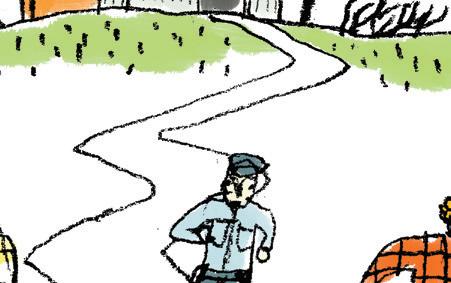

In the end, I consume barely half of what becomes a giant mess of whipped cream and pumpkin filling.
It was how the trip had to end: an over-thetop attempt to devour everything before time’s up. Just like autumn. It’s a season of beauty and bounty, but its true allure lies in its brevity. It is so brief, so defined, that we have to make each day count, with fairs and festivals, showy corn mazes, and unusual methods of calorie consumption. That’s the autumn Mark and I set out to discover, and that’s the season we found during our week on the road.
Whether you prefer driving through foliage-painted mountains or along a colorful coastline, our New England road trip ideas will help inspire your own journey.
newengland.com/ hit-the-road
But damn, that was a lot of pie.


EVERYONE OUTSIDE NEW ENGLAND NOW ROOTS AGAINST BOSTON’S SPORTS TEAMS. CAN WE BLAME THEM?
 By Leigh Montville
By Leigh Montville
I always thought I could fly, watching those seagulls drop out of the air to spear yet another French fry from the MDC trash cans across from Kelly’s Roast Beef in Revere, but I never had given it a shot. The Boston Red Sox gave me strength.
‘If the Red Sox can win the World Series,’ I said, stepping from the house just moments after reliever


























Keith Foulke fielded a ground ball and flipped it to first baseman Doug Mientkiewicz for the final out and the 4–0 sweep of the St. Louis Cardinals, ‘then I surely can fly.’
I flapped my arms as fast as I could, jumped into the air, and I was off. Simple as that. I soon was soaring across Boston Harbor and then downtown and then directly over the celebrating crowd at Kenmore Square. I buzzed a couple of Northeastern University kids climbing a lamppost, startled a TPF trooper into dropping his truncheon, took a hard left at the Prudential Building….”
— LEIGH MONTVILLE, BOSTON SUNDAY GLOBE, OCT. 31, 2004
CONFESSION: I did not attend the last couple of duck boat parades.
CONFESSION: I can’t remember the last duck boat parade I did attend.
Didn’t go. Can’t remember.
This is embarrassing.

Here I am, the man who tap-danced deliriously across the Globe ’s special souvenir sports section 15 years ago, said he could fly when the Red Sox finally won a World Series after 86 years of trying. Did not even work for the newspaper anymore, hadn’t for a while, but was called back. One day only. The sports editor said the special section had grown so fat that it contained over a million dollars’ worth of ads. I was an added part of that happy fat.
Who better to chronicle the Sir Edmund Hillary (and Tenzing Norgay) moment when the Red Sox finally reached the summit? I had kept track of the carnage on the side of the mountain as the paper’s sports columnist from 1968 until 1989, had counted the stitches, weighed the buckets of tears, watched Bucky Dent send a baseball softly into the left-field screen at Fenway Park, watched another baseball roll through Bill Buckner’s legs at Shea Stadium. I had seen the misery. I had seen the spectator pain. I was the historian of this particular hell.

And now this bad time that had stretched across any number of lifetimes was over? Done?
“The Charles River—it appeared to me, at least—had been turned into buttermilk,” I wrote in the Globe . “The John Hancock Building was made out of chocolate. The strings on the Zakim Bridge played a melody when the wind hit them just right. The hospitals all were empty, the churches all were full. A heart seemed to beat in the middle of Fenway Park, right under the pitcher’s mound….”
Too much?
I couldn’t help myself.
All of New England was caught by this moment, this joy. You didn’t have to like baseball, didn’t even have to like sports. All you had to do was open the door, look at your neighbors. Smiles were everywhere. Radios were loud. Dancing occurred. People were headed to cemeteries to drink a bottle of champagne with departed dads and moms and Fat Uncle Joe. We did it! Finally! The heaviest tables in all of sports had been turned. Everybody had a part in it. The players on the Red Sox roster might have done the final job, but the people of the city, the region, had lived the lives.
I went to the duck boat parade. Damn right I did. I went with my grown son and my grown daughter, who
“I learned how to fly a few minutes before midnight on Oct. 27, 2004.
had cried as children when the sad things happened, the same way I had cried as a child when the sad things happened. (Question: Was I a bad parent for walking my kids into this familiar vale of tears? Answer: I had thought so, many times.) All bad thoughts were purged. Feelings arrived that I didn’t even know existed. I had conversations in my head with ghosts from 20 years ago, 30, 40 years ago, people I hadn’t remembered for a long, long time, especially fans of the New York Yankees, both alive and dead. This was bigger and better than I had ever imagined.
It mattered that the Red Sox finally had won the World Series and I was alive to see it. I might never be a millionaire, might never be discovered by Hollywood, might never write that novel—might never do a lot of things on the checklist—but this one was done. Check. The Red Sox had won the World Series.








There would never be a moment like this again.

Except…













CONFESSION: I do know I went to the parade to celebrate the Red Sox win in the 2013 World Series. I went with my two grandsons. Bought them those long plastic horns that make those long irritating sounds that make children happy and adults deranged. The grandsons’ mother was not happy.































CONFESSION: I am pretty sure I have been to another














parade since then. Maybe the New England Patriots in the snow? Waving at Tom? Tom waving back? Maybe. Maybe not.







Hard to say.
There is a duck boat parade on the second Tuesday of every other month these days. Or so it seems. The duck boat parade has become a regularly scheduled event.

The once-in-a-lifetime moment for most cities has become the 10th-, 11-, 12th-in-a-lifetime moment around here.right : Many of Boston’s greatest athletes, including Red Sox Hall of Famer Ted Williams, never knew that championship feeling. PHOTO CREDITS: AP IMAGES, ALAMY STOCK PHOTO, SHUTTERSTOCK; COURTESY OF BOSTON DUCK TOURS, BOSTON CELTICS, BOSTON BRUINS, BOSTON RED SOX

FACES AND STORIES FROM AN AMBITIOUS PHOTOGRAPHY EXHIBIT REVEAL DRAMA, HUMOR, AND GRACE IN PEOPLE JUST LIVING THEIR LIVES.
above: University of Southern Maine professor Mark Silber, who is also a documentary photographer, captured this image of kids at a swimming lesson for Sumner 200: Portrait of a Small Maine Town, a book he coauthored for Sumner’s bicentennial. usm.maine.edu/sbs/mark-silber
left: When not working as a striper fishing guide, Steve Brettell is a decoy artist whose work has earned national awards and been commissioned by the likes of L.L. Bean. This portrait by freelance photographer Michael D. Wilson shows the master carver surrounded by birds of all stripes in his Biddeford workshop (at his feet is Vivian, his black Lab and hunting companion who, sadly, passed away earlier this year). mdwphotographic.com
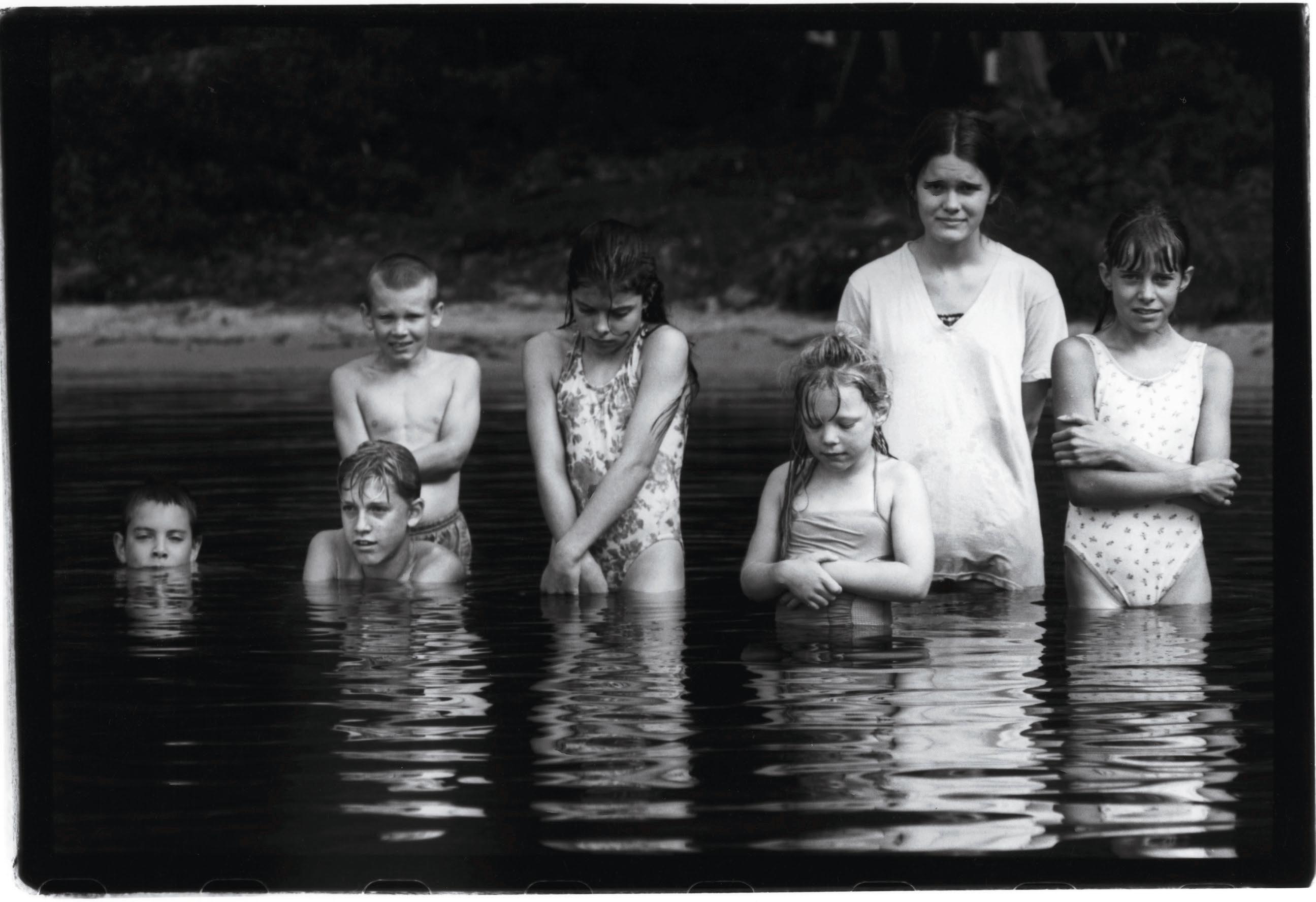
On a winter day in 2018, Bruce Brown and David Greenham were talking about how the deep divisions in America had undercut our sense of community, both locally and across the nation. Greenham, the associate director of the Holocaust and Human Rights Center at the University of Maine at Augusta, suggested an ambitious antidote: a photography exhibit at the center to showcase Mainers going about their everyday lives, at home, working, playing, just being in Maine. As Brown recalls it, “We’d show that even though we were different, we still were one. I took that to heart. He said, ‘We’ll fill the walls top to bottom.’”
A longtime collector and curator, Brown is an influential voice for art and photography in Maine—so much so that the new Center for Maine Contemporary Art in Rockland named a gallery in his honor. He knew the best photographers with ties to Maine, and he wrote to them all. He also knew that there must be many others, skilled amateurs with a passion for the craft, whom he did not know, so he contacted photo clubs, chambers of commerce, photography teachers, asking: Who am I missing? He also found some by serendipity, such as the 13-year-old who came up to him at a photo show and peppered him with so many questions that Brown knew he wanted to include the kid’s work.
above: Far above the deck of the schooner Mary Day and the waters of Penobscot Bay, crew member Katie Haugen Schoettle grins up at Jim Dugan, who climbed 70 feet into the rigging to get the eye-popping perspective for this shot. A photographer and Web designer as well as a licensed Maine Guide, Dugan teaches photography for one week every year aboard the Camden-based windjammer and has also stood in for members of Mary Day ’s regular crew from time to time. jimdugan.com

right: Photographer David Wade spent over a dozen years traveling the world doing all kinds of stories, but—as he recalled in a MaineToday interview last spring— that changed after he moved to Portland in 1997. Upon seeing its waterfront, he realized it was as exotic as anything he’d seen, and “I [didn’t] need to go anywhere else,” he said. Wade’s recent show, “The Working Waterfront,” spanned 20 years of photographs and led off with this image of a lobsterman atop a mountain of traps on Widgery Wharf. davewadephoto.com
After six months compiling “the most grueling show I’ve put together,” Brown had assembled 190 photos sent by 73 photographers from 89 different locations. Titled “Everyday Maine,” the show opened at the Holocaust Center in September 2018 to rave reviews, and when it closed in December, it was only to catch its breath. The exhibit next headed south, to the University of New England Art Gallery in Portland, where it opened last April under the direction of UNE curator Stephen Halpert, and where it remained until late June.
When I saw the exhibit, I knew I wanted more people to see what can happen when you bring a bold idea to fruition. The photos filled two floors. I saw farmers and boatbuilders; migrant workers and asylum seekers; fishermen and mill workers; sled dog racers and kids running through strawberry fields. Each portrait held its own story for the viewer to fill in.
There is quiet talk of perhaps making the exhibit a book one day. I hope that happens. “Everyday Maine” makes a simple statement that we need to pay attention to and brings into focus David Greenham’s original idea: “There’s not ‘us’ and ‘them,’ there’s ‘we.’” —Mel Allen
To see more photos from the “Everyday Maine” exhibit, go to newengland.com/everyday-maine
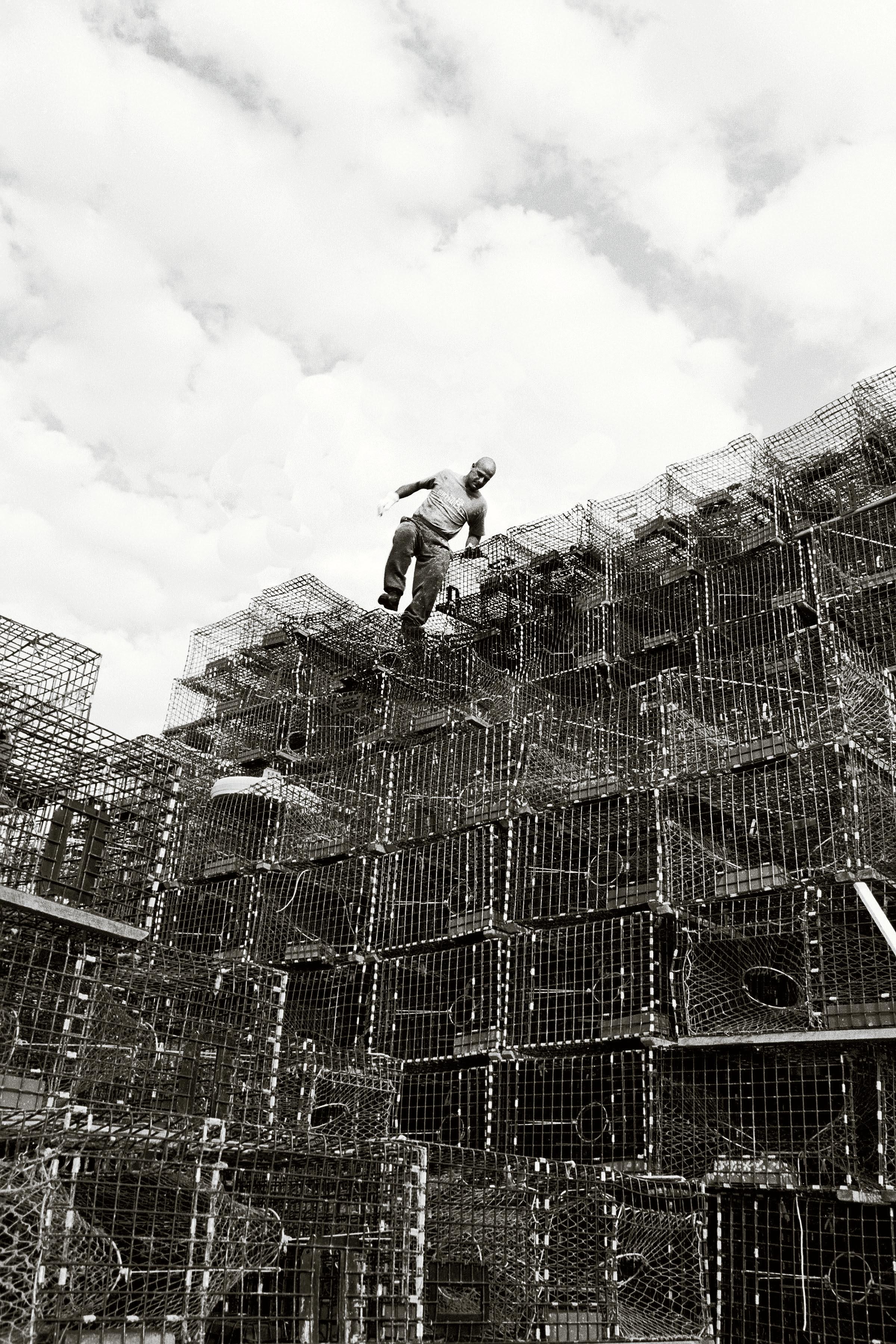
Every spring, thousands of would-be customers vie for a coveted reservation slot at the Lost Kitchen, a 45-seat restaurant in the tiny town of Freedom, where chef-owner Erin French serves seven-course “farmhouse” dinners that are widely regarded as once-in-a-lifetime foodie experiences. While on assignment for The New York Times in 2017, Portland-based freelancer Stacey Cramp, a specialist in food photography, caught this moment between French and some of her reverential diners. staceycramp.com
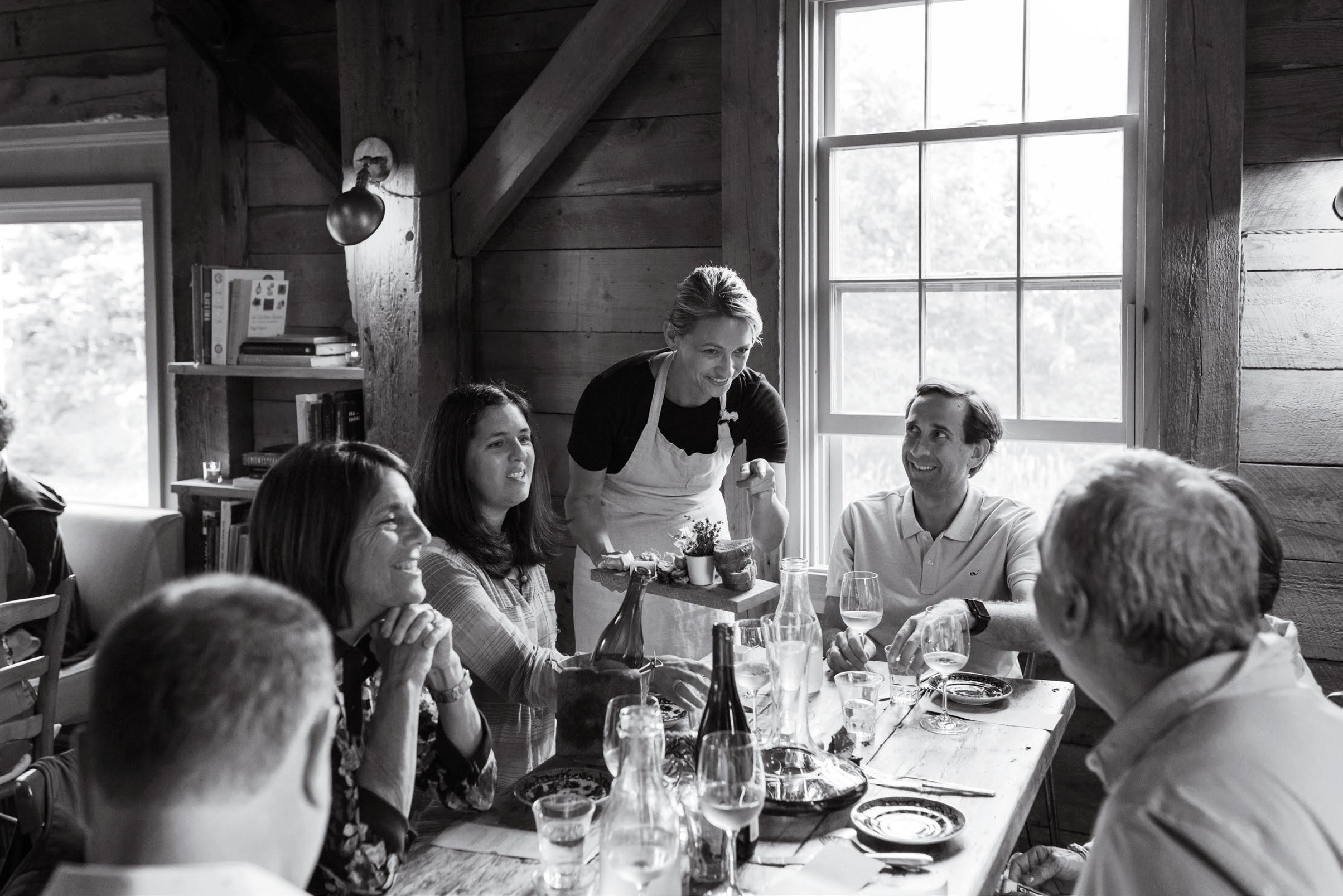
In Lubec, a small town in Maine’s far eastern reaches, residents line up for plates of spaghetti at a 2013 fund-raiser for their neighbor, Warren Foley, diagnosed with Lou Gehrig’s disease. “I’m happy to have captured a sense of the event,” says Leslie Bowman, a photographer and painter who teaches art at the University of Maine at Machias. “This is my hometown, and Warren was my mailman and engine repair guy. He played music with several local groups and was loved by all.” The event, which was attended by about 600 people, raised $20,000 to help with Foley’s expenses. bowmanstudio.net

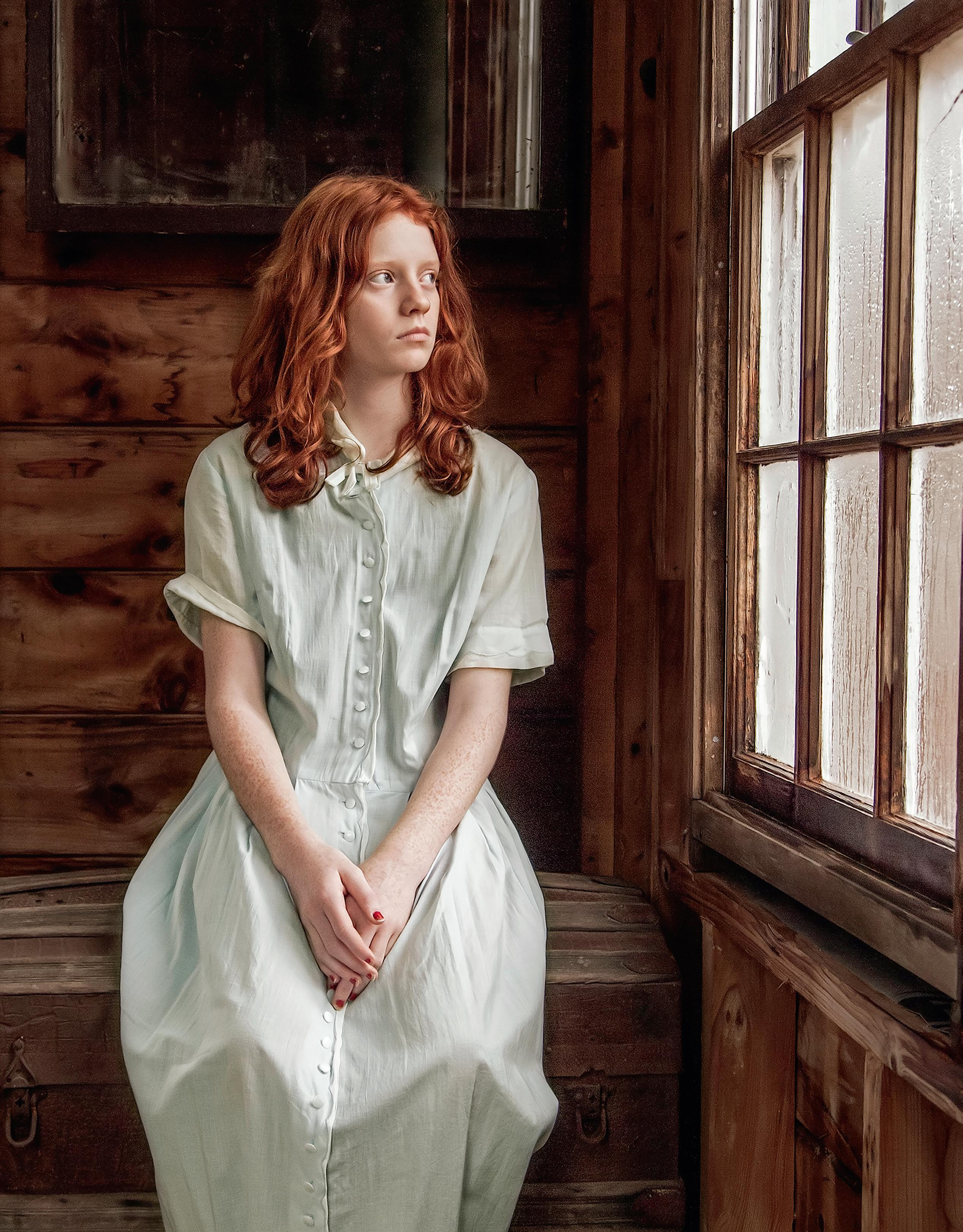
above: In bringing his Maine Media Workshops photography students to Ricker Orchards in Auburn, Brendan Bullock wanted to give them a chance to document agricultural labor as well as interact with an often-unseen population: seasonal migrant farm workers. This dramatic shot came from Bullock himself, who grew up working summers on a Vermont farm alongside seasonal Jamaican laborers and says he was “always incredibly taken by their kindness, humor, and incredible speed and efficiency.” brendanbullock.com
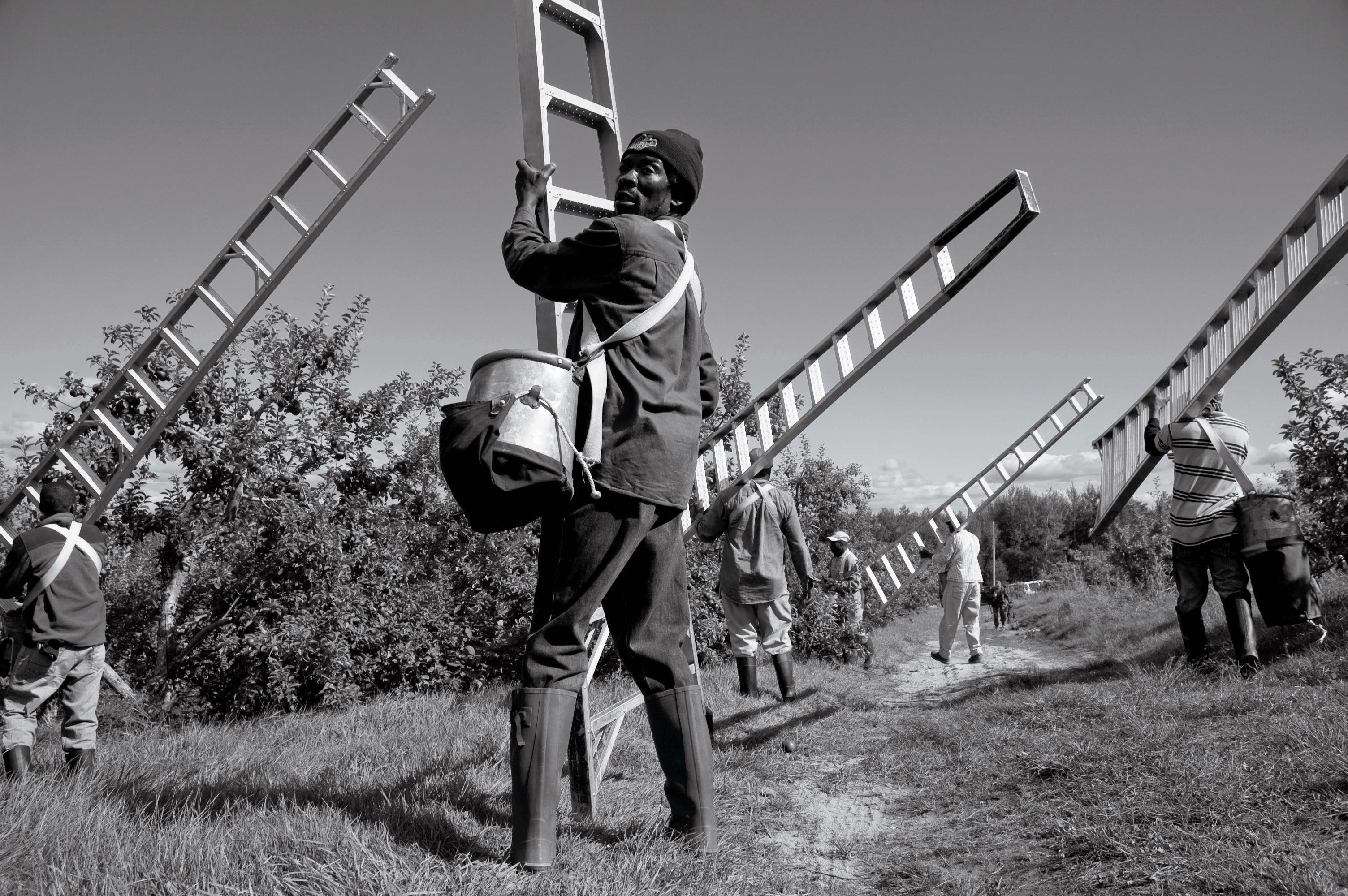
right: On the Fourth of July, the northern Maine town of Houlton hosts “an old traditional parade—bands, tractors, horses, floats— that’s a wonderful opportunity to capture community spirit,” photographer Elise Klysa writes, adding, “I’m going again this year. :-)” eliseklysa.net
left: This painterly image of the teenage daughter of some friends typifies the coming-of-age portraits created by Freeport’s Jack Montgomery, who says they echo his own late mother’s story of growing up in a New Hampshire tenant farmer family during the Depression. “The young girl, longing to move forward into a fulfilling adulthood, the sense of longing for something just beyond the horizon—it all moves me,” he says. jackmontgomery.com.
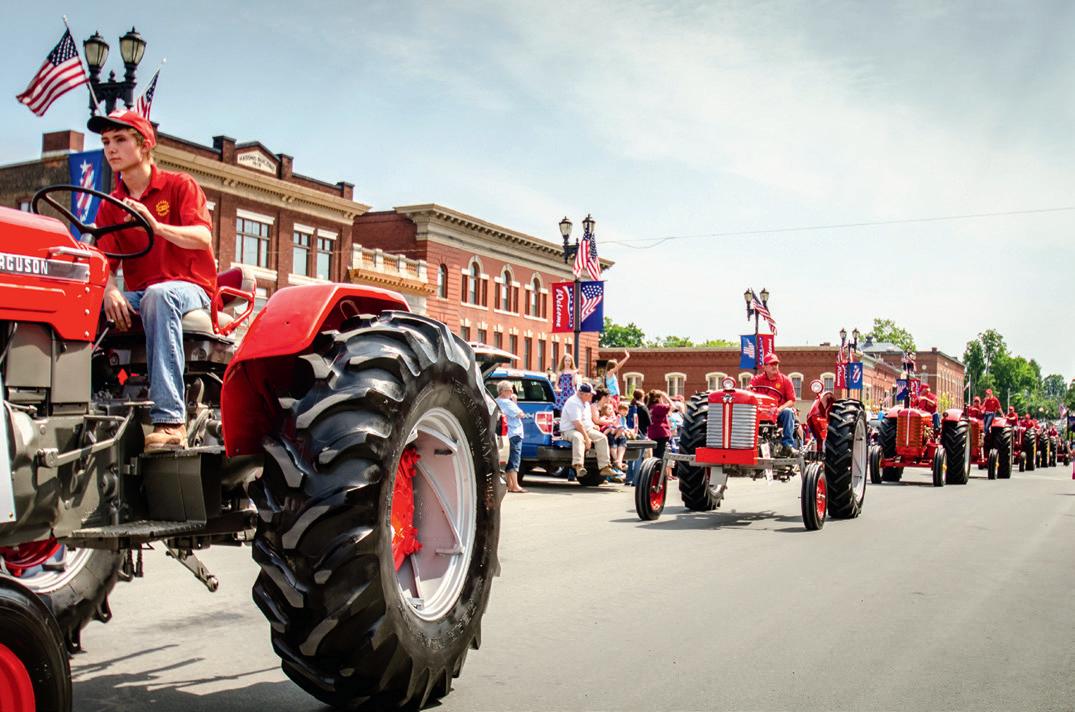
Living simply in an East Machias home with no TV or phone, heated by wood he cuts himself or collects on the beach, Kris Larson has been a blueberry picker in Washington County for more than 50 seasons. He is also a gifted photographer, as shown by this moment of energy and cacophony that he found during Robstock, a heavy metal and skateboarding festival in Whitneyville, back in 2005. Larson traces his love of photography to 1964, when he was 11 years old and his parents gave him The Family of Man, a collection of images from the history-making Museum of Modern Art exhibit of the same name. themaineblog.com/master-shots-kris-larson
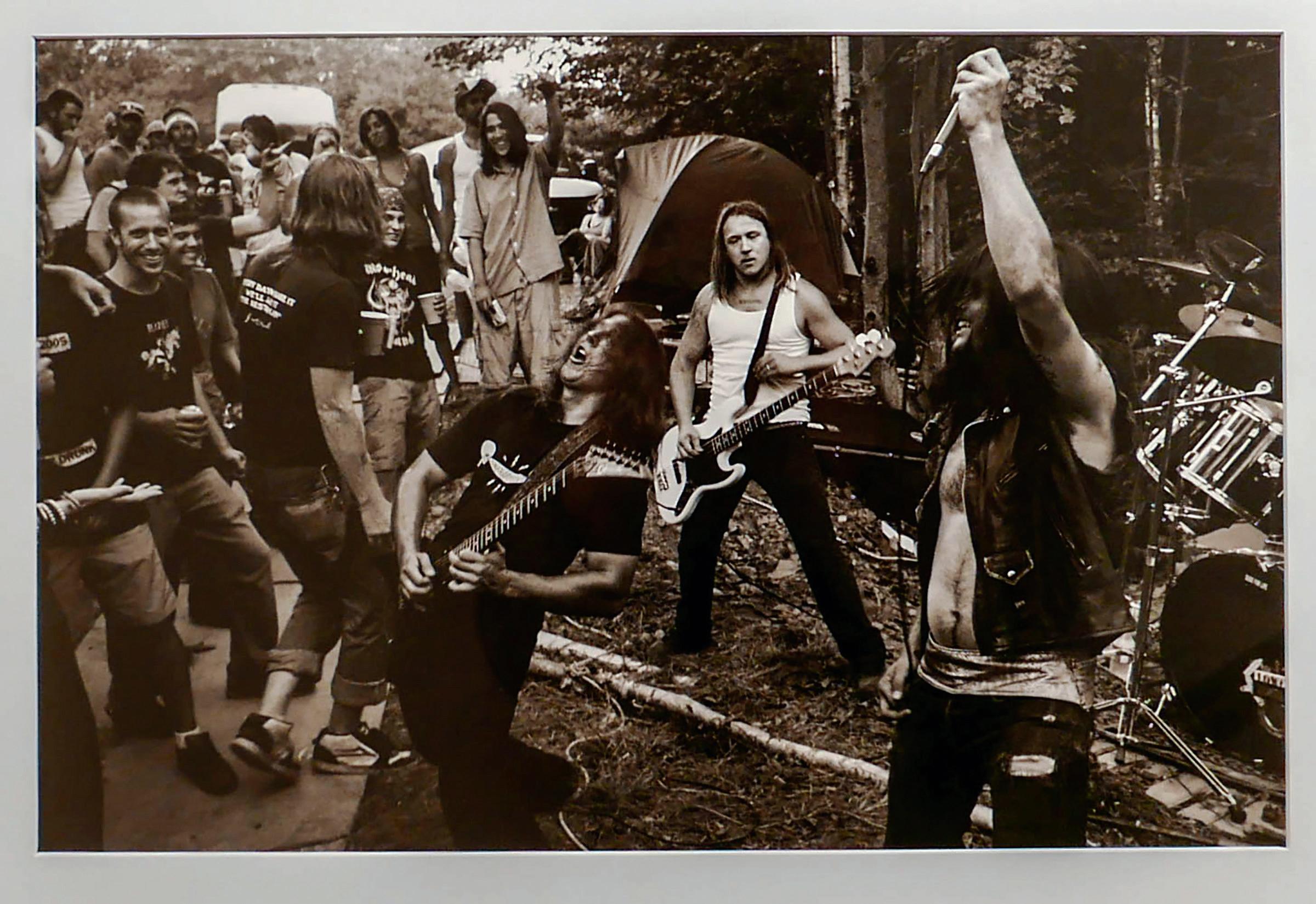
Molly Haley has been photographing at Portland Adult Education for the past six years, documenting students’ stories and compiling moments of learning, community, and celebration. This 2015 image from a beginner’s English class, filled with students hailing from countries such as Somalia and Djibouti, “conveys the joy and connectivity of the school’s culture,” says Haley, an alumna of the Salt Institute for Documentary Studies. A freelance photographer based in Portland, Haley has previously worked as director of multimedia at the Telling Room, a nonprofit creative writing center for youth, and says her work as an educator “has informed and inspired my own practice as an artist and a documentarian.” mollyhaley.com

above : Beans that have been cooked in 900-pound castiron kettles heated by traditional brick ovens get a stir in this photo taken by Arielle Thomas at B&M Baked Beans, a landmark Portland factory where little has changed over the past century. ariellelovesphotography.com
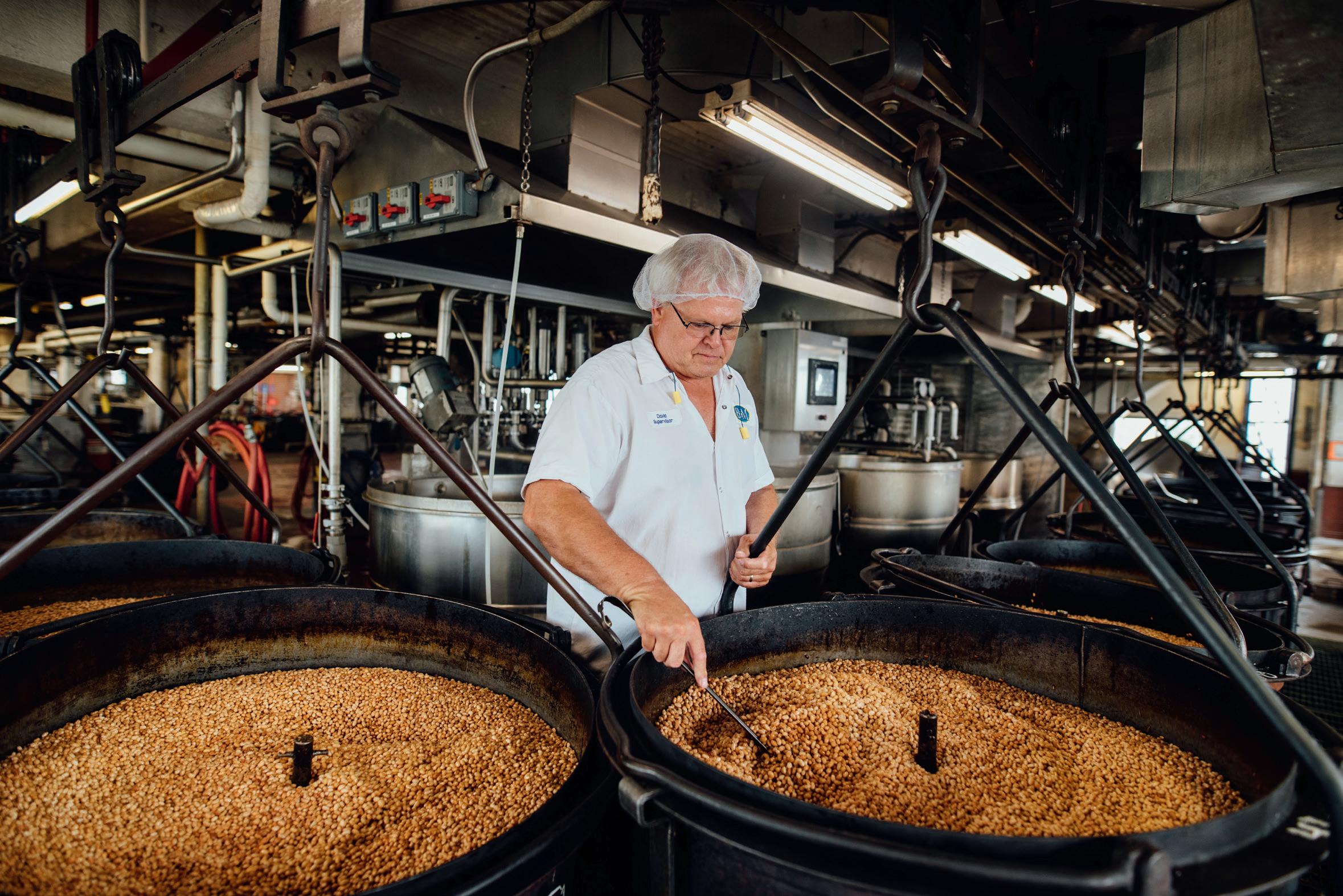
right : A Portland native who taught photography to all ages of students for 40 years, Jere DeWaters found a portrait of timeless craftsmanship in Littleton’s Richard Silliboy, a Micmac artisan who weaves the type of brown ash utility basket that was once an essential tool for Maine potato workers and a means of survival for his people.
opposite : Of all the photos in the “Everyday Maine” exhibit, “Amish Girl” is the only one not to show a human face. It was taken in Whitefield, a Lincoln County town that’s recently seen an influx of Amish, who are typically reluctant to have their faces photographed. Yet there’s still a lot of personality in Elise Klysa’s image of this little girl, taken as her mother was selling jams and crafts on their front porch. eliseklysa.net
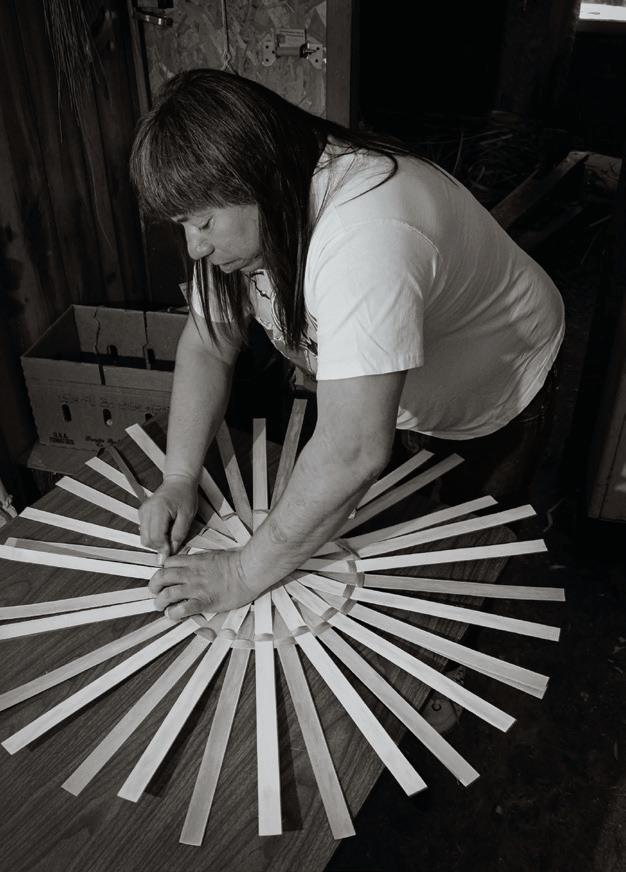

As a Massachusetts kid, Whit Perry explored the Mayflower II on field trips to Plimoth Plantation. Today he’s helping ensure that future generations can experience this one-ofa-kind replica, too.
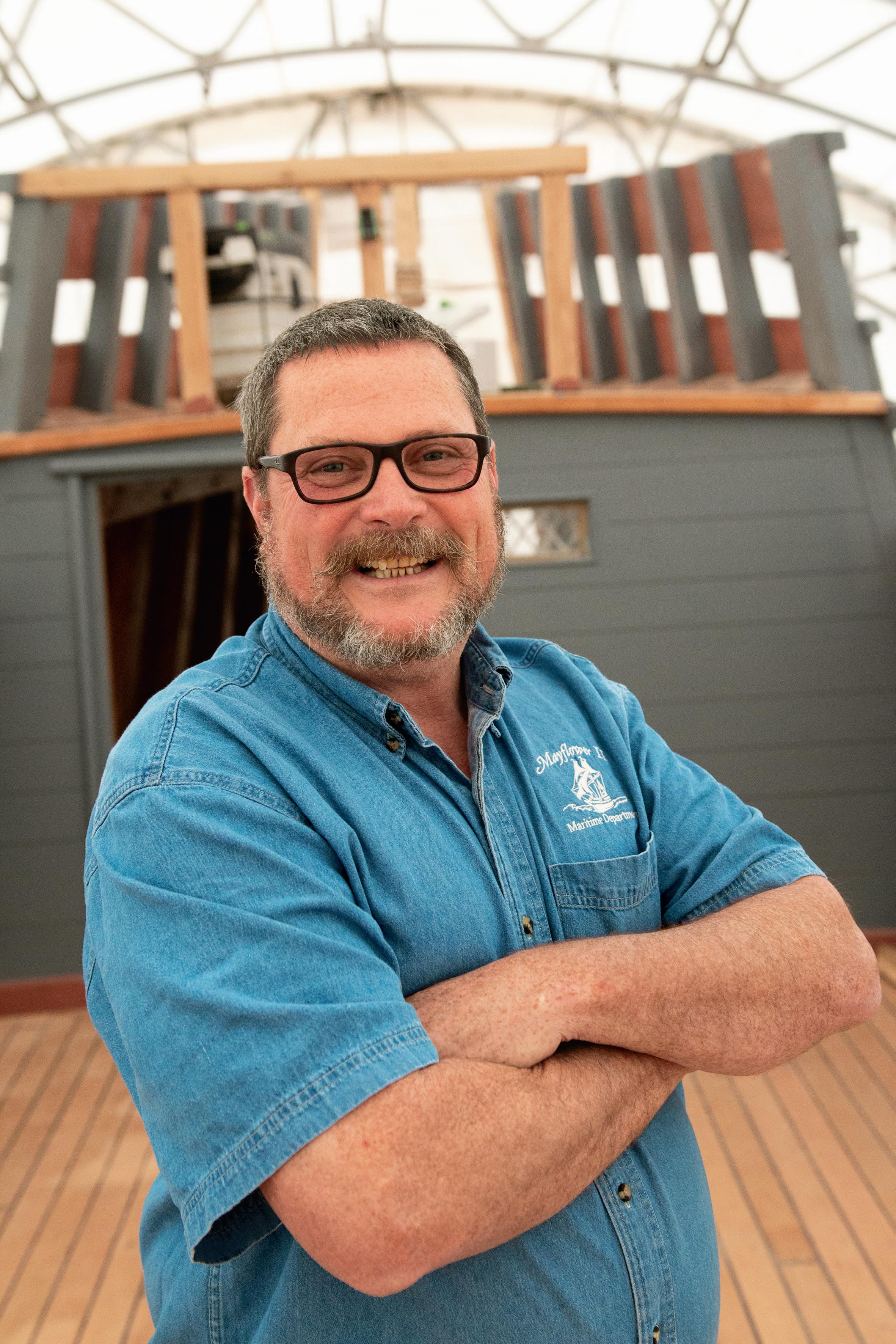
WE ASK WHIT PERRY:
On September 7, the 63-year-old Mayflower II, a full-scale replica of the ship that brought the Pilgrims across the Atlantic in 1620, will return to the water after a three-year, $11 million restoration at Connecticut’s Mystic Seaport. Next spring, it will make the journey home to Plimoth Plantation in Massachusetts, where it will reopen to the public and be on display for the 400th anniversary of the Pilgrims’ landing. Presiding over this ambitious project is Whit Perry, director of maritime preservation and operations for Plimoth Plantation. A native of Massachusetts, Perry cut his teeth on boat restoration at his family’s summer home on New Hampshire’s Squam Lake. He’s owned his own shop and sailed across several oceans, and while working at Virginia’s Jamestown Settlement he oversaw the preservation of three 17th-century vessels. We caught up with Perry at his temporary office in Mystic to get his thoughts on old timbers, resurrecting the past, and what it means to come home.
“From an early age, working on boats and fixing them up felt like a natural thing to me. The more I did it, the more I got interested in doing more of it.”
“My wife and I got married on Squam Lake’s Church Island. She rode out in my family’s 1927 Fay & Bowen, a gorgeous 27-foot long-deck launch. This was 1986, and a guy saw me working on the boat and asked if I’d restore his. I was like, ‘Really? You’re going to pay me to work on a boat?’ That’s how it all started.”
“When they started planning to restore the Mayflower II, the folks at Plimoth called my old boss at Jamestown to see if he knew anyone who could handle a restoration like this. I immediately put up my hand: Pick me, please pick me! To have a chance to restore something like this at such a large scale is the culmination of my career.”
“Besides just having a ship to look at and talk about, we’re keeping alive the old-time crafts. Listen to that [Perry points to the yard, where a shipwright is tapping oakum, a traditional caulk, between the Mayflower II’s planks ].
That’s a sound that has been ringing out over shipyards for hundreds of years. And I guarantee you the mallet he’s using is at least a century old.”
“When we’re done, we’ll have replaced around 75 percent of the ship. But you can’t just go down to the local Home Depot to get the lumber. All this other history went into making this project happen. We repurposed the beams from a pier in Groton, Connecticut, that was built in 1897; the wood is this beautiful longleaf yellow pine that you really can’t find anymore. The trees were probably saplings when the Pilgrims came over. The white oak we used for some of the other planking came from a managed old-growth forest in Denmark. The boards were three inches thick, two feet wide, and 40 feet long. No knots, no defects—the quality is unheard of for anything you could get domestically. I keep telling the younger guys, ‘You’ll probably never see wood like this again.’”
“It’s hard not to marvel at what those original Mayflower passengers went through to get here. Sometimes I’ll stand on the [midlevel] deck of the ship
INTERVIEW AND PORTRAIT BY
IAN ALDRICHand think about the 102 people who had to sleep in that little space during their 66-day journey. They had to make their way on this small boat as they sailed across the Atlantic to a new life they knew nothing about. But when you’re on the boat and start to sense what life must have been like for them, you begin to appreciate their wants and needs to look for something better.”
“We have access to knowledge and technology they just didn’t have when they built the Mayflower II in 1957. Back then, the wooden boat renaissance was still a couple of decades away. They were used to building steel boats. Guys had to be pulled out of retirement to do the work. Now, we’ve got nearly 50 years of preservation history to draw on. We’re documenting everything and making improvements where we can, so that in 60 or 80 years, whenever the ship needs another overhaul, the next crew will be able to see what we did and go, ‘These guys knew what they were doing.’”







 BY BILL SCHELLER
BY BILL SCHELLER
ix thousand horsepower, and we were still having trouble getting traction. Engineer Rod Smith and conductor
Ty Kahler were also having a hard time agreeing on the beauties of late autumn in Vermont. “This is my favorite time of year,”
Ty said. “With the leaves down, you see things you don’t see anywhere else.” Rod had a different take on the season. “Fall,” he piped in, “is the worst time of year for an engineer. The leaves on the track are like grease.”
You might agree with Rod about fall if you, too, are in command of nearly three million pounds of rolling steel.
It was a graying afternoon on the first of November, when leaves covered the rails. Rod was perched behind his engineer’s console as we trundled up a nearly twopercent grade just west of Ludlow, Vermont. Ty and I sat on the other side of the cab. We were riding shotgun on the lead unit of three GP38-2 diesel-electric locomotives, a quarter-million pounds and 2,000 horsepower each.
Train 264, the Vermont Rail System’s (VRS) daily freight out of Bellows Falls, was bound for Rutland. But first we had to get the train over the leaves.
left : Engineer Rod Smith, at the controls for the run from Bellows Falls to Rutland. right : Scenes from the railroad life, including a one-of-a-kind tattoo sported by the superintendent of VRS’s Green Mountain Railroad car shop, Aaron Bridge, and, at far right, a covered hopper sits on a turntable, waiting to be pushed into a roundhouse stall for maintenance at the shop.
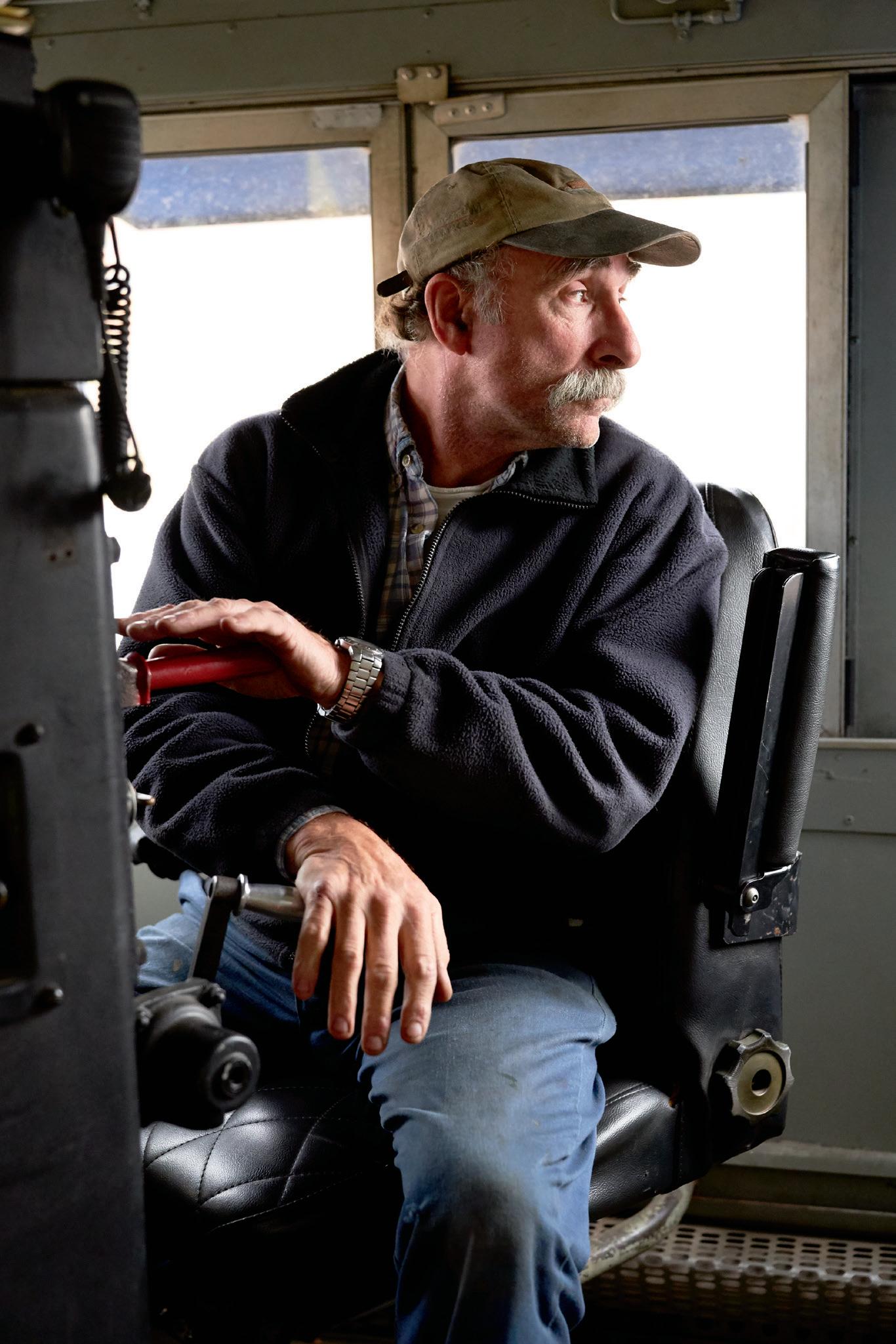
We New Englanders hear the sounds at night and at odd times of the day, especially if we live along the valleys where some of the first tracks in North America were laid: the almost melancholy note of the horn (still called a whistle, long after steam) and the rhythmic pounding of steel on steel. We likely know it isn’t Amtrak’s Vermonter or Ethan Allen Express, or the Massachusetts-to-Maine Downeaster, but we seldom tie those sounds to freight moving, unless we’re waiting, usually impatiently, at a grade crossing.
But freight does ride the rails, and much of New England’s economy rides with it. “The railroads,” a VRS engineer named Rick Wool told me, “are the cheapest way of getting stuff around in bulk.” And that’s a lot of stuff: In 2015, 6.7 million tons of goods and commodities moved through Vermont alone.
Train 264 consisted of 30 covered hoppers, traveling to where they would be filled with commodities like crushed limestone, talc, and cement; there are also two carloads of flour for Westminster Bakers, the cracker company, in Rutland. As freights go, 264 wasn’t a particularly long one. Rod Smith’s personal record is a nearly mile-and-a-half train of 118 cars.
Putting a freight train together is an exercise in planning and precision—“an organized ballet,” Vermont Railway executive James Mattsen told me, using an unlikely metaphor for an industry that is anything but light on its feet. Freight railroading is a realm of lugubrious charm, where even the sounds
and smells are heavy: the throb of diesel engines, the steel slam of couplers, the thick creosote aroma of Georgia pine ties warming in the morning sun.

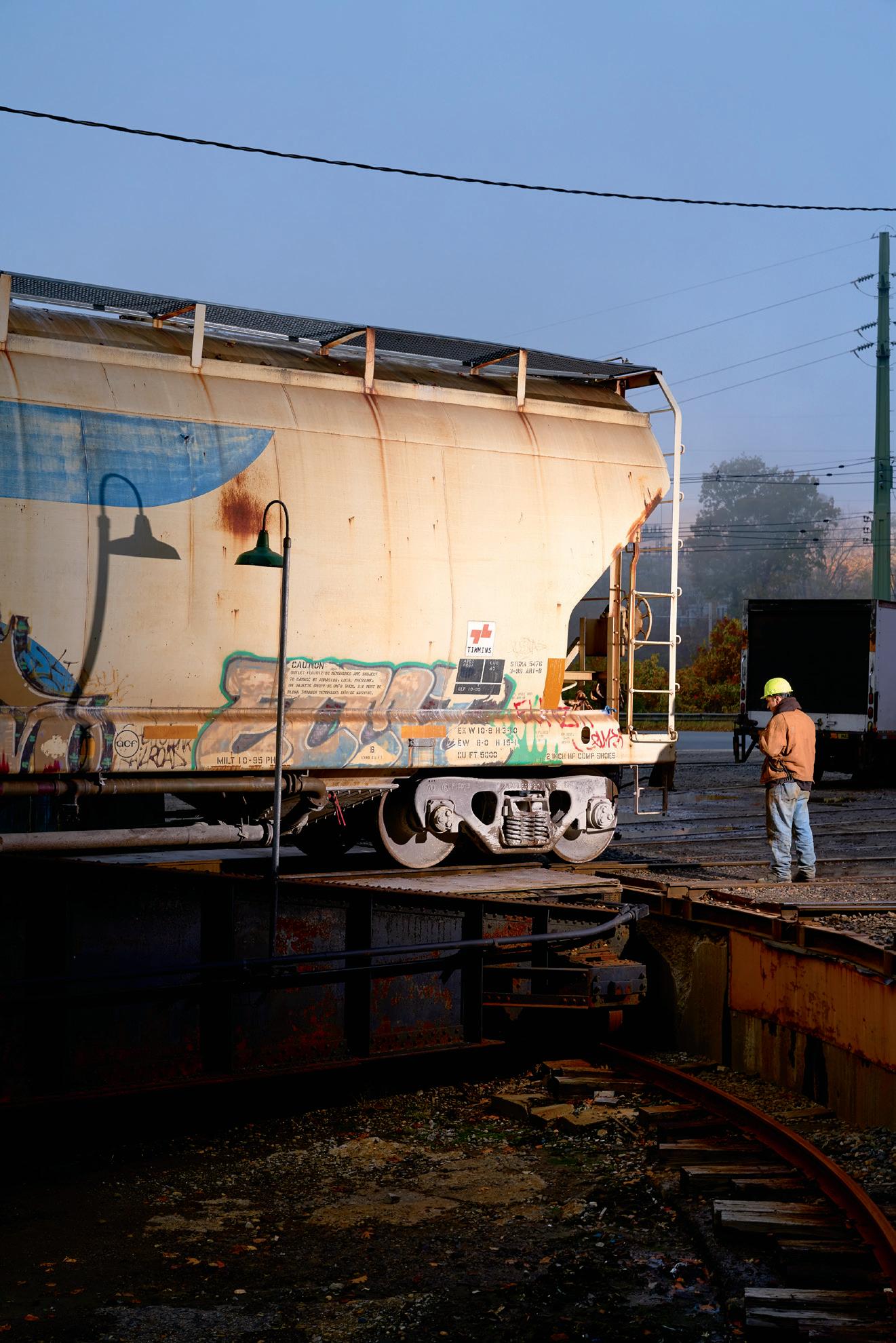
I’d started my day at a place called the Interchange, on the outskirts of Bellows Falls, where every day the Rutland train’s “consist”—its complement of cars—is assembled. “We never know what other railroads will be giving us until it’s almost time to make up the train,” said Mattsen. This morning, the New England Central had given us empty covered hoppers; we left empty fuel oil cars for one of its trains. As I rode in a switching locomotive with Rick Wool and his conductor, Tim Dumont, we passed cargoes of plywood, cedar siding and shingles, and snaky sheaves of rebar. A lot of it had come a long way, all by rail. “See those cars?” Rick said as he pointed to a siding. “Two or three days ago they were somewhere up in Canada.”
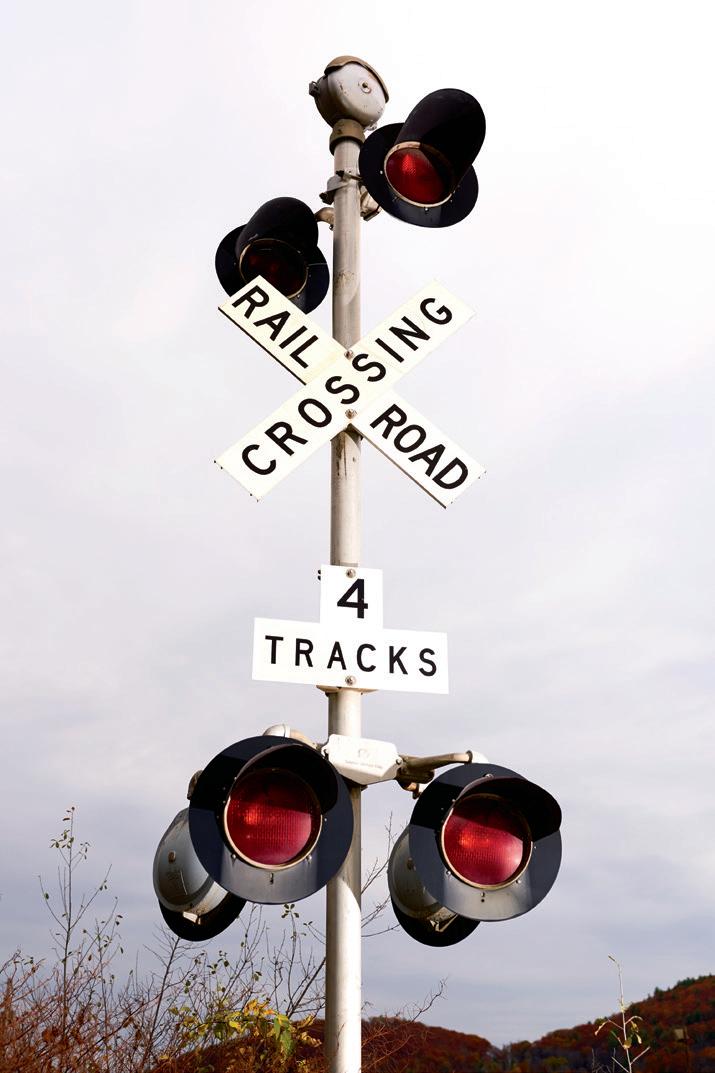
Tim, who minutes earlier had emerged from the engine compartment with a foil package containing an early lunch he’d heated on the diesel, set about the conductor’s job of checking off the cars we were picking up against his consist list. “That one there must be ours,” he said to Rick, pointing at the lead hopper behind us. “I think it’s an empty.”
“Lift it up and see,” Rick shot back.
The steel ballet was finished by early afternoon, and Rick lumbered off in his switcher. Now 264 belonged to Rod and Ty, and to the three

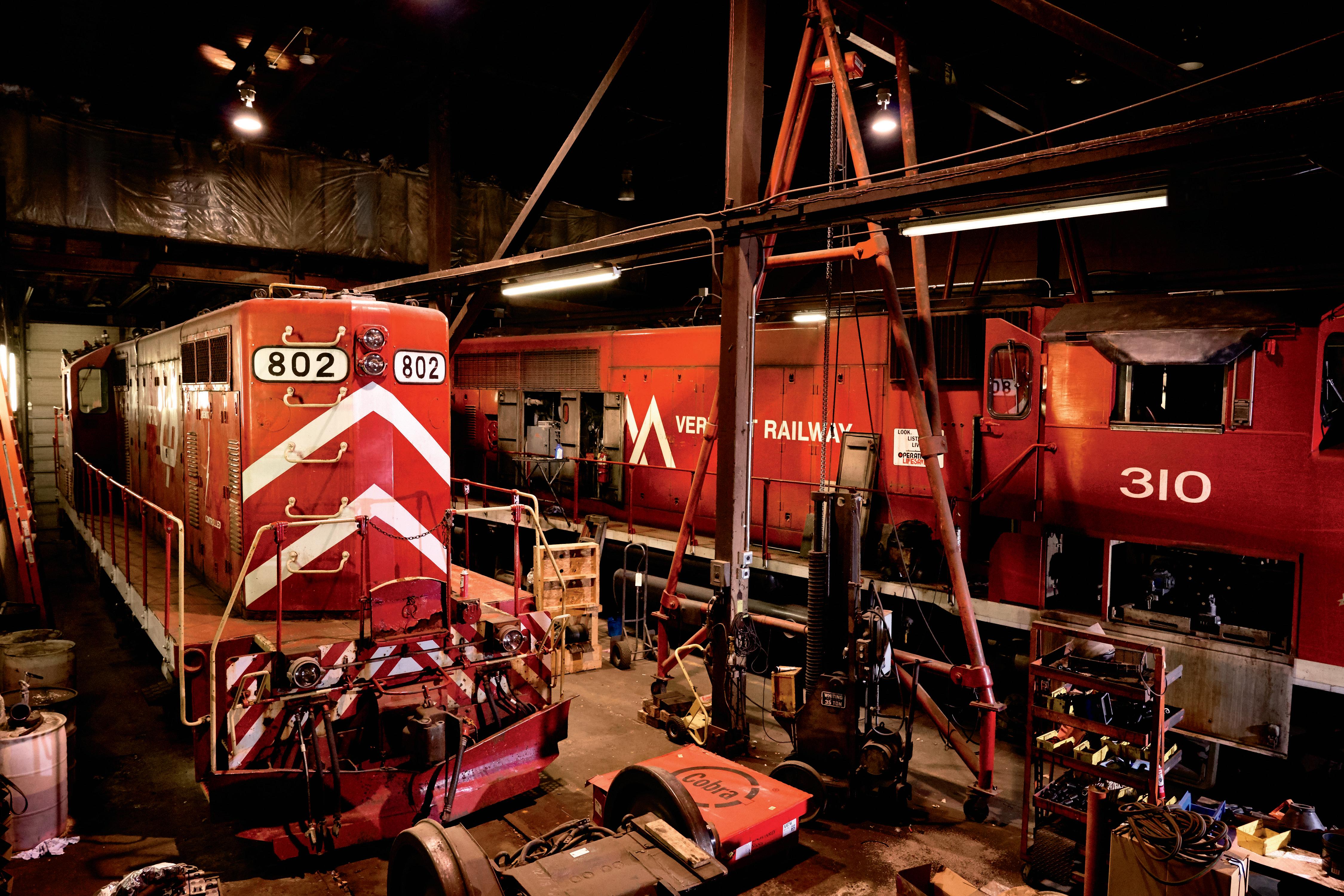
“AS WE SAY AROUND HERE,” ROD NOTED, “WHERE ELSE COULD WE POSSIBLY GO TO WORK WHERE WE GET PAID TO PLAY WITH TRAINS?”
Railway locomotives await attention at the roundhouse in Burlington. Built on the shores of Lake Champlain in 1918 for steam locomotives, the facility today can accommodate work on up to six diesel units at a time in its seven stalls.

locomotives that would take us to Rutland. Rod slowly opened the throttle as Ty finished his radio report to the VRS dispatcher, rattling off the date and details of the train’s consist and motive power with the speed of an auctioneer. The words “no hazmats” caught my ear. “That’s important information,” Ty told me later. “If we were carrying anything hazardous, I’d have let the dispatcher know just where in the consist it was. That way, if there was an accident or derailment that might involve a spill, the cleanup responders would know just where to go.”
Ty was in his mid-20s and wore a neat chinstrap beard. He’d been with the railroad for just 16 months and said this was “the best job I’ve ever had.” Rod had a few more miles behind him. Trim and just past his middle 60s, with a big gray mustache that would have done a Victorian railroader proud, he, too, started out as a conductor—but only after a career as a different sort of engineer. “My degree is in chemical engineering,” he told me as we eased out of Bellows Falls. “I spent over 16 years setting up pulp mills all over the world, and training people to run them. When I retired from that job, I thought I’d try the railroad for a while. That was 12 years ago.
“As we say around here,” Rod added, “where else could we possibly go to work where we get paid to play with trains?”
Work or play, it’s a big job in a small room. The cab of a locomotive is a gritty little office, roughly ten feet wide and eight deep. Climb the narrow steel steps and head through the door, and you’re standing almost nine feet above the rails. The cab is spartan but surprisingly homey, with a good heater and, usually, a small fridge. An exterior walkway leads to the evenbigger space where the 16-cylinder diesel and generator are housed—a diesel-electric locomotive is a rolling power plant. The engine runs a generator that sends power to electric traction motors mounted above the wheels.
There is no restroom, but there is that exterior walkway, and a lot of nowhere along the tracks.
The engineer stays at his console, but freight train conductors are “our eyes and ears,” as more than one engineer told me. That means getting out and guiding backups and stops via radio, as well as setting fusees (flares) at road crossings if the gates aren’t in operation. At ungated crossings, the whistle gives the warning.
Train 264 broke 10 mph only after we left the yard. The design speed for freights on Vermont Railway track tops out at 25 mph, except for two stretches of welded rail where trains can hit 40 if conditions allow. The rest of the system operates over “stick rail,” the bolted separate sections whose small gaps give the wheels that classic clickety-clack.
Just east of Ludlow, we passed through a narrow gap in a rock ledge. “This is the Cavendish Cut,” Rod told me. “Ever hear of Phineas Gage? This is where the iron rod went through his skull.”
Rod filled me in: “He was a construction foreman back in 1848, when they were blasting to lay tracks through here. He was tamping blasting powder in a borehole, and it went off. The tamping rod went into his face and out the top of his head—but somehow, he wasn’t killed.” Gage’s accident and his subsequent personality change advanced the study of neurology and the functions of different areas of the brain.
At Smithville, we dropped off a hopper at a talc plant. Talc is a breadand-butter item on Vermont rails, as is salt; 60-to-70-car salt trains are

not uncommon as winter sets in.
And then there are the odd cargoes. For Rod, the most unusual was a shipment of wind turbine blades, so long that they rode twin flatcars. “They were secured at one end and held in a sling at the other, so we could make the turns,” he recalled.
A couple of miles west of Ludlow, Rod announced that “this is the only railroad in the country that goes through a ski area.” Sure enough, we were soon passing an Okemo chairlift, and ducking under an overpass that carries a ski trail.
In a few miles we saw a doe and fawn browsing alongside the rails. “Moose, bear, turkeys, coyotes—we see a lot of wildlife,” said Rod. The deer kept a safe distance, but many animals aren’t so cautious. Cattle sometimes come to a bad end when they wander through broken fencing. There’s a stretch of track north of Rutland that railroaders call “Hamburger Hill.”
Wildlife or livestock isn’t a train crew’s most nerve-wracking type of encounter. It’s people who think they can share the track. Rod recalled an ATV rider heading toward him and, another time, a Jeep (“The guy was either on something he shouldn’t have been on, or not on something he should
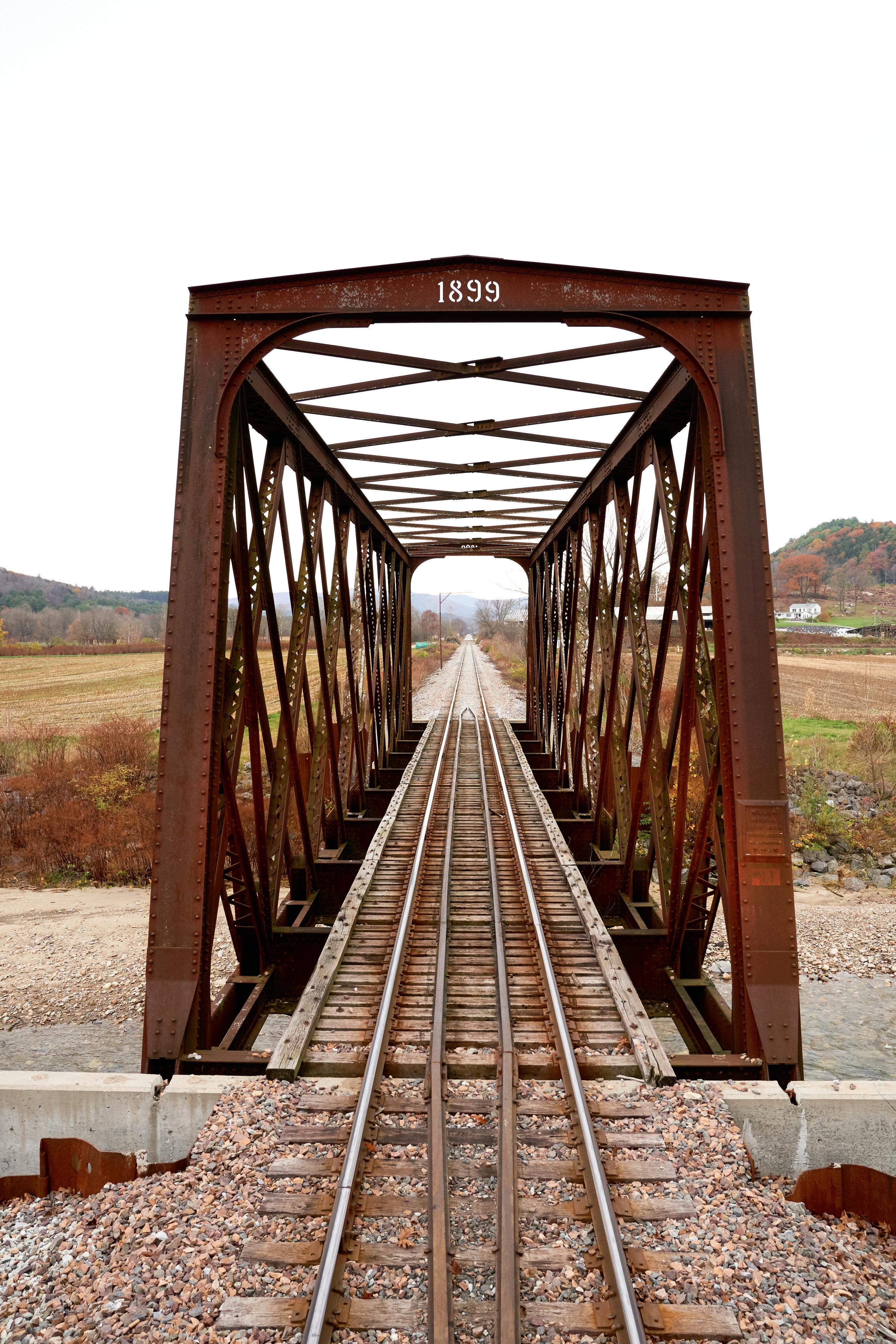
have”). Fortunately, the freight’s slow speed and a good line of sight ahead kept things from playing out badly.
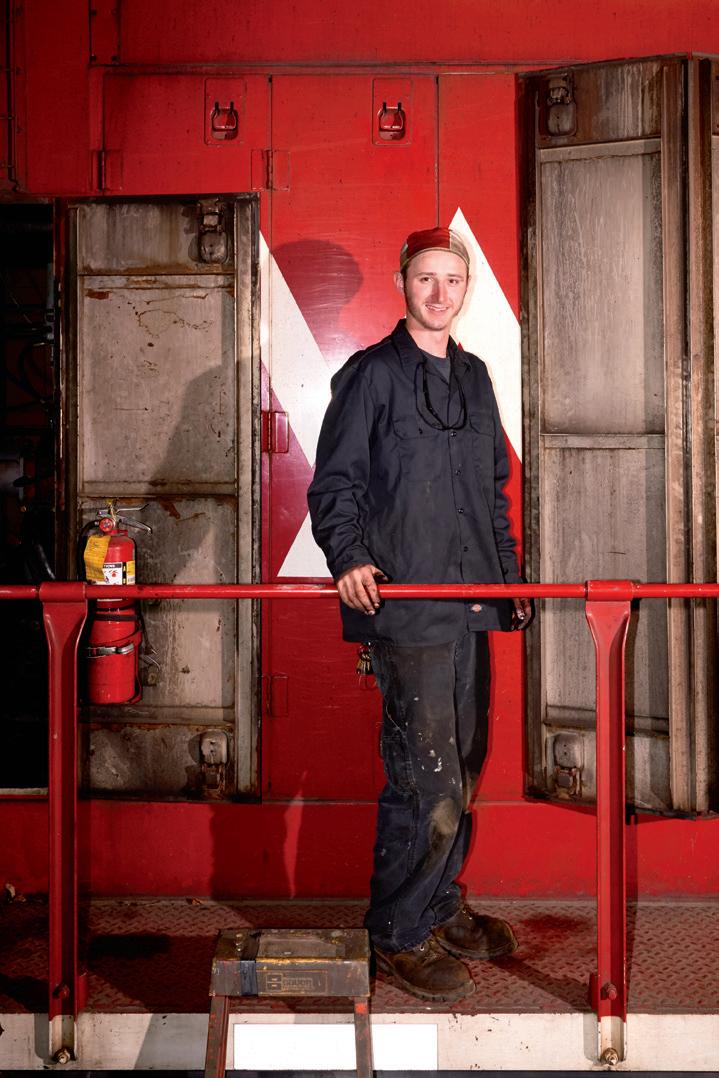

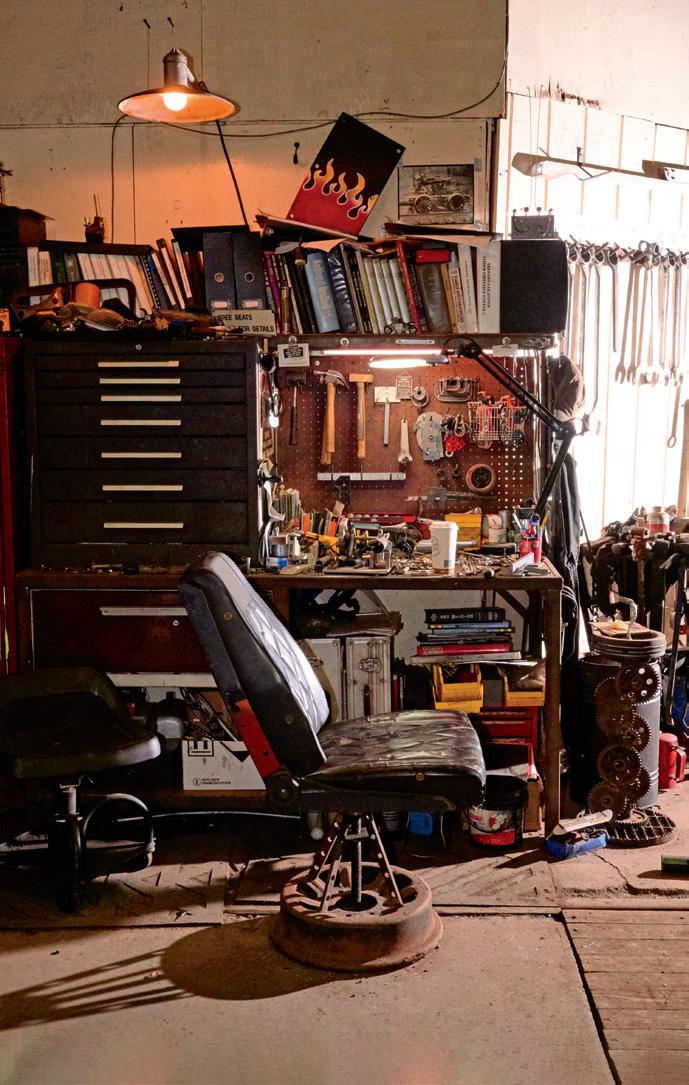
It can be a different story running wide open on the main line of a Class 1 railroad, where speed limits are a lot higher. “When you’re going 60, things can happen fast,” said Rick Wool, a veteran of the Class 1 CSX Railroad and its 21,000 miles of track. “One thing I always worried about was going through an ungated crossing just before another train heading in the opposite direction. Drivers would see me go by, and then think the coast was clear.”
“You wouldn’t believe how many people try to run a crossing,” said Rod. I told him about my own experience with a duel between car and train—a duel that the train always wins. I was riding on Amtrak’s Lake Shore Limited, clocking 60 or 70 through rural Ohio, when the train inexplicably slowed to a halt. Passengers asked the conductor why, and he gave the grim answer: A teenage driver had tried to beat the Lake Shore to a crossing. The two halves of his car ended up 100 feet apart. He and his two passengers were dead. A train that size, going that speed, takes a mile to stop.
We won the fight with the greasy leaves and reached a place called the Summit, in the town of Mount Holly. This is the height of land on the route. From here, our progress would require Rod’s fine touch on the brakes rather than the throttle. “Train handling is all in the brakes—and knowing your terrain,” Rod told me.
“The leaves are bad enough,” he maintained, “but some of the diciest situations involve winter weather. Years ago I was working this route as conductor. It was snowing, and the brakes weren’t grabbing on the way down from the Summit into Bellows Falls. When you get deep, fluffy snow blowing around the wheels and brake shoes, they cool down and you lose braking ability.
“The speedometer showed us doing 28 in a 10 mph zone. Snow was blowing all around us, and we couldn’t see. I knew we’d be OK, though, when we stopped picking up speed. When we hit flat track, the brakes caught and we started to slow.”
It grew quiet in the cab except for the thrum of wheels on metal. East Wallingford, Shrewsbury, and Clarendon slipped by, and dusk had turned to darkness as we slid into the Rutland yards.
Two-thirty a.m. is a beastly time for a wake-up call, but the northbound freight run to Burlington was leaving at 4. I climbed into the warm cab of another GP38-2, one of a pair heading 53 cars: 29 filled with fuel, livestock feed, and plywood, and 24 empties. Engineer Aaron Hahn drew back the throttle and we started off in a light rain, passing the sleeping Amtrak Ethan Allen as we inched out of the Rutland yards. Rob Silva, our conductor, was at his flip-down desk, doing paperwork by the light on his hard hat. Rob was a 19-year VRS veteran, while Aaron had just passed 20 years of service—“This is one of those jobs where once you do it, you don’t want to do anything else,” Aaron said. He does do something else, though, when he isn’t at the throttle. He plays guitar and sings in a country duo called Two Bit Cowboys. One of their albums is mostly train songs.



















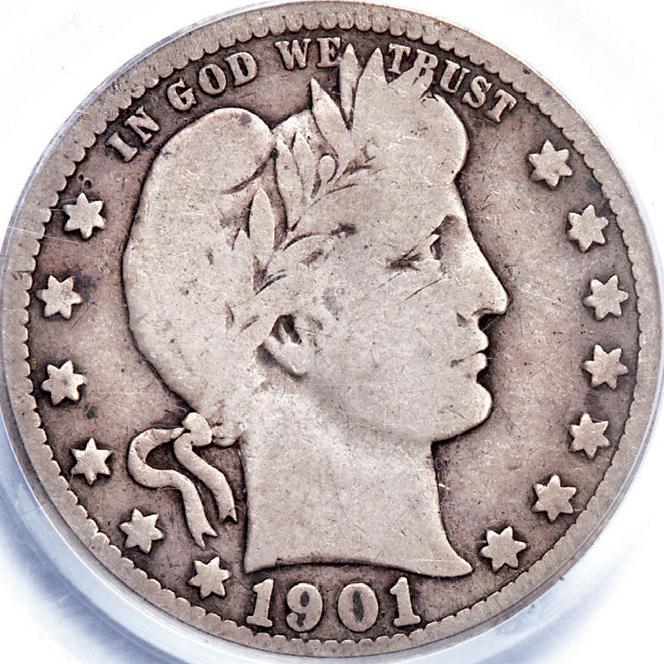









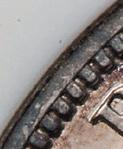












An owl coasted low above the track ahead, seeming to pilot us as we left Rutland. We picked up speed through Proctor, and at Florence, we stopped so Rob could throw a switch, letting us back in to drop off 16 of our empties at the OMYA plant. OMYA, the railroad’s biggest shipper, produces calcium carbonate from Vermont marble. An average of 30 to 35 railcars a day enter and leave its Proctor plant.

I asked Aaron what happens to all that calcium carbonate. He answered that it “goes everywhere”—as a calcium additive in baked goods, in polishes, and as a slurry that gives a glossy coating to the kind of paper these words are printed on.
Clearing Middlebury, we were on a welded section of track where we could run at 30 mph. We even hit 40, zipping through farmland near the border of Chittenden and Addison counties. We slowed as we slipped behind the Shelburne Museum, tracked through suburban South Burlington, and slid alongside Burlington’s bike path on the approach to the yards. We had finished the run.
As Aaron and Rob decoupled a car, I walked over to the locomotive repair shop. Imagine a garage that makes your car mechanic’s place look like something out of Legoland: Here are 35-ton jacks, four of which can lift body, cab, engine, and generator off the tracks, so workers can replace wheels and service brakes and electric motors. I saw pistons the size of wastebaskets, wheels over a yard in diameter, brake shoes and connecting rods of mammoth proportions. A young welder named Ethan Lawrence explained that engines are rebuilt after burning through a million gallons of fuel (that’s nearly 600 fill-ups, at 1,700 gallons to the tank).
I last saw Ethan standing alongside one of his locomotives, like a proud stableman with a big coach horse. Smiling, he left me with a remark that explains why this hard, heavy, vital world keeps working. “Every day,” he said, “is a good day on the railroad.”
At Stannah, we’ve designed chairs that fold up neatly at the push of a button, and recharge themselves constantly for reliable service. For stairs that turn, we developed a photo-survey system that measures with uncanny accuracy, so we can custom-make your stairlift to hug the stairs. Our outdoor model has proven itself in the toughest climates, and we have a range of options that’s second-to-none.
We understand that people like choices, so we offer stairlifts that are new, reconditioned or for short-term rental. We have models for both curved or straight staircases, all with a seven - day money - back guarantee.

it’s impossible to top this one, which ranks the sixth largest agricultural fair in the entire country. Its mind-boggling array of food (barbecue brisket sundae, anyone?) keeps fairgoers fueled up for fun that ranges from agricultural competitions to midway rides, top-notch musical acts, and those amazing butter sculptures. 413-737-2443; thebige.com
SEP. 14: BUZZARDS BAY, Cape Cod Canal Day Back for its second year in the recently renovated Buzzards Bay Park, this Saturday of free fun offers live entertainment, a cornhole tournament, arts and crafts, kids’ activities, and a 5K race, with refreshments available for purchase from local food trucks and craft beer and wine purveyors. capecodcanalchamber.org
SEP. 19–22: BOSTON, Boston Film Festival. One of America’s longest-running celebrations of film returns with a roster of independent films from around the world—documentary and narrative features, shorts, animation, and experimental—plus panel discussions and post-screening parties with directors, producers, and actors. See website for schedule and venues. bostonfilmfestival.org
SEP. 21–22: DEERFIELD, Old Deerfield Fall Craft Fair. The historic village of Old Deerfield provides a picturesque setting for browsers as they peruse jewelry, furniture, and more on the grounds of one of New England’s oldest museums, Memorial Hall Museum. 413-774-7476; deerfield-craft.org
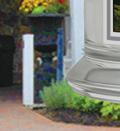


SEP. 26: BOSTON, Brian Jay Jones. The author of Becoming Dr. Seuss appears at the New England Historic Genealogical Society as part of its “American Inspirations” series. $30 admission includes a copy of the book. 617-226-1215; americanancestors.org

SEP. 28–29: PITTSFIELD, Country Fair. At Hancock Shaker Village, celebrate the bounty of the harvest with agricultural demonstrations, wagon rides, a quilt show, a farmers’ market, and handcrafted wares from the best regional crafters and artisans. Kid-friendly activities range from face painting and balloon creations to egg tosses and sack races. Plus, on Sunday some 400 cyclists will participate in the Farm to Fork Fondo, a bike ride from farm to farm that begins and ends at Hancock Shaker Village. 413-443-0188; hancockshakervillage.org
OCT. 3: SALEM, Haunted Happenings Grand Parade . Though Salem’s Haunted Happenings festival runs throughout the month of October, the big costume parade is the town’s time-honored kickoff for the Halloween season. 978-744-0004; salem-chamber.org


OCT. 4–14: TOPSFIELD, Topsfield Fair. The country’s oldest continuously operating fair—which recently celebrated its 200-year anniversary—just keeps getting better. Enjoy headline entertainment and shows, 4-H competitions, midway rides, games, tempting treats, and more. 978-8875000; topsfieldfair.org
OCT. 11: PLYMOUTH, New England Harvest Feast. Plimoth Plantation’s annual series
of harvest dinners returns. Sit down to a 17th-century meal—mussels, turkey, corn pudding, and more—as your hosts lead a program of historic tales and songs. Advance reservations required. Additional dinner dates: Nov. 2, 9, 16, 23, and 24. 800-262-9356 x8353; plimoth.org
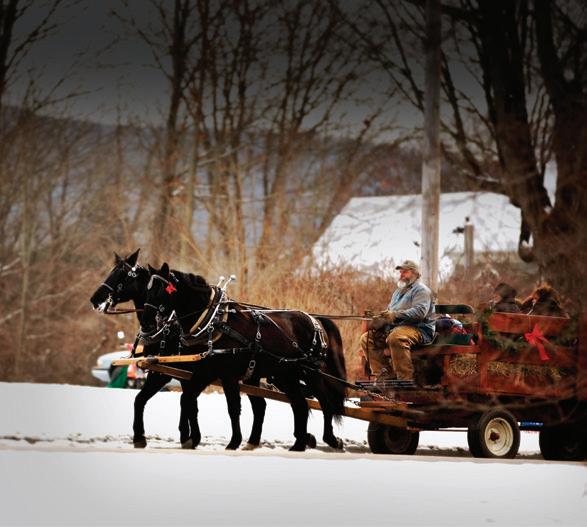
OCT. 12–14: NORTHAMPTON, Paradise City Arts Festival . The fall installment of this twiceyearly celebration brings together 240 fine artists and crafters from across the nation at Three County Fairgrounds. Plus good food, great live music, flowering sculpture gardens, special exhibits, demonstrations, activities, and more. 413-587-0772; paradisecityarts.com
OCT. 19–20: WELLFLEET, OysterFest. Give a nod to the town’s famous bivalves and fishing traditions with hometown fun and flavor. Lures include local cuisine (heavy on the seafood), arts and crafts, a marine-themed spelling bee, walking tours, live music, a 5K road race, and the must-see “oyster shuck-off” competition. 508-349-3499; wellfleetoysterfest.org


OCT. 20: NORTHAMPTON, Pioneer Valley Book & Ephemera Fair. Sponsored by Southern New England Antiquarian Booksellers, this show at Smith Vocational School is chock-a-block with rare and unusual old books, maps, autographs, prints, posters, and ephemera. Look for the special presentations on bookbinding, preservation, and restoration. 603-5092639; pioneervalleybookfair.com
OCT. 20: STURBRIDGE: Celebration of Cider and Music Festival . Building on its popular craft beer festival in July, Old Sturbridge Village showcases hard cider tastings along with live music on multiple stages throughout the day. While only those 21 and older are allowed to sip the ciders, kids are welcome, and there will be activities and demonstrations for guests of all ages. 800-733-1830; osv.org
OCT. 20–21: BOSTON, Head of the Charles Regatta. Only the Boston Marathon draws more sports spectators to the city than this, the world’s largest rowing regatta. Founded in 1965, it now attracts 300,000-plus people to the banks of the Charles River to watch both novices and champions navigate the famously tortuous three-mile course (and dodge seven bridges along the way). 617-868-6200; hocr.org
OCT. 23–27: EDGARTOWN, Martha’s Vineyard Food & Wine Festival. Join Yankee in toasting the island’s rich tradition of farming and fishing with local culinary talent, and the farmers, fishermen, oyster producers, and artisans they work with. 508-939-0199; mvfoodandwine.com
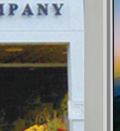

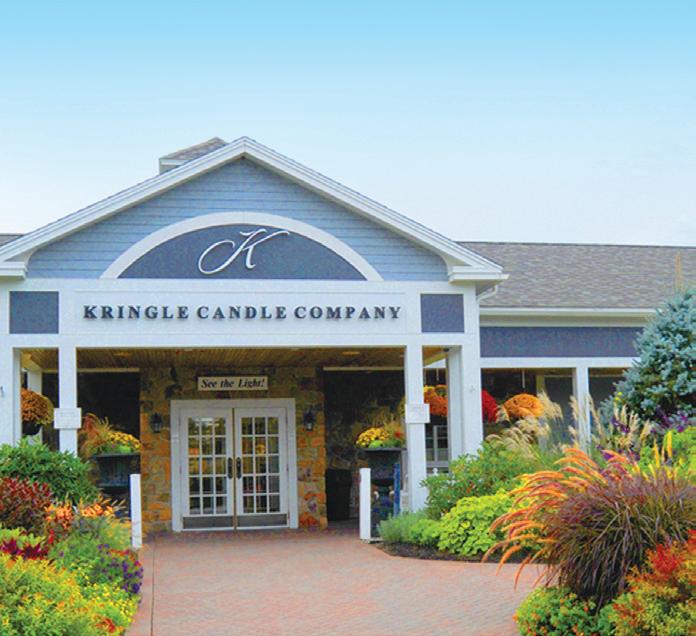
AUG. 29–SEP. 2: LANCASTER, Lancaster Fair Now in its 148th year, this downtown Labor Day weekend celebration puts a spotlight on North Woods culture, with live music, horse pulling, the coronation of the county’s largest pumpkin, motorized competitions, and much more. 603-788-4531; lancasterfair.com

SEP. 2: FRANCESTOWN, Labor Day Celebration. This small-town festival offers a parade, a





juried arts and crafts fair, live entertainment, and great food. 603-547-3600; francestownhistory.info


SEP. 6–8: HAMPTON BEACH, Hampton Beach Seafood Festival. Live music and a fireworks show punctuate the seafood eating frenzy as festivalgoers sample delicacies from 60-odd local restaurants. Also on tap: chef demos, arts and crafts booths, a sidewalk sale, and a lobster roll eating competition. 603-926-8718; hamptonbeachseafoodfestival.com
SEP. 13: PORTSMOUTH, Writers on a New England Stage . The Music Hall’s awardwinning literary series continues with a visit from best-selling author Malcolm Gladwell ( Outliers, The Tipping Point ). 603-436-2400; themusichall.org

SEP. 13–15: PLYMOUTH, White Mountain Storytelling Festival. Feel the power of the spoken word at Plymouth State University as accomplished tale-spinners hold forth. Don’t miss the Friday-night slate of hairraising ghost stories. nhstorytelling.org
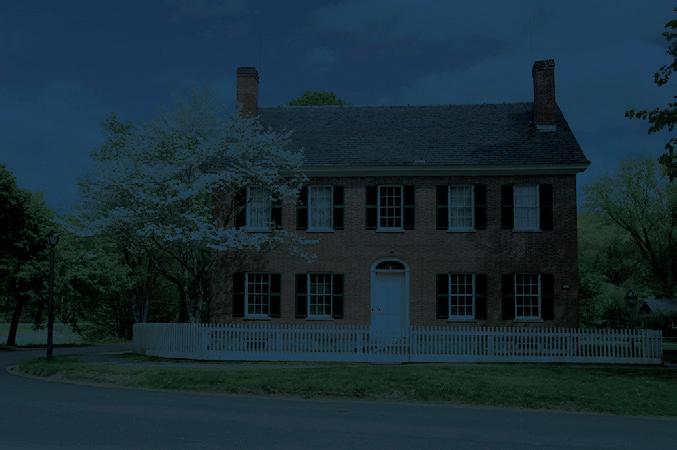




SEP. 14: ENFIELD, Harvest Festival. Among the old-school diversions on offer at the Enfield Shaker Museum: Take a wagon ride; make cider, churn butter, and crank your own ice cream; and dip handmade candles and learn other traditional crafts. 603-632-4346; shakermuseum.org
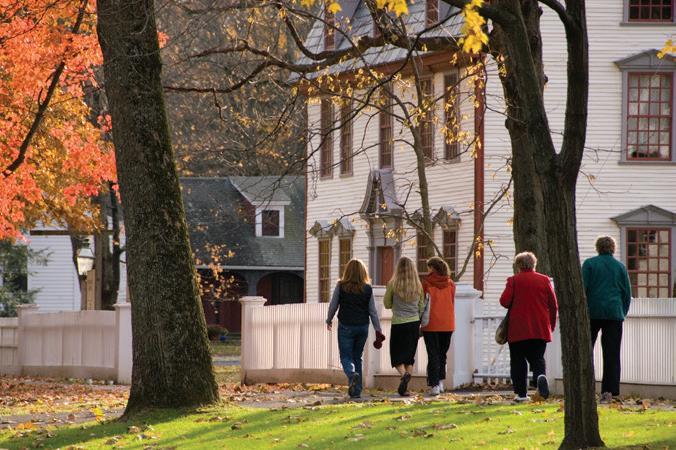
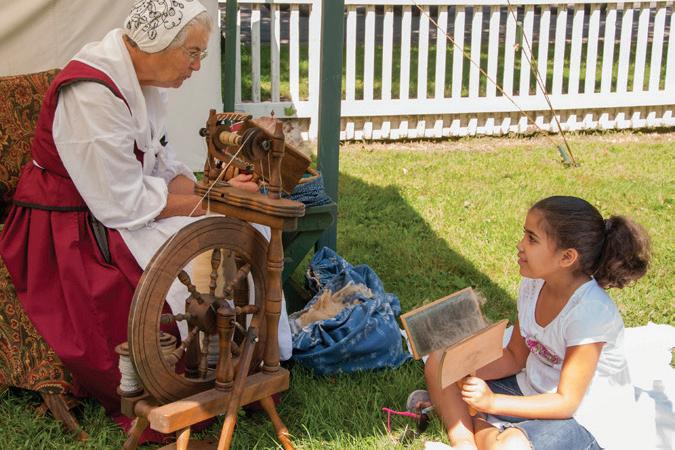
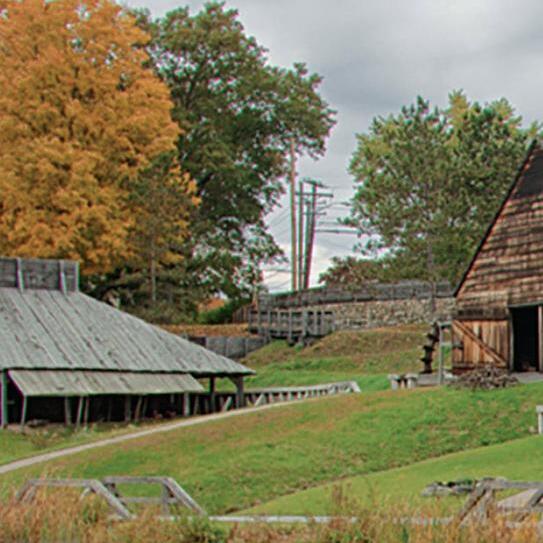

SEP. 20–22: LINCOLN, New Hampshire Highland Games. Don your tartan and step lively as Loon Mountain hosts more than 30 pipe bands and competitions in dance, fiddle, and harp, plus athletic contests, a clan village, sheepdog trials, and special ticketed events like a whiskey tasting and a harp concert. 603-229-1975; nhscot.org
SEP. 21: KEENE, Keene International Festival





See the world at this free event held at the Jonathan Daniels School, where folk dancing, musical instruments, and food and crafts from across the globe will be showcased. 603-352-1895; Facebook
SEP. 26–29: DEERFIELD, Deerfield Fair. Dating back to 1876, the Deerfield Fair bills itself as “New England’s oldest family fair.” It’s also one of the biggest fairs in New Hampshire, with livestock pulls and exhibitions, a demolition derby, sheep shearing, midway rides, live entertainment, and all your favorite fair food. 603-463-7421; deerfieldfair.com
SEP. 28–29: PORTSMOUTH, Portsmouth Maritime Folk Festival. Market Square and other downtown venues host traditional American and English folk music performances, celebrating our maritime history and the “Age of Sail.” pmffest.org
OCT. 5: CLAREMONT, Fall Festival and Chili Cook-off. Visitors Center Green heats up with a lively competition leading to the crowning of a chili champion. Also on tap: live entertainment, arts and crafts, seasonal brews, and tasty food. 603-5431296; greaterclaremontnh.org
OCT. 5: DOVER, Apple Harvest Day. More than 300 vendors, artisans, and organizations make for a busy scene downtown during
Just 30 minutes north of Boston, discover Salem, home of the infamous Witch Trials and Gloucester, America’s oldest seaport. Visit museums, cultural and historic sites, farms, state parks, and performing arts venues. Enjoy boutique shopping and New England craft beers and cuisine, including plenty of fresh seafood. Explore 200 miles of coastline, 12 lighthouses and get out on the water to kayak, Stand Up Paddleboard, whale watch, harbor cruise or schooner sail.
this family-focused event, which comprises a craft fair, five stages of live entertainment, a 5K, an apple pie contest, and dozens of kids’ activities. 603-742-2218; dovernh.org


OCT. 12: NEWPORT, Corbin Covered Bridge Festival. The town of Newport invites everyone to join in as it marks the 25th anniversary of the rebuilding of the Corbin Covered Bridge. More than two dozen events are planned, horse-drawn wagon rides, a parade through the bridge, and fireworks. 603863-1294; corbincoveredbridgefestival.com
OCT. 12–13: LINCOLN, White Mountain Oktoberfest. Get a taste of the Bavarian Alps at Loon Mountain during the region’s largest celebration of German food, drink, and music. Enjoy beer and brats alongside terrific views of the White Mountains, and take in such entertainment as an oompah band performance, a stein-hoisting contest, a keg toss, and kids’ activities (including a root beer “keg toss”). 800-229-5666; loonmtn .com
OCT. 12–14: CENTER SANDWICH, Sandwich Fair. Swing by the fairgrounds for a true New England agricultural fair, complete with arts and crafts, a midway, 4-H shows, competitions of all kinds, an antique car parade, and live entertainment. 603-2847062; thesandwichfair.com

OCT. 12–14: MONADNOCK REGION, Art Tour. Enhance a foliage drive through this picturesque region by picking up a map and following the “Art Tour” signs leading to the homes and studios of artists in towns including Dublin, Harrisville, and Peterborough. Have a visit, ask questions, and view a variety of fine artwork. monadnockart.org


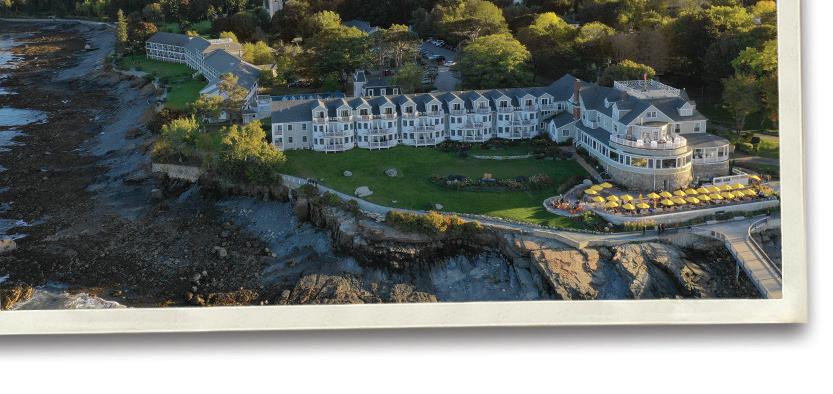


OCT. 19: BERLIN, RiverFire . On the schedule at this full day of family fun at Service Credit Union Heritage Park are hay rides, a costume parade, live music, helicopter rides, a “not so scary” Halloween party, and—when the sun dips below the horizon—floating bonfires on the Androscoggin River. Stretch your legs in the RiverFire 5K earlier in the day. 603-752-6060; androscogginvalleychamber.com
OCT. 25–26: PORTSMOUTH, Ghosts on the Banke. Long-dead sea captains, 17thcentury shopkeepers, and wayward privateers haunt the streets of Strawbery Banke, Portsmouth’s oldest neighborhood, as you trick-or-treat by jack-o’-lantern light. 603-433-1100; strawberybanke.org


AUG. 30–SEP. 1: CHARLESTOWN, Rhythm & Roots Festival. With more than 40 musical acts on the roster—including the Mavericks, Los Texmaniacs, and Steve Riley and the Mamou Playboys—this Ninigret Park festival promises a rocking Labor Day weekend. rhythmandroots.com

SEP. 7: NARRAGANSETT, Rhode Island Calamari Festival. Come out to Veterans Park to taste and vote for the best calamari offerings as local restaurants battle for top honors. Among the other enticements: live
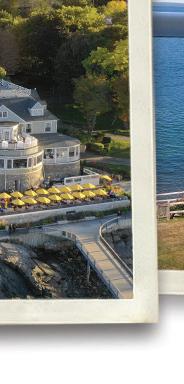
music, cash bar, food trucks, shopping, and kids activities. ricalamarifest.com
SEP. 7: PAWTUCKET, Chinese Dragon Boat Races & Taiwan Day Festival. Watch the colorful dragon boats—crewed by both professionals and amateurs—as they race along the Seekonk River, and then join in the fun on land (think: cultural performances, an arts and crafts display, and a dumpling eating contest). 401-724-2200; dragonboatri.com
SEP. 12–15: NEWPORT, Newport International Boat Show. This annual Newport Yachting Center event is one of the largest in-water boat shows in the country. Nearly all makes and models of powerboats and sailboats are represented, as are many other products and services to enhance the boating lifestyle. 401-846-1115; newportboatshow.com
SEP. 14, OCT. 5, NOV. 2: PROVIDENCE, WaterFire . Fall brings the last full WaterFire lightings of the 2019 season, when more than 80 braziers from Waterplace Park to Memorial/South Main Street Park are ceremoniously lit by torchbearers boating their way down the river. Side streets fill with food vendors and performers, and attendees stroll along the river to take in the spectacle in its entirety. waterfire.org
SEP. 14–15: PAWTUCKET, Slater Park Fall Festival. A celebration of art and culture set on the grounds of historic Slater Memorial Park, this special weekend features a marketplace with 100-plus artisans, a performance by the Rhode Island Philharmonic Orchestra, and a fireworks display. pawtucketartsfestival.org / slaterparkfallfestival
SEP. 19–21: NEWPORT, Newport Mansions
Wine & Food Festival. A sophisticated event held at the Gilded Age mansions of Rosecliff, Marble House, and the Elms brings together some of the best vintners and fine-food purveyors for a two-day Grand Tasting of hundreds of wines, celebrity chef appearances and cooking demonstrations, a vintner dinner, a Sunday jazz brunch, and more. 401-847-1000; newportmansions.org
SEP. 21: LINCOLN, Great Road Day. Several historical sites on the 17th-century highway Great Road (today’s Route 123) welcome the public with free admission today, including “the house that love built,” Hearthside; the architecturally rare “stone-ender” Arnold House; and the circa 1812 Moffett Mill. hearthsidehouse.org/great-road-day
SEP. 26: CRANSTON, Big Bad Voodoo Daddy
The Park Theatre will be swinging with the music of Big Bad Voodoo Daddy, known to jazz and swing music lovers around the world for selling millions of records, playing sold-out concerts on famous stages such as the Hollywood Bowl and Lincoln Center, and appearing everywhere from Dancing with the Stars to Super Bowl XXXIII. 401-467-7275; parktheatreri.com
SEP. 27–29: BLOCK ISLAND, Experience Block Island. More than just a culinary event, this weekend aims to give the full flavor of Block Island. Over 50 local businesses join together to host a variety of



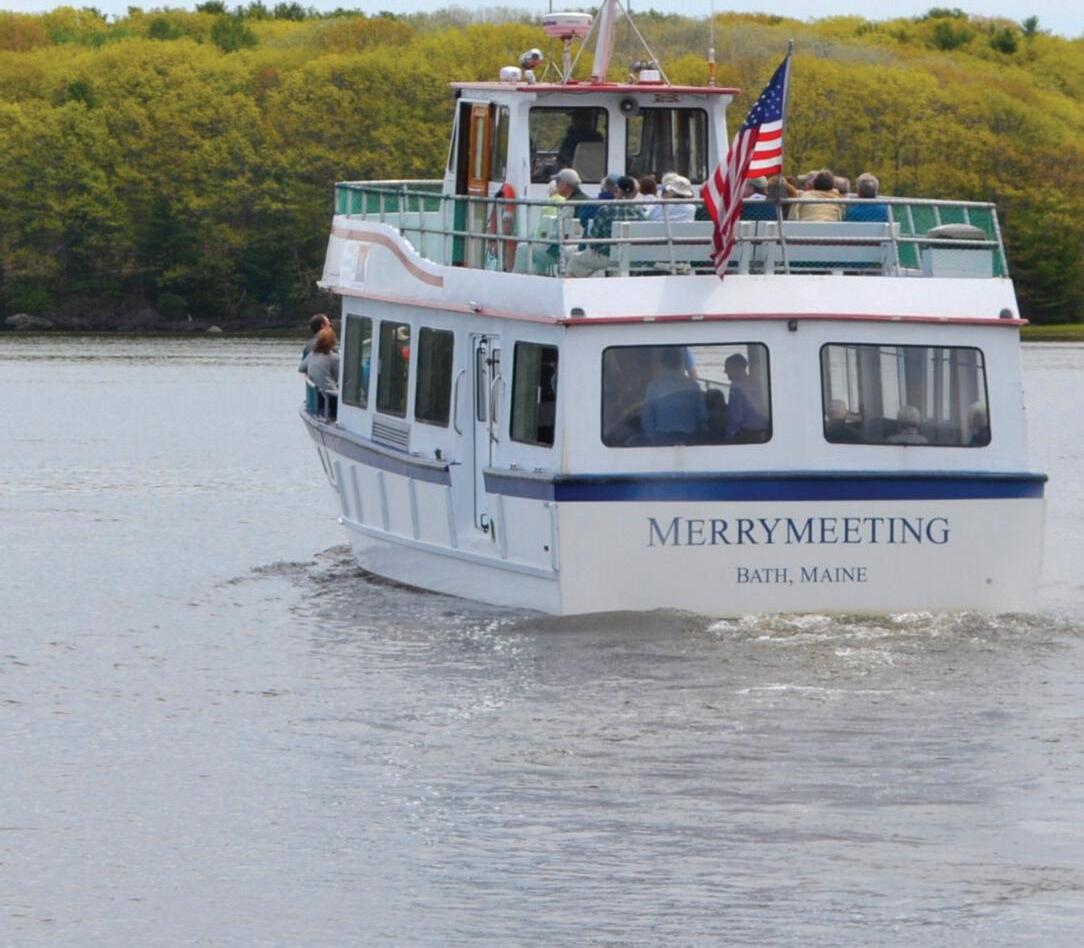
Over 3,000 animals
Woodsmen’s Field Day
Exhibitions & Museums
Tractor & 4WD pulls
Pari-mutuel harness racing
Night Shows & Fireworks
Grand Parade
Spectacular food
Midway & rides
Campsites

For Reservations & Online Tickets
www.fryeburgfair.org

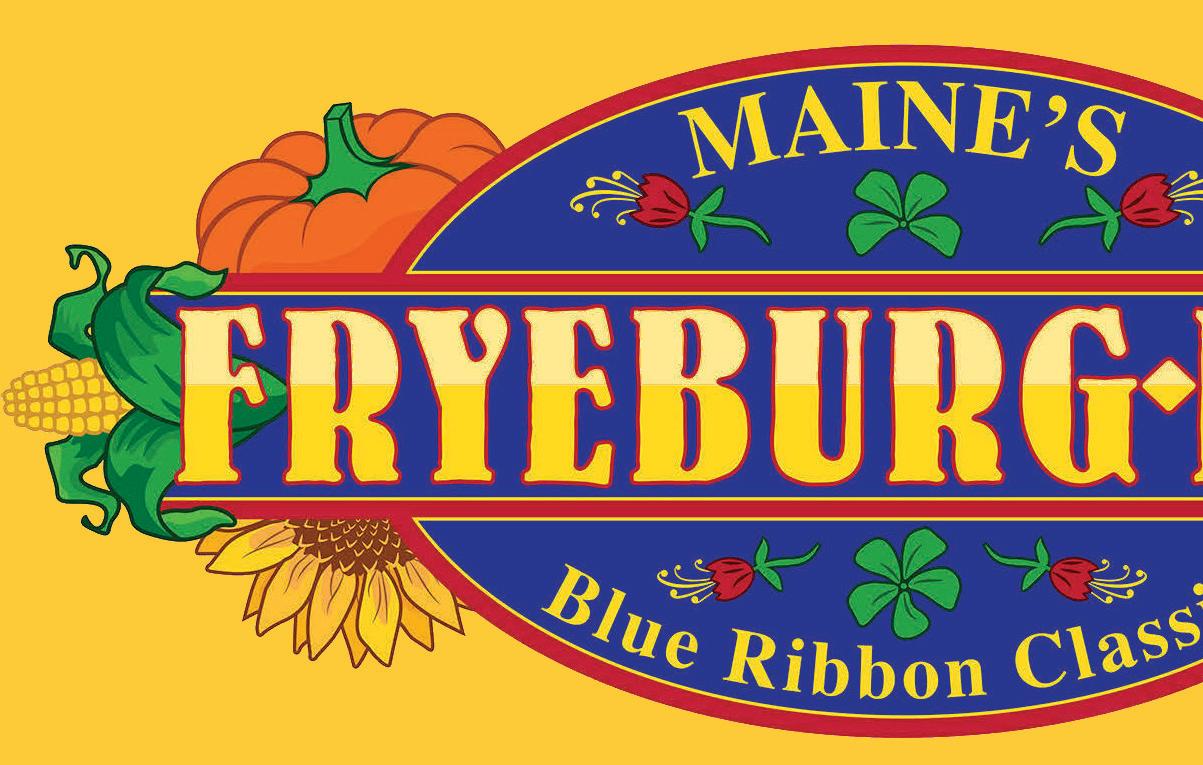
September 29 - October 6
8 Full Days
Sunday to Sunday
gallery openings, wine and beer tastings, and tours, while offering discounts and specials at a number of shops, hotels, and restaurants, too. 401-466-2474; blockislandinfo.com
SEP. 28–29: PAWTUCKET, Oktoberfest . Organized by the German American Cultural Society of Rhode Island, this annual weekend celebration welcomes all ages with live music, Bavarian folk dances, and plenty of food (bratwurst, knackwurst, leberkase, and potato pancakes, to name a few). For the grown-ups, of course, hearty biergarten quaffs beckon. gacsri.org
OCT. 3–NOV. 3: PROVIDENCE, Jack-o’-Lantern Spectacular The only thing more magical than walking through the display of 5,000 lighted pumpkins at Roger Williams Park Zoo? Flying over it on the zoo’s Soaring Eagle Zip Ride, which for an extra fee will carry you up to 115 feet high on a side-byside bench seat. 401-785-3510; rwpzoo.org
OCT. 5–6: MIDDLETOWN, Harvest Fair. If you’ve never been to the natural treasure that is the 325-acre Norman Bird Sanctuary, this long-running old-timey fair is a great excuse to visit. Among the highlights are barrel train rides, pony rides, a mud pit, midway games, and a crafters’ tent—with plenty of food and music, too. 401-846-2577; normanbirdsanctuary.org
OCT. 19: PROVIDENCE, Carol Burnett . The format of this “evening of laughter and reflection” at the Providence Performing Arts Center harks back to the opening of The Carol Burnett Show , during which the studio audience had the chance to hear the beloved comedian’s spontaneous answers to their questions. 401-421-2787; ppacri.org
OCT. 19–20: NEWPORT, Bowen’s Wharf Seafood Festival. Savor the bounty of the sea as presented by area restaurants and fishermen’s associations. There’s lobster, chowder, stuffed quahogs, clam cakes, shrimp, scallops, raw oysters, and clams, as well as dishes tailored for kids and/or landlubbers. Local-favorite bands keep the beat while you eat. 401-849-2243; bowenswharf.com


AUG. 23–SEP. 1: ESSEX JUNCTION, Champlain Valley Fair. Expect loads of classic fair fun with 4-H events, horse pulls, cooking contests, and the judging of everything from home-brewed beer to Christmas trees. 802-878-5545; champlainvalleyfair.org
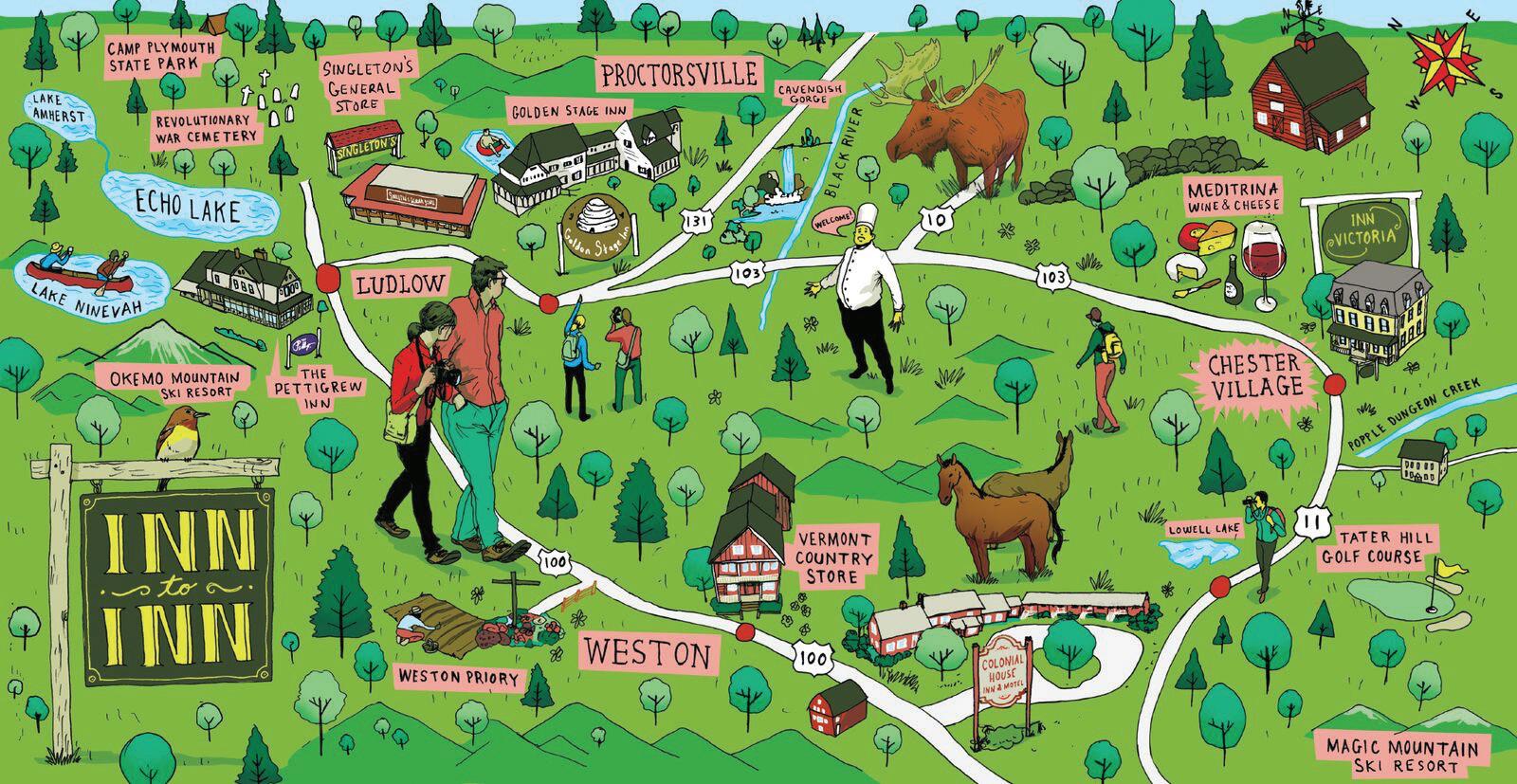
AUG. 31–SEP. 1: BENNINGTON, Garlic & Herb Festival. Gardeners and garlic lovers are invited to downtown Bennington to chat with growers and enjoy garlic jelly, garlic ice cream, and other garlic-laced foods. lovegarlic.com
SEP. 1: RANDOLPH, New World Festival. A tribute to the vitality of small-town Vermont and the Celtic/French-Canadian heritage of northern New England, this full-day event brings downtown Randolph
alive with music, storytelling, and dance. 802-728-6464; newworldfestival.com

SEP. 6–8: BURLINGTON, South End Art Hop


Visit the city’s original arts district and discover thousands of works of art as well as outdoor sculpture, performance art, live demos and workshops, kids’ activities, and a fashion show. 802-859-9222; seaba.com
SEP. 12–15: TUNBRIDGE, Tunbridge World’s Fair. Head to the fairgrounds to explore family-farm traditions from the past, view antique machinery and implements, and tour an authentic one-room schoolhouse. Also on the lineup: pig races, harness racing, livestock and gardening competitions, fair foods, and an old-fashioned carnival. 800-889-5555; tunbridgeworldsfair.com
SEP. 21: FAYSTON, Sip-temberfest . In a state that knows a thing or two about craft brewing, this celebrated small festival brings together two dozen makers, including a number of Vermont favorites, at the base of the Mad River Glen slopes to showcase some of the state’s newest and hardest-tofind beers. Food, hard ciders, and nonalcoholic beverages are also available. Note: Only 800 tasting tickets are made available, and they tend to go fast. siptemberfest.com
SEP. 21: LUDLOW, Vermont Wine & Harvest Festival . Makers of all stripes descend on Mount Snow for this 11th annual homage to the season and to local spirit. Taste locally made wines, sample specialty foods, and take in the work of local painters, publishers, cheese makers, potters, and others. 800-245-7669; mountsnow.com
SEP. 21–22: CHESTER, Chester Fall Foliage Festival . Located on the town green of a postcard-perfect village, this event features a bevy of crafts for sale, from quilts and pottery to soaps and jewelry. Plus: live music, a beer garden, children’s activities, and the chance to sample locally made foods. 802297-7583; chesterfallfestival.org.

SEP. 28: BURKE, Fall Foliage Festival. Autumn in a small town doesn’t get any better than this day of horse-drawn wagon rides, a parade, a petting zoo, crafts, music and food, and a tag sale. Plus: a live raptor show presented by the bird experts at VINS. 802626-4124; burkevermont.com
SEP. 29–OCT. 5: NORTHEAST KINGDOM, Fall Foliage Festival. Come for not one but seven festivals in seven days, each in a different town: Marshfield, Walden, Cabot, Plainfield, Peacham, Barnet, and Groton. From church suppers to parades and live music, the lineup changes but the appeal remains the same. nekchamber.com
OCT. 4–5: WESTON, Weston Antiques Show. A benefit for historic-preservation projects in the heart of Weston, this long-running event at the Weston Playhouse draws dealers from across the nation to present Americana, silver, furnishings, and other treasures. Note: A preview gala will be held Oct. 3; see website for details. westonantiquesshow.org

OCT. 5–6: TUNBRIDGE, Vermont Sheep and Wool Festival. Small farms and natural
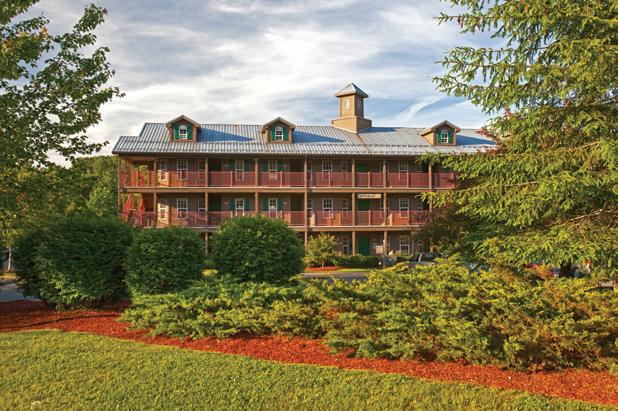
Newport, Rhode Island’s, rolling speakeasy for food, fun, and felonies!


Follow the clues, question the suspec ts, and solve the crime. Climb on board our custom- designed theater train for an interac tive show and ride along Aquidneck Island. Trains run April to November


fibers are the focus as more than 70 vendors offer fleece and yarn, fiber crafts, and other homespun wares. Check out the classes and workshops, herding and shearing demos, and local music—and don’t forget the maple creemees! 802-685-3267; vtsheepandwoolfest.com
OCT. 11–13: STOWE, Foliage Arts Festival. More than 150 juried artisans will bring their creations to Topnotch Field for the area’s biggest autumn arts festival, complete with delicious food, wine, beer, and live entertainment. 802-316-5019; craftproducers.com



OCT. 12: PUTNEY, Ana ï s Mitchell. A native of Vermont, this folk singer-songwriter has been the toast of Broadway for her Tonywinning musical, Hadestown . She performs her music at the Next Stage Arts Project as part of a tour ranging across the U.S. and the U.K.; her other Vermont date is Oct. 11 in Burlington. anaismitchell.com/tour
OCT. 12: WOODSTOCK, Harvest Festival . At what must be the most Instagram-friendly museum ever, Billings Farm and Museum invites guests to assist in preparing for the coming winter months. Learn how to harvest root vegetables and “put up” food. Live music gives the workday a lively soundtrack, and hot spiced cider and fresh doughnuts are your well-earned rewards. 802-457-2355; billingsfarm.org.
OCT. 12–13: WEST DOVER, Mount Snow Oktoberfest . German culture comes to a head at Mount Snow Resort with this beer-centric weekend, which offers not only fine brews but also a stein-holding contest, a keg toss, and a “Gulp and Gallop” beer run. There’s plenty to amuse tots and teetotalers, too, from oompah music and yodeling to games and hearty German fare. 800-245-7669; mountsnow.com
OCT. 17–20: BRATTLEBORO, Brattleboro Literary Festival Since its founding in 2002, this festival has presented 400-plus authors— including winners of the Pulitzer Prize and the National Book Award—in its schedule of readings, panels, and other events. 802365-7673; brattleboroliteraryfestival.org



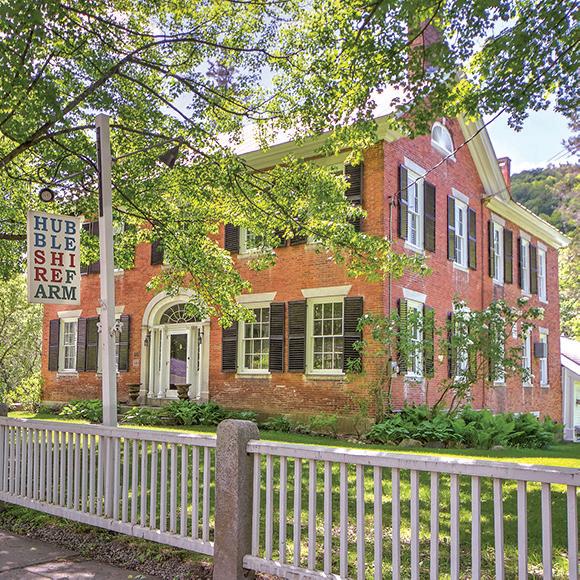


OCT. 17–27: BURLINGTON, Vermont International Film Festival Venues around the Queen City light up with the best independent features and short films from around the world. Look for panel discussions, special events, and a Vermont filmmakers’ showcase. vtiff.org

OCT. 26: WARDSBORO, Gilfeather Turnip Festival & Contest At this townwide party, the state’s official vegetable—the Gilfeather Turnip—is the guest of honor. Sample turnip treats, see would-be prizewinners, and snag a turnip T-shirt to show your tuber pride. friendsofwardsborolibrary.org
OCT. 27: WARREN, Tiny House Fest . At this not-so-small festival at the Sugarbush Ski Resort, visitors can tour sample tiny homes, learn about the latest in design and approach, and hear directly from veteran tiny-home dwellers. 802-496-5545; tinyhousefestvermont.com


MAKES A GREAT GIFT!
Touch the wild in a way you never dreamed possible! Located in the beautiful, accessible hill-country of Southern NH.

NHSchoolofFalconry.com



Call Nancy Cowan 603-464-6213
Email: falconers@comcast.net
Explore the Beauty of Squam Lake on a Guided POntoon Boat Cruise

Cruises run daily through mid-October
nhnature.org | 603-968-7194 Holderness, NH

Ox Cart Man Turns 40!
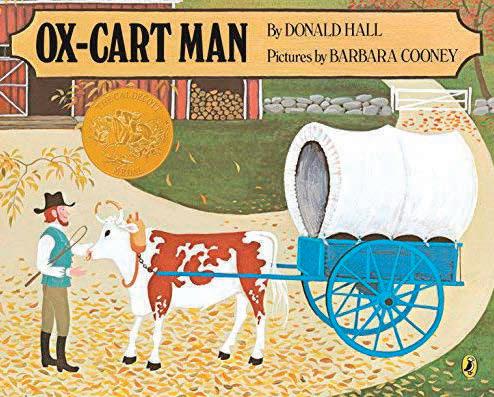
Fall & Children’s Authors Festival
Saturday, October 12, 2019 10 am to 5 pm
StrawberyBanke.org
14 Hancock Street Portsmouth NH 03801
WRITERS ON A NEW ENGLAND STAGE MALCOLM GLADWELL
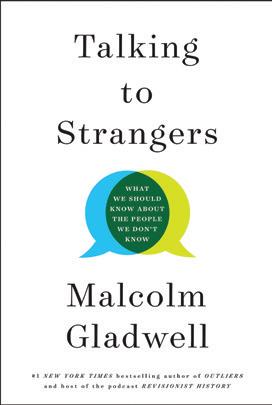

Fri., September 13 • 7:30pm • Historic Theater
From the #1 bestselling author and host of the podcast Revisionist History, a powerful examination of our interactions with strangers—and why they often go wrong.
EVENING SPONSORS: oHive; Daystar Inc; Weekender House

WRITERS ON A NEW ENGLAND STAGE IS A PARTNERSHIP BETWEEN:



PRESENTING SPONSORS:

MEDIA PARTNER: SERIES SPONSORS: Piscataqua Landscaping & Tree Service





WRITERS ON A NEW ENGLAND STAGE STEPHEN CHBOSKY

Wed., October 2 • 7pm • Historic Theater
From the #1 bestselling author of The Perks of Being a Wallflower and acclaimed director Stephen Chbosky comes an epic work of literary horror about a boy who disappears, but returns eerily changed.

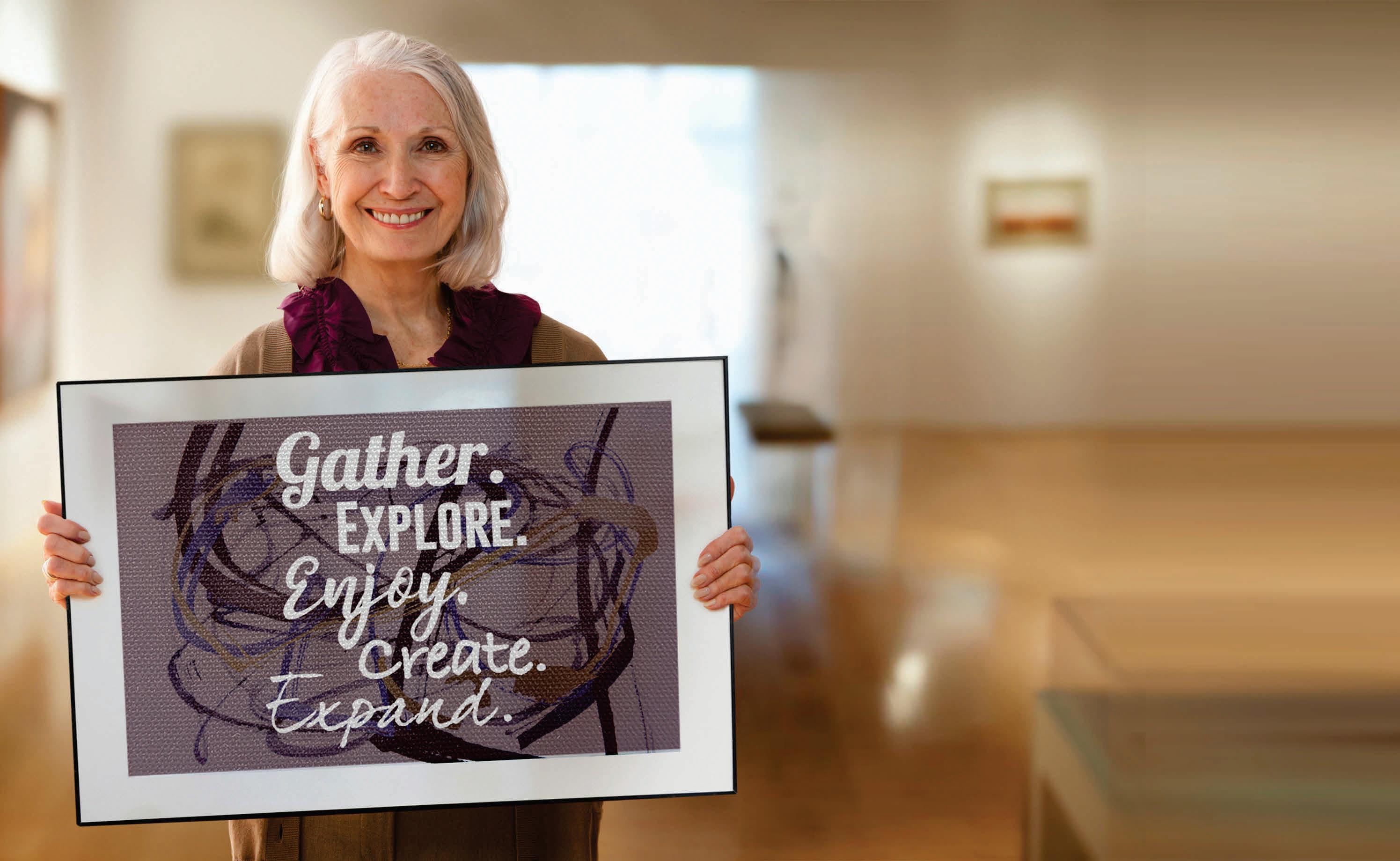




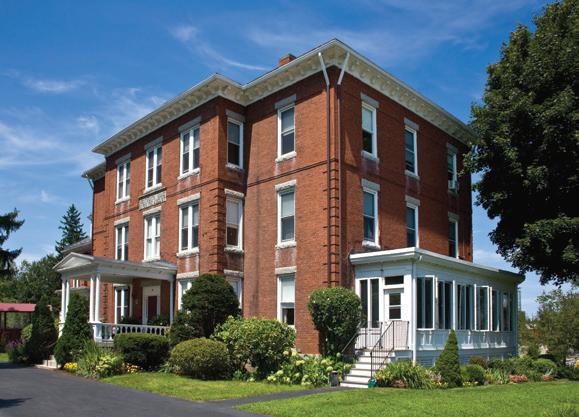




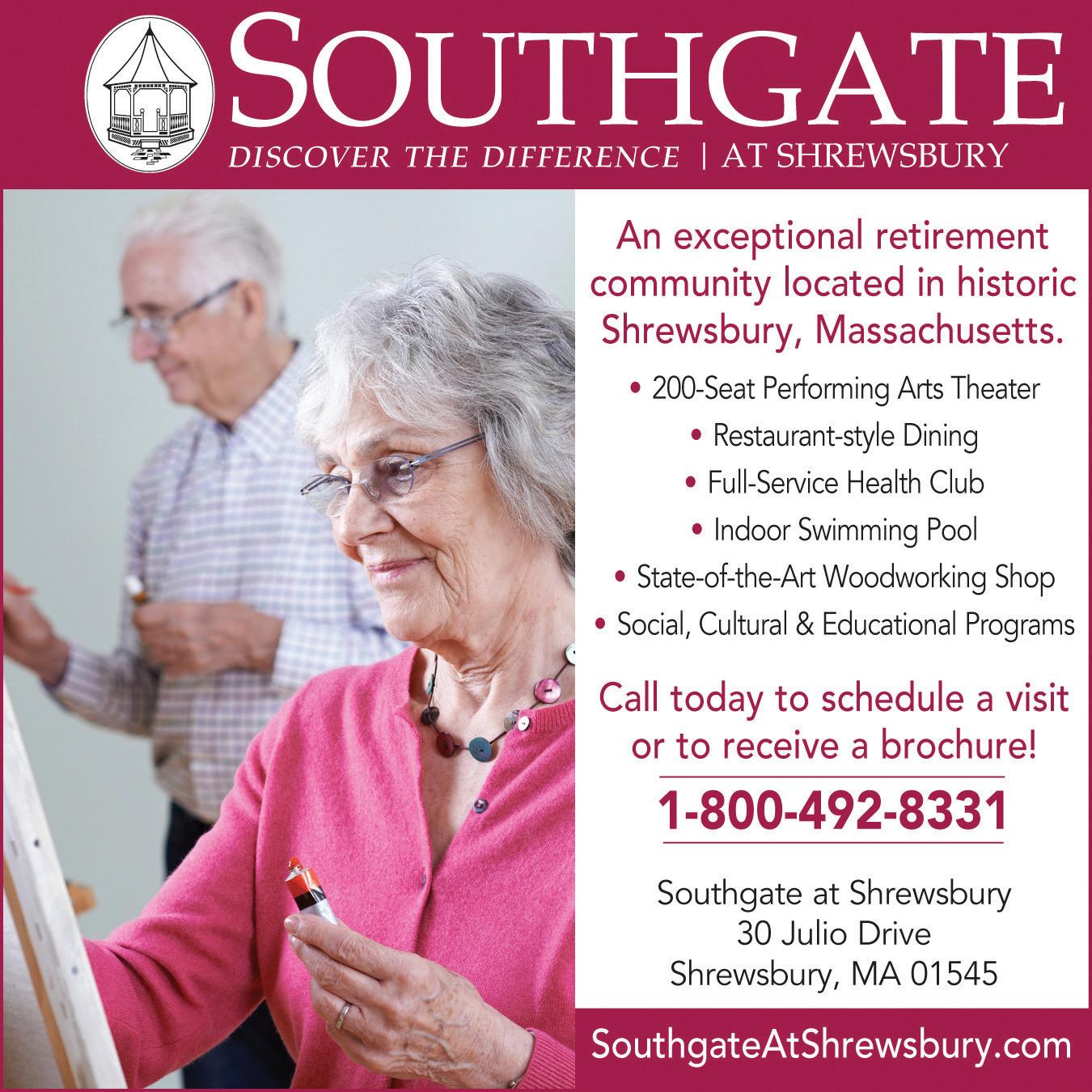

CONNECTICUT
Masonicare at Ashlar Village • 74 Cheshire Road• Wallingford, Connecticut 203-884-8210 • masonicare.org
FLORIDA
Beach Cove • 6200 99th Street • Sebastian, Florida 772-581-0080 • beach-cove.com
MAINE
The Atrium at the Cedars • 620 - 640 Ocean Avenue • Portland, Maine 207-221-7100 • thecedarsportland.org
Penobscot Shores • 10 Shoreland Drive • Belfast, Maine 207-338-2332 • penobscotshores.com
Quarry Hill • 30 Community Drive • Camden, Maine 207-921-6116 • quarryhill.org
Thornton Oaks • 25 Thornton Way • Brunswick, Maine 207-729-8033 • thorntonoaks.com
MASSACHUSETTS
207-338-2332


Whether you want to stay active or just take it easy, retirement living is better with stunning bay views. Take advantage of home ownership without property maintenance at Penobscot Shores.
Whether you want to stay active or just take it easy, retirement living is better with stunning bay views. Take advantage of home ownership without property maintenance at Penobscot Shores.



in the Ocean House for sale or rent.

Southgate at Shrewsbury • 30 Julio Drive • Shrewsbury, Massachusetts 800-492-8331 • southgateatshrewsbury.com

NEW HAMPSHIRE
Wentworth Home • 795 Central Avenue • Dover, New Hampshire 603-742-7406 • wentworthhome.org
VERMONT
EastView at Middlebury • 100 EastView Terrace • Middlebury, Vermont 802-989-7501 • eastviewmiddlebury.com
Morgan Orchards - Senior Living Community at Gifford 89 Tom Wicker Lane • Randolph Center, Vermont 802-728-7888
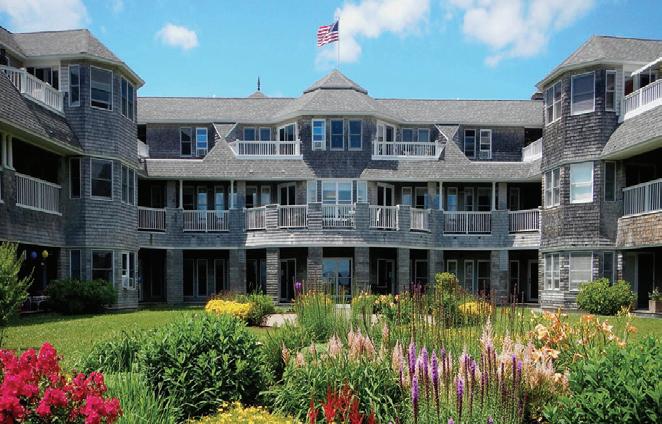
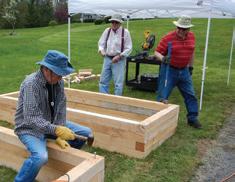

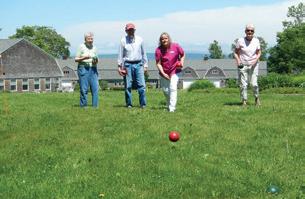
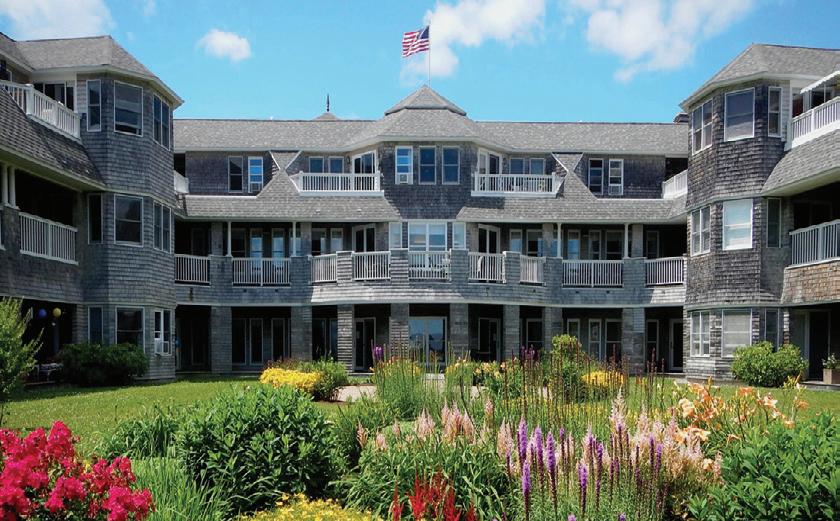
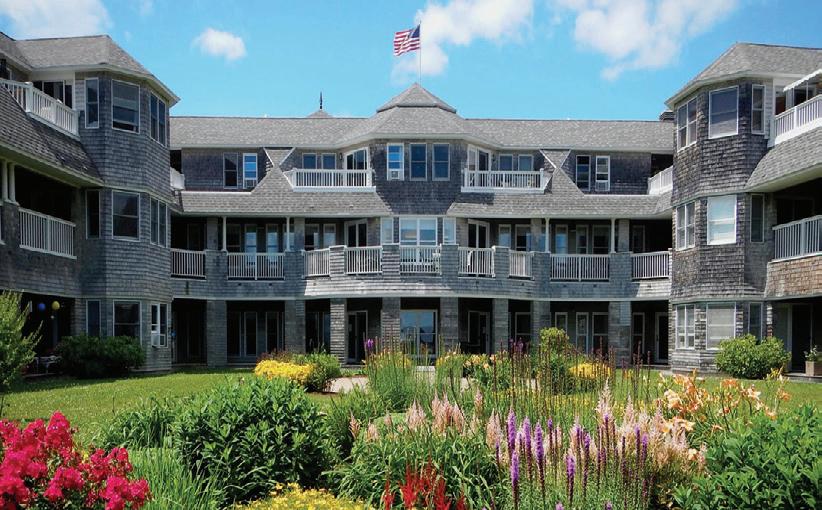




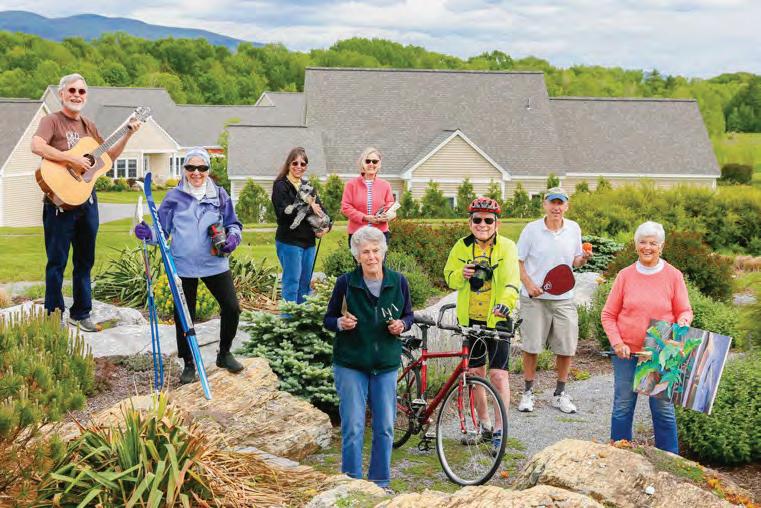




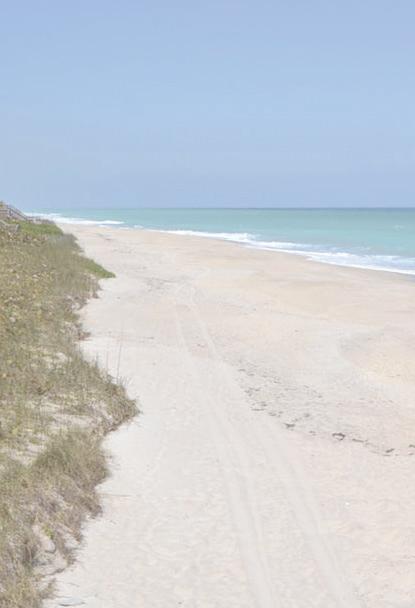

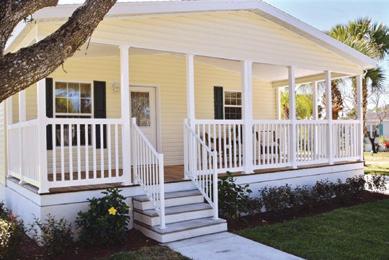




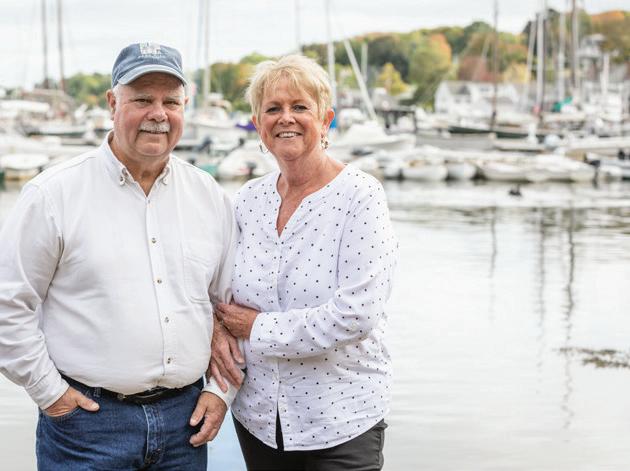






(Continued from p. 103)
The odd-looking amphibious crafts, normally full of tourists from places like Iowa and Portugal, everybody off to see the Granary Burying Ground and Paul Revere’s house, cough and snort their way through the Hub of the Universe in a conga line of celebration for yet another local professional athletic team that has won yet another championship. The recorded voice of the late Mr. Freddie Mercury sings that song (you know the one) and confetti is shot out of cannons and people cheer and wave clever signs as each duck boat passes with its famous passengers and someone normal throws a beer to a famous someone and the famous someone chugs it the way a champion would (that’s you, Gronk) and the cheers become even louder. There is a proclamation from the mayor and kids are allowed to skip school and a police estimate of the crowd size is somewhere in the seven figures, even on the cold days, and joy once again is everywhere.
Sort of.
There now have been 12 Boston duck boat parades in the past 18 years. The 21st century has become a championship celebration in Boston in particular and New England in general, from Moosehead Lake to the Block Island Ferry and everywhere in between. Since 2000, the New England Patriots have won the Super Bowl six times. The Red Sox have won the World Series four times. The Boston Bruins have won the Stanley Cup. The Boston Celtics, the sole Boston bright light for most of history, won yet another NBA championship in 2008. The once-ina-lifetime moment for most cities has become the 10th-, 11-, 12th-in-alifetime moment around here.
Celebrations have arrived one after another, after another, after another. They have become choreographed down to the last hurrah. Everybody knows what to do. Fire up the boats. Fire up the population. Let ’er rip the same way we have let ’er rip all those
other times. The region is in the midst of an all-you-can-eat statistical anomaly. Dinner never seems to end.
“Considering the fact that each of our professional sports leagues has 30 teams or so—we are leaving Major League Soccer out of this equation because we can—any franchise, statistically speaking, should win a championship only once every 30 years or so,” Norman Chad, a tongue-in-cheek gambling expert for The Washington Post , wrote this year. “Thus, in an average lifetime, sports fans should see their teams win two or three titles. New England is shattering this ageold, time-honored algorithm.”
A string of near misses has tilted the numbers even more in the local direction. Boston sports professionals have played in the championship
a month later the Bruins fell to the St. Louis Blues in the seventh and final game of the Stanley Cup—but just the possibility was enough to send the rest of the country into a fullblown dither. Emotions usually seen in movies on the Hallmark Channel were brought to the sports page. Hate and jealousy were the primary choices.
“[T]his has to end sometime. It does,” Mike Vaccaro of The New York Post wrote in a column titled “Stop the Bruins: We’re Sick of This Boston Run of Titles.” “This isn’t just a New York thing either, I hate to tell you. Everyone is sick of Beantown. It’s true. Go to Seattle. Go to Houston. Go to Chicago. Go to Minneapolis. They want you to lose, too. They are sick of you. They are tired of all this.”
And in The Washington Post , under
game or series for their league 18 times in these 18 years. The Patriots, who started this duck boat business with their electric last-minute 20–17 championship win over the heavily favored St. Louis Rams in 2002, have played in nine Super Bowls, basically one every other year. The Red Sox have played in four World Series, the Bruins in three Stanley Cup finals, the Celtics in two NBA Finals.
No end is in sight. Every team in the city seems to be a certified powerhouse. In late April and early May of this year, there was a reasonable possibility that Boston teams could capture all four major professional championships, hold them all at the same time. This was something that had never been done. The Red Sox and Patriots wins were already in the bank. The Bruins and the Celtics had solid playoff chances.
The sweep did not happen—the Celtics were bounced out of the playoffs by the Milwaukee Bucks, and
the headline “Why the Boston Bruins Absolutely, Positively Cannot Win the Stanley Cup,” Norman Chad wrote, “If I had to describe the worst of the Boston fan base in 25 words or less, I guess I would say … arrogant, asinine, contemptible, crass, crude, disagreeable, distasteful, disreputable, fatuous, foolish, intolerable, loathsome, loud, obstinate, obnoxious, off-putting, petulant, puerile, spoiled, thickheaded, uncouth, vacuous, vile, and whiny.”
The good people of New England mostly just smiled. A billboard appeared near Boston Garden with the message “End the Drought. 104 Days Since the Last Boston Title.” This was not original. A billboard that read “End the Drought! 95 Days Since the Last Boston Championship” had appeared on the Massachusetts Turnpike in February. That was a request for the Patriots, who quickly fulfilled it.
All things, anything seemed possible.
“[I]n an average lifetime, sports fans should see their teams win two or three titles. New England is shattering this age-old, time-honored algorithm.”
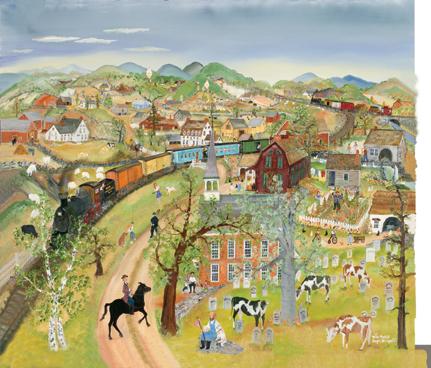
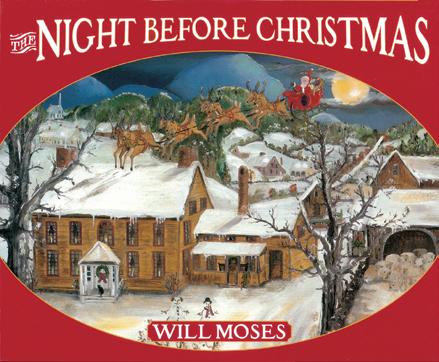
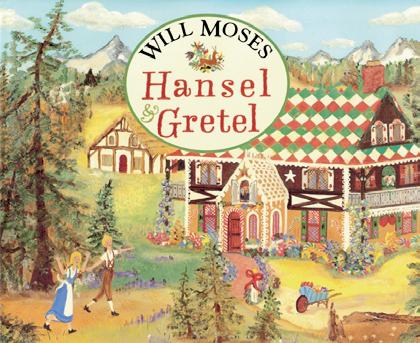

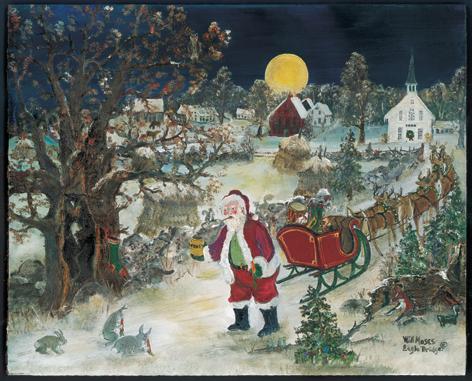
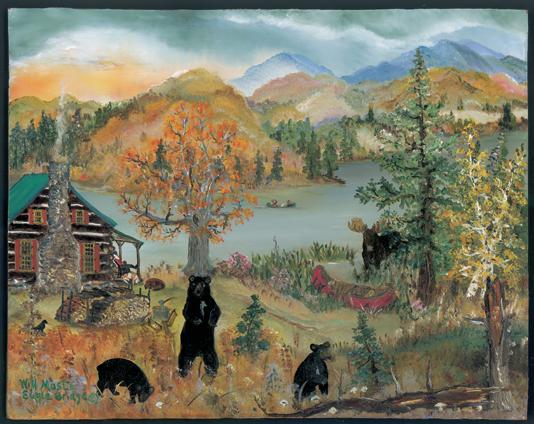
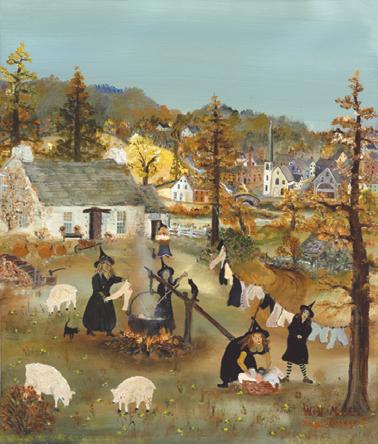
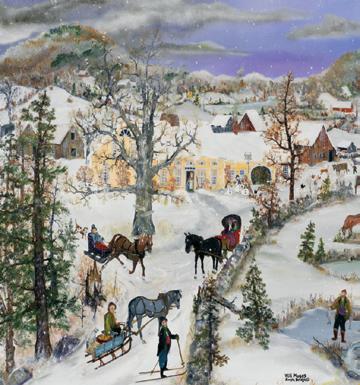

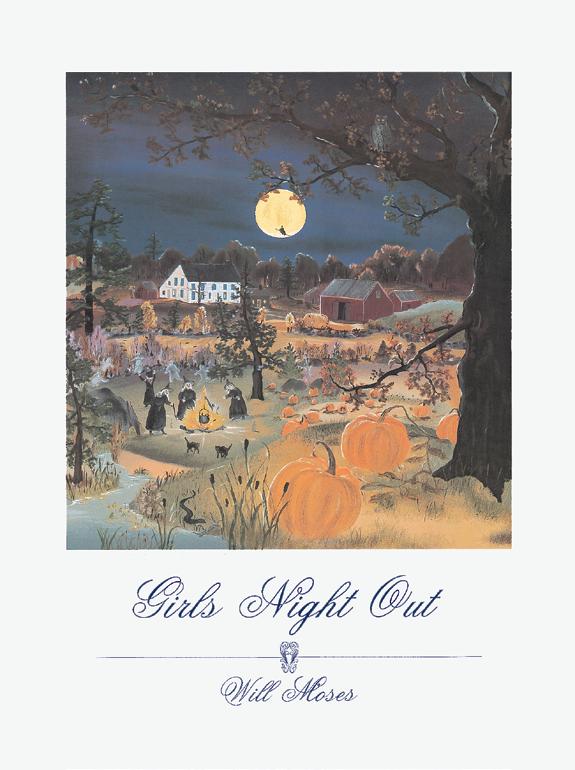
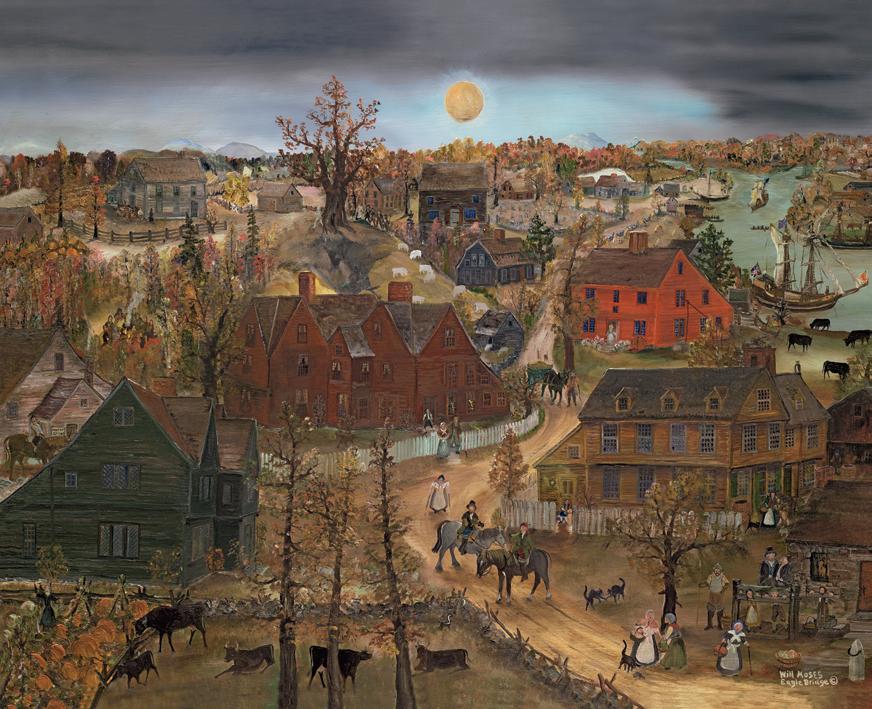

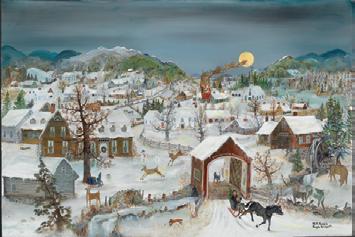

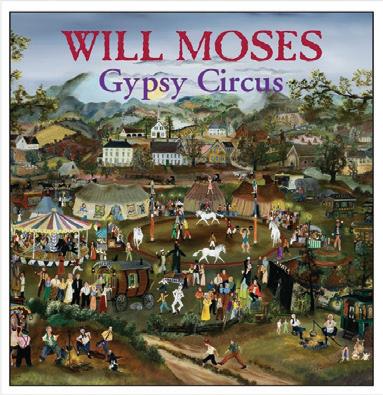
CONFESSION: I do not know how to handle all this success. Eighteen years, and this still does not feel normal. I still feel like the poor relation at the country club dance. Are my shoes shined? Is my hair in place? What am I doing on this stage with this trophy?
CONFESSION: There is a little guilt. I have to admit the fact. I do feel a little guilt.
Am I worthy?
My expertise, of course, is at the other end of the scale. I covered a Patriots team that finished 1–15. Yes, I did. I covered the Bruins when they had too many men on the ice at the Montreal Forum and it cost them a shot at the Stanley Cup. Stood there with my nose pressed against the glass as the whole thing unfolded. I covered the Celtics when Bill Russell retired and a pleasant seven-foot man named Hank Finkel was brought in as a replacement.
“Well, the good thing is that I finally have a Jewish player on the
roster,” general manager Red Auerbach said, trying to make a positive out of the situation.
This was before Finkel’s first practice. The first time he was fouled, he went to the line, breathed deeply, and made the sign of the cross.
I spent a number of long, long nights at the old Yankee Stadium, hearing more than 50,000 people singsonging the phrase “Boston sucks,” and they were right. I remember when I was a kid, a Red Sox fan, and I would start a scrapbook every year to memorialize the season. I would cut and paste, put in the standings and statistics and major stories through spring training, through the month of April and maybe the first two weeks of May. Then I would be done, the residents of Fenway Park a dozen or more games out of first place. No hope. I remember typing almost a whole early column about the Red Sox’s amazing World Series championship in 1986 on that fateful night in Shea Stadium, and then
one thing happened after another on a tiny black-and-white television in the press room, and the column never was sent. I remember that well. Kept the column in my computer for more than a calendar year before I finally highlighted the whole thing and pressed the button that said “Delete.”

The Patriots could never win in Miami, no matter how they tried. The Patriots could never win in a lot of places. I remember the time Irving Fryar left the field with a concussion, departed the stadium, and was involved in a car crash before the game ended. I remember blocked kicks, bad fumbles, and a million dropped passes. Money was short. I remember I covered Patriots home games at Boston College, Fenway Park, Harvard Stadium, and Legion Field in Birmingham, Alabama. (You can look it up.) I remember when the toilets didn’t work after the first new stadium was built in Foxborough. I did cover one Patriots visit to the Super Bowl. The Patriots lost, 46–10, to the Chicago Bears. William “the Refrigerator” Perry scored a touchdown.
My son remembers going out to the front lawn to cry about a Celtics loss to the Philadelphia 76ers. He hated the 76ers. My daughter remembers crying a bunch of times. Mostly for the Red Sox. I remember the Bruins could never win in Montreal. I remember the night Kate Smith sang and the Philadelphia Flyers beat the Bruins, 1–0, to win the Stanley Cup. There were some bright spots, especially in basketball, with the work of Mr. Larry Bird for the Celtics, but those were balanced by some work by Mr. Magic Johnson of the Los Angeles Lakers. I interviewed Jack Nicholson during the Lakers’ celebration in their locker room at the Garden. He was quite happy.
It all seems like ancient history now.
“Have the kids ever had to cry about a sports event?” I asked my daughter about those horn-tooting grandsons, now 13 and 10.
Now you can finally have all of the soothing benefits of a relaxing warm bath, or enjoy a convenient refreshing shower while seated or standing. Introducing Safe Step Walk-In Tub’s exclusive NEW Shower Package!
3 First and only walk-in tub available with a customizable shower
3 Fixed rainfall shower head is adjustable for your height and pivots to offer a seated shower option

3 Durable frameless tempered glass enclosure available
3 High-quality tub complete with a comprehensive lifetime warranty on the entire tub
3 Top-of-the-line installation and service, all included at one low, affordable price










Now you can have the best of both worlds–there isn’t a better, more affordable walk-in tub!


“Not once,” she replied. “They were a little mad at Kyrie Irving after the Celtics playoffs, but no….”





Success is pretty much all these kids have known. There have been very few dark days. Is this good for them? How much success is too much success? How much winning is too much winning? How much cheesecake is too much cheesecake? Shouldn’t a good salad, or maybe a few Brussels sprouts or a side order of spinach, be inserted into the operation here and there? How long can a human being smile before their face starts to hurt? How many nights in a row can a contestant win on Jeopardy! and stay humble and kind?
The duck boats keep coming. The sight of local champions on parade, trophy held high by the captain or owner or some team functionary, has not become boring—no, nothing like that, but it has become … familiar. Is that the proper word? Familiar?
Our passion has been muted by our experience. Take us to Paris once




and we will grow dizzy at the sight of Mr. Eiffel’s tower and the ChampsElysees. Take us a dozen times or more and happy we will be, but our first concern will be checking into the hotel and getting a hot shower. The latest championship is the fifth or sixth, 10th or 12th child in the family. The first words and the first steps and the first trip to the junior prom are firsts no more. They are wonderful, for sure, but we have seen them before.
“How do you do all this?” I asked columnist Dan Shaughnessy, who has my old job at the Globe and has chronicled these good times—every one of them, all 12 championships—after chronicling a significant number of bad times.
“I remember 2003, when Aaron Boone hit that home run in the seventh game at the stadium to kill the Red Sox yet again,” he said. “It was late, that night, and I wrote a column in a hurry and people were sort of amazed that I could do it that quickly.


I told them it wasn’t hard at all. I had rehearsed for this many times. I covered sports in Boston.

“Now … they wanted me to start typing in the third quarter of the Super Bowl against Atlanta because the score was 28–3 and the game was late. I said, ‘No, I don’t want to miss the comeback.’ I’d seen too much of this, too many comebacks. I was rehearsed the other way.”
Perfect.





CONFESSION: I guess I can live with the guilt. There’s a lot guiltier guilt than being happy because your local sports team won a championship. I can adapt.
CONFESSION: I would have gone to the parade for the St. Louis Blues in a heartbeat if I lived in St. Louis, Missouri. A first Stanley Cup after 52 years of trying? Brilliant. That’s the way it used to be around here. But maybe there’s someone there who now knows they can fly. Once in a while, I can live with that.















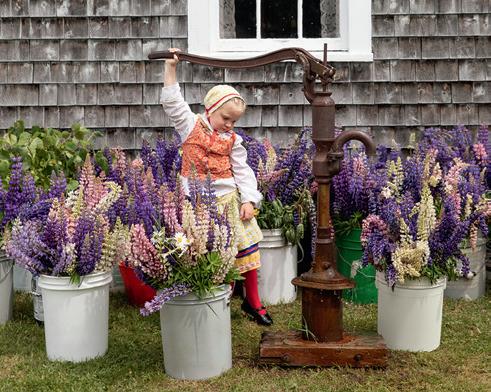

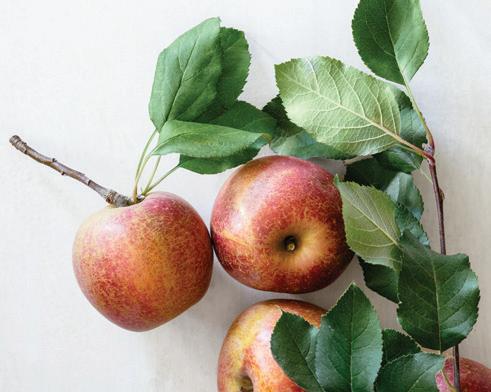
EnergAire continuously purifies up to 4,000 cubic feet (a large room) of air and makes it breathable and invigorating. Restores natural ion balance to unhealthy environments caused by industrial pollution, automobile exhaust, central airconditioning, and heating, smoke, dust, pollen, animal fur. . . removes microscopic pollution particles not removed by any other method of air purification. EnergAire was rated Number One for speed of removal of cigarette smoke by the leading U.S. consumer protection magazine. It has no noisy fan, no costly filter, and requires no maintenance. Uses less than 2 watts. 9" high. 3" diameter. Weighs less than 1 pound. $69.95

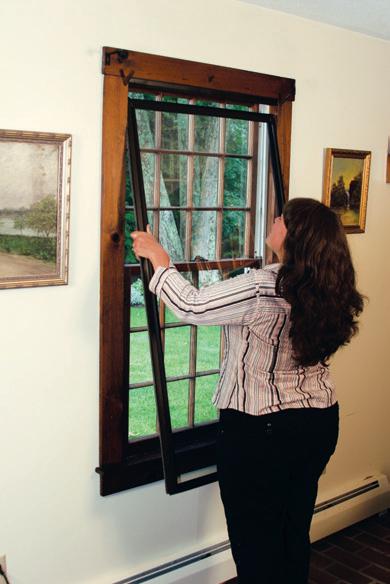


RODAR is the super-powerful professional ultrasonic pest repeller with up to 60 or more times the power of other devices — and power is what makes RODAR so effective. RODAR ultrasound equals a jet engine — noise unbearable to pests but at frequencies humans and pets cannot hear. RODAR units are completely safe. RODAR drives pests out and keeps them from getting in. Handsome simulated walnut cabinet 5-5/8" high. Weight 1-1/2 pounds. Uses less than 5 watts. $99.95


90-day money-back guarantee — 12-month warranty.To order: Send cost for unit(s) plus $10.00 each for shipping and handling (in Mass. add 6.25% tax) by check, money order, MasterCard, Visa, or Discover number and expiration date to Micron Corp. Call






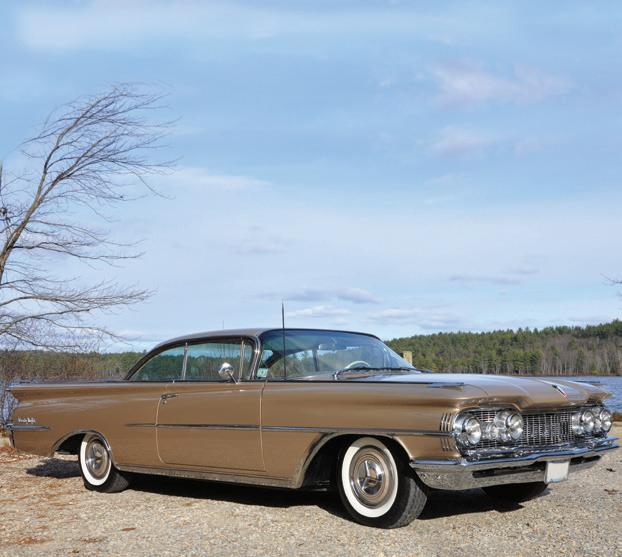




are handmade using the finest quality ingredients,and are fully cooked before packaging. One dozen delicious pierogi are nestled in a tray, making a one pound package of pure enjoyment!


are HANDMADE using the finest quality ingredients, and are fully cooked before packaging. One dozen delicious pierogi are nestled in a tray, making a one pound package of pure enjoyment!
You can get Millie’s Pierogi with these popular fillings:• Cabbage • Potato & Cheese

• Farmer’s Cheese • Blueberry • Prune
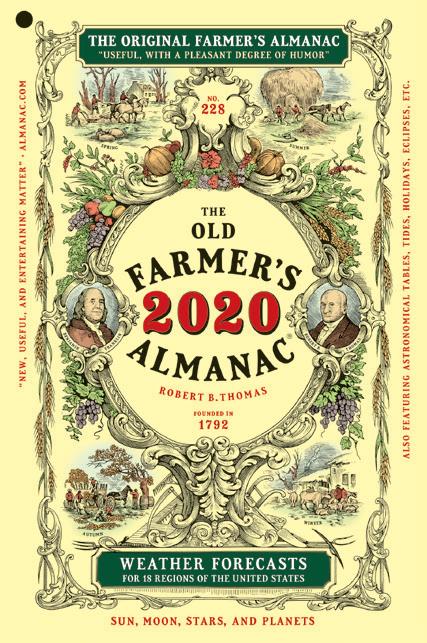
• Potato & Cheese with Kielbasa • Potato & Onion
Turns any day into an occasion – order today! Box of 6 trays-$42 • Box of 10 trays-$63 Polish Picnic-$43.50 • Polish Party Pack-$66 Kapusta & 5 trays–$45.50 • Plus Shipping
• Box of 10 trays-$69 Polish Picnic-$45 • Polish Party Pack-$69 Kapusta & 5 trays–$49
Box of 6




Issue:


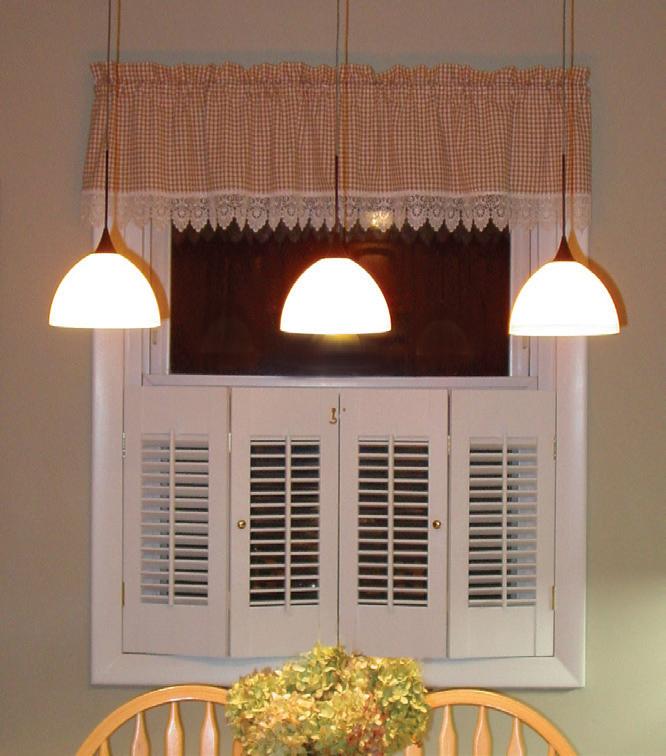







August

Please check your proof carefully. Approval must be returned by Publisher is not responsible for errors once proof has been signed— or if not returned by the above date. Please note that color proof/pdf is to show color break only. Colors do not accurately represent actual printed advertisement as it will appear in the publication. If



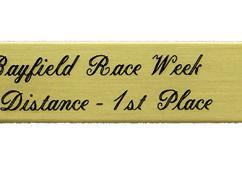

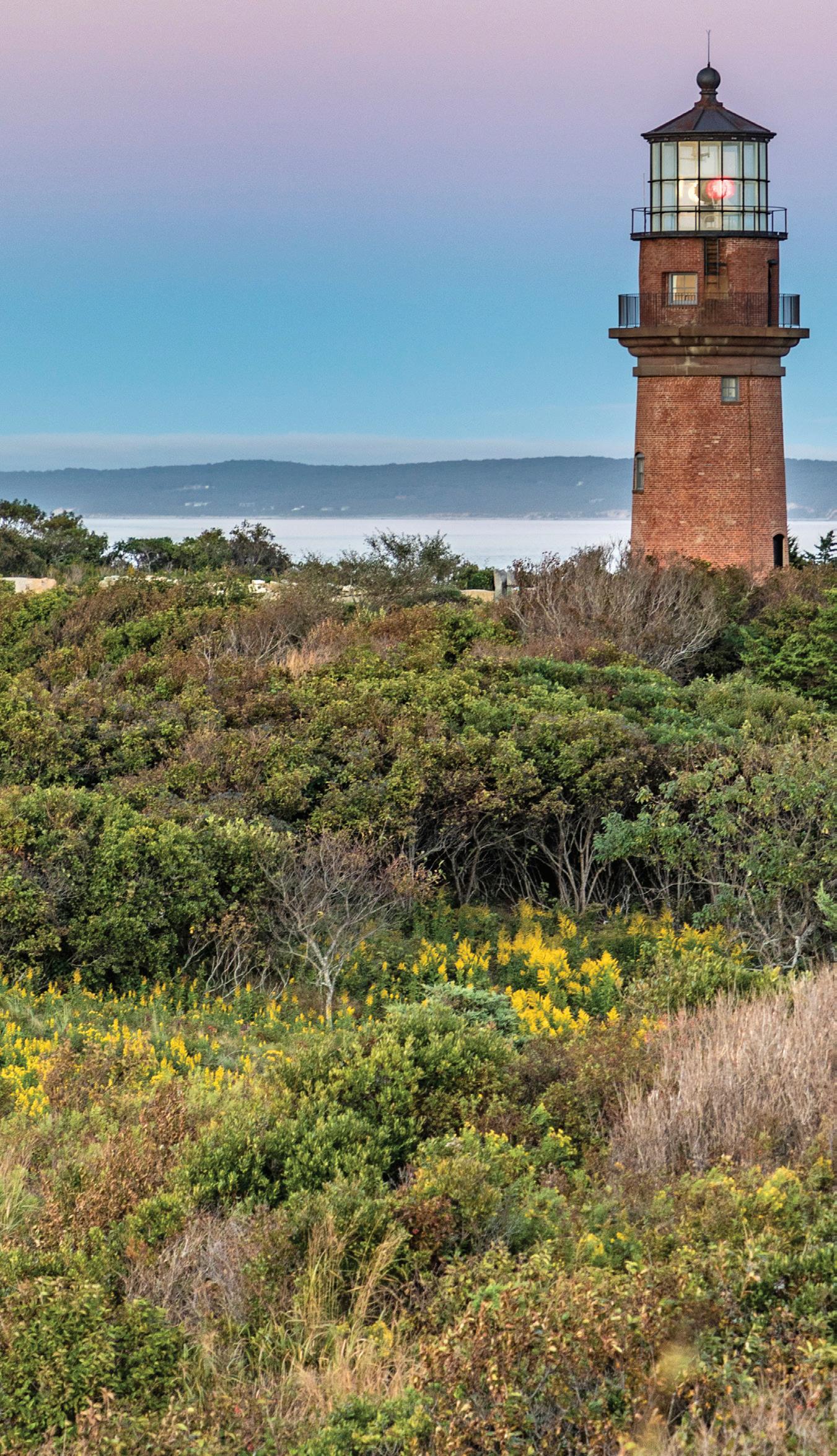





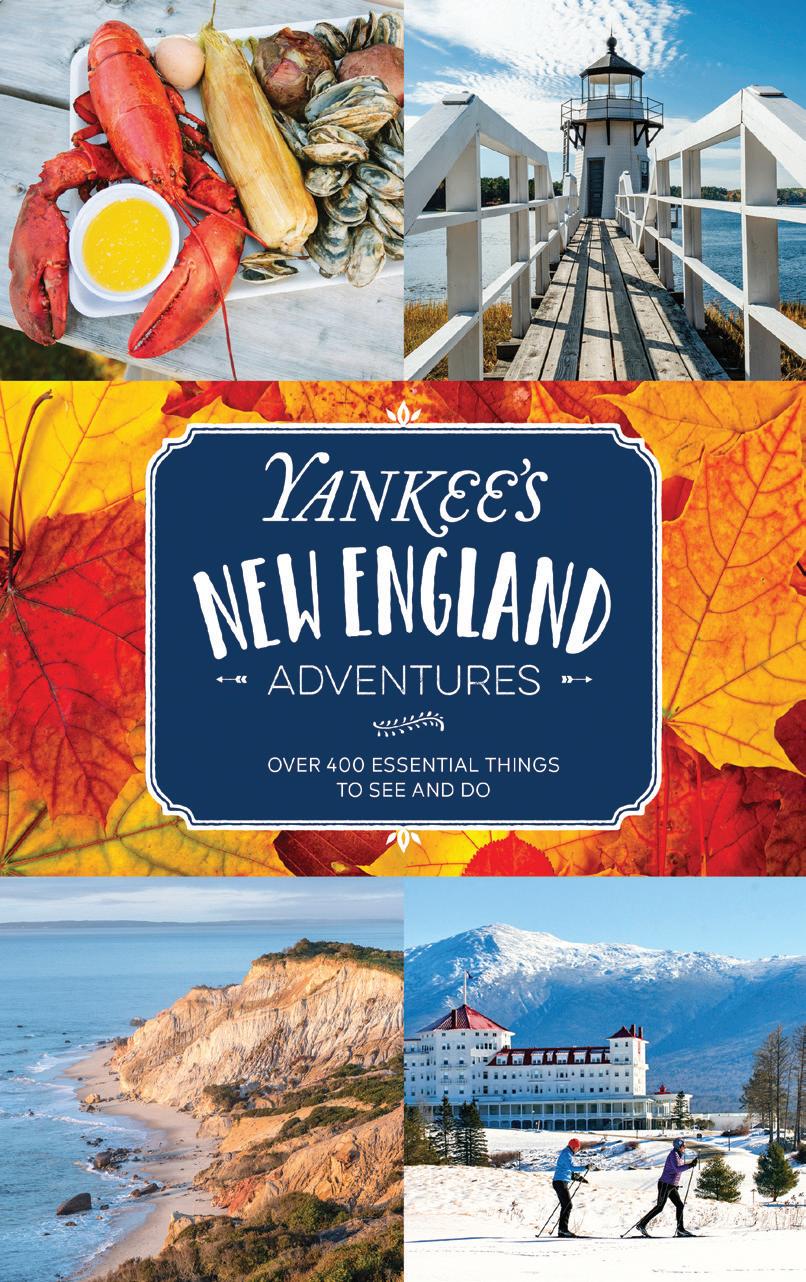

FASTER. Up to 20 HP and 34" wide cut for faster mowing!
EASIER. New power steering for turn-on-a-dime ease!
NEW CHOICES: including PTO and tow-behind models for tractors & ATVs.







•

and mows thick grass and weeds without bogging down— the ONLY trimmer guaranteed not to wrap!

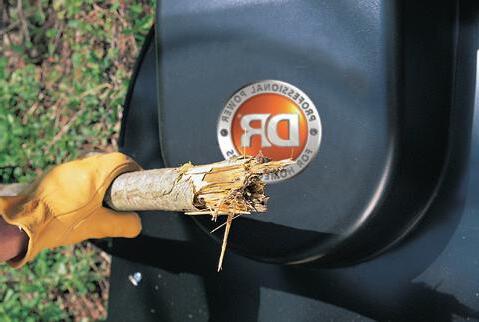



• Rolls light as a feather on big, easy-rolling wheels!
• Thickest, longestlasting cutting cord (up to 255 mil)








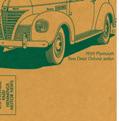
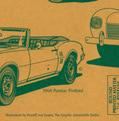


Do you know what a camshaft does?
When you read “n.o.m.,” does your mind automatically translate it as “non-original motor”?
If the answer to either question is yes, then you are probably familiar with the monthly Hemmings Motor News, the car enthusiasts’ bible that turns 55 this year.


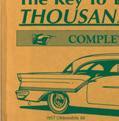
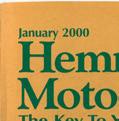
Today, the complex in Bennington, Vermont, where Hemmings has been based since the 1960s, includes not just the office building where most of the 100 or so employees work, but also an old-fashioned gas station with an attached gift shop, and a classic car workshop and museum. The latter features more than 30 vintage vehicles, including a Bennington fire truck from 1924 and an open-top Buick believed to have been the first motorized postal vehicle in Vermont.
On Thursday nights throughout the summer, the company hosts a series of “cruise-ins” that draw car buffs from near and far, eager to show off their wheels or ogle other



Surely all this is a far cry from anything founder Ernest Hemmings imagined back in January 1954, when he launched Hemmings Motor News from his home in Quincy, Illinois. The first issue was hand-typed, and its four pages opened with a note: “This is the first issue of a little monthly magazine that I hope will be of real interest to the person interested in older models.”
Apparently it was indeed of interest, since by 1985 the magazine had more than 210,000 subscribers, and annual revenues approached $10 million. Its covers were brown and utilitarian, and the newsprint pages numbered more than 400, each one packed with a pirate’s treasure map of ads.


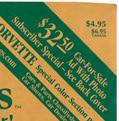
lettered shows across the country.
the




















delivery vans are a common sight at car sponsors and which puts vintage cars (and their drivers)
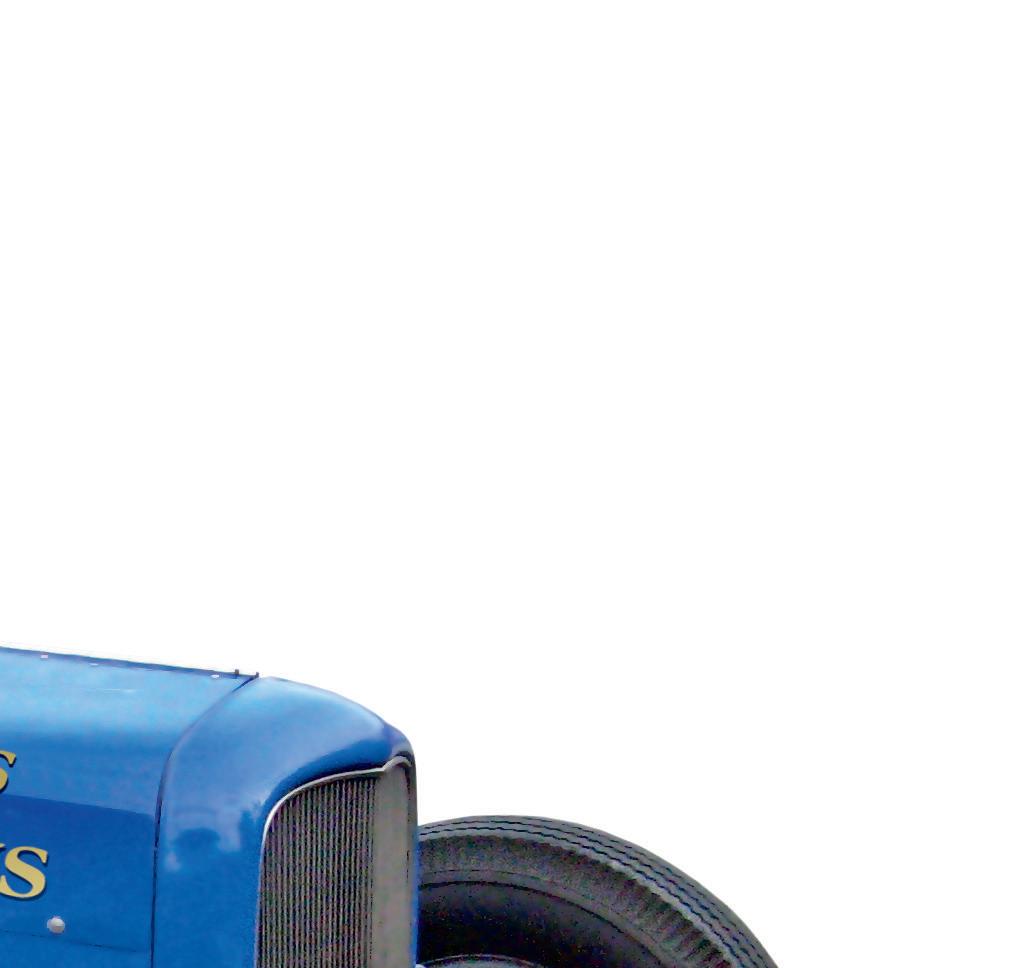
Since 2002, Hemmings has been owned by North Carolina–based American City Business Journals. Now printed in full color, the magazine is the flagship of a bevy of niche auto publications and a website featuring thousands of


searchable ads.


to reinvent itself should hardly be
a surprise. After all, making the old like new again is kind of
Early December, 1868 –A man left Gardiner, Maine, traveled to New York City, boarded his clipper ship, sailed it as its captain around the tip of South America up to San Francisco, then on to Java, Burma, and China. Almost two years later with his ship laden with sugar and tea, he returned home first to New York then to Gardiner, Maine, and his loving family as he had done many times before.
Captain Drew kept an unusually detailed handwritten account of his journeys. We have the captain’s log, a beautifully written document also illustrated by the captain. We have serialized this story on our website. Read the parts that have survived.
The captain’s log was loaned to us by the captain’s great-great-grandson Keith, who goes on gem-buying expeditions to the Orient each year to acquire gems in the cutting centers of the world. Keith brings his gems back to New England where he creates beautiful jewelry, making monthly additions to our Clipper Ship Trade Wind Jewelry Collection.
We have the journal and Keith’s jewelry collection. Visit our website, then visit our store to see the entire Trade Wind Jewelry Collection.
One-hundred-twenty-eight pieces of Trade Wind jewelry on-line, ready to ship anywhere, U.S.A. Free shipping, as always, on all of your Cross purchases.





